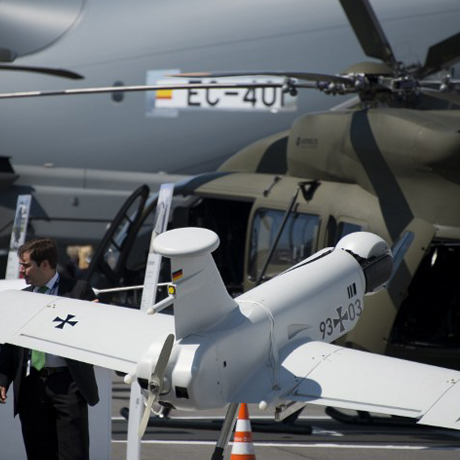 16 militants killed in two US drone strikes in Pakistan 16 militants killed in two US drone strikes in Pakistan
Sixteen militants were killed in in two US drone strikes within last 24 hours in Pakistan's restive tribal region, ending a five-month hiatus. Ten militants were killed in a US drone strike early on Thursday in a northwest tribal district which followed another strike in Dargah Mandi area of North Waziristan in which 6 militants perished, Dawn News reported.
The second strike took place hours after first drone strike killed at least six at the same location. In the first strike, four missiles were fired at a vehicle parked near a mud compound in Dargah Mandi area of North Waziristan, a security official said.
"Six militants were killed in the attack and both the vehicle and hideout were destroyed," the official said. The last drone attack occurred in Pakistan in the last week of December, 2013, killing three insurgents.
The drone strikes had been temporarily halted since then to provide the Pakistani government a chance to have talks with the Tehrik-e-Taliban Pakistan (TTP) aimed at ending their seven-year insurgency.
However, US President Barack Obama last month made it clear that he will continue to authorise CIA-operated drone strikes and covert operations abroad to capture terrorists based on "actionable intelligence".
Pakistan has criticised drone strikes as a violation of sovereignty and counter-productive to anti-terror efforts.
The strike came as Pakistani Taliban confirmed that Uzbek militants took part in the deadly assault on Karachi's international airport that killed at least 39 people.
Ten Uzbek militants entered the Jinnah International Airport on Sunday night from different directions in two groups, resulting in a bloody standoff lasting for about 13 hours that left 37 people dead including 10 terrorists.
A day after the attempted airport siege, Taliban militants attacked a training camp of the Airport Security Force outside Karachi international airport, but fled after Pakistani forces repulsed the assault. Pressure has been mounting on Pakistan to react after the deadly Karachi airport attack.
At least 25 militants were killed Tuesday when Pakistani fighter jets pounded targets in the country's northwestern tribal region. The early morning air strikes were launched at Taliban hideouts in Tirah valley of Khyber tribal agency.
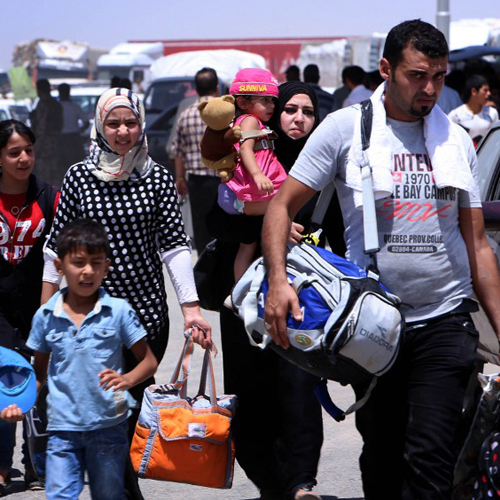 UN Security Council condemns takeover of Iraq's Mosul city UN Security Council condemns takeover of Iraq's Mosul city
The United Nations Security Council (UNSC) on Wednesday condemned the upsurge of violence in the northern Iraqi city of Mosul by what it described as a terrorist organization attempting to destabilize the region.
The 15-nation council also demanded the immediate release of Turkish hostages seized by the Islamic State in Iraq and the Levant (ISIL), Islamist militants tied to al Qaeda and active in northern Iraq and Syria.
"The Security Council deplored in the strongest terms the recent events in the city of Mosul in Iraq where elements of the terrorist organization ... the ISIL have taken over significant parts of the city, including the Turkish Consulate and many government buildings, and displaced hundreds of thousands of people," the council said. It said that "the recent terrorist attacks ... are being perpetrated against the people of Iraq in an attempt to destabilize the country and region".
Russian Ambassador Vitaly Churkin, president of the Security Council this month, read out the statement to reporters. He added that suggestions about possible action against the ISIL might come up when the council discusses Iraq on Thursday. The council could add the ISIL to its al Qaeda sanctions list, which would subject it to an international asset freeze.
UN Secretary-General Ban Ki-moon echoed the council's condemnation, saying that "terrorism must not be allowed to succeed in undoing the path towards democracy in Iraq as determined by the will of the Iraqi people."
Turkey warned on Wednesday that it would retaliate if any of its 80 nationals, including special forces soldiers, diplomats and children, seized by the ISIL during a lightning advance in northern Iraq were harmed.
The capture of Turkish hostages came a day after the ISIL took control of Mosul, putting security forces to flight in a spectacular show of strength against the Shi'ite-led Baghdad government.
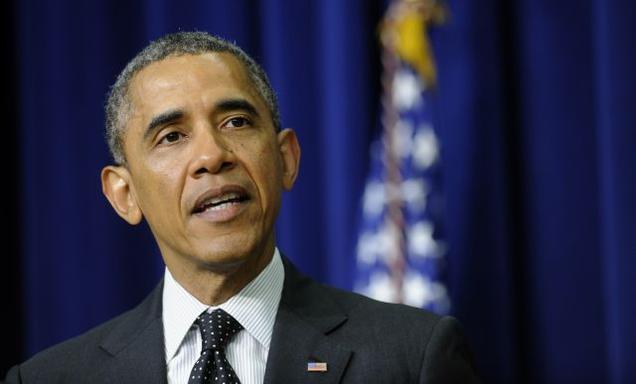 Immigration reform not impossible: Obama Immigration reform not impossible: Obama
Rejecting the opinion that immigration reform is impossible, US President Barack Obama has urged the Congress to pass the legislation in this regard which when signed into law would pave the way for citizenship to some 11 million undocumented people.
“It’s interesting to listen to the pundits and the analysts, and some of the conventional wisdom talks about, oh, the politics of immigration reform seem impossible now. I fundamentally reject that,” Mr. Obama said at a fund raiser event in Weston Massachusetts.
“I will tell the Speaker of the House that he needs to reject that. Because if you met those kids today, you’d know that politics can’t play a part in it,” he said.
“If you think that because of politics you want to maintain a status quo that’s broken; because of politics we’re going to forego the economic growth and the deficit reduction, and the border security, and the fairness and the opportunity that immigration reform represents — you don’t belong in Washington,” he said.
“Because at a certain point, the issues are important enough to fight for,” Mr. Obama said.
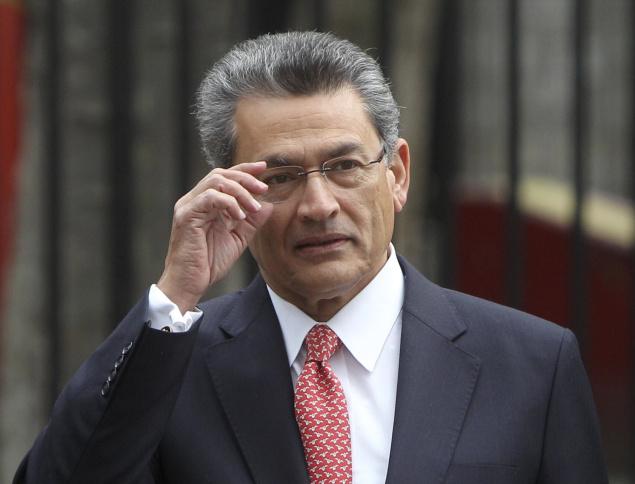 US Supreme Court rejects Rajat Gupta’s last bid to avoid jail US Supreme Court rejects Rajat Gupta’s last bid to avoid jail
India-born former Goldman Sachs director Rajat Gupta will have to report to jail next week to begin his two-year sentence on insider trading charges after the US Supreme Court rejected his bid to remain free on bail till his appeal for rehearing his conviction is decided on.
Mr. Gupta, convicted in 2012 of passing confidential board room information to his friend and business associate Raj Rajaratnam, is scheduled to begin his prison term on June 17.
US district judge Jed Rakoff, who presided over his trial, would recommend that 65-year-old Gupta be assigned to a medium-security prison in Otisville, about 70 miles northwest of New York City.
Mr. Gupta had submitted an 118-page submission to Supreme Court Justice Ruth Bader Ginsburg on June 10, requesting to remain free on bail and saying that if an appeals court rules in his favour, he will “likely” be entitled to a new trial.
The former Mckinsey head, who has so far remained free on bail, said he presents no risk of flight or danger to the community, and he has abided by all conditions of release set by the district court.
Ms. Ginsburg, who oversees emergency applications, denied Mr. Gupta’s request in an order passed on Wednesday.
Ms. Ginsburg made no comment on denying Mr. Gupta’s request.
A spokesperson at the office of Gupta’s lawyer Seth Waxman, a former US solicitor general, said Waxman does not usually comment on pending matters but added that “unfortunately Gupta’s application was denied.”
Mr. Gupta is one of the most high-profile Wall Street executives to be convicted of insider trading, charges that were brought against him by Manhattan’s India-born top federal prosecutor Preet Bharara.
Apart from the two-year prison term, Mr. Gupta has been ordered to pay USD five million in fine and a separate USD six million in restitution to Goldman Sachs.
Mr. Gupta’s submission to the US Supreme Court was his last-ditch effort to avoid going to prison. He had last month filed a motion in the court of appeals to stay his surrender date and for bail pending the disposition of his rehearing petition but the court had denied that motion.
In his application to the Supreme Court, Mr. Gupta had requested the “continuation of his release on bail pending the disposition of his petition for rehearing and rehearing en banc to the Second Circuit...and, if necessary, this Court’s disposition of his petition for a writ of certiorari.”
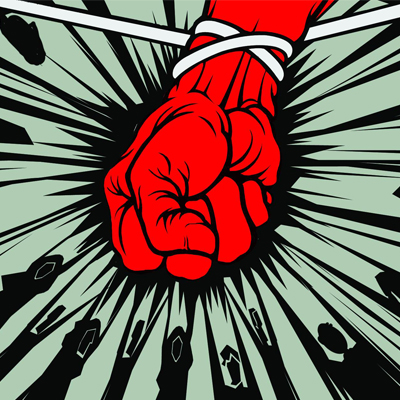 No justification, no impunity for rapes: United Nations No justification, no impunity for rapes: United Nations
A UN body has demanded justice for the families of the young girls raped and killed in Uttar Pradesh, saying there can be no justification for such "unspeakable crimes" against girls and women and "certainly no impunity" for those who commit such acts. UNICEF "renews the call for justice: justice for the victims of these brutal crimes, for their families, and for the millions of girls and victims around the world who fall prey to brutal sexual violence," the UN body said, amid reports of yet another rape and murder of a 14-year-old girl in Uttar Pradesh's Bijnor district.
In a statement, UNICEF yesterday said that there can be "no justification, no excuse, and certainly no impunity for such crimes, which not only harm individual girls and women but tear the very fabric of their societies.
"Such unspeakable crimes violate the most fundamental values at the heart of all human civilization. We must condemn such violence and we must combat it wherever we find it." Expressing regret that nothing can bring back the girls who died, UNICEF said, "we can and must recommit ourselves to realizing the right of every child to live in safety and dignity. Violence against children is always wrong."
Last week UN chief Ban Ki-moon had said he was appalled by the "brutal" rape and "gruesome" murder of two teenaged girls in Uttar Pradesh's Badaun district, demanding action to end the "intolerable" acts of violence against women.
The UN system in India had also condemned the gang rape and murder of the two teenaged girls. Resident Coordinator of the UN system in India Lise Grande had called for immediate action against the perpetrators and to address violence against women and girls across India.
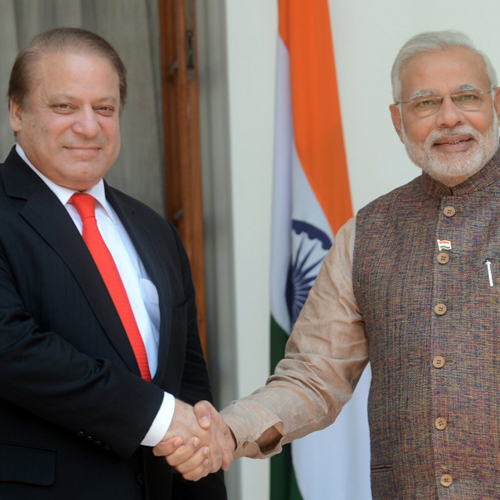 Looking forward to working with Narendra Modi: Nawaz Sharif Looking forward to working with Narendra Modi: Nawaz Sharif
Pakistan Prime Minister Nawaz has written to his Indian counterpart Narendra Modi expressing satisfaction over his meeting with him recently and said he was looking forward to working with him in "harmony on all unsettled matters". In a letter which was delivered to the Prime Minister's Office over the weekend, Sharif, who was among the leaders from the neighbouring countries to attend Modi's swearing in on May 26, said the future of the poor was integrated with "our common economic destiny".
"I must say that I have returned much satisfied with our meaningful exchange of thoughts on matters of bilateral and regional interest," Sharif wrote. A day after he was sworn in, Modi had held a meeting with his Pakistani counterpart on crucial bilateral issues including terror and speedy trial of Mumbai terror attack case in Pakistan.
"I look forward to working with you in harmony on all unsettled matters for the benefit of both nations. Hope that our endeavours will lay the foundation of a much brighter future," Sharif said.
The letter by the Pakistani leader is seen as a positive development in the Indo-Pak ties, which for last one year have witnessed cold vibes due to the incidents along the Line of Control, including beaheading of an Indian soldier by Pakistan troops.
Sharif's letter further said, "It is the millions living in poverty in both countries who deserve our foremost attention. I firmly believe that in our concerted efforts lies the welfare and prosperity of our two nations."
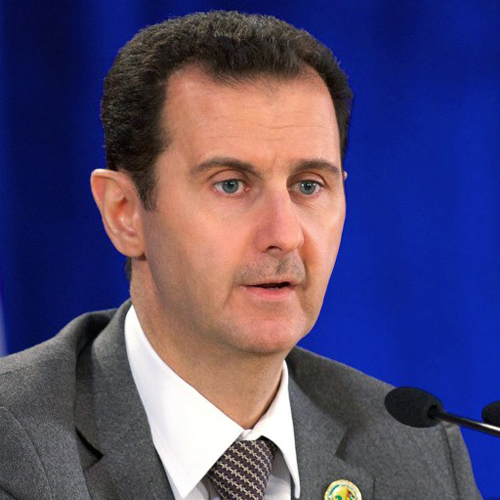 Syrian President Bashar al-Assad tops list of Syria war crimes suspects handed to ICC Syrian President Bashar al-Assad tops list of Syria war crimes suspects handed to ICC
Syrian President Bashar al-Assad tops a list of 20 sample war crimes indictments of government officials and rebels drafted by experts for prosecution someday, a former international war crimes prosecutor said on Tuesday. The list has been handed to the International Criminal Court (ICC), citing for each incident a specific violation of the Rome statute under which a suspect could be charged, according to David Crane, an ex-chief prosecutor of the Special Court for Sierra Leone and now head of the Syria Accountability Project.
A separate team of U.N. investigators has drawn up four confidential lists of war crimes suspects on all sides in Syria, but declined to reveal any names. Crane said the list compiled by his expert group included members of Syria's military and political elite plus Islamist rebel groups ISIS and al-Nusra Front, although he gave no names beyond Assad. "We have about 20 indictments of those who bear the greatest responsibility. This is a neutral effort. We're not just going after Assad and his henchman, we are actually documenting all incidents on both sides," Crane told Reuters.
He was speaking after taking part in a panel discussion about torture and other crimes committed in detention centres during Syria's civil war, which began with peaceful anti-Assad demonstrations in March 2011. Images taken by a Syrian military police photographer codenamed Caesar, published in January, supplied "clear evidence" showing the systematic torture and killing of about 11,000 detainees in conditions that evoked Nazi death camps, former prosecutors including Crane have said.
"We rarely get this type of evidence, most of it is circumstantial," Crane said of the 55,000 photographs of bodies, many with gouged-out eyes and bearing signs of starvation. "Make no mistake about it, these photographs could not be faked. This takes responsibility for what happened up the ladder of responsibility. It is not an act of a maverick colonel or a mad major, this is government policy," said Sir Desmond de Silva, co-author of an analysis of the "Caesar" photos and another former Sierra Leone chief prosecutor, told the panel.
A six-week offensive by ISIS against rival Islamists in eastern Syria has killed 600 fighters and driven 130,000 people from their homes, a London-based monitoring group said on Tuesday.
Crane, an American professor at Syracuse University College of Law in New York, launched its Syria Accountability Project in 2011 to document war crimes and crimes against humanity committed by all sides in Syria's conflict. It now has 1,400 pages of credible allegations, with the date, place and unit suspected of committing crimes, he said.
"At the beginning, 90% of the violations were Assad; it's now 50-50," Crane said, referring to crimes committed by rebel forces fighting to topple the Syrian leader. Last month, Russia and China vetoed a UN Security Council resolution to refer the situation in Syria to the International Criminal Court for possible prosecution of war crimes and crimes against humanity.
De Silva said that if the Council remained blocked on the matter, a tribunal on Syria could be set up if more than two countries entered into a treaty. "It may in fact be the only realistic course that can be taken. What we can't have is international justice stalled in its tracks."
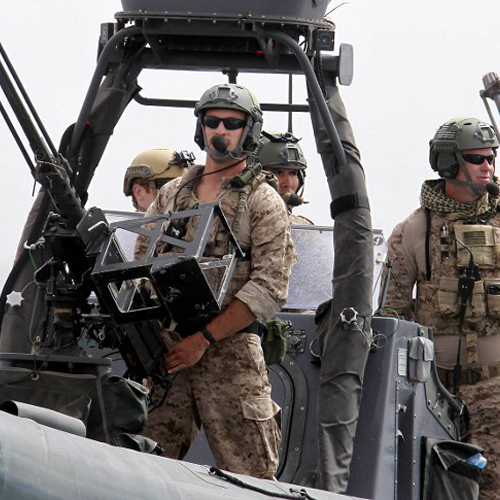 After Ukraine, US trains more special forces in eastern Europe After Ukraine, US trains more special forces in eastern Europe
As NATO refocuses on its eastern borders after Russia's annexation of Crimea, the United States is quietly deploying more troops to train special forces in former Soviet bloc states anxious about Moscow's intentions.
Major exercises began last month in Poland, Slovakia and the Baltic states of Estonia, Lithuania and Latvia involving several hundred personnel from US special forces, the US European Command (EUCOM) said in a statement to Reuters. Long-term plans include further training drills that will consistently keep about 100 US elite troops on the ground at any one time in NATO states close to Russia, with teams working in several countries, US official said.
The events in eastern Ukraine, where Russian-speaking insurgents using sophisticated weapons threaten to split the country, have put the whole former Soviet bloc region on alert and eager for NATO reassurance. EUCOM says its Special Operations Command Europe (SOCEUR) increased the size and scope of its planned exercises after Ukraine flared into violence, reinforcing Washington's message to Moscow that it would stand by its allies.
"Training with our partners in their home countries is something that we have always done," said SOCEUR spokesman Lieutenant-Colonel Nick Sternberg. "The difference is that now we will maintain a (permanent) Special Operations Forces presence in theater along the eastern front of NATO on this training mission," Sternberg said. The exercises have involved practicing house-to-house fighting, mock raids in assault boats and coordinating parachute drops and air strikes, the SOCEUR Facebook page shows.
Highly trained and equipped with advanced communications equipment and weapons, special forces are often used in counterterrorism or reconnaissance operations. They can infiltrate enemy lines to tie down much larger numbers of opposition troops. US special forces saw their numbers more than double, their budget triple and their deployments quadruple in the decade after the Sept. 11, 2001, al Qaeda attacks.
Particularly under the Obama administration, they have been at the center of the offensives against al Qaeda and the Taliban in Iraq and Afghanistan.
The US aim is to help eastern Europe's militaries build elite units along the lines of the US Navy SEALS, Delta Force or Britain's Special Air Service (SAS). "They are still not up to US, British or French capabilities but some of the newer NATO special forces are improving very quickly," said Linda Robinson, a expert in special forces at the RAND Corporation think tank.
Joint exercises this spring have included the May 18-30 "Exercise Flaming Sword" in Lithuania, which brought together special forces from the United States and six European countries. Elite US forces were also integrated into the major annual military exercises of Latvia and Estonia. Special forces have also been involved in the "Exercise Combined Resolve" in Germany, which runs through the end of June and includes about 4,000 troops from 15 allied countries.
Analysts see little imminent prospect of Russia attacking any eastern NATO member, but if it did US and local special forces would likely be at the heart of the response. Many of the region's special forces have already worked alongside US troops in the field.
Soldiers from Poland's GROM, for example, have deployed with US and other special units in Iraq and in Afghanistan, where forces from smaller NATO states have often been involved in training Afghan special operations units. President Barack Obama has said Washington will find new ways to bolster Ukraine's beleaguered military. But EUCOM said no US forces were deployed in Ukraine as a matter of policy and Ukrainian troops have not so far been involved in the special forces training in Eastern Europe.
While few expect the United States to risk sending its own units into the conflict area, training, intelligence and advice from Western special forces experts at the headquarters level could still help Ukraine's military.
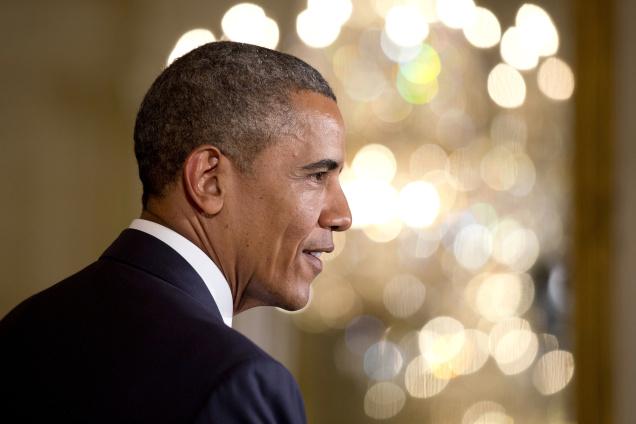 Obama asserts his commitment to immigration reform Obama asserts his commitment to immigration reform
U.S. President Barack Obama has asserted his commitment to immigration reform during a meeting with nurses at the White House. By reforming the legal immigration system the United States can bolster public health by providing immigrant nurses an opportunity to stay in the United States legally and grow their skills, while also attracting the best and brightest immigrants from around the globe to help meet the needs of the growing health care industry, Mr. Obama said in his meeting with nurses at the White House on Monday.
During his meeting with the nurses, Mr. Obama underscored his commitment to passing commonsense immigration reform and highlighted the importance of this issue to nurses and medical professionals, the White House said.
“The President reaffirmed he will continue to do what he can to rally supporters because he wants to see immigration reform become a reality,” the White House said.
“He emphasized that Congress must act to pass commonsense immigration reform and that there is no excuse for House Republicans to continue delaying action, the White House said, adding that both the President and the nurses agreed that commonsense immigration reform would benefit communities across the country and boost the nations economy.
Earlier the White House Deputy Press Secretary, Josh Earnest, said there is no doubt that Mr. Obama understands that protecting US border security is a key component of its national security.
“It’s also a key component of immigration reform. The President said that from the beginning. That focus on border security is included in the compromise legislation that Democrats and Republicans in the Senate both supported. And there’s no reason that it shouldn’t earn the bipartisan support of Democrats and Republicans in the House, as well,” he said.
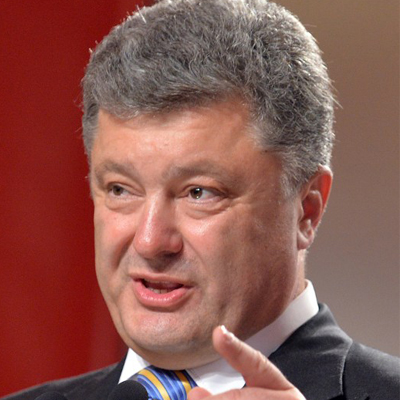 Ukraine sees "understanding" with Russia on peace moves Ukraine sees "understanding" with Russia on peace moves
Ukraine said on Monday it had reached a "mutual understanding" with Moscow on parts of a plan proposed by President Petro Poroshenko for ending violence in the east of the country. It gave no other details after a second day of talks on Poroshenko's proposals for ending conflict in which scores of people, including pro-Russian separatist fighters and government forces, have been killed in east Ukraine since April.
"As a result of the work, the sides reached a mutual understanding on key stages of the implementation of the plan and on a list of priorities which will contribute to a de-escalation of the situation in the Donetsk and Luhansk regions of Ukraine," the Ukrainian Foreign Ministry said. Moscow did not immediately comment. The talks are being mediated by the Organization for Security and Cooperation in Europe, a security and human rights watchdog. At the first talks on Sunday, with Russian envoy Mikhail Zurabov, Poroshenko said violence must end this week.
The Foreign Ministry did not say who had attended Tuesday's talks, but said the "contact group" would hold further meetings on the crisis, which has caused the worst standoff between Russia and the West since the Cold War ended. Russian Foreign Minister Sergei Lavrov said in Finland on Monday the new government in Ukraine and the European Union had to work more constructively to end the crisis.
"We don't even know what is wanted from us. We are doing everything to resolve the Ukraine situation," he said at a news conference with Finnish Foreign Minister Erkki Tuomioja after talks. "I believe that the newly chosen Ukrainian President Poroshenko's contacts (with western leaders) can lead to violence being stopped and internal dialogue beginning."
Lavrov said the EU's stance was not based on the best interests of its member states. "It is not surprising that people call the EU stance unconstructive," he said. "It seeks revenge."
Since Poroshenko was elected president on May 25, the Ukrainian army has stepped up military operations to take back buildings seized by pro-Russian separatists in several towns and cities in mainly Russian-speaking east Ukraine.
 Thai beauty queen resigns under social media fire Thai beauty queen resigns under social media fire
Miss Universe Thailand has resigned less than a month into her reign after being harshly criticized on social media over her political comments and looks.
Weluree Ditsayabut (22) tearfully announced she was giving up the title that would have allowed her to compete in the international Miss Universe pageant.
The actress and former talk show host said on Monday she was initially pleased to have won the title, but that the hail of brutal comments on social media blasting her outspoken political views and calling her fat had hurt her family.
Ms. Weluree was criticized for comments she posted on Facebook attacking the “Red Shirt” supporters of the former government, whom she accused of opposing Thailand’s monarchy, and calling for the execution of their leaders.
“You Red Shirts, you get out of here,” she wrote in mid-November, before winning her title. “Thailand’s soil is dirty because of anti-monarchy people like you.”
Ms. Weluree said that because of the criticism, “the happiness we used to have disappeared totally.”
“When I saw my mom not being able to sleep at night, I couldn’t either,” she told a news conference. She didn’t specify which remarks she found most hurtful.
Ms. Weluree’s comments struck at the heart of Thailand’s long-running political crisis, expressing the attitude of the country’s educated elite and royalists toward the government of then-Prime Minister Yingluck Shinawatra.
Ms. Yingluck, who was backed by many in Thailand’s rural north and northeast, was forced to step down last month, and the military soon afterward staged a coup against the elected civilian government.
Thai society has been sharply polarized since 2006, when Ms. Yingluck’s brother, then-Prime Minister Thaksin Shinawatra, was ousted in a coup and subsequently fled into exile to avoid a corruption conviction. Since then until the recent coup, Mr. Thaksin’s opponents and the Red Shirts staged competing protests in an ongoing battle for political power.
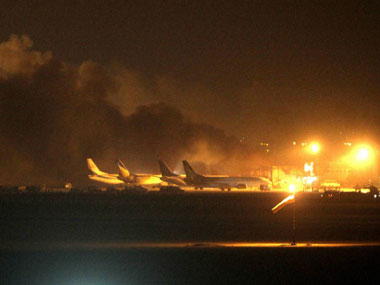 Karachi attack: Will Pak finally realise its issue is not India? Karachi attack: Will Pak finally realise its issue is not India?
Even as the Pakistani security established successfully neutralised the Tehreek-i-Taliban militants who stormed Karachi's Jinnah International Airport in the intervening night of 8-9 June, questions are now being raised about Pakistan's stand on its home-grown terror. It is clear that Pakistan is facing a backlash of the terror network that it nurtured itself not so long ago. "Pakistan nurtured Tehreek-i-Taliban and now they are paying the price. They are trying to control them internally and use them externally in Afghanistan and India. Pakistan sincerely needs to tackle militancy. India should be on the alert as well. Pakistan must decide which policy it wants to follow," former Deputy Chief of Army Staff Lt Gen (Retd) Raj Kadyan told CNN-IBN during a panel discussion.
The Hindu, resident editor in Mumbai, Amit Baruah felt the attack would affect the image of Pakistan internationally. "The attack comes at a time when a civilian government is trying to restore the economy and peace. Pakistan really faces an existential choice. The Tehreek-i-Taliban has shattered the myth that they are keen on negotiations. Pakistan has been driven to despair because normal citizens have become victims of terror. The time has come for the government and the Pakistani army to really take a call," Baruah said. The Pakistani army and the government must understand the seriousness of the situation. The willingness to take on terror has to be demonstrated.
Today's attack sends out a signal that Pakistan is not a safe country. The narrow understanding of religion becoming the structure of governance is not a right thing. The hardline notions of Islam should be rejected," the resident editor said. Former diplomat KC Singh shared similar views. "What we saw today in Karachi is a result of the split ISI managed to create in the Tehreek-i-Taliban. Now the onus is on Pakistan to go out and get the other half. Mere aerial strikes on terror pockets won't help," Singh said. The former diplomat also rejected the idea of an Indian hand in the attack as reports suggested that India-made weapons and other battle gears were recovered from the slain terrorists.
"The involvement of India is theoretically impossible. While there was an outgoing government till a few days ago, the new government is yet to settle in. No government would like to start off in such a fashion. There is a possibility that groups like the Lashkar-e-Taiba, Jamaat ud Dawa may use this incident to act against India. This is decision time for Pakistan and they have to act fast," Singh said. Pakistani journalist Wajahat S Khan vindicated the stand taken by Singh.
"There is a knee-jerk reaction to every terror attack in Pakistan that there is an Indian hand. The truth is different elements in Pakistan have not been successful in convincing each other about the real threat which is terror," Khan said.
The Pakistani journalist although said that there is a gradual realisation in Pakistan, particularly in its army, about the need to finish these militant groups.
"There is a slow U-turn happening as to how to deal with these bad guys. This military has ceded a lot. In fact, the military which earlier built nukes without caring for permission from the civilian establishment now even struggled to shut down a TV channel (Geo TV). Sad part is this military does not think it is ready to go out and declare war on these militants," Khan said.
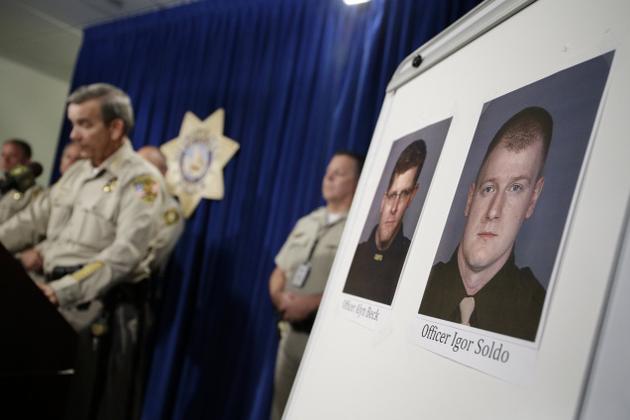 Couple kill 3, shoot self in Las Vegas Couple kill 3, shoot self in Las Vegas
A man and a woman ambushed two police officers eating lunch at a Las Vegas restaurant, fatally shooting them at point-blank range before fleeing to a nearby WalMart where they killed a third person and then themselves in an apparent suicide pact, authorities said Sunday.
The shooters walked into CiCi’s Pizza and gunned down Officers Alyn Beck (41) and Igor Soldo (31) Las Vegas police officials said. One of the officers was able to fire back before he died, but it’s unclear if he hit the suspects, Sheriff Doug Gillespie of the Las Vegas Metro Police Department said at a news conference Sunday afternoon.
One of the shooters yelled, “This is a revolution,” but a motive remains under investigation, Las Vegas police spokesman Larry Hadfield told The Associated Press. He added that “we don’t know anything about the suspects yet.”
After shooting the officers, the suspects fled to the WalMart across the street, where they killed a person inside the front door and exchanged gunfire with police before killing themselves, police said.
The female suspect shot the male suspect before killing herself, Mr. Gillespie said. The victim’s identity hasn’t been confirmed, and the suspects’ names haven’t been released.
Both officers were pronounced dead at University Medical Center. Mr. Beck had been with the department since 2001 and leaves behind a wife and three children. Mr. Soldo had been with the force since 2006 and is survived by a wife and baby, police said.
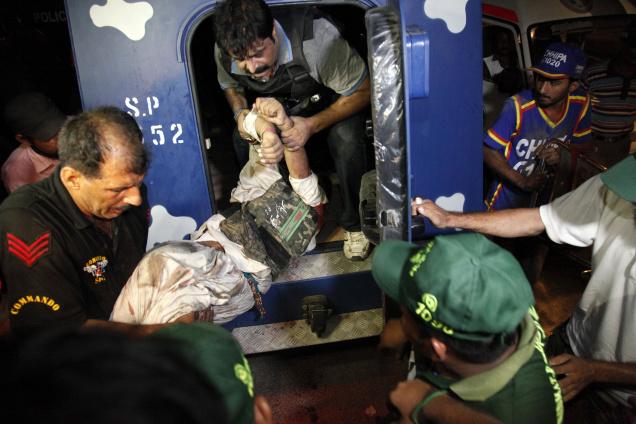 23 killed as terrorists attack Karachi airport 23 killed as terrorists attack Karachi airport
At least 23 persons, including 10 terrorists, were killed when heavily armed militants attacked the Jinnah International Airport in Pakistan’s commercial hub Karachi even as fresh firing was heard early Monday, hours after security forces declared an end to the assault.
“All 10 terrorists have been killed, the airport secured and they were unable to damage any aircraft or installations,” a spokesman of the military’s Inter Services Pubic Relations (ISPR) said.
The terrorists were cornered and killed after they attacked the old airport terminal building late last night, posing as Airport Security Force (ASF) personnel.
However, Express News reported that three militants are still present inside the airport as fresh firing was heard near Isphani Hangar, which is the aircraft overhaul facility of the airport.
Meanwhile, Geo TV reported that the Tehreek-e-Taliban Pakistan (TTP) has claimed responsibility for the attack.
The ISPR spokesman said that army units from the nearby Malir cantonment base, ASF commandos, paramilitary rangers and police had carried out the joint operation to clear the old airport area.
Sophisticated machine guns and rocket launchers were recovered from the slain terrorists who were being identified, he said.
For nearly six hours the Jinnah international airport which is close to the old airport terminal was shut down and all flights diverted as exchange of gunfire took place and heavy plumes of smoke and fire could be seen rising from inside the runaway area where the terrorists took cover in the hanger and engineering workshops.
Several loud explosions were also heard but the spokesman confirmed that no aircraft was damaged nor any important assets or installations damaged during the operation.
Sagheer Ahmed, the Sindh minister for health, told reporters that 13 people were killed in the attack.
“Those martyred include the ASF personnel, civilian engineers and personnel of CAA and PIA and a police officer while a dozen have also been injured and are admitted to hospital,” he said.
Defence Minister Khawaja Asif described the attack as cowardly and said it was another example of how terrorists were trying to destroy important installations and locations of the government.
“But I can tell you these terrorists will not succeed in their aims and will be defeated,” Mr. Asif said.
The attack was reminiscent of the deadly raid carried out by some 15 militants of the Tehreek—e—Taliban in May, 2011 on the Mehran naval airbase here in which the attackers killed some 18 personnel and damaged aircraft before being killed in a counter—attack.
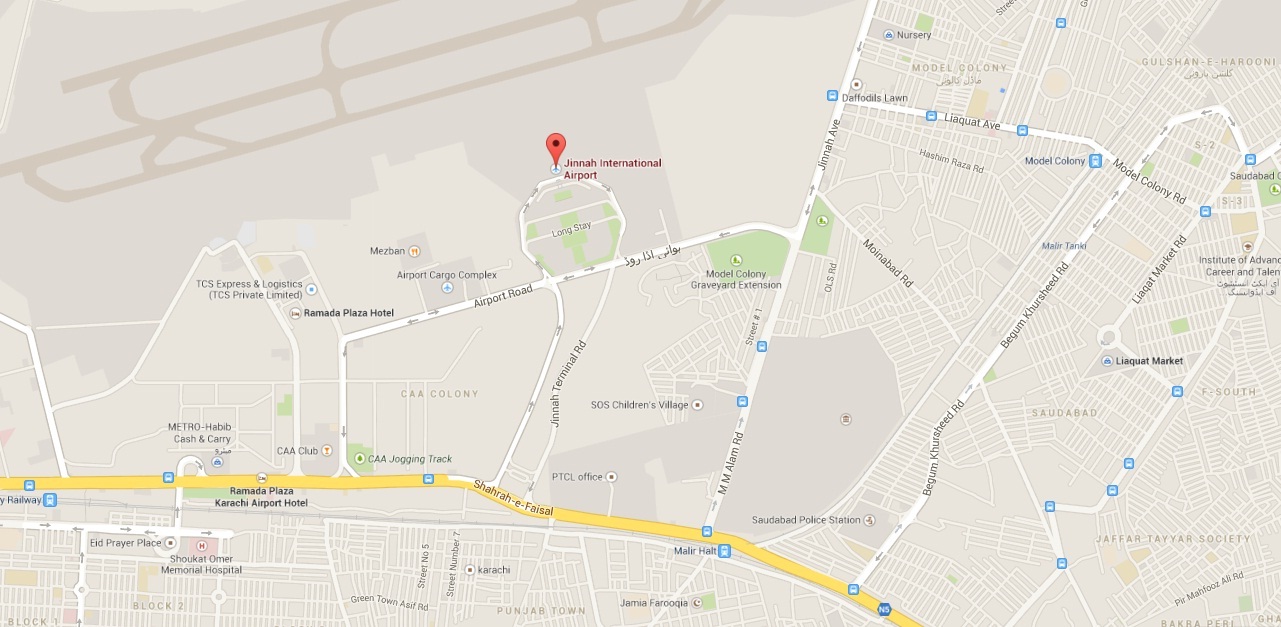 4 security men, 2 militant killed in attack on Karachi airport 4 security men, 2 militant killed in attack on Karachi airport
At least five persons, including four security personnel, were killed tonight when heavily armed militants attacked the Jinnah International Airport's old terminal in Pakistan's financial capital Karachi.
Around five to eight men armed with explosives and ammunition dressed in airport security personnel uniforms entered the Fokker building at the old airport terminal, police sources said. "Four personnel of the Airport Security Force (ASF) have been killed and one militant gunned down," one police source told PTI.
Heavy contingents of paramilitary rangers and police have been called in and had surrounded the Fokker building where the attackers were holed up.
All flight operations at Jinnah Terminal have been suspended and all routes to the airport have been sealed. "Heavy firing is going on near a building located just next to the Pakistan International Airlines head office," one eye witness said.
The old airport area houses the PIA engineering and other departments and also offices of civil aviation and ASF.
Television footage showed a loud explosion inside the old airport terminal while heavy firing also continued to go on.
A source said the militants had also carried out hand grenade attack was on the Isphani Hanger. The attackers are said to have forged fake ID cards of ASF and entered the area. Staff is being rescued by the security personnel and moved to safer areas, reports said, adding that rescue teams are being allowed after being checked throughly.
The militants are said to have entered from the Fokker gate which is used by engineering staff to go to the runaway and hangers.
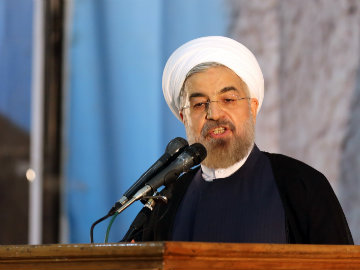 Iran President Hassan Rouhani Visits Turkey Hoping to Fix Troubled Ties Iran President Hassan Rouhani Visits Turkey Hoping to Fix Troubled Ties
Ankara, Turkey: Iran's president begins a landmark trip to Turkey on Monday as the two countries try to build trade ties despite an often fraught competition for regional influence and deep differences over the Syrian war.
Iranian President Hassan Rouhani will meet his Turkish counterpart Abdullah Gul and Prime Minister Recep Tayyip Erdogan in Ankara, where the powerful neighbours are expected to discuss security concerns as well as trade opportunities.
The two sides have had a complex and often dysfunctional relationship, which has taken an especially bitter turn in recent years as a result of increasing competition between Sunni and Shia Muslim powers across the region.
This has become more pronounced following the onset of the Syrian civil war, in which the two have found themselves on opposite sides.
Iran, a Shia theocracy, is the chief backer of Syrian President Bashar al-Assad, while Sunni-majority Turkey has moved from trying to encourage reform in Syria to overtly supporting the armed opposition.
The two also compete for influence in Iraq, Central Asia and the Caucasus.
Even on areas where they might be thought to cooperate -- such as Kurdish separatism -- they have often sought to undermine each other. Both Turkey and Iran face a threat from Kurdish rebels who wish to break away and form their own country. But instead of cooperating, the two governments have sponsored rebels in the others' backyard over the years.
In 2012, Turkish media reported government claims that more than 100 Iranian agents were active in Turkey, working on behalf of the Kurdistan Worker's Party (PKK) - a Kurdish rebel group that fights for autonomy for Kurds.
"We have agreements as well as disagreements," was the summation of the Iranian embassy spokesman in Ankara last week.
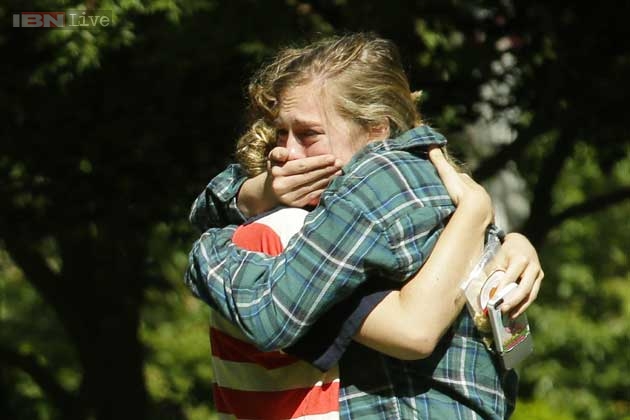 Seattle student pepper-sprayed, tackled gunman Seattle student pepper-sprayed, tackled gunman
Seattle: The man blasting away with a shotgun paused to reload, and Jon Meis saw his chance. The 22-year-old building monitor pepper-sprayed and tackled the gunman Thursday in Seattle Pacific University's Otto Miller Hall, likely preventing further carnage, according to police and university officials.
Meis and other students subdued the gunman until officers arrived and handcuffed him moments later. Police said the shooter, who killed a 19-year-old man and wounded two other young people, had 50 additional shotgun shells and a hunting knife.
He told authorities after his arrest that he wanted to kill as many people as possible before taking his own life, Seattle police wrote in a statement filed in court Friday. Friends credited Meis with saving lives.
"I'm proud of the selfless actions that my roommate, Jon Meis, showed today taking down the shooter," fellow student Matt Garcia wrote on Twitter. "He is a hero."
The suspect, 26-year-old Aaron R. Ybarra, has a long history of mental health problems for which he had been treated and medicated, said his attorney, public defender Ramona Brandes. He is on suicide watch at the jail. "He is cognizant of the suffering of the victims and their families and the entire Seattle Pacific community," Brandes said. "He is sorry."
Meis, a dean's list electrical engineering student, was emotionally anguished but not injured in the shooting, Harborview Medical Center spokeswoman Susan Gregg said Friday. He was treated there and released. Roman Kukhotskiy, 22, was in the building when the violence broke out. He said Meis is getting married this summer and has accepted a job with Boeing Co., where he has interned in previous years. "I was amazed that he was willing to risk all that for us," Kukhotskiy said. "If Jon didn't stop him, what's to say? I could have been the next victim."
The leafy campus of the private, Christian university about 10 minutes north of downtown Seattle was quiet the morning after the shooting, with a service held at midday. People stopped to pay their respects at a makeshift memorial near the science and engineering building where the shooting occurred.
Seattle Mayor Ed Murray identified the student killed as Paul Lee, a "Korean-American student with a bright future." The gunman had just entered Otto Miller Hall when he opened fire in the foyer. Classes were taking place upstairs.
On Friday, Ybarra wore a protective vest at his appearance in a jailhouse courtroom. A judge found probable cause to keep him detained without bail at the King County Jail. Ybarra was hospitalized for mental health evaluations twice in recent years, said Pete Caw, assistant police chief in Ybarra's hometown, the north Seattle suburb of Mountlake Terrace.
In 2010, officers responded after Ybarra, heavily intoxicated, called 911 to report that he "had a rage inside him" and wanted to hurt himself and others, according to a report released by Mountlake Terrace police. In 2012, police found Ybarra lying in a roadway, again severely intoxicated. He told officers he wanted a SWAT team "to get him and make him famous," a police report said.
Both times, police took Ybarra to Swedish Hospital in Edmonds for evaluation, Caw said. He was arrested on suspicion of DUI in nearby Edmonds in 2012, said Edmonds police Sgt. Mark Marsh. Ybarra's family said in a statement they were shocked and saddened by the shootings. "We are crushed at the amount of pain caused to so many people," the statement said. "To the victims and their families, our prayers are with you."
Ybarra is not a Seattle Pacific student, police said. His friend Zack McKinley described him as "super happy and friendly," The Seattle Times reported.
McKinley said the attack was puzzling because Ybarra was happy to have just started a job bagging groceries. Ybarra could get emotionally low but had a good group of friends, McKinley said.
Late on Thursday, investigators searched a Mountlake Terrace house believed to be tied to Ybarra. Wounded in the shooting were Sarah Williams, 19, who remained in intensive care Friday after a five-hour surgery, and Thomas Fowler, 24. Hospital spokeswoman Gregg said Fowler was discharged Friday afternoon.
Meis, who graduated from Seattle Christian Schools in SeaTac, kept a low profile the day after the shooting. An outgoing voice message at a phone listing for his parents' home in Renton said, "We ask that you please respect our privacy during this time while we recover." It solicited prayers for students and the family of the man killed.
Salomon Meza Tapia, a friend who serves with Meis on the board of a student engineers group, described him as a hardworking student who is "always super chill."
"I am not surprised he was cool and collected enough to take action," he wrote in an email to The Associated Press. "I was in the building, and I can say he definitely saved our lives. I am thankful to be alive and thank God for Jon Meis' courage and actions."
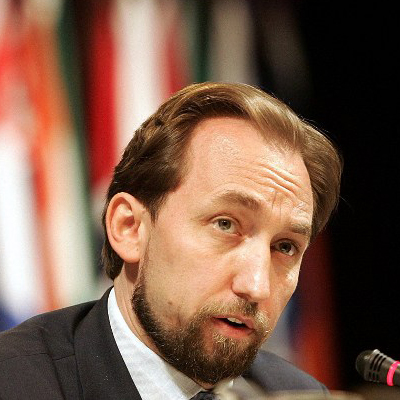 Jordan's UN envoy Prince Zeid Ra'ad Zeid al-Hussein proposed as new UN human rights chief Jordan's UN envoy Prince Zeid Ra'ad Zeid al-Hussein proposed as new UN human rights chief
United Nations Secretary-General Ban Ki-moon on Friday proposed that Jordan's UN ambassador, Prince Zeid Ra'ad Zeid al-Hussein, replace Navi Pillay as the United Nations' human rights chief based in Geneva, the world body's press office said.
The nomination will now go to the 193-nation UN General Assembly for approval. Several UN diplomats said there was unlikely to be any resistance to the appointment given that Prince Zeid is generally popular and has established a solid reputation as a human rights advocate.
Prince Zeid, a graduate of Johns Hopkins University and Cambridge University, has previously served as Jordan's ambassador to the United States and Mexico. He was also a political affairs officer in the United Nations Protection Force (UNPROFOR), the UN peacekeeping mission in the former Yugoslavia during the Balkan conflict. Last year Prince Zeid was among the UN envoys who called for a boycott of a UN meeting on international justice the United States and others described as "inflammatory" and a forum to merely complain about the treatment of Serbs in war crimes tribunals. The session was organised by a Serbian politician who chaired the General Assembly at the time.
If approved as UN High Commissioner for Human Rights, Prince Zeid will replace Pillay, a South African jurist who in 2012 was given an abbreviated second term of only two years due to criticism the United States, which disliked her criticism of Israel, UN diplomats said at the time. In 2012, Syria also made clear it was not a fan of Pillay, whom the Syrian delegation described as "hostile" towards the government of President Bashar al-Assad because of its approach to the country's civil war, now in its fourth year.
Pillay has accused the Syrian government of war crimes and called for the conflict to be referred to the International Criminal Court in the Hague. Last month Russia and China vetoed a French-drafted resolution that would have brought the Syrian conflict to the International Criminal Court (ICC).
The Jordanian diplomat who will replace Prince Zeid as Amman's UN ambassador is Dina Kawar, who will become the sixth female to head a delegation on the UN Security Council. Jordan will be on the 15-nation council through the end of 2015.
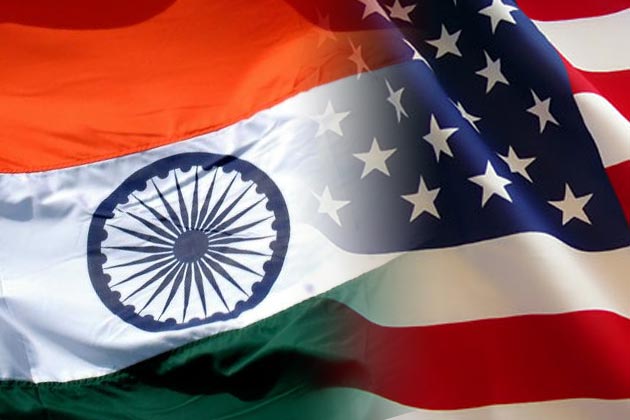 No dates finalised yet for PM Modi's Washington visit: US No dates finalised yet for PM Modi's Washington visit: US
Washington: The US has said that no dates have been finalised yet for Prime Minister Narendra Modi's Washington visit.
"On Prime Minister Modi's possible travel to the United States nothing to announce on dates," State Department Deputy Spokesperson Marie Harf told reporters.
"As (US) President (Barack) Obama and Secretary (of State, John) Kerry have both said, we look forward to welcoming the Prime Minister to Washington, just don't have any dates yet. I know there are a lot of reports out there about dates, but we don't have dates yet," Harf said in response to a question.
Prime Minister Modi has accepted Obama's invitation for a meeting in late September and the dates are being finalised, official sources in New Delhi had said earlier this week.
The invitation for the meeting came during the congratulatory call to Modi by Obama after the Lok Sabha election results were out.
In New Delhi, the Spokesperson in the External Affairs Ministry yesterday said Obama was among the first foreign leaders to make a congratulatory call to Modi during which a specific invitation was made.
"We have received a specific date for the visit (from the US). We are now in contact with the US to work out mutually convenient date for Prime Minister to be in Washington for a Summit-level meeting," the Spokesperson said.
However, he did not give dates and only said it will be in the month of September, at the time around the UN General Assembly.
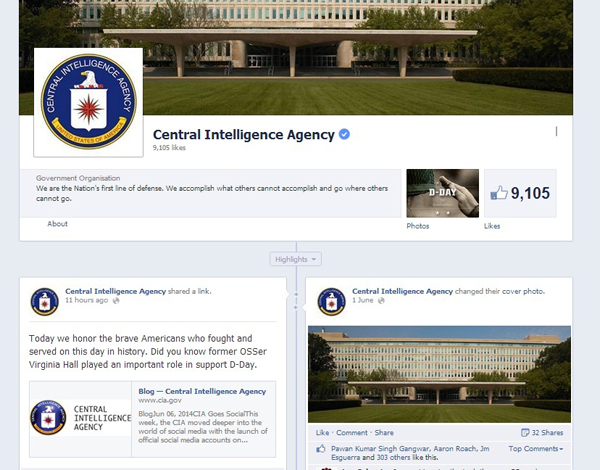 US spy agency CIA joins Facebook, Twitter US spy agency CIA joins Facebook, Twitter
The United States' Central Intelligence Agency (CIA), which has long trolled social media to try to uncover global trends and track evil-doers, officially joined Twitter and Facebook on Friday.
The spy agency cast the move as an effort to better get out its message and engage directly with the public, but its first Twitter message, sent out shortly before 2 pm EDT (1800 GMT), did not indicate there would be major revelations. It said simply: "We can neither confirm nor deny that this is our first tweet."
The lack of content did not dampen interest: in less than 90 minutes, the CIA account had nearly 84,000 followers, and that number was climbing fast.
The CIA has long had a public website, and maintains official accounts on YouTube and Flickr, the photo-sharing site. "By expanding to these platforms (Facebook and Twitter), CIA will be able to more directly engage with the public and provide information on CIA's mission, history, and other developments," CIA Director John Brennan said in a statement.
Among the items to be posted are artifacts from the CIA's (non-public) museum, and updates to its "World Factbook," a compendium of world leaders, maps and similar information.
Critics say the Obama administration is more secretive than its predecessors. It has cracked down on once-normal interactions between reporters and intelligence officials.
In recent directives, Director of National Intelligence James Clapper has banned intelligence officials from speaking to reporters without permission, even about unclassified information, and also from citing news articles based on unauthorized disclosures.
The CIA's Facebook page is www.facebook.com/central.intelligence.agency. Its Twitter "handle" is @CIA.
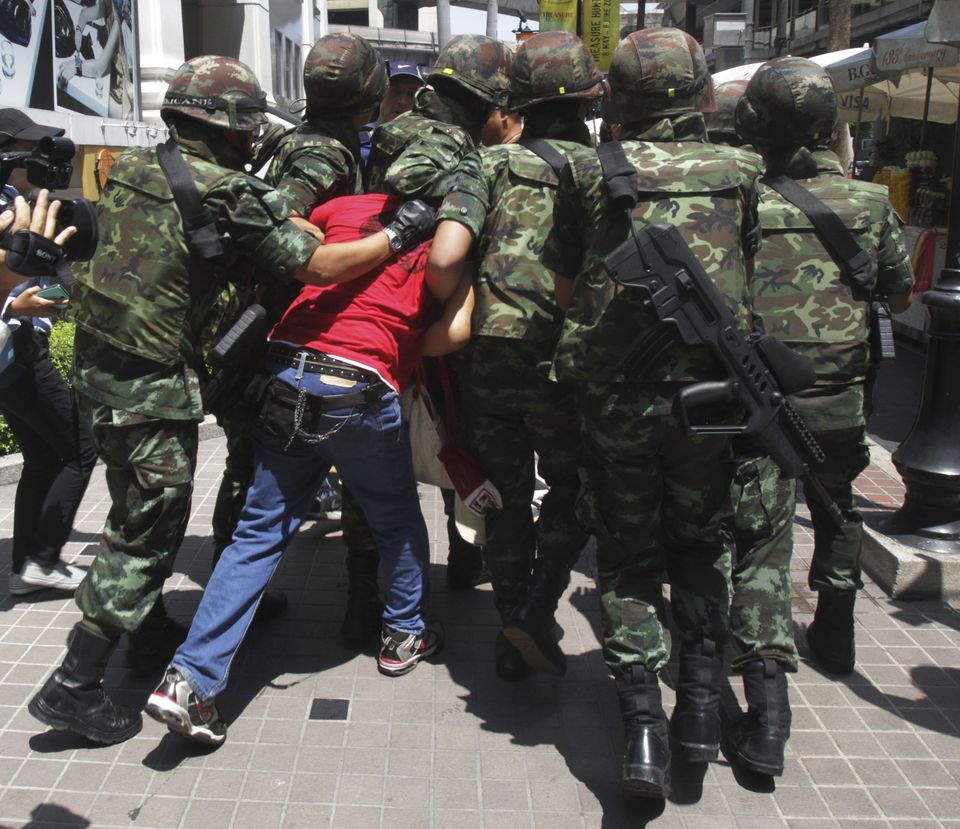 Thailand's junta detains anti-coup leader Thailand's junta detains anti-coup leader
BANGKOK: Thailand's junta on Friday said that it had captured a fugitive anti-coup leader facing possible imprisonment, as the ruling generals seek to stamp out any criticism of their seizure of power.
Sombat Boonngamanong, who spearheaded an online campaign to stage illegal flashmob rallies against the military takeover, was arrested late on Thursday in Chonburi province southeast of Bangkok, army spokeswoman Sirichan Ngathong said.
"We have a team who tracked him through the internet," she told AFP. "He faces initial charges of violating an order to report to the junta," she said, an offence that carries a possible punishment of two years in prison.
Sombat was one of several hundred people — including politicians, activists, academics and journalists — summoned by the military following its May 22 coup.
Those who attended were detained in secret locations for up to a week and ordered to cease political activities.
Sombat, a prominent pro-democracy activist, refused to turn himself in, instead posting a message on Facebook saying: "Catch me if you can".
Since then he has urged followers to stage peaceful public demonstrations, flashing the three-finger salute from "The Hunger Games" films that has become a symbol of defiance against the junta.
A second military official said Sombat would be detained at an army facility for up to one week.
"During that time the military will question him on his movements, behaviour and his incitement," said the official, speaking on condition of anonymity.
Sombat would then face further interrogation by the police and appear before a military court, he added.
The activist is the leader of a faction of the "Red Shirts" movement, which broadly supports fugitive former premier Thaksin Shinawatra and his sister Yingluck, who was deposed as prime minister last month.
A minister in Yingluck's ousted cabinet who also refused to answer the summons was detained by soldiers in a dramatic swoop on a press conference late last month, and faces trial in a military court.
If convicted, ex-education minister Chaturon Chaisang could be imprisoned. He had used a press conference to criticise the coup minutes before being arrested.
Chaturon was due to appear in court on Friday for a second remand hearing.
Yingluck was herself summoned and held temporarily at an undisclosed location after the coup.
The junta says she has since been released and allowed to return home although she remains under military supervision and has not been seen in public since.
Yingluck had faced nearly seven months of mass opposition protests leading up to the coup. Shootings and grenade attacks linked to the rallies left 28 people dead and hundreds wounded, including many opposition demonstrators.
The junta has imposed martial law, media censorship and a night-time curfew as part of what it says is an attempt to end years of political turmoil.
It mounted a show of military strength over the weekend, deploying soldiers to deter small but defiant anti-coup rallies that popped up outside shopping malls and near train stations in Bangkok.
Critics see the coup as a pretext for a long-planned power grab by the military-backed royalist establishment to purge politics of the influence of Thaksin, who was himself ousted by the army in 2006.
The billionaire tycoon-turned-populist politician lives in Dubai to avoid jail for a corruption conviction.
Thaksin or his allies have won every election in more than a decade, helped by strong support in the northern half of the country, including in 2011 under Yingluck.
The junta has said elections are not expected to be held for at least a year to allow political "reforms" including the drafting of a new constitution, despite international appeals for a return to democracy.
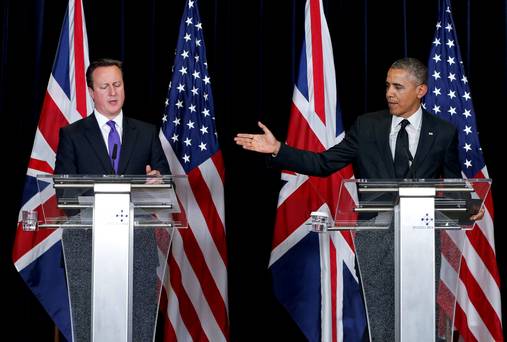 Britain and US threaten tough new sanctions against Russia Britain and US threaten tough new sanctions against Russia
The violence in eastern Ukraine sparked a frenzy of high-level meetings in Brussels, Paris and Normandy aimed at reconciling Russia and Ukraine.
Mr Putin held his first face-to-face meetings with Western leaders: British Prime Minister David Cameron and French President Francois Hollande last night, and will meet with German Chancellor Angela Merkel later today. There's hope that Mr Putin could also talk with Ukraine's new president-elect.
Mr Obama and Mr Cameron spelled out new demands for Russia at a joint news conference after a Group of Seven world leader summit. Mr Putin was meant to have hosted the summit in Sochi, but the G-7 countries cancelled that after his aggressive moves in Ukraine, and met without him in Brussels.
It was the group's first summit in two decades without the participation of Russia.
The US and Europe, after imposing economic sanctions on Russia in recent months, are considering toughening them.
To avoid even harsher sanctions, Mr Cameron said Mr Putin must meet three conditions: recognise Petro Poroshenko's election as the new leader in Kiev, stop arms from crossing the border and cease support for pro-Russian separatist groups concentrated in eastern Ukraine.
"If these things don't happen, then sectoral sanctions will follow," Mr Cameron said. "The next month will be vital in judging if President Putin has taken these steps."
After meeting Mr Putin, Mr Cameron said he sent a "very clear and firm set of messages" about the crisis in Ukraine and said the status quo was "not acceptable".
Mr Obama said the G-7 leaders unanimously agree with the steps Mr Cameron outlined.
"If Mr Putin takes those steps, then it is possible for us to begin to rebuild trust between Russia and its neighbours and Europe," Mr Obama said. "We will have a chance to see what Mr Putin does over the next two, three, four weeks, and if he remains on the current course, then we've already indicated the kinds of actions that we're prepared to take."
Mr Obama acknowledged that so-called sectoral sanctions, which would hit key sectors of Russia's economy, could have a bigger impact across Europe because of European economic ties to Russia, and said he didn't necessarily expect all European countries to agree on them.
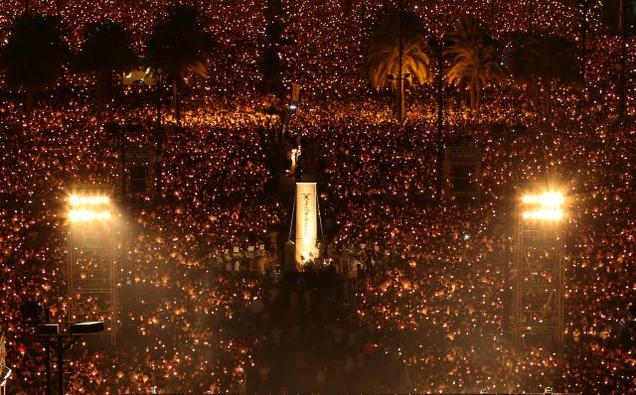 China blasts Obama remarks on Tiananmen crackdown China blasts Obama remarks on Tiananmen crackdown
China has hit out at United States President Barack Obama and the White House for “gravely interfering in China’s internal affairs” over statements issued on the 25th anniversary of the Tiananmen Square crackdown.
Beijing late on Wednesday lodged “solemn representations” over the statements, officials said.
Speaking in the Polish capital Warsaw, Mr. Obama unexpectedly — and for the first time in a major address — referred to the June 4, 1989 crackdown. “On the same day 25 years ago that Poles were voting here,” he said, “tanks were crushing peaceful democracy protests in Tiananmen Square on the other side of the world. The blessings of liberty must be earned and renewed by every generation —including our own.”
In a separate statement, the White House said it would “always speak out in support of the basic freedoms the protesters at Tiananmen Square sought.”
“The American people and government applaud China’s extraordinary social and economic progress over the past three decades and value good relations with the Chinese people and government,” the statement added. “Even as we continue our co-operation on areas of common interest, the United States will continue to be clear about our differences, and urge the Chinese government to guarantee the universal rights and fundamental freedoms that are the birthright of all Chinese citizens.”
Foreign Ministry spokesperson Hong Lei blasted the statement as “a total disregard of fact” and said China had lodged “solemn representations.”
“The U.S. statement on that incident… blames the Chinese government for no reasons, gravely interferes in China’s internal affairs and violates the basic norms guiding international relations,” he said, adding that China was “strongly dissatisfied.”
The spat over Tiananmen follows increasing strains between Beijing and Washington over cyber-security issues and the South China Sea. China was angered by the U.S. indicting serving PLA personnel over alleged hacking, responding by threatening to clamp down on U.S. technology firms operating in China. More recently, comments by Defence Secretary Chuck Hagel at a regional security forum in Singapore blaming China for “destabilising” the region through territorial spats brought sharp responses from PLA officials.
Mr. Hong said China urged the U.S. “to abandon political bias” and “stop using the so-called human rights issues to interfere in China’s internal affairs.”
He repeated China’s official position that the government reached a “conclusion” over the “political turmoil” and that its stand had been vindicated by the past two decades of rapid growth.
At the same time, Beijing has remained wary of allowing any debate in China over the crackdown, detaining activists in recent weeks and deploying massive security in the capital ahead of the anniversary.
There were consequently no commemorations in the mainland, although thousands turned out in Hong Kong and in Taiwan to mark the anniversary.
In Taipei, around a 1,000 people attended an event to remember the crackdown. Former student leader Wu’er Kaixi, in exile in Taiwan, and prominent Chinese dissidents spoke at the event, pledging to continue their efforts to push for political reforms in the mainland and calling for support from Taiwan’s people.
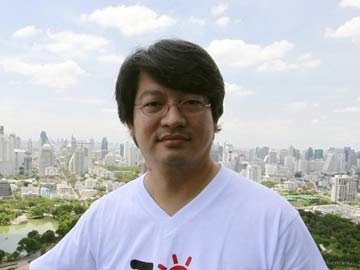 Thai Junta Tracks Internet Posting to Capture Protest Leader Thai Junta Tracks Internet Posting to Capture Protest Leader
Bangkok: Thailand's security forces have tracked down and detained a prominent activist who helped organise protests against last month's military coup from comments he posted on the Internet, officials said on Friday.
Sombat Boonngamanong was caught in Chonburi province east of Bangkok late on Thursday, traced via the Internet network he was using, said Major General Pisit Pao-in, head of a technology crime division at the Information and Communication Technology Ministry.
"Soldiers and police were informed of the IP address used by Sombat to post comments so we searched a house in Chonburi and found Sombat there. We detained him. He is now with the army at an army base in Chonburi," Pisit told Reuters on Friday.
"The case is now with the army and it will investigate and decide how to proceed next."
The detention was the latest in the military crackdown on pro-democracy dissidents and supporters of ousted Prime Minister Yingluck Shinawatra.
Yingluck, her ministers and prominent supporters of the Shinawatras have been detained, most for brief periods, and warned against anti-military activity.
The military has not said how many people are being kept in custody.
The coup was the latest chapter in a decade-long conflict between the Bangkok-based royalist establishment, dominated by the military and old-money families, and supporters of Yingluck and her brother, ousted former premier Thaksin Shinawatra, who are adored by the poor in the north and northeast.
Yingluck was prime minister until May 7, when a court found her guilty of abuse of power and she stepped down. The army toppled the remnants of her government on May 22, saying it needed to restore order after sometimes deadly protests since November that had brought the economy close to recession.
Since then the junta has moved to suppress criticism and nip protests in the bud.
Sombat had refused to turn himself in to the military authorities after being summoned following the coup.
In contravention of the junta's ban on political gatherings of more than five people, he had helped organise protests via social media that were an irritant to the military without threatening its grip on power, the military said.
Last Sunday, the ruling military council sent 5,700 troops and police sent into central Bangkok to stop anti-coup protests as soon as they sprang up. Most were small events held around shopping malls. Very few protests have been seen this week.
Sombat had helped organise regular demonstrations to mark a crackdown by the military on the "red shirts" in May 2010 that ended a lengthy protest during which more than 90 people died.
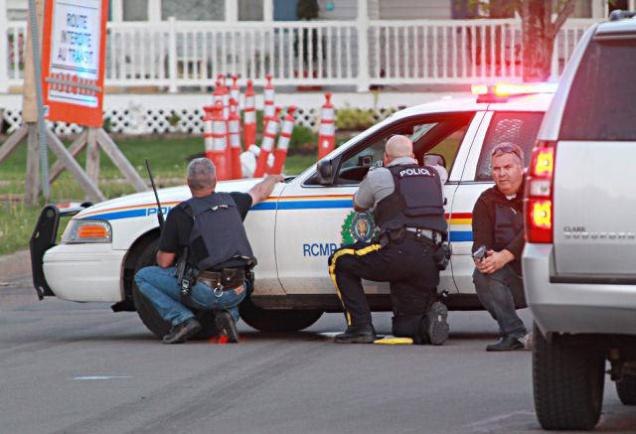 Three cops killed in Canada shooting Three cops killed in Canada shooting
Three police officers were shot dead and two others injured in the east coast Canadian province of New Brunswick, officials said, and authorities were searching for a suspect.
The Royal Canadian Mounted Police in New Brunswick confirmed on its Twitter feed that three officers were dead on Wednesday and two others had sustained non-life threatening injuries. Police spokesman Paul Greene confirmed the deaths.
The RCMP said on Twitter that they were looking for 24-year-old Justin Bourque of Moncton. The police force tweeted an image of a suspect wearing military camouflage and wielding two guns.
Constable Damien Theriault said police are urging people in the area to stay inside their homes and lock their doors.
Drivers were also asked to stay out of the area.
Such violence is rare in Canada, particularly on Canada’s East Coast.
The Horizon Health Network, a provincial health authority, said on its Twitter feed that two patients were taken to Moncton Hospital with gunshot wounds.
Theriault said earlier the search for the suspect was concentrated around two streets.
Sean Gallacher, who lives near the area where police were concentrating their search, said he heard what he now believes were gunshots but initially thought his daughter had dropped some toys on the floor above him.
“I was downstairs and heard a few bangs,” said Gallacher, 35.
Canadian Public Safety Minister Steven Blaney tweeted that he was “shocked by the tragedy” and that his thoughts and prayers were with frontline RCMP officers.
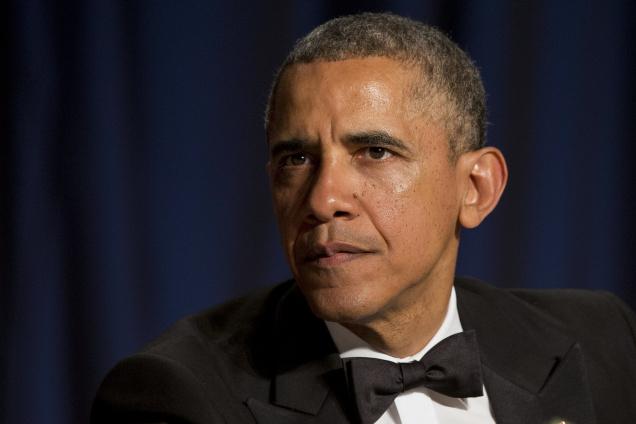 Obama suspends Iran oil sanctions for six months Obama suspends Iran oil sanctions for six months
'Tehran is fully co-operating with the US-led international community to address their concerns about its nuclear weapons programme' With Iran complying with its commitment on a controversial nuclear weapons programme, US President Barack Obama has suspended his action on Iranian oil sanctions for the next six months.
Even though there is enough oil in the international market for countries like India and China to reduce their dependence on Iranian oil, so as to avoid US sanctions as per Congressional Act, Mr. Obama determined that there is no need to do so for the next six months as Tehran is fully co-operating with the US-led international community to address their concerns about its nuclear weapons program, the White House said on Wednesday.
“While market conditions suggest that there is sufficient supply to permit additional reductions in purchases of Iranian oil, the United States has committed to Obama suspends Iran oil sanctions for six months and
pause efforts to further reduce Iran’s crude oil sales for a six month period under the Joint Plan of Action between the P5+1 and Iran,” the White House Press Secretary, Jay Carney said.
“In return for this and other limited relief measures, Iran has committed to take steps that halt and in key respects roll back progress on its nuclear programme.
The International Atomic Energy Agency has verified that Iran is complying with these commitments,” he said.
The analysis contained in the Energy Information Administration’s report of April 24, indicates that global oil consumption has exceeded production in recent months, he said, adding that this resulted in a small withdrawal from global oil stocks, in line with rates earlier this year.
“Global oil supply disruptions in recent months increased compared with earlier this year, but the resulting supply reduction was offset by increased petroleum production, particularly in the United States,” Mr. Carney said.
Global surplus crude oil production capacity has increased modestly in recent months but remains lower than a year ago, he noted.
Oil inventories among members of the Organisation for Economic Cooperation and Development are three per cent below year ago levels, he said.
The Brent crude oil price remains near $ 110 per barrel, in line with the price level 6 months ago when the last determination was made, he added.
“While these factors indicate general market tightness, they also indicate there currently appears to be sufficient supply of non-Iranian oil to permit foreign countries to reduce significantly their purchases of Iranian oil, taking into account current estimates of demand, increased production by countries other than Iran, inventories of crude oil and petroleum products, and available spare production capacity,” Mr. Carney said.
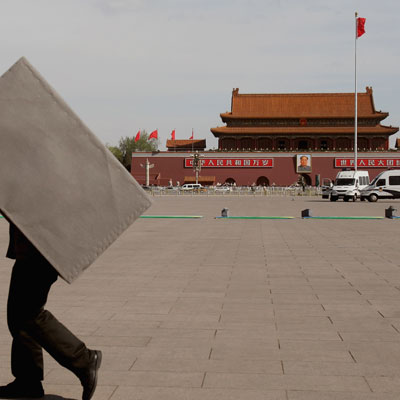 Hong Kong recalls Tiananmen killings, China muffles dissent Hong Kong recalls Tiananmen killings, China muffles dissent
Tens of thousands of people held a candlelight vigil in Hong Kong on Wednesday to mark the bloody crackdown on pro-democracy protesters 25 years ago in Beijing's Tiananmen Square, while mainland China authorities sought to whitewash the 1989 event.
In Beijing, police flooded the streets around the square, scene of the worst of the violence a quarter of a century ago, and censors scrubbed the Internet clean of any mention of the rare open display of defiance against the Communist Party.
In Hong Kong, which returned to Chinese rule in 1997 but remains a free-wheeling, capitalist hub, demonstrators holding candles and clad mainly in black gathered in a downtown park and called on Beijing to atone for the killings.
A large number of mainland Chinese also flocked to commemorate the crackdown in the former British territory, where a vigil has been held every year since the massacre. Organisers said some 180,000 people took part on Wednesday evening. "Hong Kong is a free society where you can speak out. In China, the Communist Party dictates everything," said Chen Jing Gen, in his 60s, who travelled from the southern Chinese city of Shenzhen to attend the vigil.
"People in mainland China are mostly aware of June 4, but due to the control of the Party no one dares to talk about it," he said.
The United States led international calls for China to account for what happened on June 4, 1989. The comments riled China, which has said the protest movement was "counter-revolutionary".
Exiled Tibetan spiritual leader the Dalai Lama also used the anniversary to call on China to embrace democracy.
China has never released a death toll from the crackdown after troops shot their way into central Beijing, but estimates from human rights groups and witnesses range from several hundred to several thousand.
Public discussion of Tiananmen is forbidden in China and online references to it are heavily censored, leaving many of the country's youth ignorant of what happened.
"I had never heard of the Tiananmen incident until I was studying in the United States when I was 18," said a 25-year-old woman surnamed Lan, who was visiting Hong Kong from Beijing.
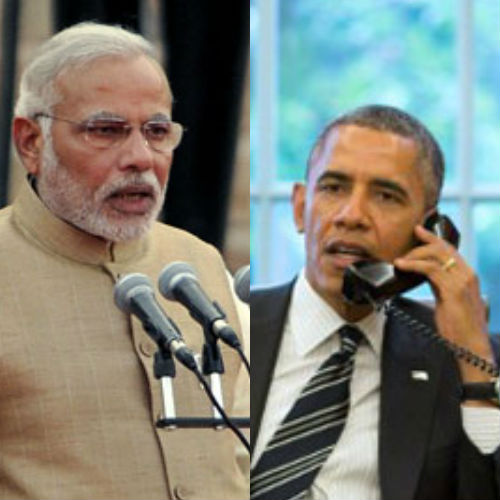 Narendra Modi to meet Barack Obama in Washington in September Narendra Modi to meet Barack Obama in Washington in September
Indian Prime Minister Narendra Modi will visit Washington to meet President Barack Obama in September, two Indian newspapers reported on Thursday, signalling a new start in ties with a leader once denied a visa by the United States.
Modi, who swept to power in a general election last month, has accepted an invitation from Obama for two-way talks in Washington, the Times of India and the Hindustan Times said.
No comment was immediately available from the Indian government press office or from the U.S. embassy.
Both countries are keen to boost security and economic ties - the Obama administration has set a goal of quintupling annual trade to $500 billion.
Scheduling has still to be finalised, but the summit would represent an upgrade from earlier expectations that Modi, 63, would meet Obama on the sidelines of the annual United Nations general assembly in New York.
Modi, a former chief minister of Gujarat, had been refused a U.S. visa over sectarian strife in the state in 2002, in which more than 1,000 people, mainly Muslims, were killed. He has denied any wrongdoing and an Indian Supreme Court inquiry found no case to answer.
The U.S. ambassador to India met Modi earlier this year, as opinion polls showed his Bharatiya Janata Party (BJP) on course for an election victory. U.S. officials had said a visa and an invitation to meet would probably be forthcoming if Modi won.
Modi wants to cautiously open up the Indian economy to foreign investment to boost growth and job creation.
His government may announce as soon as next month that it will allow foreign online retailers to sell their own products in India, creating a major business opportunity for players such as Amazon.
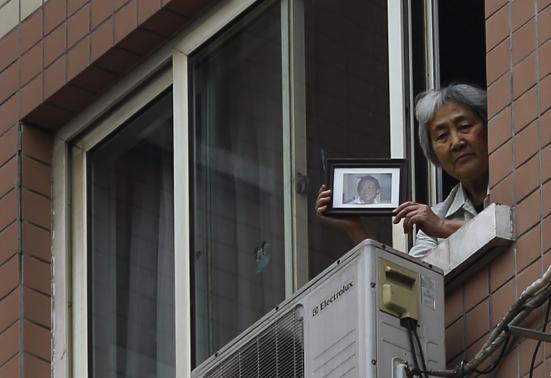 China keeps close watch as Tiananmen anniversary arrives China keeps close watch as Tiananmen anniversary arrives
BEIJING: Twenty-five years ago, Wang Nan took his camera and headed out to Beijing's Tiananmen Square, where tens of thousands of people had gathered calling for democratic reforms. The 19-year-old told a friend he wanted to record history.
Before he left his home late on June 3, 1989, he asked his mother:"Do you think the troops would open fire?" She said she did not. Around three hours later, he was shot dead by soldiers.
As his 77-year-old mother, Zhang Xianling, prepares to mark the 25th anniversary of her son's death, she is under around-the-clock surveillance by eight police and security officers.
Zhang said the level of scrutiny this year was unprecedented. As early as April, police officers barred foreign journalists, including Reuters reporters, from visiting her home.
"I find it ridiculous, I'm an old lady," Zhang told Reuters by telephone. "What can I say (to reporters)? I don't know any state secrets. All I can talk about is the matter concerning my son. What is there to be afraid of?"
The Chinese Communist Party's harshest crackdown on political dissent in recent years would suggest plenty.
As Wednesday's big anniversary of the bloody repression of pro-democracy protests in Tiananmen Square approached, authorities deployed hundreds of police, many armed with rifles, to patrol the area.
Rights group Amnesty International said at least 66 people have been detained in connection with the anniversary, and major Chinese internet sites censor references to the day on which hundreds, possibly thousands of unarmed civilians were killed.
For Zhang, whenever she wants to travel anywhere she is driven in a police car. Two police officers walk with her when she goes to the market.
In previous years, Zhang said she was usually guarded by three to five police officers who would appear outside her home a month before the anniversary.
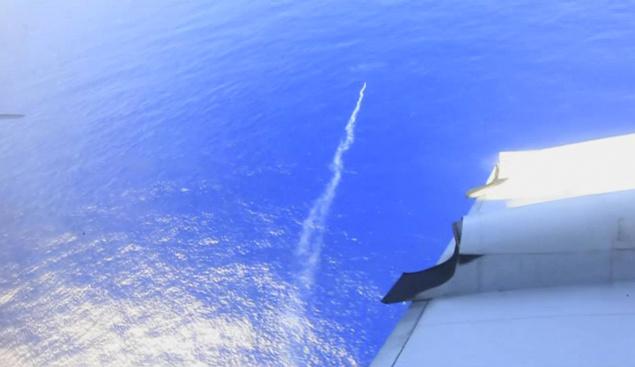 Underwater sound examined for links to missing jet Underwater sound examined for links to missing jet
A team of Australian researchers looking into the disappearance of Malaysia Airlines Flight 370 released data on Wednesday about an unusual underwater sound recorded around the time the plane vanished, though the lead scientist acknowledged the chances it is linked to the jet are slim.
The low-frequency sound was picked up by underwater listening devices in the Indian Ocean off the west coast of Australia on March 8, the same day the Boeing 777 disappeared on a flight from Kuala Lumpur, Malaysia, to Beijing with 239 people on board. Researchers at Curtin University in Western Australia have been analyzing the signal to see if it may be the sound of the plane crashing into the ocean.
But Alec Duncan, who’s heading up the research, said the sound appears to have originated well outside the jet’s projected flight path that officials determined based on satellite and radar data, and is therefore unlikely to have come from the plane.
“It’s one of these situations where you find yourself willing it all to fit together but it really doesn’t,” said Duncan, senior research fellow with Curtin’s Center for Marine Science and Technology. “I’d love to be able to sit here and say, ‘Yeah, we’ve found this thing and it’s from the plane’ but the reality is, there’s a lot of things that make noise in the ocean.”
The noise could have come from a natural event, such as a small earthquake, Duncan said. He put the chances of it being linked to Flight 370 at less than 20 percent.
Soon after the search for the plane moved to the southern Indian Ocean, scientists from Curtin decided to check the data from their underwater acoustic recorders off Rottnest Island, near Perth, to see if they’d picked up anything of interest. The scientists normally use the recorders for environmental research, such as studying whale sounds. This time, however, the data showed a signal that they initially thought might be the aircraft crashing into the ocean an event that would have produced a low—frequency sound that can travel thousands of kilometers (miles) under the right conditions, Duncan said.
The team then checked data from underwater recorders off the southwest tip of Australia that are run by the United Nations’ Comprehensive Nuclear Test Ban Treaty Organisation in Vienna. One of the recorders had picked up a sound consistent with the original signal. That allowed the team to determine which direction the sound came from though not its precise location.
The scientists then refined the data further and realised the sound originated somewhere south of India an area well outside the arc of ocean where officials have determined the plane probably crashed.
“It’s now looking as if it’s unlikely to be due to the aircraft because it seems to be too far out into the ocean,” Duncan said, though his team was triple-checking their calculations just to be sure.
The Joint Agency Coordination Centre, which is heading up the search effort, said the Australian Transport Safety Bureau has looked at the research and is discussing it with the Curtin team.
“However, Curtin University has concluded, and the ATSB agrees, that the current results are not compatible with the international search team’s analysis of the most likely area where MH370 entered the water,” the agency said in an email.
Despite a massive air and sea search, no trace of Flight 370 has been found, three months after it vanished. The search is on hold for two months while new, specialized equipment can be brought in to scour a 700 km 80 km wath of ocean where officials believe the plane crashed.
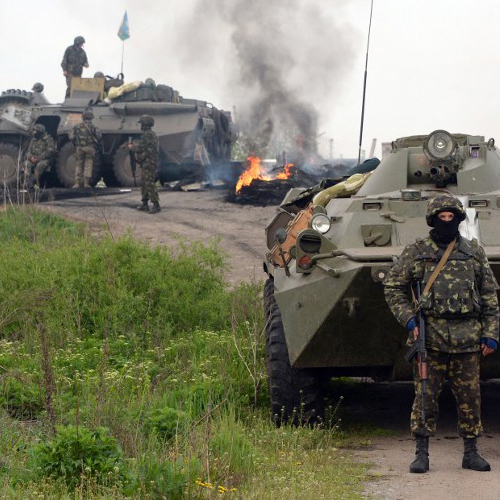 Ukraine army targets pro-Russian separatists in new offensive in east Ukraine army targets pro-Russian separatists in new offensive in east
Fighting raged in eastern Ukraine for the second straight day on Tuesday as the army rolled out an offensive against pro-Russia separatists holding the city of Slaviansk, with dead and wounded on both sides. Rebels in the town, a strategically located and fiercely separatist stronghold where a military helicopter was shot down last week killing 14 servicemen, said they had brought down an Su-25 attack aircraft and a helicopter. Ukrainian authorities denied the report.
Twelve hours after Kiev's forces launched an overnight military operation in and around Slaviansk, Vladyslav Seleznyov, a spokesman for the Ukrainians, said: "Today we have had two killed and 42 wounded." He put the number of dead and wounded on the separatist side at about 300, a figure that could not be independently verified. "Fighting is continuing", he told Reuters on Tuesday evening.
A spokeswoman for the rebels, Stella Khorosheva, said the death toll in the town "was rising continuously." She could not say how many casualties there were but said Ukrainian forces had carried out air strikes on villages skirting the town.
As the fighting got worse, many women and children fled the town in recent days. One woman described how artillery fire began at dawn. "I didn't know what that was before, but I do now. We counted the number of fires and impacts," Daria, 27, a resident who said she was trying to leave with her daughter, said by telephone. "War planes were flying overhead ... We stayed in the basement as much as we could."
President-elect Petro Poroshenko, who scored a resounding victory in the May 25 election, called for a resumption of military operations by government forces to quell rebellions by pro-Russian militia across the Russian-speaking east. The Kiev government says the fighting is fomented by Moscow, which opposes its pro-Western course. Kiev also accuses Russia of letting volunteer fighters cross into Ukraine to fight alongside the rebels.
Moscow denies this and is urging Ukraine to end military operations and open dialogue with the separatists.
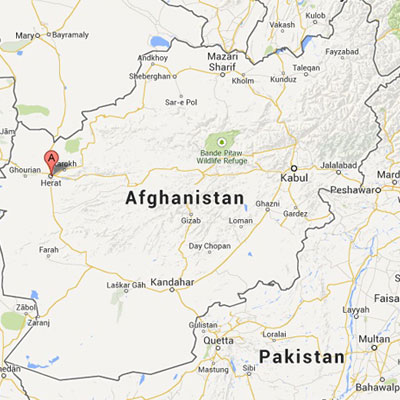 US in touch with India, Afghanistan on abduction of aid worker US in touch with India, Afghanistan on abduction of aid worker
The US is in touch with India and Afghanistan on the abduction of an Indian aid worker from the Herat province by gunmen, American officials have said.
"We are aware of the reports that an Indian national has been kidnapped near Herat," a state department spokesperson said when asked about the abduction of 47-year-old Prem Kumar, country director of Jesuit Refugee Service (JRS).
"We are in touch with the Indian and Afghan authorities regarding this issue," the spokesperson said.
A native of Tamil Nadu, Kumar was working with the Jesuit Refugee Service (JRS), an educational charity, as its Afghanistan Director and has been in the war-torn country for over three years.
Before moving to Afghanistan, Kumar had worked for the JRS, serving Sri Lankan refugees in Tamil Nadu.
Kumar had accompanied teachers on a visit to a JRS-supported school for the returnee refugees in Sohadat village, 25 km from the city of Herat. He was kidnapped from the school as he was about to return to Herat, the JRS said.
The abduction comes nearly 10 days after the attack on the Indian consulate in Herat by four heavily-armed gunmen carrying rocket-propelled grenades and machine guns.
The attackers were subsequently killed by the security forces who repelled the attack on May 23.
On May 29, the Indian mission in Herat had issued an advisory asking its nationals to exercise extreme caution while venturing out.
"We are deeply shocked by Prem's abduction. We are in contact with all the relevant authorities and doing everything possible to ensure his safe and speedy return," said Jesuit Refugee Service International Director Peter Balleis.
Headquartered in Rome, JRS is an international Catholic organisation with a mission to accompany, serve and advocate on behalf of forcibly displaced persons.
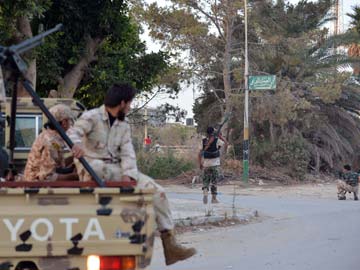 21 killed in Libya clashes 21 killed in Libya clashes
Clashes erupted in Benghazi between Libya’s army troops and Islamist armed groups Monday, causing at least 21 deaths and about 110 injuries, authorities said.
The clashes were mainly in the Garyounes area. Islamist militia groups’ February 17 Brigade and Ansar al—Sharia jointly attacked the base of Libyan Special Forces 21 Battalion which sided with renegade general Khalifa Haftar, Xinhua quoted air force commander Colonel Saad Warfali as saying.
Army warplanes fought back by bombing several sites of the Islamic groups in Rulrhh, Onfodh and Sidi Faraj region on the outskirts of Benghazi, a military source said on condition of anonymity.
Warfali said some warplanes took off from an air base in the eastern city of Tobruk to carry out the bombardment mission.
Galaa Hospital has received so far 11 bodies and 54 wounded people, mostly military personnel, hospital authorities said. Sources from Benghazi Medical Centre and hospitals in east Benghazi said they had received 10 bodies and 58 injured people.
“The son of Benghazi Medical Centre director Dr Fathi Jehani was killed by shrapnels from a rocket that fell on their house at dawn Monday,” a source said.
The media reported that the Islamist fighters were seeking revenge after days of airstrikes by air forces loyal to Haftar.
Haftar’s warplanes Sunday launched three airstrikes targeting Islamist militia bases, damaging their camps and some civilian facilities.
Haftar, who played a major role in toppling Libya’s former leader Muammar Gaddafi, has led a series of military operations against Islamist militia in Benghazi in the name of “purging terrorists.”
.jpg) South Korea Ferry Owner Seeks Asylum: Report South Korea Ferry Owner Seeks Asylum: Report
Seoul: South Korean prosecutors investigating April's ferry disaster said on Tuesday the fugitive head of the family that owns the vessel had indirectly approached a foreign embassy in Seoul over asylum, but was rejected.
Briefing domestic reporters, prosecutors said an anonymous person had contacted the unidentified embassy last week on behalf of Yoo Byung-Eun, 72.
"The embassy rejected the request for asylum as (Yoo) is a criminal suspect," the Yonhap news agency quoted senior prosecutor Kim Hoe-Jong as saying.
It was not immediately clear on what basis the request for asylum had been made.
Yoo is the patriarch of the family behind Chonghaejin Marine Co. - the owner and operator of the 6,825-tonne Sewol which capsized and sank on April 16 with the loss of around 300 lives - most of them schoolchildren.
Yoo has been the target of a nationwide manhunt since he refused to respond to an official summons last month, and the authorities have offered a half-million dollar reward for information leading to his arrest.
He is wanted for questioning on possible charges of embezzlement and criminal negligence, as prosecutors investigate the extent to which the Sewol disaster was caused by a lack of safety standards and regulatory violations.
Yoo has no direct stake in Chonghaejin, but his children and close aides control it through a complex web of holding companies.
Five Chonghaejin officials have already been arrested.
After Yoo ignored the summons, investigators raided a compound belonging to the Evangelical Baptist Church of Korea, of which Yoo is a leading member, but failed to find him.
Yoo has described himself as an artist and photographer and was once convicted of fraud when a company under his control went bankrupt.
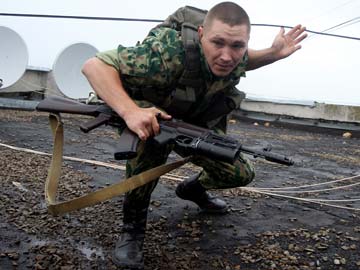 Barack Obama Set for Warsaw Talks as Rebels Mount East Ukraine Assault Barack Obama Set for Warsaw Talks as Rebels Mount East Ukraine Assault
Warsaw: Pro-Russian gunmen struck a Ukrainian border guard camp in one of the biggest offensives of their insurgency, as US President Barack Obama was set to arrive for talks on the festering Ukraine crisis with eastern European leaders in Warsaw Tuesday.
The well-coordinated dawn raid involving rebel snipers perched on rooftops led to a day-long battle at the base on the southern edge of the separatists' stronghold city of Lugansk.
Kiev officials said at least five insurgents were killed and eight servicemen wounded.
An explosion also destroyed a regional administration building used as a headquarters by the rebels.
The separatist region's self-declared "prime minister" Vasyl Nikitin told AFP he personally helped carry away four bodies, two civilians -- killed as they were walking in a park -- "one of our fighters and our minister of health".
He described the scene as "a hell", adding that the death toll could rise as there were others who were gravely wounded.
An AFP reporter saw fighters pull the body of one rebel sniper from the roof of a nine-storey apartment block building with his white shirt soaked in blood.
The border guard service said its forces and the rebels agreed to a 30-minute afternoon ceasefire so that both sides' wounded could be evacuated by ambulance.
A spokesman for Ukraine's self-proclaimed "anti-terrorist operation" said the border guards eventually received air cover from fighter bombers that managed to destroy "two mortar crews of militants".
Russia's foreign ministry angrily accused Kiev of "committing another crime against its own people".
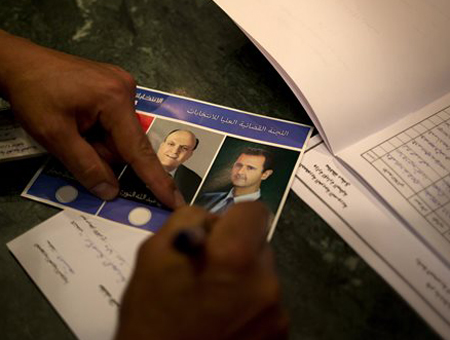 Syria presidential elections: Bashar al-Assad casts vote in Damascus Syria presidential elections: Bashar al-Assad casts vote in Damascus
Damascus: Syrian President Bashar al-Assad voted in Damascus on Tuesday in an election expected to give him a sweeping win over two little-known challengers, state television reported.
"President Assad voted in a polling station in Maliki," a residential neighbourhood in the city centre, the broadcaster said.
The channel aired still photographs of Assad and his British-born wife Asma as they prepared to cast their votes after filling them in in a curtained booth.
The president wore a dark blue suit, his wife a white blouse, black business skirt and stiletto heels.
Assad's two little-known challengers -- Maher al-Hajjar and Hassan al-Nuri -- both voted earlier in the capital's Sheraton Hotel, an AFP journalist reported.
Voting is being held only in government-controlled areas and the exiled opposition has slammed it as a "blood election", while the United States has dubbed it a "parody of democracy".
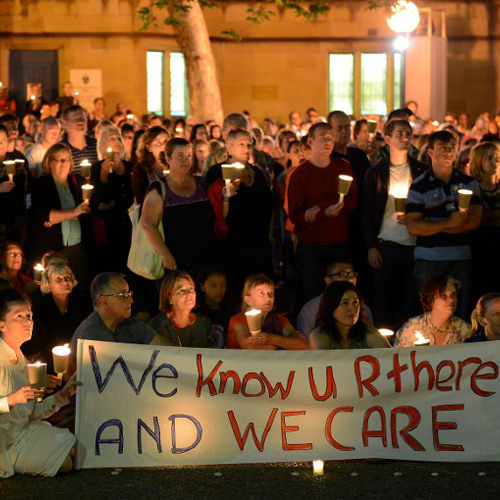 Sri Lankan asylum-seeker sets himself on fire in Australia, dies Sri Lankan asylum-seeker sets himself on fire in Australia, dies
A Sri Lankan asylum-seeker has died after setting himself on fire while awaiting a visa decision in Australia, Immigration Minister Scott Morrison said on Monday, with a Tamil group claiming he was "living in great fear".
Leorsin Seemanpillai, 29, who was living in Geelong, outside Melbourne, after being granted a temporary visa a year ago, suffered burns to 90% of his body after the incident on Saturday morning. He died on Sunday in a Melbourne hospital.
"This man sadly died as a result of a very serious set of injuries that were self-inflicted," Morrison said. "And I don't think we are in any position, and I frankly don't think anyone else is any position, to draw any conclusions about what is a person's mind in that situation."
Aran Mylvaganam of the Tamil Refugee Council, who was at Seemanpillai's bedside in hospital and knew him for a year, said he was "living in great fear" of being sent back to Sri Lanka, where he believed his life would be in danger. "I had numerous conversations where he would repeatedly raise concerns about being deported back to Sri Lanka," Mylvaganam told AFP.
He added that Seemanpillai's fears were fuelled by seeing his friends taken from communities where they were placed in detention centres to be deported. "The immigration officials have been harassing him on many occasions where they wanted him to voluntarily leave," he claimed. "There was no doubt that the Australian government's cruel and inhumane policy has pushed him to do this. It wasn't a choice for him."
Morrison said Seemanpillai was given "no indication that he was being removed anywhere or that he hadn't been found to be a refugee or for that matter that he had".
Seemanpillai, who arrived by boat in Australia in January 2013, was receiving community mental health support and his refugee application was still being processed, Morrison added. "I can also advise that the last case worker contact with Mr Seemanpillai was on Friday, May 30, and I am advised that there was no concern or indication of any suicidal intention... at that time," he said.
He added that authorities had been in touch with his father in India, who requested a funeral for his son in Geelong.
While most boatpeople come to Australia via Indonesia, many have also attempted the difficult trip from Sri Lanka, where they claim persecution over the country's Tamil separatist conflict. Australia has sent back dozens of Sri Lankan nationals who tried to enter the country illegally.
Seemanpillai's death came as activists said seven Iranian asylum-seekers sewed their lips shut on Sunday in a mass hunger-strike at an immigration detention centre on Christmas Island – an Australian outpost in the Indian Ocean.
Activists said about 400 asylum-seekers were refusing food as part of a protest against the death of Iranian Reza Barati, who was killed in a riot this year at another Australian detention centre on Manus Island in Papua New Guinea.
Morrison said that protests were not uncommon at detention centres and that the matter was "well in hand".
Under Australia's tough refugee policy, asylum-seekers who arrived by boat after July 2013 have been sent to detention centres on Manus Island or Nauru in the Pacific for processing and permanent resettlement.
According to the immigration department, more than 24,000 asylum-seekers are living in Australia on bridging visas of the type Seemanpillai was on. A further 2,450 asylum-seekers are being held on Nauru and Manus Island and another 823 are detained on Christmas Island.
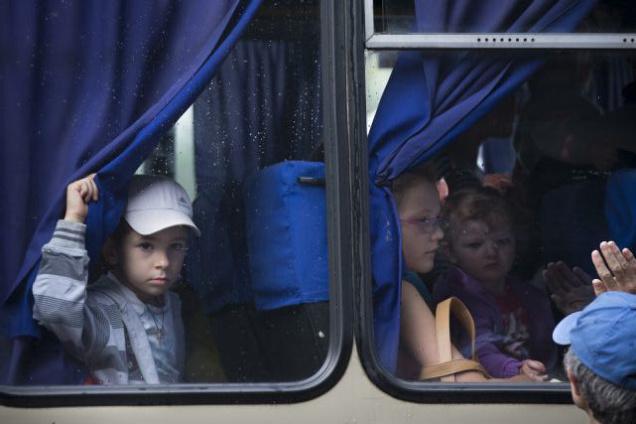 G7 leaders to discuss Ukraine crisis at Brussels talks G7 leaders to discuss Ukraine crisis at Brussels talks
The leaders of the Group of Seven (G7) will this week deliberate their next steps in response to the enduring unrest in Ukraine, after sidelining Russia for its role in the crisis.
Ukraine has seen a descent into violence since February, when president Viktor Yanukovych fled the country following mass protests over his reluctance to seek closer ties with the European Union.
The international community has accused Russia of fomenting separatist unrest in the former Soviet country, including through the annexation of its Crimean peninsula.
“We have not yet seen Russia take the steps that are necessary to reduce ... tensions,” Ben Rhodes, the deputy national security advisor of US President Barack Obama, said Friday.
Obama will join his counterparts from Britain, Canada, France, Germany, Italy and Japan at the G7 summit on Wednesday and Thursday.
The European Union will also be represented at the talks.
The group of industrialized nations decided to meet in the Belgian capital Brussels after snubbing a Group of Eight (G8) summit that was to be hosted by Russia this month.
At their last talks in April, the G7 leaders had agreed to proceed with sanctions against Moscow over its actions in Ukraine.
Russia will continue to face international isolation and sanctions if it does not use its “influence” on the Ukraine separatists to end the violence and does not engage in dialogue with the Ukrainian government, Rhodes warned.
Obama will meet Ukraine’s newly elected president, Petro Poroshenko, on Wednesday morning in Poland, which the US leader is visiting ahead of the G7 summit.
“We expect the Russian Federation to cooperate with the newly elected and legitimate president,” EU leaders said in a joint statement last week, urging Moscow to also continue withdrawing troops from the Ukrainian border and to pressure separatists into de—escalation.
The West had threatened Russia with more sanctions if it tried to thwart the May 25 elections that delivered a victory for Poroshenko.
But the EU has described the polls as “successful” and “genuine.” “The turnout was good, and the outcome was clear,” EU President Herman Van Rompuy, who will be representing the bloc at the G7 meeting along with European Commission President Jose Manuel Barroso, said last week.
Rhodes, meanwhile, praised Poroshenko for his “commitment to pursue dialogue ... to reduce tensions and put Ukraine on a positive path.” The G7 leaders are expected to discuss Ukraine and other foreign policy issues over dinner on Wednesday. The Iran nuclear negotiations are also likely to be on the agenda, Rhodes said.
Talks on economic, energy, climate and development issues are expected to follow Thursday.
G7 energy ministers last month agreed to work on a long—term strategy to wean Europe off its dependency on Russian gas supplies. Fears are rife that escalating tensions may lead Moscow to cut off gas deliveries passing through Ukraine on their way to Europe.
In 2012, 66 per cent of the EU’s natural gas was imported, with more than a third stemming from Russia. Six of the bloc’s 28 countries — Bulgaria, Estonia, Finland, Latvia, Lithuania and Slovakia — depend on Russia for all of their gas imports.
“The crisis in Ukraine is a wake—up call for Europe to reassess its energy mix,” the Oxfam campaign group said, calling on G7 leaders to avoid “fake solutions like shale gas, surplus coal or tar sands,” and work instead on curbing demand and boosting renewable energy use.
Many European countries also have strong trade and business ties with Russia. The EU has so far steered clear of economic sanctions against Moscow amid concerns over repercussions for the European economy.
It has, however, prepared three scenarios that could be deployed if needed, ranging from low—intensity economic sanctions affecting items such as luxury goods to tougher measures such as a ban on oil and gas imports.
“If there are further destabilization actions by Russia, more sanctions are not impossible,” German Chancellor Angela Merkel warned after the summit with her EU counterparts last week.
Obama’s presence at the G7 talks is expected to bring about strict security measures in Brussels, which is hosting such a meeting for the first time. It is taking place just over a week after three people were killed in a shooting at the city’s Jewish Museum.
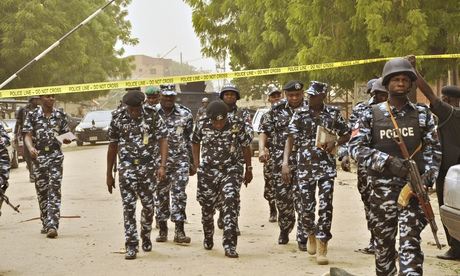 Nigeria Bomb Blast Kills at Least 14 Nigeria Bomb Blast Kills at Least 14
The strike targeted a TV-viewing center for soccer matches, and Boko Haram is the prime suspect. Over 500 civilians have died in attacks since the Islamic militant group kidnapped over 200 schoolgirls on April 14
A bomb blast in northeastern Nigeria on Sunday killed at least 14 and wounded 12.
No one has yet claimed responsibility for the attack, which hit a television-viewing center for soccer matches, but the Islamic militant group Boko Haram is a prime suspect, Reuters reports.
The outfit, fighting for an Islamic state in Nigeria’s north, caused global outrage when it kidnapped more than 200 schoolgirls on April 14. Since then, a string of strikes have killed at least 500 civilians.
Last weekend saw a botched attempt by a suicide bomber to strike an open-air viewing of a soccer match in the central city of Jos, which was ravaged by a twin bomb explosion days before, killing 118.
Neighboring country Cameroon claimed on Sunday to have killed some 40 Boko Haram militants in clashes in the country’s far north.
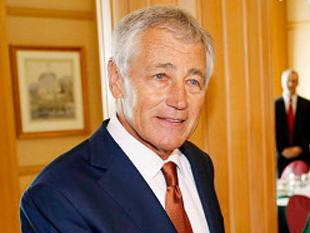 US accuses China of 'destabilizing' acts in South China Sea US accuses China of 'destabilizing' acts in South China Sea
SINGAPORE: US defence secretary Chuck Hagel warned Beijing on Saturday against "destabilizing actions" in the South China Sea, and backed its regional rival Japan's plans to take on a more muscular security role in Asia.
Stressing US commitments to allies and friends in Asia, Hagel called for a peaceful resolution of international disputes and issued a blunt message to China, which was represented by a high-level military delegation at the forum in Singapore.
"In recent months, China has undertaken destabilizing, unilateral actions asserting its claims in the South China Sea," Hagel told fellow defence chiefs, military officials, diplomats and security experts attending the annual Shangri-La Dialogue.
He accused China of restricting the Philippines' access to Scarborough Shoal, putting pressure on Manila's long-standing presence in Second Thomas Shoal, beginning land reclamation at various locations and moving an oil rig into disputed waters with Vietnam.
Hagel said that while the United States does not take sides on rival claims, "we firmly oppose any nation's use of intimidation, coercion, or the threat of force to assert these claims".
"The United States will not look the other way when fundamental principles of the international order are being challenged," he said.
China reacted angrily to Hagel's comments, with Deputy Chief of the General Staff of the People's Liberation Army (PLA) Wang Guanzhong describing them as baseless, and further condemning him for making them in public.
"This speech is full of hegemony, full of incitement, threats, intimidation," Wang was quoted as saying by a reporter from state broadcaster China Central Television.
"Moreover (it) is public, several times criticizing China by name, and these kinds of accusations are completely without basis, without reason," Wang said. The military official is due to make his own speech on Sunday.
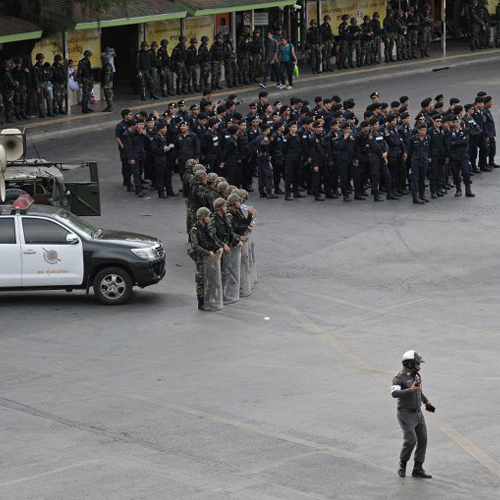 Australia cuts ties with Thailand over military coup Australia cuts ties with Thailand over military coup
Australia downgraded its ties with Thailand on Saturday in the wake of this month's military coup in the South East Asian country, imposing a travel ban on the junta leaders and cutting defence cooperation in some of the toughest punitive measures taken by a foreign government.
The United States and other foreign governments have condemned the May 22 coup, calling for a rapid return to democracy.
The Australian government said it had postponed three activities with the Thai military and would prevent the leaders of the coup from travelling to Australia as it continues to have "grave concerns" about the military's actions in Thailand. "In line with our concerns, Australia is reducing our engagement with the Thai military and will lower the level of our interaction with the Thai military leadership," Australia's Foreign Minister Julie Bishop and Defence Minister David Johnston said in a joint statement.
Coup leader General Prayuth Chan-ocha said on Friday there would be no elections for at least a year, arguing reforms must come first. Reforms could only be implemented if there was peace and stability and would take about a year, he added.
The military seized power on May 22, ousting the government of Prime Minister Yingluck Shinawatra, after meetings with key figures on both sides of Thailand's political divide failed to find a solution to a six-month political deadlock. The military junta then rounded up dozens of political figures, academics and activists.
"The Australian government continues to call on the military to set a pathway for a return to democracy and the rule of law as soon as possible, to refrain from arbitrary detentions, to release those detained for political reasons and to respect human rights and fundamental freedoms."
Thailand and Australia's military ties date back to 1945 and the countries have engaged in a formal defence cooperation programme that involves individual training and maritime, ground and air exercises for the past four decades. The countries also have a free trade agreement, entered into in 2005.
The Australian government said it looked forward to "normalising our relationship as soon as possible," but added that it would continue to "review defence and other bilateral activities".
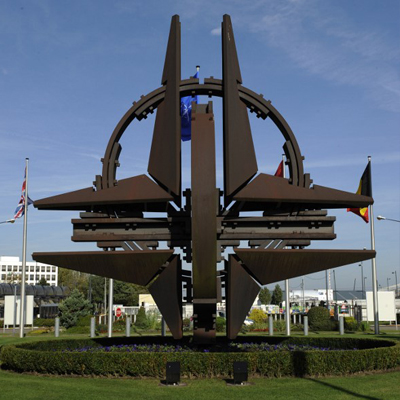 NATO says around two thirds of Russian troops pulling back from Ukraine border NATO says around two thirds of Russian troops pulling back from Ukraine border
Russia is in the process of withdrawing around two thirds of the troops it had close to the border with Ukraine, NATO Secretary-General Anders Fogh Rasmussen said on Friday.
The estimate is far higher than previous estimates made by NATO of the extent of a Russian withdrawal.
"We have seen signs of at least a partial withdrawal. Our estimate is that around two thirds of Russian troops have been or are being pulled back," Rasmussen told Reuters on the sidelines of a meeting of the NATO Parliamentary Assembly in the Lithuanian capital Vilnius.
He also said that NATO and Russia would meet in the framework of a cooperative body, the NATO-Russia Council, on Monday but gave no further details.
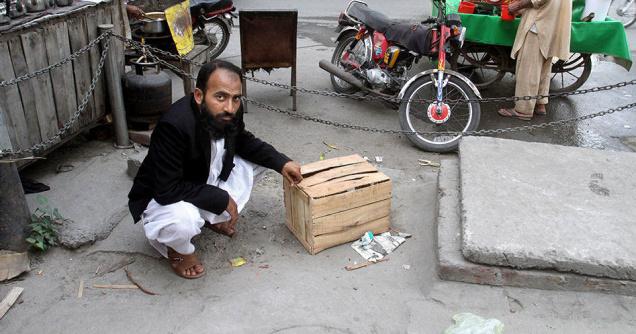 Pakistan arrests 4 suspects in ‘honour killing’ Pakistan arrests 4 suspects in ‘honour killing’
Pakistani police said on Friday that they have arrested four more people in connection with the killing of a pregnant woman who was beaten and stoned to death by her family for marrying without their permission.
The police arrested the four men late on Thursday from their village in the Nankana district, said Nayab Haider Rizvi, the police spokesman in Lahore.
Police have already arrested the woman’s father and say he has confessed to the killing. They are looking for two of her brothers.
The 25 year old was on her way to court with her husband on Tuesday when they were attacked by a group of her relatives who objected to her marriage. During the assault she was hit on the head with bricks from a nearby construction site and died.
The shocking case has focused attention on violence against women in Pakistan as well as the country’s legal system.
In a strange twist, authorities said on Thursday that the woman’s husband, Mohammad Iqbal, was accused of killing his first wife in 2009. But authorities and the man’s relatives said the case was dropped after he was forgiven by the woman’s family.
Under Pakistani law, those charged with a slaying can see their criminal case dropped if family members of the deceased forgive them or accept so-called “blood money”.
On Friday Mr. Iqbal threatened to commit suicide if the killers of his second wife are not brought to justice.
“I have said to reporters that if I don’t get justice for the murder of my unborn child and wife, I will do self-immolation at the very same place where my wife was killed and will go from this world,” he told AP Television News.
Prime Minister Nawaz Sharif has condemned the fatal stoning and demanded authorities take action to find all the culprits.
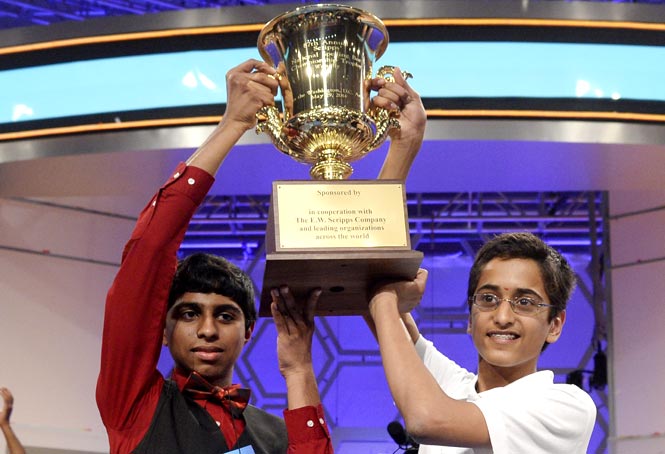 Indian-Americans win Spelling Bee, create history Indian-Americans win Spelling Bee, create history
Sriram Hathwar and Ansun Sujoe won the 87th Spelling Bee on Thursday making history as the first Indian Americans to win the contest jointly, a first for the championship since 1962.
Hathwar, a five time veteran of the championship came as a favourite, but Sujoe, a first timer surprised everyone with a dazzling performance, forcing a draw.
“The contest was against the dictionary and not against each other,” said Hathwar, 14, of the last few rounds of the contest, when he had only Sujoe, 13, to compete against.
A tie such as this is rare, and happens only when the Spelling Bee pronouncer runs out of words pre-selected for the contest — and it came to that Thursday night.
The co-champions in 1962, the first time ever, were, said Spelling Bee organizers, Nettie Crawford from El Paso, Texas and Michael Day of St. Louis, Missouri.
On Thursday, the Indian American boys set another record.
Sujoe correctly spelled “feuilleton”, which means “a part of a European newspaper or magazine devoted to material designed to entertain the general reader,” to tie Hathwar.
The Bee, which is open to students of up to the eighth grade, was won Thursday by Indian Americans for the seventh consecutive years so far.
Indian Americans have dominated this and other such contests including the Geographic Bee winning them repeatedly making many wonder if they will ever give up.
Four of the last five finalists on the stage on Thursday were Indian Americans. And then there were just four of them, when Mary Horton, 13, spelt “aetites” wrong.
One of the remaining four was Ashwini Veermani, 14-year-old an eighth grader from Ohio who was just a few words away from history — to make it a double for the family.
His sister Anamika Veermani won the championship in 2010.
Another star of the night was Tejas Muthuswamy, a 11-year-old from Virginia, the youngest in the last 10. Every round thereafter was a bonus from him, he told an interviewer.
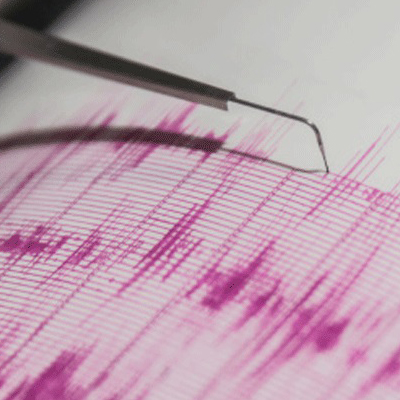 Magnitude 5.9 earthquake hits Myanmar, near Chinese border Magnitude 5.9 earthquake hits Myanmar, near Chinese border
There have been no immediate reports of casualties or damage. An earthquake of magnitude 5.9 hit Myanmar on Friday near its northeastern border with China but there were no immediate reports of damage, a meteorological official said.
The earthquake, described as moderate, struck at 7:51 am (0121 GMT) about 375 km (240 miles) northeast of the city of Mandalay and 60 km (40 miles) southeast of the Kachin State capital of Myitkyina, the official from the Meteorological Department told Reuters.
"The epicentre is on the Myanmar-Chinese border. We haven't heard any information about damage or casualties," he added.
The central and northern parts of Myanmar are often hit by earthquakes. In November last year, a moderate earthquake struck Shwebo District about 135 km (85 miles) northwest of Mandalay, killing at least a dozen people.
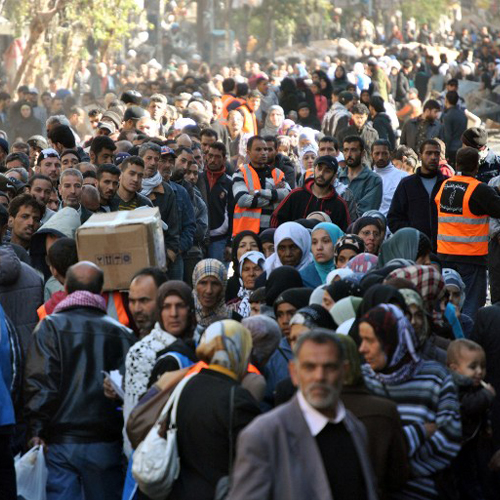 UN Security Council mulls authorising cross-border Syria aid access without government consent UN Security Council mulls authorising cross-border Syria aid access without government consent
United Nations (UN) Security Council members are considering a draft resolution to authorise cross-border aid deliveries into Syria at four points without government consent, diplomats said on Thursday, after an earlier council demand for greater access was ignored.
The 15-member Security Council achieved rare unity in unanimously approving a resolution in February that demanded rapid, safe and unhindered aid access in Syria, where a three-year civil war has killed more than 150,000 people.
But deputy UN aid chief Kyung-wha Kang told the council on Thursday that the resolution had failed to make a difference. About 9.3 million people in Syria need help and 2.5 million have fled, according to the United Nations.
Council members Australia, Luxembourg and Jordan have drafted a stronger follow-up resolution that UN diplomats, speaking on condition of anonymity, said would authorise deliveries into Syria at specific points from Turkey, Iraq and Jordan to reach millions of Syrians in opposition-held areas.
"90% of the aid goes to government held areas, it's not getting to Syrians in zones which are controlled by the opposition," Australian UN Ambassador Gary Quinlan told reporters after Kang's briefing.
The resolution would threaten "measures" in the event of non-compliance, diplomats said. The draft has been circulated to the permanent five veto-wielding council members – the United States, Britain, France, Russia and China. Negotiations are due to take place among the eight members in the coming days.
The draft text is under Chapter 7, diplomats said, which would make it legally binding and enforceable with military action or other coercive measures such as economic sanctions. The February resolution was binding, but not enforceable.
Russia, supported by China, has previously vetoed four resolutions threatening any action against its ally, Syrian President Bashar al-Assad. It blocked a council bid to refer the situation in Syria to the International Criminal Court for possible prosecution of war crimes. Moscow has previously made clear it was against allowing cross-border access without the consent of Syria's government.
The United Nations says it can only deliver aid into Syria without the government's approval under a Chapter 7 resolution.
Diplomats said the draft resolution would likely be circulated to the remaining seven council members early next week ahead of a possible vote in early June. Russia assumes the rotating presidency of the Security Council for June.
In a report last week, UN Secretary-General Ban Ki-moon demanded the Security Council take urgent action to ensure humanitarian aid reaches more Syrians.
"All delivery routes must be made available to us – both cross-line and cross-border," Kang told the council, according to a statement after the closed-door briefing on Ban's report. "Bureaucratic obstructions on the delivery of assistance must stop. We don't have the time for arbitrary restrictions on how and to whom we are allowed to deliver aid," she said.
 White House rules out clemency for Snowden White House rules out clemency for Snowden
The White House has said that “clemency is not on the table” for whistleblower Edward Snowden and asserted that the former CIA contractor ought to return to the United States and face charges against him.
“Look, let’s be clear, clemency is not on the table,” White House Press Secretary Jay Carney said.
Mr. Snowden in a recent interview had said that he wants to return to the US, where he is facing charges of unauthorized leak of classified documents.
“There’s a fundamental position that we hold, which is he ought to return to the United States to face the charges against him.
“We are of the firm belief that the transgressions that he’s been charged with are very serious, that they’ve created negative consequences for our national security and our capacity to protect the United States and the American people and our allies, and that those are very serious offenses,” Mr. Carney said.
“I think we can say quite clearly that clemency is not being considered, but beyond that, this is a matter for the Department of Justice,” he said when asked about clemency to Snowden, who is currently in Russia.
Later in the day, the National Security Agency (NSA) released email exchange with Mr. Snowden. The NSA informed the Senate Intelligence Committee that it has found no evidence that Snowden “expressed concerns or complaints, in email or any other form, about NSA’s intelligence activities to anyone in a position of authority or oversight” and that it continues to search for any such communications.
A day earlier, Secretary of State John Kerry had branded Mr. Snowden as a traitor and a coward.
“It is the view of the U.S. government that what Mr Snowden did was a violation of the law, that it was a serious offense; that as many senior people in the national security apparatus have attested to, damaging to our national security, made it easier for -- or gave insight to our enemies, to terrorists that makes it harder for the United States and our allies to go after them,” Mr. Carney said.
Unauthorised disclosures of classified information harm U.S. and allied efforts to identify, track and disrupt the activities of our adversaries, including terrorists, the White House spokesperson said.
“Many of these efforts are born of years of carefully managed intelligence efforts. As a result of these disclosures, our adversaries, including terrorists and their support networks, now have a better understanding of our collection methods and are taking counter measures,” he said.
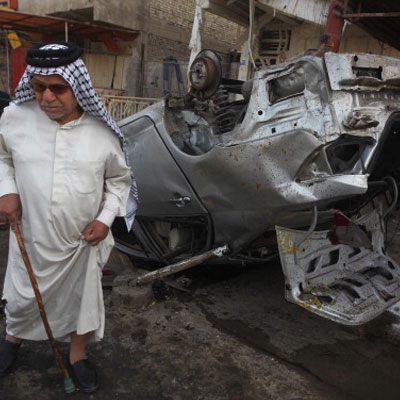 63 killed in brutal Iraq post-election attacks 63 killed in brutal Iraq post-election attacks
Attacks across Iraq, including a spate of car bombs in Baghdad and the northern city of Mosul, killed 63 people today in the bloodiest violence to hit Iraq since April elections.
The worst of the blasts went off during the evening and left dozens of people wounded, fuelling fears a protracted surge in violence is pushing Iraq back into the brutal communal conflict that left tens of thousands dead in 2006 and 2007.
The bloodletting comes as political leaders jostle to build alliances and form a government, with Prime Minister Nuri al-Maliki in the driver's seat in his bid for re-election but still short of an overall majority in parliament.
Separate deadly sets of car bombs hit both the Iraqi capital and Mosul, in the north, in the evening.
In Baghdad's deadliest attack, a suicide car bomb exploded in the mainly Shiite neighbourhood of Kadhimiyah in north Baghdad, killing at least 16 people and wounding 50, security and medical officials said, speaking on condition of anonymity. Three other car bombs went off in the Amin, Sadr City and Jihad districts, killing a dozen more people.
The blasts were the latest in a trend of militants setting off vehicles rigged with explosives during the evening, when Baghdad's residents visit markets, restaurants and cafes. Previously, such attacks had typically been timed to go off during morning rush hour.
Elsewhere in and around the capital, gun attacks and explosions killed three people, officials said.
In Mosul, one of the most violent areas of the country, twin car bombs set off by suicide attackers killed 21 people, including 14 soldiers and policemen, in the west of the city.
Also in Nineveh province, of which Mosul is the capital, two other attacks left two people dead.
No group immediately claimed responsibility, but Sunni militants including those linked to the jihadist Islamic State of Iraq and the Levant often set off coordinated bombings across Baghdad and other major cities, ostensibly in a bid to sow instability.
Also in north Iraq, a series of 11 bombings in the ethnically mixed town of Tuz Khurmatu killed five people, four of them members of the same family, and wounded 11. The blasts targeted homes belonging to ethnic Turkmen.
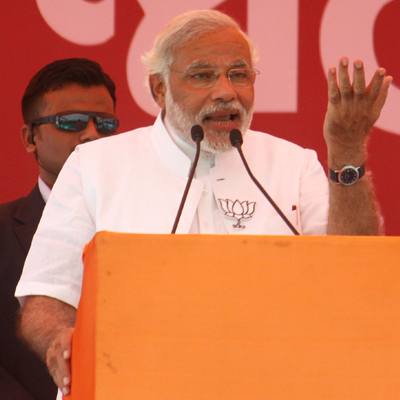 Anti- Narendra Modi resolution blocked in Pakistan's Punjab province Assembly Anti- Narendra Modi resolution blocked in Pakistan's Punjab province Assembly
A resolution against Prime Minister Narendra Modi over his "allegations" of terrorism against Pakistan was today blocked in the Assembly of Punjab province, ruled by Premier Nawaz Sharif's PML-N party.
The opposition comprising Pakistan Tehrik-e-Insaf, PPP, PML-Q and Jamaat-e-Islami wanted to bring the "anti-Modi" resolution in the 372-member house but Speaker Rana Iqbal did not allow it.
Punjab province is ruled by Chief Minister Shahbaz Sharif, brother of Premier Nawaz Sharif who met Modi in New Delhi yesterday.
Opposition members started shouting slogans against India and the ruling Pakistan Muslim League-Nawaz (PML-N) government as they tore the copies of the agenda of today's proceedings.
Opposition Leader Mahmoodur Rasheed said it was unfortunate that the Speaker was indirectly supporting Modi.
The opposition members then walked out and held a demonstration on the stairs of the Assembly. Earlier in the day, they had submitted the resolution.
Reading out from the resolution to reporters, Rasheed said: "The resolution is against the attitude of Indian Prime Minister Narendra Modi. Mr Modi had repeated baseless allegations of terrorism against Pakistan. We strongly condemn (Mr Modi) for repeating the allegations.
"We demand that the new Indian government stop funding terrorists in Balochistan, end its illegal hold on the water of Kashmir and Pakistan. The people of Pakistan want peace between the two countries."
The resolution further reads: "India should stop acting like a station house officer (SHO) of the region. It should not consider Pakistan's resolve for peace a weakness and start peace dialogue with it.
"The main hurdle in peace between Pakistan and India is the Kashmir dispute which should be resolved under the UN Resolution 1948 which carries the signature of former Indian premier Jawaharlal Nehru."
Rasheed said the PML-N government had demonstrated that it was pro-India. He said the opposition would continue its protest and would not let the speaker to run the house smoothly.
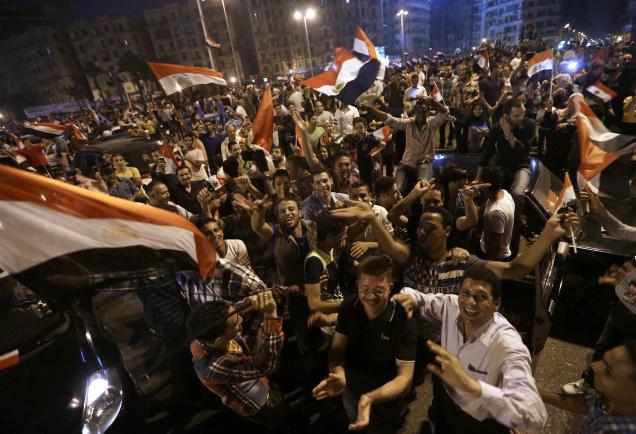 El-Sissi wins election by landslide El-Sissi wins election by landslide
With nearly all the ballots counted, Egypt’s former military chief has won a crushing victory over his sole opponent with more than 92 percent of the votes, according to results announced by his campaign early Thursday.
The campaign of retired field marshal Abdel-Fattah el-Sissi said he won 23.38 million votes, with left-wing politician Hamdeen Sabahi taking 735,285. Invalid votes were 1.07 million, or nearly 350,000 more than the number of votes for the 59-year-old Sabahi.
Mr. El-Sissi’s win was never in doubt, but the career infantry officer, also 59, had hoped for a strong turnout to bestow legitimacy on his ouster last July of Egypt’s first freely elected president, Mohamed Morsy.
In his final campaign TV interview last week, Mr. el-Sissi set the bar even higher, saying he wanted more than 40 million voters there are nearly 54 million registered voters to cast ballots to “show the world” the extent of his popular backing.
Mr. El-Sissi supporters held all-night celebrations in Cairo, with several thousands gathered at the central Tahrir square, birthplace of the 2011 uprising that toppled longtime autocrat Hosni Mubarak. They waved Egyptian flags, Mr. el0Sissi posters and danced. There were similar celebrations in the Mediterranean city of Alexandria and a string of other cities north of the capital and in the Oasis province of Fayoum southwest of Cairo.
Critics said the lack of enthusiasm at the polls was in part due to apathy among even Mr. el-Sissi supporters, knowing that his victory was a foregone conclusion. Others said it showed discontent with Mr. el-Sissi, not just among his Islamist foes but also among a broader section of the public that believes he has no concrete plans for Egypt’s woes and fears he will return Egypt to the autocratic ways of Hosny Mubarak.
The tepid turnout was particularly embarrassing because the government and media had been whipping up adulation for Mr. el-Sissi over the past 10 months, depicting him as a warrior against terrorism and the only person able to tackle Egypt’s economic problems, high unemployment, inflation and instability.
Mr. El-Sissi’s supporters in the Egyptian media have been in a panic the past two days. Political talk show hosts and newscasters urged people to vote, warning that otherwise the Brotherhood will be encouraged to step up its challenge to the new government.
Prominent TV talk show host Amr Adeeb angrily said that by not voting, Egyptians might as well “go directly to the prison and return Mohamed Morsy to power.”
“Tell him, ‘Your excellency, President Mohamed Morsy, please come out and rule us,’” he said.
The abrupt decision by the election commission to add another day of voting Wednesday raised complaints that authorities were tipping the playing field in Mr. el-Sissi’s favour.
U.S.-based Democracy International, which had been observing the vote, said the extension “raises more questions about the independence of the election commission, the impartiality of the government, and the integrity of Egypt’s electoral process.”
It said its observer teams outside of Cairo had ended their mission as scheduled on Tuesday. Some other international monitoring teams also left the country, since they had only planned for two days of voting, though EU monitors stayed on.
Mr. Sabahi, Mr. el-Sissi’s only opponent in the race, protested the extension, saying it aimed to “distort” the will of the people. His campaign pulled its representatives from polling stations Wednesday in protest against what it called a campaign of intimidation and arrests of its campaign workers. He, however, refused to bow to pressure from his camp to withdraw in protest, arguing that staying in the race qualifies him to “fight future battles.”
Mr. Sabahi’s spokesman, Hossam Moenis, told ONTV network that a member of the campaign has been referred to a military tribunal.
“We are digging a channel for democracy ... in the face of an undemocratic project,” he said. “The same mentality that we thought we managed to topple on Jan. 25, is back and ruling” a reference to the start of the 18-day, anti-Mubarak uprising in 2011.
Only a handful of voters, or none at all, were at polling centers in multiple districts toured by The Associated Press reporters Wednesday. At some, music played and kids painted Egyptian flags or el—Sissi’s name on their faces as the occasional voter drifted in. TV images beamed from more than a dozen locations across Egypt showed similar scenes.
“People are lazy, depressed or frustrated. They knew what the result will be even before the vote,” said Amani Fikry, a manager in a privately-owned company. “They are exhausted from three years of constant troubles.”
In Cairo’s Sayeda Zeinab district, loudspeakers played patriotic songs at an empty polling centre. Two el-Sissi backers scribbled words of support on posters of the candidate that had been defaced with insulting graffiti.
“Sissi doesn’t need a program,” said one, Mohammed Hussein. “We just want security.”
Mr. Morsy’s Brotherhood supporters and other Islamists boycotted the vote and scattered protests by Mr. Morsy supporters were quickly dispersed by security forces.
In Fayoum, the province southwest of Cairo, riot police fired tear gas after protesters hurled stones and fire cracks while marching and chanting slogans against elections.
Along with Islamists, some of the youths who took part in the 2011 uprising that toppled Mr. Mubarak either stayed away from the polls or supported Mr. Sabahi.
“Where are the youth? What do they want? Do they want to destroy Egypt?” Said Sayyed, a laundry worker in his 70s, said of the boycott.
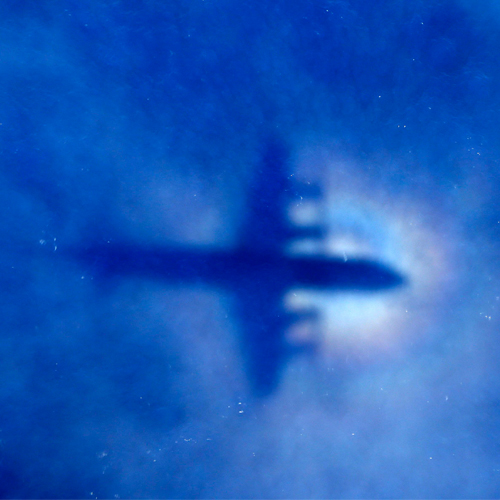 Doubt raised over whether 'pings' came from missing Malaysia Airlines MH370 black boxes Doubt raised over whether 'pings' came from missing Malaysia Airlines MH370 black boxes
The United States Navy described as "speculative and premature" a media report on Thursday that said four acoustic pings at the centre of the search for a missing Malaysia Airlines jetliner are no longer believed to be from the aircraft's black boxes.
The report on CNN quoted Michael Dean, the US Navy's deputy director of ocean engineering, and said authorities now almost universally believe the pings did not come from the onboard data or cockpit voice recorders of Flight MH370. The Boeing 777, carrying 239 passengers and crew, disappeared on March 8 shortly after taking off from Kuala Lumpur bound for Beijing.
Australian search authorities narrowed the search for the missing jet last month after picking up a series of pings near where analysis of satellite data put the last location of the plane some 1,600 km (1,000 miles) off Australia's northwest.
"Our best theory at this point is that (the pings were) likely some sound produced by the ship... or within the electronics of the Towed Pinger Locator," Dean told CNN.
However, a US Navy spokesman said Dean's comments were "speculative and premature". "We continue to work with our partners to more thoroughly understand the data acquired by the Towed Pinger Locator," the spokesman said in an emailed response. "As such, we would defer to the Australians, as the lead in the search effort, to make additional information known at the appropriate time."
Australian authorities leading the search did not immediately respond to requests for comment.
The discovery of the pings on April 5 and 8 was hailed as a significant breakthrough, with Australian Prime Minister Tony Abbott expressing confidence that searchers knew, within a few kilometres, where the plane wreckage was.
A source close to the investigation has said that those pings were certain to be from MH370's black boxes because of their frequency and transmission at one second intervals.
However, a thorough scan of the area around the pings with an unmanned submarine failed to find any sign of wreckage. No debris linked to the plane has been picked up despite the most extensive and expensive search effort in aviation history.
MH370 was carrying 227 passengers and 12 crew when it vanished. Authorities have not ruled out mechanical problems as a cause but say the evidence, including the loss of communications, suggests it was deliberately diverted thousands of kilometres from its scheduled route.
Malaysia's government and British satellite firm Inmarsat this week released data used to determine the path of MH370.
Families of passengers are hoping that opening up the data to analysis by a wider range of experts could help verify the plane's last location.
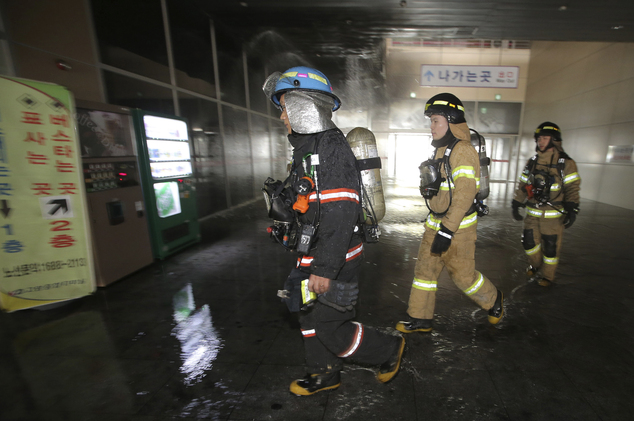 South Korea hospital fire kills 21, police detain arson suspect South Korea hospital fire kills 21, police detain arson suspect
Seoul: An octogenarian patient suspected of arson in the deadly hospital fire in South Korea's Jangseong town that killed 21, was detained by police on Wednesday, said reports. According to a report in the Wall Street Journal, after going through the CCTV footage, police detained an 81-year-man identified as Kim for questioning.
The man suspected of setting the fire is himself a patient in the same hospital and is said to be suffering from dementia.
The fire was sparked at the second floor of the two-story hospice annex building of Hyosarang Hospital and it took 30 minutes to douse the blaze, the Yonhap news agency quoted Kim Kyong-man, a fire official.
The fatalities were caused by asphyxiation due to toxic fumes inhaled by the victims, the report added.
Most of the patients, who were killed in fire, were in 70-80 age group and suffered senile ailments like Alzheimer’s, etc and hence had difficulty in moving.
Those killed include 20 patients and a nurse.
The death toll may rise as six out of the eight injured are said to be in critical condition.
In another arson attack today, a 71-year-old man on Wednesday set fire on a subway train in Seoul on Wednesday, but no casualties were reported.
The deadly blaze today comes just few days after a man had earlier this week ignited fire at a bus terminal near Seoul killing eight people and injuring 57.
South Korea has recently witnessed a spate of public safety hazards, the deadliest of them being the ferry sinking accident which left more than 300 missing or dead.
President Park Geun-Huye had offered a tearful apology for the ferry disaster and vowed to overhaul the public safety system in the country.
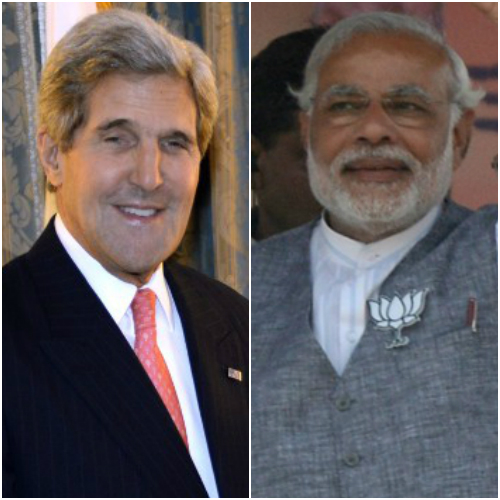 Looking forward to welcoming Narendra Modi to the US: John Kerry Looking forward to welcoming Narendra Modi to the US: John Kerry
The Barack Obama Administration is looking forward to welcoming new Indian Prime Minister Narendra Modi to the United States, Secretary of State John Kerry has said.
Kerry conveyed this message for Modi during his meeting with Indian Ambassador to the US, S Jaishankar, who also met Deputy Secretary of State William Burns for a wide range of discussion on bilateral and regional issues. This was Kerry's first meeting with the top Indian diplomat here after Modi was sworn in as the 15th Prime Minister of India in New Delhi on Monday.
"Secretary Kerry conveyed again his congratulations to Prime Minister Modi and the new Government of India, noting that the Administration looks forward to welcoming Prime Minister Modi to the United States," said State Department Spokesperson Jen Psaki.
Burns and Jaishankar also discussed a wide range of bilateral and regional issues including regional security, increasing bilateral economic engagement, and enhancing US-India cooperation in multilateral fora, she added.
 Michael Schumacher spends 150th day in coma, speculations of permanent vegetative state Michael Schumacher spends 150th day in coma, speculations of permanent vegetative state
Formula One legend Michael Schumacher has reportedly spent his 150th day in a medically-induced coma as speculations claim that he may be in a permanent vegetative state for the rest of his life.
The retired seven-time German champion has been in a coma for nearly six months since hitting his head on a rock in the French Alps on December 29.
According to the Daily Express, although Schumacher's management team has not issued an update on his progress for over six weeks, however, medical experts fear the worst as next week, the retired race ace will enter the sixth month of his coma with little perceptible progress to indicate that he will regain full consciousness.
An expert from a neuro-rehabilitation clinic at Germany said that although it is impossible to say how quickly a patient with a brain injury is going to wake up, but the longer the recovery phase, the more serious is the brain damage to the patient.
An F1 doctor fears the longer Schumacher is in the coma, the more improbable it is that he will recover from it, while a French neurological professor said statistically, 30% of patients recover well from a severe brain injury, 50% is affected by mild impairment while 20% of them suffer from severe disabilities.
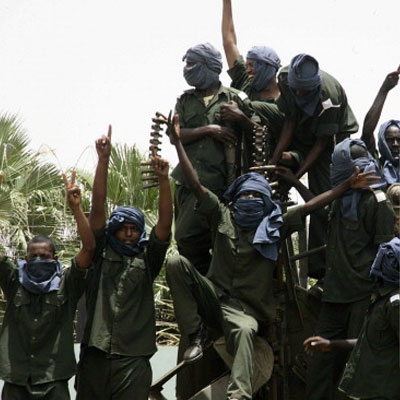 UN peacekeepers to focus on protecting South Sudan civilians UN peacekeepers to focus on protecting South Sudan civilians
The UN Security Council on Tuesday authorized peacekeepers in South Sudan to focus on protecting civilians instead of state-building activities, backing the use of force by UN troops amid worsening violence in the world's newest nation.
The US-drafted resolution, unanimously adopted by the 15-member council, "emphasizes that protection of civilians ... must be given priority in decisions about the use of available capacity and resources within the mission."
Fighting erupted in South Sudan in December after months of tensions sparked by President Salva Kiir's decision to sack longtime rival Riek Machar from the deputy president's position. Deep ethnic divisions also have fueled the violence, pitting Kiir's Dinka people against the Nuer of Machar.
The council authorized UN troops to "use all necessary means" - code for robust military force - to protect civilians, monitor and investigate human rights abuses, assist the delivery of humanitarian aid and support a cessation of hostilities deal.
The two sides fighting in the oil-producing country, which declared independence from Sudan in 2011, have twice agreed to a ceasefire - in January and then again earlier this month.
A report this month by the UN peacekeeping mission, known as UNMISS, accused government and rebel forces in South Sudan of committing crimes against humanity, including murder, rape and other sexual violence, during the fighting that has left thousands of people dead.
US Ambassador to the United Nations, Samantha Power, earlier this month urged the Security Council to "authorize targeted sanctions against those who continue to undermine South Sudan's stability."
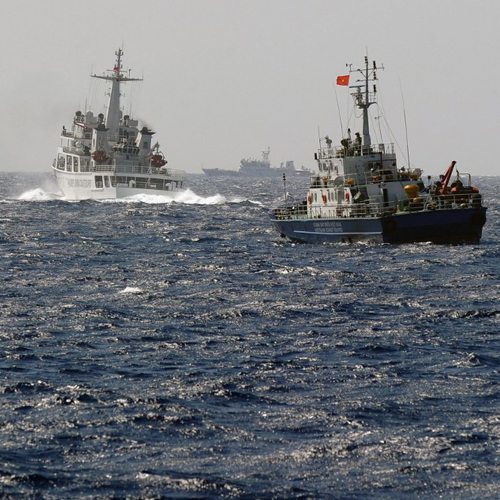 Chinese ship sinks Vietnam fishing boat: Vietnamese official Chinese ship sinks Vietnam fishing boat: Vietnamese official
A Chinese ship rammed and sank a Vietnamese fishing boat amid a tense territorial confrontation in the South China Sea over Beijing's deployment of an oil rig, a Vietnamese official said Tuesday.
The fishing vessel's crew, who were rescued by other Vietnamese ships after the Monday afternoon incident, said their boat was encircled by 40 Chinese vessels before being rammed, the official Vietnam News Agency reported.
"I confirm that the fishing vessel was rammed," an official with the Vietnam Regional Maritime Search and Rescue Coordination Centre in the central city of Danang told AFP.
The sinking occurred about 12 nautical miles southwest of the rig, the official added, requesting anonymity. "The 10 fishermen on board are on land now. They are safe. The ship sank."
It was the first ship reported sunk since the dispute flared in early May. The standoff has seen repeated skirmishes between dozens of Chinese and Vietnamese vessels, including many civilian and fishing boats. The confrontations have included reported rammings and the use of water cannon.
Relations between frequently testy communist neighbours Vietnam and China have plummeted over the oil rig's presence, which has exacerbated an increasingly heated dispute over territorial claims in the area. The oil rig is positioned in the vicinity of the contested Paracel Islands.
No official comment was seen from the Vietnamese or Chinese governments. But in Japan, government spokesman Yoshihide Suga said if the report was true, it was an "extremely dangerous act". "It's important that relevant countries abstain from unilateral actions that raise tensions and that the countries act cool-headedly, observing international laws," said Suga, the chief cabinet secretary.
Japan is engaged in a thorny maritime territorial dispute of its own with Beijing in the East China Sea.
Tensions over the oil rig sparked violent anti-Chinese riots in Vietnam. Beijing says four Chinese citizens died in the unrest, while Vietnam says three Chinese died. Hundreds of people have been detained over the riots, and two men on Sunday became the first sentenced to jail, receiving terms of one and three years.
Vietnamese Prime Minister Nguyen Tan Dung said last week that China's placement of the rig in the contested area had "seriously threatened peace". He said during a meeting in Manila with President Benigno Aquino of the Philippines – which also is facing off with China in disputed waters – that the two leaders agreed Beijing should be condemned by the international community for its behaviour in the South China Sea.
China claims nearly all of the sea, even waters approaching the coasts of its neighbours and has become increasingly assertive in staking those claims.
Vietnam, the Philippines, Brunei and Malaysia, as well as Taiwan, have competing claims to parts of the body of water.
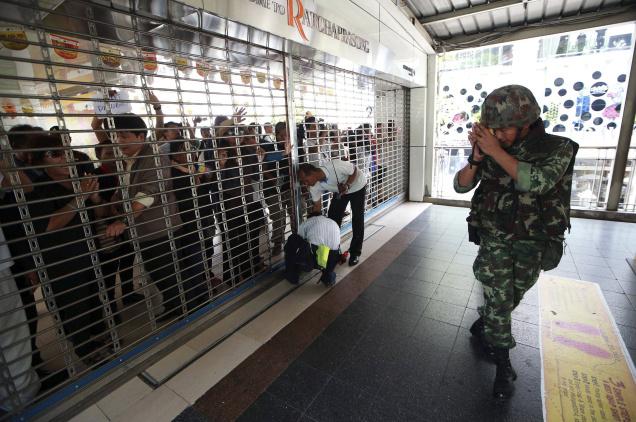 Thai coup leader to receive royal endorsement Thai coup leader to receive royal endorsement
One day after Thailand’s military junta stiffened warnings to crackdown on civilian opposition to its takeover of power, the country’s monarchy was set on Monday to officially endorse the general who staged the coup.
Army Commander Gen. Prayuth Chan-ocha was expected to receive the endorsement formalising his status as head of government at the army headquarters in Bangkok. It was not known whether King Bhumibol Adulyadej, the world’s longest serving monarch, would attend the ceremony. The 86-year-old king’s health is fragile.
After that, it’s anticipated Gen. Prayuth may announce plans for reshaping Thailand’s political scene with an interim constitution to replace the one scrapped by the army after Thursday’s coup, and an appointed legislative body.
The army’s plans for reform before elections mirror those of ex-lawmaker Suthep Thaugsuban, who led seven months of demonstrations against the government.
Mr. Suthep, who had been detained by the junta since the coup was announced last Thursday, left a military detention centre on Monday and later appeared at the attorney general’s office escorted by police and soldiers. He faces insurrection charges for seizing government ministries and other infractions during his protest bid.
After three days of tense but mostly nonviolent confrontations between protesters and security forces, a spokesman for the ruling National Council for Peace and Order warned that officials may need to strictly enforce an army-imposed law that prohibits people from demonstrating against the coup.
“I want fathers, mothers, brothers and sisters to warn their families that there is no benefit in coming out to oppose (the coup),” Winthai told reporters.
On Sunday, protesters against the coup appeared to number as many as 2,000, growing from a few hundred on Friday.
Publicity-savvy protesters first confronted police and soldiers outside a McDonald’s restaurant on Sunday, a spot chosen because it was the centre of a failed and bloody two-month anti-government protest in 2010 by many of the same people. That uprising by the so-called Red Shirts whose allies took power in elections in 2011 and held it until deposed in last week’s coup left more than 90 people dead and well over 1,000 injured.
Troops who fanned out on Sunday across one of central Bangkok’s major shopping districts were met by a crowd of about 1,000 people, who shouted, “Get out, get out, get out!”
Tensions ran high, and at one point a group of soldiers was chased away by the crowds. By late afternoon, the protesters had moved to Victory Monument, a city landmark a few kilometers (miles) away, with their numbers swelling to around 2,000. Rows of soldiers were gathered, but did not try to break up the rally, which ended peacefully.
The army faces a dilemma in engaging the protesters — whether to try to crush them and risk an even angrier reaction and international opprobrium, or to tolerate them and risk emboldening them.
“Please understand that everyone is carrying out their duties to make the country peaceful,” Winthai said. “Thus, we are asking the general public to warn against and try to stop such (protest) acts from those groups of people, in order to provide safety to both the people and the officers and to bring peace to the country.”
The military has sought to limit the protests by detaining figures who might play leadership roles. The junta has defended the detentions of former Prime Minister Yingluck Shinawatra, most of the deposed government’s Cabinet, and dozens of politicians and activists.
It also has ordered dozens of outspoken activists, academics and journalists to report to military authorities. More than 200 the majority considered opponents of the new regime have been officially summoned so far in lists broadcast on radio and TV.
The fate of Ms. Yingluck who surrendered herself on Friday and many others remains unclear. Some detainees have been released, and the military has said it expects to free most after about a week.
On Saturday, army deputy spokesman Col. Sukondhapatipak Weerachon said that more than 100 people were in detention, but anti-coup activists noted that there have been arrests of people not on the official lists of those called to report to military officials.
The coup makers have scrambled to defend their actions, which have been sharply criticised abroad, especially in the West. The United States has cut off aid and cancelled military exercises with Thailand, and said it was reconsidering its long military relationship with the Southeast Asian country.
The junta spokesmen expressed hope that Washington might consider what they called special circumstances, referring to several years of disruptive demonstrations by two bitterly divided factions that have at times paralysed Thailand and led to violent clashes.
“For international issues, another difference is that democracy in Thailand has resulted in losses, which is definitely different from other countries and which is another detail we will clarify,” Winthai said. “For Thailand, its circumstances are different from others. There is the use of weapons of war. Signs of violence against residents are everywhere. This is out of the ordinary.”
Gen. Prayuth has justified the coup by saying the army had to act to avert violence and end half a year of political turmoil triggered by protests against Ms. Yingluck’s government that killed 28 people and injured more than 800.
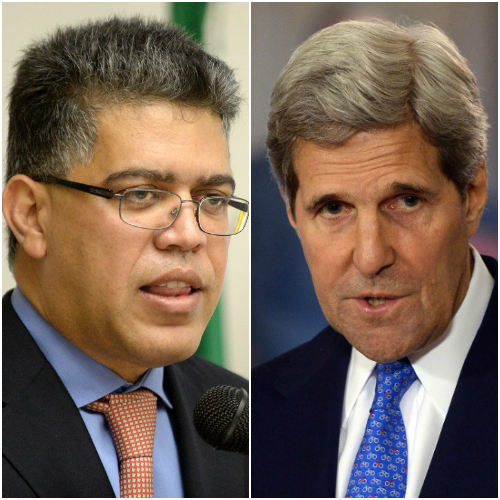 Mind your own business, Venezuela's foreign minister tells US' John Kerry Mind your own business, Venezuela's foreign minister tells US' John Kerry
Venezuela's foreign minister on Monday rebuked his United States counterpart John Kerry for criticising the handling of street protests and reiterated accusations Washington wants to topple the socialist government.
In the US government's strongest comments since demonstrations began in February, Kerry said last week that Venezuela's government had shown "total failure" of good faith in now-suspended talks to stem the unrest.
In Venezuela's worst violence in a decade, 42 people have died during months of daily protests demanding President Nicolas Maduro's departure and solutions to economic hardships.
"This is not an issue that concerns Mr John Kerry," Foreign Minister Elias Jaua told reporters on Monday after returning from the regional Union of South American Nations (Unasur) bloc's meeting in Ecuador.
Maduro, who became president after the death of Hugo Chavez last year, says the protests are a veneer for a US-supported conspiracy to bring him down.
"It's not Bolivarian paranoia; these are real facts that clearly violate international law," he added, next to a photo of Chavez, who re-named the country the Bolivarian Republic of Venezuela in homage to independence hero Simon Bolivar.
The Maduro government is particularly angry at some US legislators' calls for sanctions on officials, though the Obama administrations has expressed reluctance for fear of curbing attempts at political reconciliation within Venezuela.
At its weekend meeting, the Unasur group of South American governments explicitly condemned the sanctions proposal as "violating the principle of non-intervention."
Unasur hears complaint against US
Venezuela made a formal complaint of US interference at the Unasur meeting, in the Galapagos islands, and journalists at Monday's news conference were given a booklet of comments by Kerry and other US officials to bolster the Venezuelan government's case.
Washington has scoffed at the accusations, saying they are a smokescreen to hide the government's domestic problems.
The specter of US involvement in Latin America always stirs strong emotions in the region, which remembers the US government's backing of military coups in the 20th century. The Maduro government constantly reminds Venezuelans how Washington appeared to back a brief toppling of Chavez in 2002.
Demonstrators say they have no foreign masters and are simply complaining about food shortages, rampant crime and one of the highest inflation rates in the world. The protests failed to spread significantly from middle-class bastions and have ebbed in recent weeks, leading Maduro to assert he survived an attempt to oust him.
The protests, which ranged from thousands-strong marches to night-time barricades of major avenues with burning tires, also fractured the opposition movement. Some moderates deemed them useless, or even counterproductive, as they fomented government allegations that activists are elitist coup-seekers.
Hard-line protesters, who are vowing to carry on, retorted that institutions and courts are skewed against them, so taking to the street is the only way to make their grievances heard.
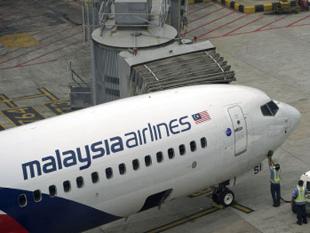 Malaysia, Inmarsat release satellite raw data on missing MH370 Malaysia, Inmarsat release satellite raw data on missing MH370
Malaysia and Inmarsat on Tuesday released the raw communications satellite data related to missing Malaysia Airlines flight MH370 that disappeared on March 8.
“Finally, after almost three months, the Immarsat raw data is released to the public,” said a post on the Facebook page of relatives of people aboard the missing aircraft.
“Hope this is the original raw data and can be used to potentially ‘think out of the box’ to get an alternative positive outcome,” it said.
The Facebook page posted the first 10 pages of the released Inmarsat raw data.
he plane vanished an hour into a night flight from Kuala Lumpur to Beijing with 239 people on board, mostly Chinese nationals.
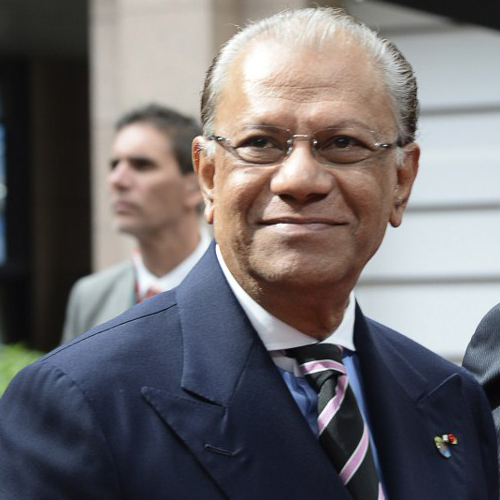 Mauritius PM Navinchandra Ramgoolam arrives in Delhi for Narendra Modi's swearing in Mauritius PM Navinchandra Ramgoolam arrives in Delhi for Narendra Modi's swearing in
Mauritius Prime Minister Navinchandra Ramgoolam arrived here today with a delegation to attend prime minister-designate Narendra Modi's swearing-in ceremony.
All arrangements for the swearing-in ceremony of 63-year-old Modi , who led the BJP to an astounding victory in the recently concluded Lok Sabha elections, have been made. It is expected that nearly 3,000 guests, including the heads of government of seven nations from the South Asian Association for Regional Cooperation (SAARC) grouping, will attend the landmark event.
Pakistan Prime Minister Nawaz Sharif, his Nepal counterpart Sushil Koirala, Afghanistan President Hamid Karzai, Sri Lankan President Mahinda Rajapaksa and Maldivian President Abdulla Yameen Abdul Gayoom, Bhutan Prime Minister Tshering Tobgay and Bangladesh Parliament Speaker Shirin Sharmin Chaudhury will attend the ceremony.
This is the first time that SAARC heads of government have been invited to the swearing-in ceremony of an Indian prime minister.
President Pranab Mukherjee will administer the oath of office and secrecy to Modi and his Council of Ministers in the presence of a host of leaders, including outgoing Prime Minister Manmohan Singh, Congress president Sonia Gandhi and party vice president Rahul Gandhi, besides leaders of various other parties and chief ministers of a number of states.
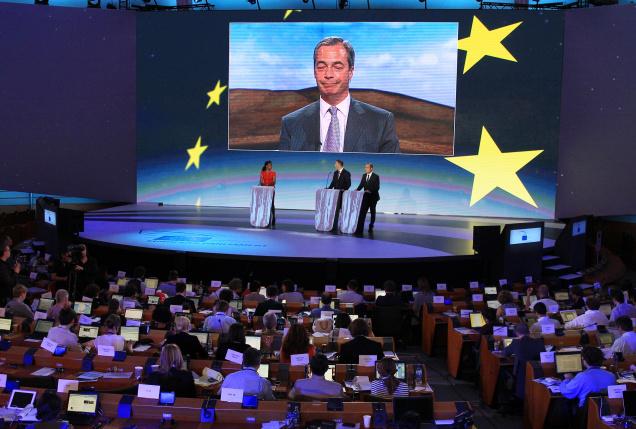 Far-right, eurosceptics gain ground in EU elections Far-right, eurosceptics gain ground in EU elections
Far-right and eurosceptic parties scored big victories on Sunday as voters in the European Union picked a new parliament for the bloc, setting the stage for a challenging five years of EU lawmaking.
France delivered the biggest upset, with the anti-immigrant, far-right National Front expected to score its first victory in a national election. Its leader, Marine Le Pen, called for parliament to be dissolved and new elections held.
Ms. Le Pen, whose party wants France to ditch the euro and hold a referendum on quitting the EU, told reporters the country had voted for rule “of the French, by the French, for the French.” But her compatriot Joseph Daul, the leader of the conservative faction in the European Parliament, expressed disappointment.
“I am sad tonight of the image France is displaying vis-à-vis other European countries,” he told journalists in Brussels.
Two exit polls showed the National Front winning 25 per cent of the vote -- well ahead of President Francois Hollande’s Socialist Party, which trailed in third with what could be its worst showing since 1994.
Governing parties in other countries were also punished by voters, amid disenchantment with the EU -- and notably its response to the eurozone’s economic crisis.
“Ruling parties have paid a price in these elections,” Swedish Prime Minister Fredrik Reinfeldt told supporters in Stockholm, after his conservative party saw its worst result in an EU election.
The anti-EU UK Independence Party (UKIP) looked headed to top the British poll with 31 per cent of the vote and 22 seats, after nine of 12 regions had been counted early on Monday. The ruling Conservative Party was in second place with 25 per cent.
Scotland and Northern Ireland were not expected to give results until later on Monday and results in London were reportedly delayed by vote-counting problems in one council.
“The day where we have more referendums on EU membership and membership of the euro will have come much, much closer with these results tonight,” its leader, Nigel Farage, told journalists in Brussels via videolink.
Ruling parties in Germany and Spain were also dealt a blow. The conservative Spanish People’s Party saw its vote share drop by 17 percentage points, while Germany’s ruling Christian Democrats were expected to face their worst-ever result in an EU poll.
The anti-euro Alternative fuer Deutschland, on the other hand, secured its first seats in the EU’s parliament. The far-right National Democratic Party -- which has overtly neo-Nazi supporters -- could also be on course to win its first seat.
In Greece, exit polls had the far-left SYRIZA party leading with 26-30 per cent, ahead of the ruling conservative New Democracy Party.
SYRIZA has campaigned vociferously against the austerity that was part of the response to the economic crisis.
Right-wing and anti-immigrant parties also made gains in Austria, Finland and Sweden, while the Danish People’s Party won the biggest share of the vote in that Nordic country, according to exit polls and initial projections.
In the east, ruling parties took a drubbing in Bulgaria, Croatia and the Czech Republic, while Hungary’s far-right Jobbik party became the largest opposition party.
Commission president candidate Guy Verhofstadt nevertheless struck an upbeat tone, arguing that a large majority of the incoming parliament will be pro-EU.
The conservative European People’s Party is expected to remain the largest group in the legislature, with provisional results issued early Monday attributing it 212 out of 751 seats. They foresaw the Socialists coming in second with 186 seats.
“You cannot say that there is a majority of eurosceptics and nationalists winning these elections,” Verhofstadt said. “At least two (out of) three representatives in the new parliament are people who are in favour of the EU.” Eurosceptics also were handed resounding defeats in two of the EU’s largest countries -- Italy and the Netherlands.
Italian Prime Minister Matteo Renzi was forecast to have led his centre-left Democratic Party to a landslide win, crushing fears that it could lose to the anti-establishment Five Star Movement of Beppe Grillo, which came in a distant second.
The Dutch far-right, anti-immigrant Party for Freedom of eurosceptic Geert Wilders also unexpectedly lost support to land in third place.
Voter turnout delivered another surprise. There had been warnings that interest could drop, but a parliament projection estimated that around 43 per cent of eligible EU voters had cast ballots -- in line with the last election in 2009.
“It’s true, 43 percent is not a high figure, but what is important is that for the first time it is going up and no longer going down, as we have seen the last 30 years,” Verhofstadt noted.
Around 400 million people across the 28-country EU were eligible to vote in the quinquennial elections. Official results are expected to trickle in over the coming days.
The race for commission president was a novelty meant to boost voter interest. Conservative contender Jean-Claude Juncker, a former Luxembourg prime minister, said he felt “entitled” to the post since his party will be the largest in the new parliament.
But Juncker will now need to win over a majority in the new legislature and among EU governments.
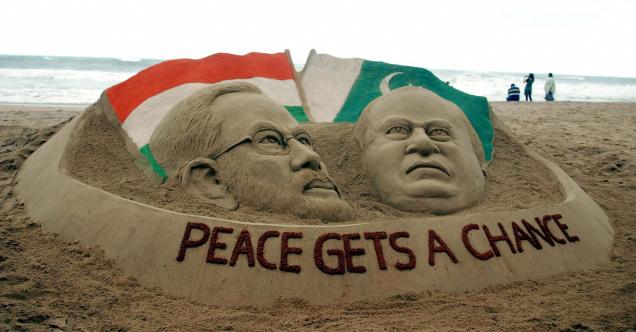 Sharif to leave for India to attend Modi’s swearing-in Sharif to leave for India to attend Modi’s swearing-in
Prime Minister Nawaz Sharif will on Monday leave for India to attend the oath taking ceremony of Prime Minister-designate Narendra Modi, becoming the first ever Pakistani leader to do so.
The 63-year-old Mr. Modi, who led BJP to an astounding victory in the Lok Sabha polls, last week extended invitation to SAARC leaders including the Pakistan premier.
Mr. Sharif, accompanied by a small delegation, will leave Pakistan at 9.30 a.m. (local time) and land in New Delhi after a brief flight at around 11.00 a.m. (local time).
Sources said it is expected that the Pakistan leader will also give formal invitation to his counterpart for a visit.
The News last night reported that Mr. Sharif met his younger brother Shahbaz Sharif along with others in Lahore and discussed the visit.
“The premier said Pakistan wanted the resolution of all issues with India, including Kashmir, Sir Creek, water and trade, and it wanted to establish a relationship on the basis of equality for peace in the region,” the paper said, citing unnamed sources.
In the meeting, Mr. Sharif said the government’s decision to release arrested Indian fishermen as a goodwill gesture and giving back the confiscated fishing boats for the first time in the history of the two sides was aimed at improving the ties.
No breakthrough is expected during the visit but it will provide the two leaders an opportunity to cultivate personal relations which go a long a way in reducing tensions.
Pakistan has avoided repeated reference to Kashmir before the visit which was in contrast to former military ruler Pervez Musharraf’s Agra trip of 2001 when he announced that the disputed region will be the central focus of the summit.
In another major development, Pakistan has so far not dropped any hint that Mr. Sharif will meet the Kashmiri leaders which is also a departure from the established tradition.
Mr. Musharraf’s high tea party by Pakistan High Commission in 2001 where the APHC leaders were invited had created a storm and almost rocked the entire trip.
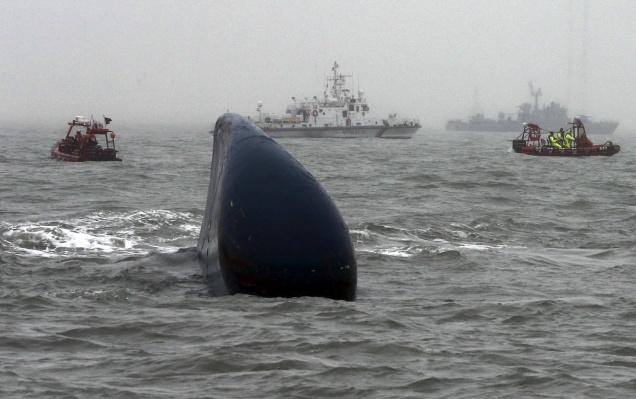 South Korea boosts reward for tips on ferry owner South Korea boosts reward for tips on ferry owner
South Korea has boosted to half a million dollars a reward for tips about the mysterious billionaire who prosecutors say owns a ferry that sank last month, police said Monday.
The ten-fold increase in the reward comes as officials struggle to find Yoo Byung-eun on allegations of tax evasion, embezzlement and professional negligence. Prosecutors have said that a failure to spend enough money on safety may be a reason for the April 16 sinking.
The sinking of the Sewol ferry left more than 300 people dead or missing, most of them high school students.
The $500,000 bounty is the same amount given if a South Korean citizen provides information about a North Korea-dispatched spy.
Police are also offering a bounty of $100,000 from Sunday, up from the previous $30,000, for Yoo’s eldest son, according to the National Police Agency. He faces embezzlement allegations.
Yoo, head of the now-defunct predecessor of the ferry’s current operator, Chonghaejin, allegedly still controls the company through a complex web of holding companies in which his children and close associates are large shareholders. Senior prosecutor Kim Hoe-jong said authorities believe Yoo is the chairman of Chonghaejin.
Five Chonghaejin employees have already been arrested. Authorities suspect improper stowage and overloading of cargo may have contributed to the disaster.
Prosecutors earlier this month indicted fifteen crew members tasked with the ship’s navigation, four on homicide charges.
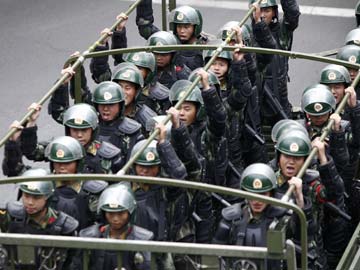 China Busts 23 'Terror, Religious Extremism Groups China Busts 23 'Terror, Religious Extremism Groups
Beijing,: Chinese police in the far western region of Xinjiang have taken down 23 "terror and religious extremism groups" and caught more than 200 suspects in May, state media said, days after the region's deadliest attack in years.
China has announced year-long "anti-terrorism" operations in restive Xinjiang, home to a large Muslim Uighur minority, as well as nationwide, following a series of bloody incidents that Beijing blames on Islamists and separatists from the region.
Police busted the groups in the southern Xinjiang prefectures of Hotan, Kashgar and Aksu and seized more than 200 explosive devices in raids, the official Xinhua news agency said late on Sunday.
Many of those captured were in their 20s and 30s, and had learned how to make explosives by watching online videos, Xinhua said.
"They exchanged their experiences of making explosives and propagating jihad through chatting tools, text messages and illegal preaching sites," the news agency said, citing the regional public security department.
China has said five suicide bombers carried out an attack at a morning vegetable market in Xinjiang's capital of Urumqi on Thursday, which killed 31 people and injured 94.
It was the second attack in Urumqi in just over three weeks, after a bomb went off at a train station in late April, killing a bystander and wounding 79.
"[We] must truly turn violent terrorists into rats scurrying across the street, with everyone shouting to beat them down," state media cited Zhang Chunxian, the ruling Communist Party chief in Xinjiang, as saying at a Sunday meeting on the latest Urumqi attack.
At least 180 people have been killed in attacks across China over the past year.
Beijing warns that separatist groups in Xinjiang are seeking to form their own state called East Turkestan.
But exiles and rights groups say the real cause of the unrest in the resource-rich region bordering central Asia is China's repressive policies that put curbs on Islam and the culture of Uighurs, Muslims who speak a Turkic language.
Uighurs have long complained of official discrimination in favour of the Han, China's majority ethnic group.
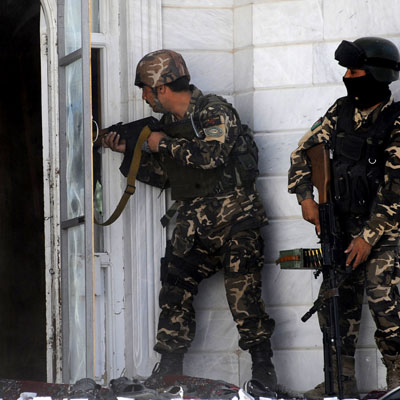 US condemns attack on Indian consulate in Afghanistan US condemns attack on Indian consulate in Afghanistan
The US has condemned the attack on the Indian consulate in Herat and said America will keep working on the security situation with Afghanistan as the war-torn nation transitions to a "different period".
The Indian consulate in western Afghanistan was attacked yesterday by four heavily-armed gunmen, who were subsequently killed in an encounter as India attributed the pre-dawn strike to terror elements "beyond the borders" of the war-torn country. "We are concerned about these kind of situations, and we'll keep working with folks there on the security situation," State Department Deputy Spokesperson, Marie Harf, told reporters yesterday.
Stating that she does not have much on who perpetrated this attack, Harf noted that the Indian and Afghan security forces performed courageously in stopping the attack. "I don't know what was behind the attack. Obviously, we've seen other horrific attacks like this in Afghanistan and believe that Afghanistan has a better path forward here, and we'll keep working with them on security," Harf said.
She however said, Afghanistan was absolutely a "tough place" to work. "We have people who serve there – both US officials and also private citizens – who do so like Indian citizens do, at risk, because they believe it's important," she said. "So one thing we're focussed on is, even as we transition to a different period with our efforts in Afghanistan, to keep working on security, to keep trying to build Afghanistan's own capabilities to keep their own people and people working there secure. But it's absolutely a tough place to work," Harf said.
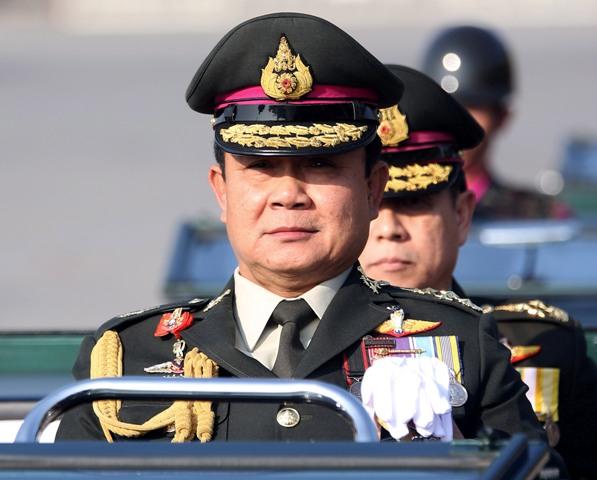 US suspends military aid to Thailand US suspends military aid to Thailand
The US has suspended its military aid to Thailand in the wake of a bloodless coup there, as chief of the US Army called his Thai counterpart urging him to return the country to democratic rule.
“We have already suspended approximately $3.5 million in FMF (foreign military financing) and IMET (International Military Education and Training) funding currently. We are reviewing all programs to determine other assistance, which we may suspend,” State Department Deputy Spokesperson Marie Harf told reporters on Friday.
Ms. Harf, however, said that all aid has not been cut.
The US in 2013 gave $10.5 million in form of bilateral assistance, economic and international security assistance.
“There are also global and regional programs funding through things like ASEAN, APEC that goes to a number of different countries. One of the things we’re doing right now is going through all of those to call out what actually goes to Thailand, and that just is a process that takes some time,” she said.
Meanwhile, the Pentagon said that US Army Chief General Raymond T. Odierno called his Thai counterpart General Prayuth Chan-ocha on Thursday and urged him to return the country to democratic rule.
“I am told it was a constructive conversation and the general made it clear that we certainly expect a return to democratic principles in Thailand just as soon as possible, but I won’t go into any more detail than that,” Pentagon Press Secretary Rear Admiral John Kirby said.
In a travel alert, the US Department of State recommended its citizens to reconsider any non-essential travel to Thailand, particularly Bangkok, due to ongoing political and social unrest and restrictions on internal movements, including an indefinite night-time curfew throughout Thailand.
The Department of State has advised official US government travellers to defer all non-essential travel to Thailand until further notice, the alert said.
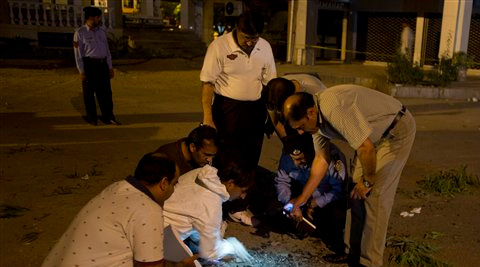 Bomb explosion in heart of Islamabad, one injured: report Bomb explosion in heart of Islamabad, one injured: report
A bomb explosion rocked the heart of Pakistan’s capital on Saturday, injuring one, a local media report said.The attack took place in the posh Super Market, near Shaheen store in sector F-6, close to the centre of Islamabad and police said it was caused by a suspected suicide bomber, The Express Tribune reported.
“Officials from the Kohsar police station said that a local security guard at the super market had intercepted a suspicious person just before the blast...He (security guard) was shifted to the Polyclinic hospital,” the Tribune said.
There were also reports of a second blast in a car near Karachi Company in G-9 Markaz. However, no injuries were reported, the daily said.
The attacks were the first to strike the capital since an explosion tore through a bustling fruit and vegetable market in April, killing at least 23 people and injuring over 100.
The incident comes after recent air strikes by the Pakistani military against militant hideouts which killed at least 75 people, according to reports.
A month-long ceasefire between Pakistan and the Taliban, who have waged a seven-year insurgency, expired last month.
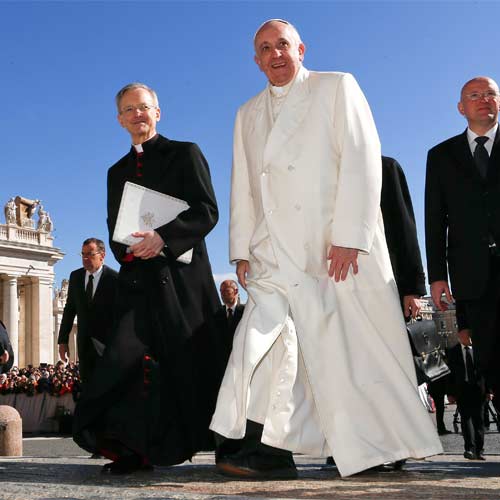 Pope to start delicate Middle East trip in Jordan Pope to start delicate Middle East trip in Jordan
Pope Francis arrives in Jordan on Saturday to start an intense three-day trip to the Middle East, bringing hope to the dwindling Christian population and an appeal to members of all religions to work together for peace.
"This is not a protocol visit," Patriarch Louis Sako, Iraq's senior Churchman, told reporters in Amman on the eve of the visit. "This pope feels the pain of Christians and his arrival at this time as peoples of this region are going through conflict, killings and destruction is a message of common living. It's an appeal that everyone in this region should have the courage to review their positions, to get out of this suffocating crisis," he said.
The Christian population has been declining steadily across the Middle East for generations. The Arab revolts of the recent years, the civil war in Syria, and the rise of radical Islam are only accelerating the process.
In Israel and the occupied West Bank, more Palestinian Christians are looking to leave, blaming Israel for withering their economic prospects and hobbling their freedom of movement. "We are waiting impatiently for a word of peace from the pope that will raise morale. People in the street are asking what message will the pope carry," Sako said.
It is the first visit to the region by Francis, leader of the world's 1.2 billion Roman Catholics.
After meeting King Abdullah and saying a Mass in an Amman stadium, the pontiff will meet refugees from Syria and Iraq in Bethany on the Jordan, the place where according to tradition Jesus was baptised. On Sunday morning Francis flies by helicopter to Bethlehem, making a six-hour visit to what the Vatican's official programme calls "the State of Palestine," a terminology Israel rejects.
In 2012, the Vatican angered Israel by supporting a vote in the United Nations General Assembly to give Palestinians de facto statehood recognition. Israel argues such a move should only come through negotiations.
Morale Booster
Palestinians see the pope's visit, and the fact that he is flying in directly from Jordan instead of going through Israel's security barrier from Jerusalem, as a major morale boost. To underscore his conviction that all three great monotheistic faiths can live together in the region and help to tackle the political stalemate, Francis has enlisted a rabbi and an Islamic leader to be part of a travelling papal delegation for the first time.
The two - Rabbi Abraham Skorka and Omar Abboud, director of the Institute for Religious Dialogue in Buenos Aires - are friends from when Francis was cardinal in his native Argentina.
Their presence is "an extremely strong and explicit signal" about the importance of inter-religious dialogue in the region, said the Vatican spokesman, Father Federico Lombardi. Francis, the first non-European pope in 1,300 years, flies to Israel on Sunday night for a 32-hour visit packed with 16 events.
Threats to Christians have been scrawled by suspected Jewish radicals on Church property in the Holy Land. One read: "Death to Arabs and Christians and all those who hate Israel.Their writings desecrate our religious symbols. They are written on walls of churches, monasteries," said Archbishop Fouad Twal, Jerusalem's top Catholic official, speaking in Amman.
"We want these perpetrators to be put to justice and we want to know who is behind these extremist groups. They sour the peaceful atmosphere we want to create for the Holy Father," he said.
Israeli security forces, fearing that radicals might carry out a major action against the Christian population or institutions, issued restraining orders against several Jewish right-wing activists for the duration of the trip.
 In historic policy change, FBI, other US law enforcement agencies to record interrogations In historic policy change, FBI, other US law enforcement agencies to record interrogations
The FBI and several other United States federal law enforcement agencies will reverse a policy that has long prohibited the recording of interrogations of people held in custody, a Justice Department memo sent last week said.
The new policy, effective July 11, creates a presumption that agents of the Federal Bureau of Investigation, the Drug Enforcement Administration, the US Marshals Service and the Bureau of Alcohol, Tobacco, Firearms and Explosives will record video statements made by people who are in their custody prior to appearing in court.
Attorney General Eric Holder said in a video address on Thursday that the policy change was the result of a thorough review that concluded recordings would ensure an "objective account of key investigations and interactions with people who are held in federal custody".
Criminal defense lawyers have long advocated that the over 100-year-old ban on recordings be overturned in the interest of transparency.
"Recording interrogations protects the accused against police misconduct, protects law enforcement against false allegations, and protects public safety by ensuring a verbatim record of the interrogation process and any statements," said Jerry Cox, president of the National Association of Criminal Defense Lawyers, in a statement on Wednesday.
There are some instances when recording will still not be allowed, such as when the interviewee refuses to be recorded or when doing so would threaten public safety or national security.
Hundreds of state and local jurisdictions across the United States currently record interrogations, according to data from the National Association of Criminal Defense Lawyers.
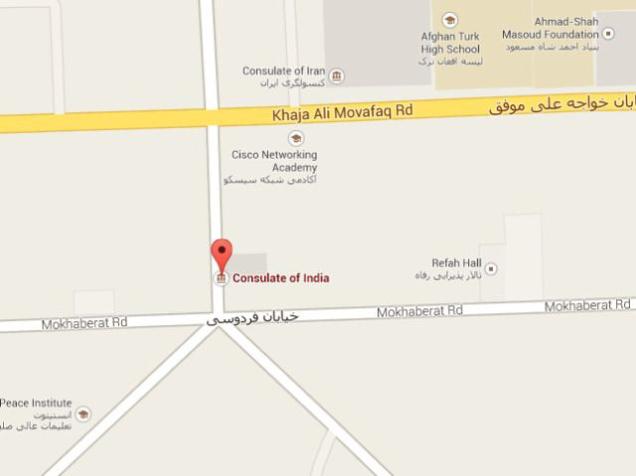 Indian Consulate attacked in Afghanistan's Herat province Indian Consulate attacked in Afghanistan's Herat province
Indian Consulate in Afghanistan’s Herat province was on Friday attacked by heavily armed gunmen, who were also carrying rocket-propelled grenades, top Indian officials said, adding that everyone was safe.
“India’s Consulate in Herat, Afghanistan attacked. Brave ITBP (Indo-Tibetan Border Police) personnel and Afghan soldiers rebut attackers. All are safe,” said a spokesperson in the Ministry of External Affairs in New Delhi.
The spokesperson said that operation is underway.
“India-Afghanistan officials (were) in touch on attack on India’s Consulate in Herat. Foreign Secretary Sujatha Singh (was) monitoring (the) situation,” the official said.
Afghan police officials said that three gunmen armed with machine guns and rocket-propelled grenades opened fire on the consulate early on Friday morning from a nearby home. Police killed two of them, though one continued to fire on security forces.
No group has claimed responsibility for the attack.
India has invested in some major infrastructure projects in Afghanistan like Salma hydroelectric dam in Herat province and the Afghan parliament building in Kabul.
India’s development assistance programme for Afghanistan currently stands at $two billion, making it the leading donor nation among all regional countries.
Afghanistan has experienced a rise in the Taliban attacks as foreign troops plan to withdraw from the war-torn country by the end of the year.
In August last year, a failed bombing against the Indian Consulate in Jalalabad city near the border with Pakistan killed nine people, including six children. No Indian officials were hurt.
The Indian Embassy in Kabul was attacked twice in 2008 and 2009 that left 75 people dead.
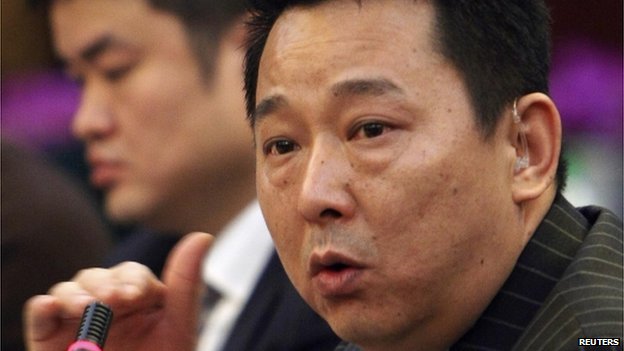 China sentences Liu brothers to death China sentences Liu brothers to death
A Chinese court on Friday sentenced former mining tycoon Liu Han and his brother Liu to death finding them guilty of “organising and leading mafia-style crime and murder”.
The Xianning Intermediate People’s Court in central China’s Hubei Province announced the verdicts on the first trials of 36 members of an allegedly mafia-like gang led by Liu.
Liu Wei, Liu Han’s brother, was also sentenced to death, state-run Xinhua news agency said.
The Liu brothers and 34 other defendants were accused of crimes including organising, leading and participating in a criminal gang and intentional homicide.
The trials, which saw 36 defendants simultaneously prosecuted in seven cases, ended on April 19.
They were the largest criminal group of its kind on trial in China in recent years.
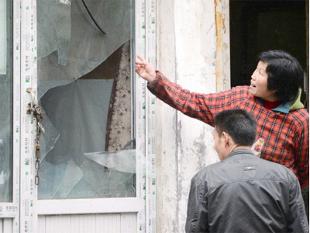 China beefs up security in Xinjiang after multiple blasts China beefs up security in Xinjiang after multiple blasts
Beijing: Stepping up security in restive Xinjiang province after a series of blasts in the provincial capital Urumqi, China has asked the local administration to severely punish the "terrorists" responsible for the attack.
At least 31 people were killed and 90 others injured in the explosions in an open-air market in Urumqi, the bloodiest "terror" attack in recent years blamed on radical separatists.
Minister of Public Security Guo Shengkun called for doing utmost to treat the injured, and severely punishing those terrorists.
Guo, also a state councillor and leader of the national anti-terrorism leadership group, went to Urumqi immediately after the attack yesterday.
Evidence on the scene of the crime showed that it was a premeditated and organised terrorist attack, state-run Xinhua news agency reported.
After checking the scene and learning the process of the crime, Guo held a meeting in Xinjiang Uygur Autonomous Region's publicity department, deploying the investigation of the case.
He said the incident showed the terrorists' nature of anti-human and anti-society, calling for making a thorough investigation of the case quickly, and severely punishing the terrorists in accordance with law.
"The case warned us that we should keep a vigilant eye on anti-terrorist work, and take an iron-handed attitude to launch a special campaign against terrorism in Xinjiang," Guo said.
Guo visited the hospital where the injured were admitted and urged medical staff and related departments to spare no efforts to treat the injured people.
Guo also called on local administration to make all out efforts to safeguard social stability, strengthen integrated prevention and control measures, and further screen potential dangers.
He also called for strengthened armed patrol in crowded places, control of dangerous and explosive items, and severely punish all kinds of serious crimes.
Guo urged the local authorities to rely on the people and the grassroots.
Last night, Meng Jianzhu, head of the Commission for Political and Legal Affairs of the Communist Party of China, held an emergency video conference to address the Xinjiang incident.
Meng called for a more resolute attitude and more forceful measures to be taken to crack down on terrorists.
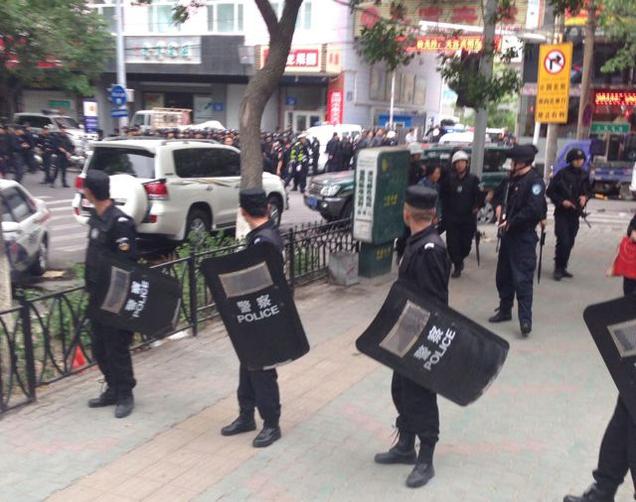 Blast rocks capital of China's Xinjiang region Blast rocks capital of China's Xinjiang region
Powerful explosions rocked a crowded open market in the provincial capital of China's Muslim-majority Xinjiang region on Thursday morning, leaving an unknown number of people killed and injured.
Authorities were working to establish the number of casualties, officials said an hour after the blast shattered a market at 7.50 a.m. local time (5.20 a.m. IST).
The official Xinhua news agency said two “cross-country vehicles” had been seen by witnesses driving through the market, as attackers threw out explosives from the car. At least one of the explosives exploded in the market.
Photographs posted on China's Twitter-equivalent Sina Weibo showed a scene of devastation at the market: at least four people were shown lying injured as debris was scattered through the street.
Xinhua reported the market was located in downtown Urumqi, which is usually under tight security. Xinjiang's capital was the site of ethnic riots in 2009 that left at least 197 people killed and more than a thousand injured as ethnic Uighurs clashed with majority Han Chinese.
Chinese officials say recent months have seen a surge in terror attacks, linked to Uighur separatist groups. More than 30 people have been killed and at least two hundred injured in knife attacks that struck railway stations in Urumqi, southwestern Kunming in Yunnan province and southern Guangzhou.
The attacks were thought to be carried out by Uighur Islamist groups. Only on Wednesday, a court in Urumqi sentenced 39 Uighurs on terror charges.
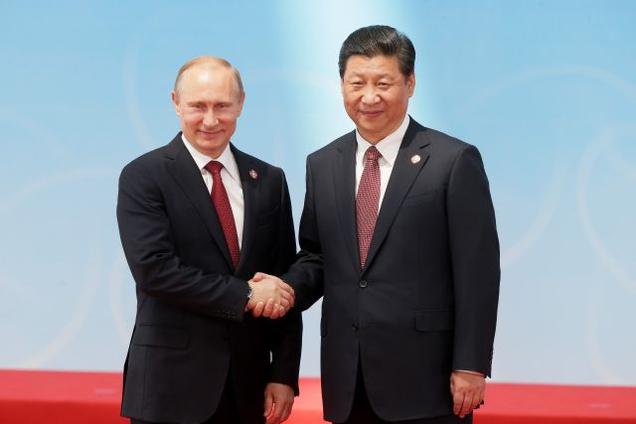 China, Russia sign 30-year gas deal China, Russia sign 30-year gas deal
China and Russia on Wednesday signed a landmark gas deal ending more than decade-long negotiations, with the agreement for the annual supply of 38 billion cubic metres of natural gas, hailed by the leaders of both countries as underlining their increasingly close ties.
For energy-hungry China, the deal will provide a crucial source of clean energy as the country attempts to sustain growth while reducing its reliance on coal as it battles worsening pollution.
The deal has been valued by some analysts at more than $400 billion, although both sides did not reveal the agreed upon price — the biggest sticking point in tough negotiations that were drawn out over a decade.
The deal was signed as visiting Russian President Vladimir Putin held talks with Chinese President Xi Jinping in Shanghai, where both sides are attending a regional security summit.
Starting 2018, China’s State-run China National Petroleum Corporation (CNPC) will receive 38 billion cubic metres of natural gas annually through a pipeline from Siberia’s gas fields.
Mr. Putin described the deal as the “biggest in history” for his country.
Officials said negotiations carried on until the last minute, concluding only in the early hours of Wednesday, with the Russian leader describing his Chinese interlocutors as “difficult, hard negotiators”.
While both sides did not reveal the agreed upon price, Mr. Putin did say that China had also pledged $ 20 billion investment in infrastructure and gas development in eastern Russia.
That the agreement was finally signed amid increasing tensions between Mr. Putin’s government and Europe led some observers to suggest China had likely emerged with the better deal, with Russia keen to end its reliance on European countries and find a new market for its energy exports.
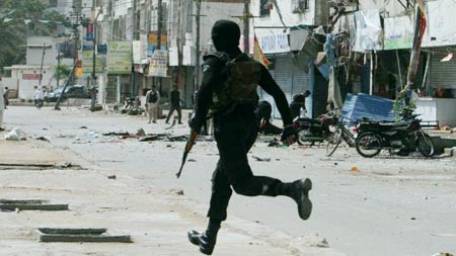 75 killed as air strikes target Taliban in NWA 75 killed as air strikes target Taliban in NWA
ISLAMABAD: At least 60 hardcore terrorists, including local and foreign commanders, were killed and 30 other injured as Pakistan Air Force jets pounded Taliban hideouts in North Waziristan Agency (NWA), military said on Wednesday, while at least 11 terrorists were killed and four security personnel martyred in an exchange of fire.
“On confirmed intelligence reports, airstrikes were carried out on terrorist hideouts in North Waziristan Agency this morning,” ISPR said in a statement. “As per reports so far, 60 hardcore terrorists including some of the important commanders and foreigners were also killed in the strikes and around 30 were injured. Huge cache of arms and ammunition including IED making explosive material has also been destroyed in the strikes,” it added. Meanwhile, 11 terrorists were killed and four security personnel martyred in an encounter in Mirali, NWA. in the afternoon, ISPR said.
The military said a large number of civilians and security forces’ personnel were martyred in various IED blasts and suicide attacks in FATA, KP and Karachi in the last few weeks. The terrorists targeted in the airstrikes were linked to these bomb and suicide attacks in different parts of country. “Intelligence reports and other investigations confirmed the linkage of these terrorist acts with terrorists targeted who were hiding in North Waziristan Agency,” the statement said.
According to military sources, two of the commanders killed in the strikes in villages of Miranshah and Mir Ali subdivisions were identified as Toor Wali and Zamurd Jahan. Both are believed to be close associates of TTP commander Jehadyar Mehsud, who was also killed in an airstrike this February.
On February 20, at least five top TTP commanders – Jihadyar Mehsud, Sailab Wazir, Abdul Razzaq Wazir, Abdul Sattar Khan and Mahmood Khurasani – were killed in army airstrikes. Talking to Daily Times by phone, NWA Political Agent Siraj Khan said round-the-clock curfew has been imposed across the tribal agency. “The security forces have launched successful strikes on the terrorist hideouts. The curfew has been imposed because search operations are underway.
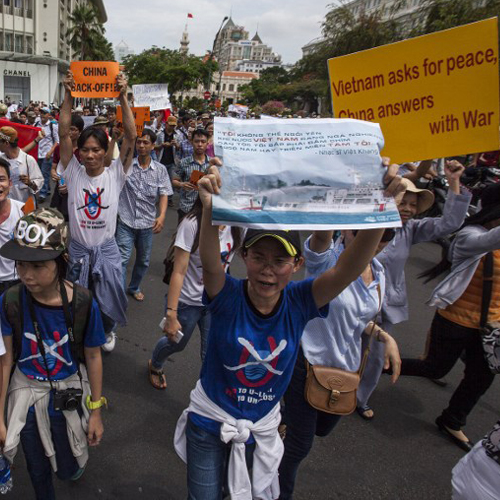 Vietnam considering legal action against China over disputed waters, says PM Nguyen Tan Dung Vietnam considering legal action against China over disputed waters, says PM Nguyen Tan Dung
Protesters march in Ho Chi Minh City in Vietnam's largest ever anti-China demonstrations over the past weeks against Beijing's deployment of a deep-water drilling rig in contested waters.
Vietnamese Prime Minister Nguyen Tan Dung said his government was considering various "defence options" against China, including legal action, following the deployment of a Chinese oil rig to disputed waters in the South China Sea.
Dung's comments, given in a written response to questions from Reuters, are the first time he has suggested Vietnam would take legal measures, a threat that is likely to infuriate Beijing.
"Vietnam is considering various defence options, including legal actions in accordance with international law," Dung said in an email sent while on a visit to Manila late on Wednesday. He did not elaborate on the other options being considered. "I wish to underscore that Vietnam will resolutely defend its sovereignty and legitimate interests because territorial sovereignty, including sovereignty of its maritime zones and islands, is sacred," he said.
In late March, the Philippines submitted a case to an arbitration tribunal in The Hague, challenging China's claims to the South China Sea. It was the first time Beijing has been subjected to international legal scrutiny over the waters. Beijing has refused to participate in the case and warned Manila that its submission would seriously damage ties.
Anti-Chinese violence flared in Vietnam last week after a $1 billion deepwater rig owned by China's state-run CNOOC oil company was parked 240 km (150 miles) off the coast of Vietnam.
Hanoi says the rig is in its 200-nautical mile exclusive economic zone and on its continental shelf. China has said the rig was operating completely within its waters.
The move was the latest in a series of confrontations between China and some of its neighbours. Washington has responded with sharpened rhetoric towards Beijing, describing a pattern of "provocative" actions by China.
On Wednesday, Dung said Vietnam and the Philippines were determined to oppose Chinese infringement of their territorial waters, calling on the world to condemn China's actions in a rare public show of unity against Beijing.
Manila is seeking a ruling from the Permanent Court of Arbitration to confirm its right to exploit the waters in its exclusive economic zone as allowed under the UN Convention on the Law of the Sea (UNCLOS). A ruling against China could prompt other claimants to challenge Beijing, experts have said. But any ruling would effectively be unenforceable because there is no body under UNCLOS to police such decisions, legal experts said.
China claims about 90% of the South China Sea, displaying its reach on official maps with a so-called nine-dash line that stretches deep into the maritime heart of Southeast Asia. The Philippines, Vietnam, Malaysia, Brunei and Taiwan also have claims to parts of the potentially energy-rich waters.
The spat between Vietnam and China is the worst breakdown in shaky but important ties between the two Communist states since a brief but bloody border war in 1979.
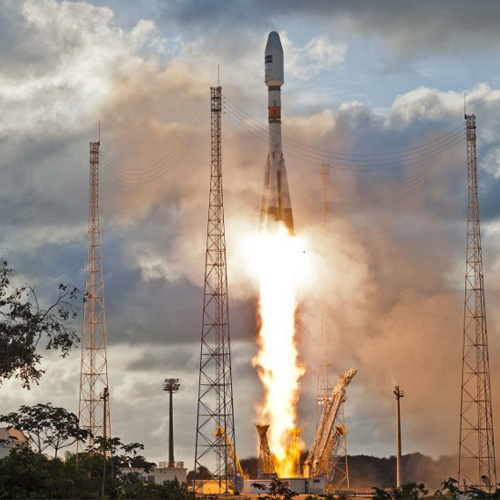 Global spending on space grew 4% in 2013 to $314 billion Global spending on space grew 4% in 2013 to $314 billion
Canada, India, Russia, South Korea and UK each raised their space expenditures by 25% or more. Worldwide spending on satellites, launches and support services increased to $314 billion in 2013, up 4% from 2012, even though the United States government reduced its own space spending, an industry association reported this week.
Commercial space activity, including rocket launches to fly cargo to the International Space Station, fueled most of the growth, the report by the US Space Foundation said. "Fifty-seven years after the launch of the first satellite, the space industry is rapidly evolving," said the foundation's annual Space Report, released on Monday. "It is clear that space technology continues to become more accessible each year to a wider variety of end-users in an increasing number of countries," it said. "The outlook for the space sector is very bright in the years to come."
Globally, commercial revenues and government spending on space projects totaled $314 billion – $12 billion more than the $302 billion spent in 2012, the report showed. Commercial space products and services, such as communication services via satellite and space-based navigation, increased 7% in 2013 over the previous year.
In all, governments spent 1.7% less in 2013 than they did in 2012, but there were notable exceptions. Canada, India, Russia, South Korea and the United Kingdom, for example, each hiked space spending by 25% or more.
Despite the increased revenue, US employment in the space industry continued its six-year decline, the latest figures from the US Bureau of Labor Statistics showed. In 2012, there were 234,173 people employed in the industry, down from 242,724 in 2011.
Meanwhile, Japanese and European industry space employment grew by 11% and 1.5% respectively in 2012.
On the civilian government side, NASA's 18,068-member workforce was essentially unchanged for the 2014 fiscal year that began October 1.
Analysts noted a slight uptick in the number of launches worldwide, with 81 launches in 2013 – three more than in 2012. The five-year average is 79 launches per year. Russia continued to dominate the world launch market, with 36 flights in 2013. The United States, after falling behind China for the past two years, came in a distant second with 19 launches in 2013.
China had 15 launches in 2013 and Europe conducted seven, the report said. In total, those 81 rockets delivered almost two-thirds more satellites into orbit in 2013 than in the previous year.
"This was largely due to a significant uptick in the number of satellites with masses below 200 pounds (91 kg)," the Space Foundation said in a press release. "These micro-satellites constituted more than half of the 197 satellites launched in 2013," the foundation said. "Many of the micro-satellites were short-lived technology demonstrations, but there is a considerable degree of interest in future possibilities for constellations," it added.
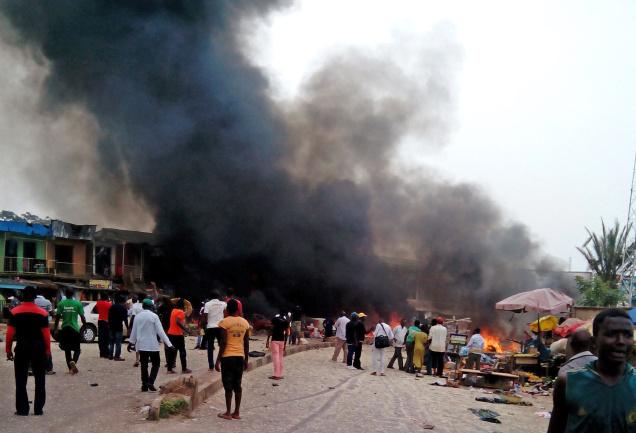 118 killed in Nigerian twin blasts 118 killed in Nigerian twin blasts
There was no immediate claim of responsibility for the twin car bombs. But they bore the hallmarks of Boko Haram.
Two car bombs exploded at a bustling bus terminal and market in Nigeria’s central city of Jos on Tuesday, killing at least 118 people, wounding dozens and leaving streets strewn with bloodied bodies.
There was no immediate claim of responsibility for the twin car bombs. But they bore the hallmarks of Boko Haram, the Islamic extremist group that abducted nearly 300 schoolgirls last month and has repeatedly targeted bus stations and other locations where large numbers of people gather in its campaign to impose Islamic law on Nigeria.
The second blast came half an hour after the first, killing some of the rescue workers who had rushed to the scene, which was obscured by billows of black smoke.
Earlier report: 46 killed in Nigerian twin blasts
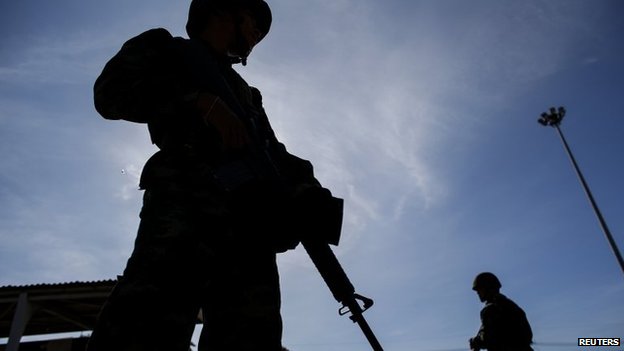 Thailand martial law: Army chief to meet key players Thailand martial law: Army chief to meet key players
Thailand's army chief is to hold talks with key players in the political crisis, a day after declaring martial law in the protest-hit nation.
General Prayuth Chan-Ocha has asked to meet the government, the Senate speaker and the two main protest factions.
After the talks it could become clearer whether the military will restrict itself to security or extend its powers, a BBC correspondent says.
On Tuesday, the acting prime minister appealed to the army to act peacefully.
Niwatthamrong Boonsongphaisan also said he had asked for new elections to be called for August, after a snap poll in February was annulled.
The army chief would meet the representatives of all the factions together, an army spokesman said, starting from 13:30 (06:30 GMT).
"General Prayuth has called a meeting at the Army Club with all sides to talk about ways out of the country's crisis," Winthai Suvaree told Reuters news agency.
Deadlock cycle
Thailand has seen six months of unrest since protesters began a campaign in November 2013 to oust the government. At least 28 people have been killed and hundreds injured.
Thailand's martial law - explained in 60 seconds
The army announced martial law in the early hours of Tuesday with the intention to "preserve order and bring back peacefulness".
It cited a 1914 law that allows intervention during times of crisis but insisted this was not a coup.
Soldiers have taken over TV and radio stations in Bangkok - both pro and anti-government - and have moved into the currently unoccupied government building.
Thailand has been trapped in a cycle of political deadlock since the military ousted Thaksin Shinawatra as prime minister in 2006.
He was widely admired by poor, rural voters - who have since elected Thaksin-allied governments in both post-coup elections - but despised by the urban elite, who form the core of the current protest movement.
His sister, Yingluck Shinawatra, led the current government until she was ousted by a court earlier this month.
The protesters say Shinawatra family money has corrupted Thailand's democracy and want an appointed administration to reform the political system before polls are held.
But any move to appoint a new administration would infuriate "red-shirt" government supporters, who have vowed to protest.
The army has staged at least 11 coups since the end of the absolute monarchy in 1932.
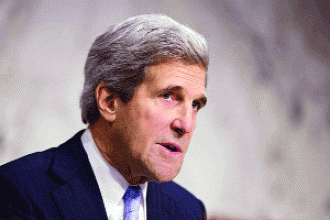 READY TO WORK WITH MODI ON GROWTH: US READY TO WORK WITH MODI ON GROWTH: US
Asserting that the United States is “deeply invested” in its strategic partnership with India, the Obama Administration declared on Tuesday that it “stands ready to work closely with Prime Minister Narendra Modi and the new government to promote shared prosperity and strengthen our security”.
In a statement, Secretary of State John Kerry also indicated that he plans an early India visit to hold consultations with the new Government. “I look forward to returning to India soon and echo President Obama’s invitation to Prime Minister Modi to visit the United States at the earliest opportunity,” he said.In his first detailed comment on the Indian elections, Kerry congratulated the BJP on its “resounding victory” and Modi on his election to the high office, adding: “The voice of the Indian electorate is clear and unequivocal in its call for economic opportunity and effective governance for all.”
“When the people of India hold the biggest democratic election in human history, all the world tunes in to watch. And what we saw has been nothing short of remarkable: more voters cast their ballots freely and fairly than any other in world history, with over 530 million Indians going to the polls,” he said, stressing: “Every time I visit India, I’m struck by the vibrancy of your culture, the energy of your youth, and the strength of your democratic institutions.”
“The friendship between the world’s oldest democracy and the world’s largest democracy is absolutely vital, and the United States is deeply invested in our strategic relationship,” Kerry said, adding: “We look forward to strengthening our partnership based on common values, shared democratic traditions, and the binding ties between our peoples.”
Earlier, at a State Department news briefing, spokesperson Jen Psaki sidestepped the unseemly visa issue relating to Modi and voiced confidence that the US’s “strong and enduring” relationship with India would only grow further under the new Government.“Obviously, we have a long, enduring partnership with India. That will continue and hopefully only grow in the future,” Psaki told reporters.
The spokesperson was dismissive of questions over a media report suggesting that Modi was less prompt in publicly responding on his Twitter handle to the congratulatory messages from President Obama as opposed to other world leaders, notably Russian President Vladimir Putin.
“I think our relationship between the United States and India is so strong and enduring we won’t worry about the Twitter rank order,” Psaki shot back when asked if she was bothered that the US president was “so far down on the list of Mr Modi’s priorities to thank”.
The Twitter-friendly Modi did post the message on his conversation with Obama, but the questioner said it had come after tweets relating to “a whole bunch of people….like President Putin and others”.“In our conversation, @BarackObama & I talked about further strengthening India-USA strategic partnership that will help both nations,” Modi had tweeted.
Faced with a barrage of questions on the visa issue, Psaki said: “I’m not going to get into the tick-tock, but heads of government and heads of state are eligible for an A-1 visa and must travel to the United States on an A-1 visa regardless of the purpose of the trip.”
Top Republican Senator John McCain, meanwhile, congratulated Modi and the BJP on their “resounding success” in the elections, adding he looks forward to working with the new government to revitalise and expand US-India strategic partnership. The election itself was “a powerful and inspiring demonstration of the vibrancy of the world’s largest democracy”, he commented.
16 bodies found in Mexico after wave of drug and gang violence
Sixteen bodies have been found in Mexico's northern state of Tamaulipas, where a battle between drug gangs has sparked a wave of bloody shootouts and massacres, Mexican authorities said on Monday.The bodies of four men and three women who have not yet been identified were found late on Sunday in a light truck in the port city of Tampico, according to a government task force set up last month to respond to the spike in violence across the state. In a separate incident, nine more bodies – five male and four female – were found beside three burned out homes in the municipality of Hidalgo near the state border with Nuevo Leon, the state government said.
Mexico's feared Gulf cartel has been battling the Zetas over control of drug and migrant smuggling routes around Nuevo Laredo, the biggest border crossing for trade between the United States and Mexico. Tamaulipas houses vast deposits of shale resources and major energy installations, including the smallest of the country's six oil refineries.
President Enrique Peña Nieto is trying to rein in drug violence, which has claimed the lives of more than 90,000 Mexicans since former president Felipe Calderon sent out the military to fight gangs at the end of 2006. Peña Nieto ordered a task force of federal and state officials in April to take over security operations in Tamaulipas amid concerns about corruption among local security forces who were failing to stop a surge in violence.
Earlier this month, a commander of a new elite investigative unit was killed by other police just two months after assuming his post.
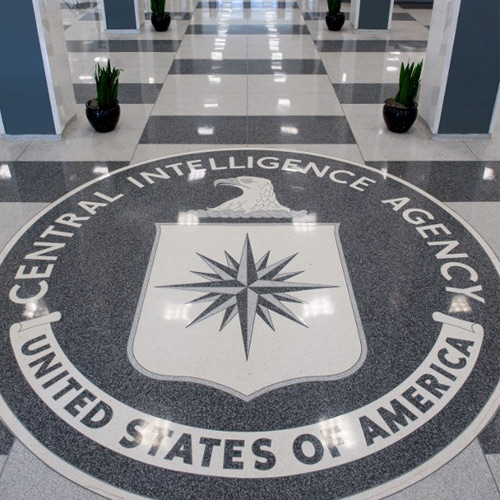 CIA will not use vaccine programs for covert operations: White House CIA will not use vaccine programs for covert operations: White House
The White House promised on Monday that the Central Intelligence Agency (CIA) will not use immunisation programs for its operations following a complaint that the spy agency used such a campaign in its hunt for Osama bin Laden.
The deans of 12 public health schools had complained about a reported vaccination program conducted by a Pakistani doctor, who used a hepatitis immunization survey in the Pakistani city where bin Laden was later killed in a secret United States mission.
The CIA orchestrated the survey to try to obtain fluid containing DNA from relatives living near the bin Laden residence, the Washington Post reported. It said the effort failed and the surgeon, Shakil Afridi, was sentenced to 23 years in prison.
Caitlin Hayden, spokeswoman for the White House National Security Council, said Obama homeland security adviser Lisa Monaco had assured the deans in a letter that CIA policy as of August 2013 makes clear "the CIA will make no operational use of vaccination programs, which includes vaccination workers".
"Similarly, the agency will not seek to obtain or exploit DNA or other genetic material acquired through such programs. This policy applies worldwide, and to US persons and non-US persons alike," she said.
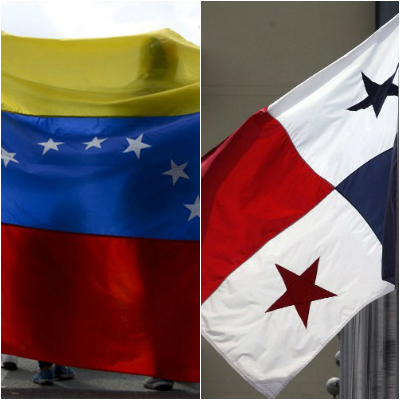 Panama to renew diplomatic ties with Venezuela Panama to renew diplomatic ties with Venezuela
Panama said on Monday it would restore consular relations with Venezuela in the coming days, months after Venezuelan President Nicolas Maduro broke diplomatic and economic ties, accusing Panama's government of joining an alleged US conspiracy against him.
The Central American country's Foreign Affairs Ministry said the decision was "in response to the proposal made by the government of Venezuela to resume consular relations". The statement did not make clear when full diplomatic relations might be reinstated.
Diplomatic relations were broken on March 5 after Maduro used the anniversary of former President Hugo Chavez's death to accuse Panama's conservative government of joining the United States in an "open conspiracy" against him.
Panamanian President-Elect Juan Carlos Varela, who takes office on July 1, has stated a desire to resume ties with the South American oil giant in the first days of his presidency.
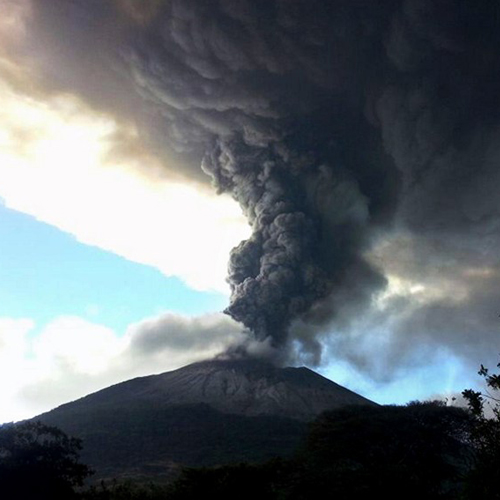 Over 1,000 evacuated in El Salvador after increased volcanic activity Over 1,000 evacuated in El Salvador after increased volcanic activity
More than 1,000 people in El Salvador were evacuated from the area around the simmering Chaparrastique volcano in the east of the Central American country as a precautionary measure against a possible eruption, the government said on Monday.
Around 1,400 people have been moved from their homes since Sunday due to a jump in activity by the volcano, said Armando Vividor, operations chief of the country's emergency services.
The 2,130-meter (6,988-feet) Chaparrastique volcano, which is also known as San Miguel, lies about 140 km (87 miles) east of San Salvador. It has erupted twice in the past six months. No lives were lost on either occasion.
El Salvador Environment Minister Hernan Rosa Chavez said the volcano was now experiencing higher levels of internal activity than during the first of those two eruptions in December.
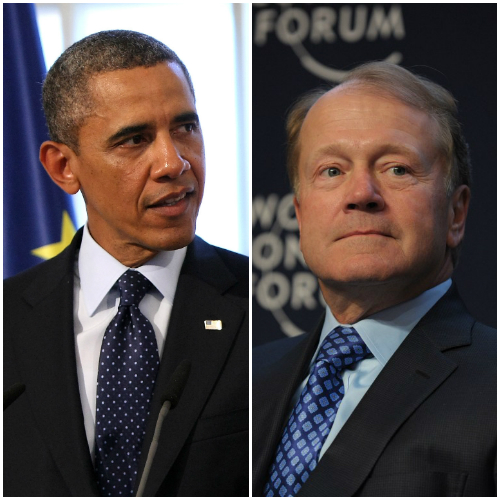 Cisco chief urges US President Barack Obama to rein NSA surveillance Cisco chief urges US President Barack Obama to rein NSA surveillance
Cisco Systems Inc's chief executive officer has written a letter to United States President Barack Obama urging him to curtail government surveillance after evidence circulated showing the National Security Agency (NSA) had intercepted Cisco equipment, a company spokesman said on Sunday.
In a letter dated May 15, John Chambers, chief executive officer (CEO) and chairman of the networking equipment giant, warned of an erosion of confidence in the US technology industry and called for new "standards of conduct" in how the NSA conducts its surveillance. "We simply cannot operate this way, our customers trust us to be able to deliver to their doorsteps products that meet the highest standards of integrity and security," Chambers said in the letter.
The letter follows the circulation of pictures on the Internet showing NSA staff opening boxes of Cisco gear, the Financial Times reported on Sunday. "There have been allegations that the NSA has intercepted IT equipment in transit from manufacturers to customers to help monitor and gain information on surveillance targets," the paper wrote.
The allegations stem from early reporting from Guardian journalist Glenn Greenwald, who has written about a number of NSA documents that were provided by former NSA contractor Edward Snowden.
In the letter, Chambers states that "if these allegations are true, these actions will undermine confidence in our industry and in the ability of technology companies to deliver products globally."
In a separate blog post on Cisco's site dated May 13, the company's general counsel, Mark Chandler, wrote that "...we ought to be able to count on the government to ... not interfere with the lawful delivery of our products in the form in which we have manufactured them."
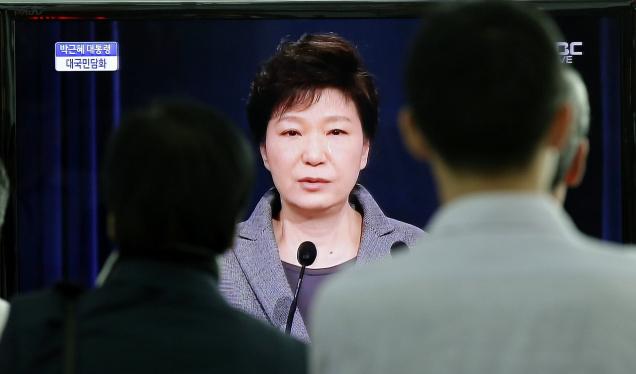 South Korean President disbands coast guard over ferry sinking South Korean President disbands coast guard over ferry sinking
South Korea is to dismantle its coast guard following its response to last month’s ferry sinking that cost more than 300 lives, President Park Geun Hye said Monday.
She was giving a televised address where she also apologized.
“As President responsible for the people’s lives and safety, I offer a heartfelt apology for the pains the people have suffered,” Yonhap News Agency quoted her as saying.
“The ultimate responsibility for failing to respond properly to this accident lies with me.” She vowed to upgrade the emergency response networks of the country and promised reforms to upgrade the country’s safety standards.
The coast guard’s responsibilities would be distributed among other agencies, including a new Ministry of National Safety.
The April 16 ferry disaster was one of the worst accidents in recent Korean history with more than 300 people, mostly school children, dead or missing.
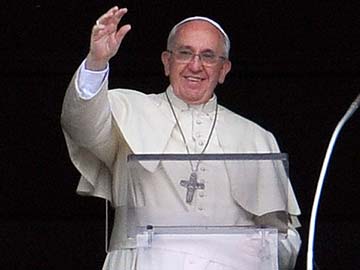 Israel, Palestinians Eye 'Earthly' Gains From Pilgrim Pope Israel, Palestinians Eye 'Earthly' Gains From Pilgrim Pope
Jerusalem: When Pope Francis arrives in the Holy Land he will step into a political powder keg, with Israelis and Palestinians seeking to chalk up political points from his visit.For Israel, increasingly isolated in the world over its relentless settlement juggernaut, it will be a chance to bask in the reflected glow of the pope's aura of tolerance.
"The very fact of the visit is a success," an Israeli official told AFP on condition of anonymity.
"Hopefully, it will encourage pilgrims to visit here."
In fact, the pope's "pilgrimage of prayer", which begins in Jordan on Saturday, will leave a relatively faint footprint in Israel.
His visit to Israel and the Palestinian territories will kick off on Sunday in the southern West Bank city of Bethlehem.
"He is taking a helicopter directly from Jordan to Palestine - to Bethlehem. It's a kind of sign of recognising Palestine," Father Jamal Khader of the Latin patriarchate in Jerusalem told journalists.
In Bethlehem, the pope will meet Palestinian president Mahmud Abbas and then celebrate mass in front of the Church of the Nativity, traditional birthplace of Jesus, before visiting a nearby refugee camp.
"Knowing who he is, and his sensitivity for all those who suffer, I am sure that he will say something defending all those who are suffering, including the Palestinians who live under occupation," Khader said.
After a short flight to Tel Aviv's Ben Gurion airport where he will be greeted by Israeli President Shimon Peres and Prime Minister Benjamin Netanyahu, he will hold a top-level meeting with Orthodox Church leaders, before spending the night in the residence of the papal nuncio in annexed east Jerusalem.
Israel seized east Jerusalem in 1967 and calls the entire city its "united, undivided capital", in a move never recognised by the international community.
It is there that he will spend much of May 26, apart from brief forays into Israel to pay his respects at the Yad Vashem Holocaust memorial and visit Peres and Israel's two chief rabbis.
He will meet Netanyahu at the Vatican-owned Notre Dame complex, which lies on the seam line between east and west Jerusalem, for talks which will touch on politics, an Israeli official said.
"We shall be able to explain to him, from our point of view, what's happening politically in the region," he said.
"We shall explain to him the Iranian threat."
During the visit, the pope is expected to call for a peaceful resolution of the conflict with the Palestinians.
Any reference he makes to Israeli settlements, to the West Bank separation barrier, or to the question of Palestinian prisoners or refugees will be closely watched by both sides.
- 'Highly charged' -
"Everything will be highly charged politically," said Hind Khoury, a former Palestinian minister for Jerusalem affairs.
Following the collapse of US-led peace talks last month, the Palestinians have resumed moves to seek recognition for their promised state in the international diplomatic arena and will be looking to the papal visit to provide fresh ammunition.
"This visit will help us in supporting our struggle to end the longest occupation in history," said Ziyyad Bandak, Abbas's advisor for Christian affairs.
"He will have a lunch with Palestinians, with families suffering from the occupation... then he will visit Dheishe refugee camp to witness the suffering of Palestinian refugees," he told Voice of Palestine radio.
For Israel, it was a political slight that "the pope will begin his visit in Palestine and not Israel", he claimed.
"I know that Israeli officials are not happy with this decision."
The very fact of the visit was tantamount to Vatican support for an end to Israel's occupation of the Palestinian territories, Bandak said.
"We welcome this visit and consider it as support for the Palestinian people, and confirmation from the Vatican of the need to end the occupation."
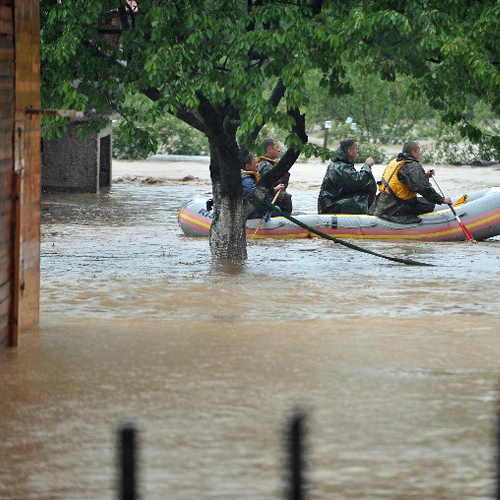 44 dead, thousands flee historic floods in Serbia, Bosnia-Herzegovina 44 dead, thousands flee historic floods in Serbia, Bosnia-Herzegovina
Thousands crammed into boats and army trucks as they fled their homes in Serbia and Bosnia on Sunday after record rainfall turned the Sava river into a deadly torrent and caused the worst floods in more than a century. Officials say the disaster has killed at least 44 people so far. Some towns have been completely cut off and rescue teams feared the worst as they were finally able to move in.
Some 10,000 people have been evacuated so far from the worst affected areas of northern Bosnia, but in some places like the town of Samac, hundreds of stranded people were still waiting to be rescued.
"We sent rescue teams into a part of the city we had not been able to access so far. They are entering those areas fearing what they might discover," Mayor Samo Minic told reporters.
Rescuers who arrived found widespread devastation.
"It looks like a tsunami and earthquake occurred at once. Water carries everything. Corpses of animals could be seen floating everywhere," said Nedeljko Brankovic, who was among rescue workers who managed to reach the village of Krupanj in western Serbia after two days. "We found some 50 people gathered in the highest house. They had neither electricity nor drinking water. Telephones did not work. We evacuated them 10 by 10 in a huge boat," Brankovic said.
Besides the flooding, the worst rainfall since records began in the late 19th century also caused landslides that brought more destruction and also prompted a landmine warning.
Bosnia's demining agency said residents around the towns of Doboj, Maglaj and Olovo – which saw fierce fighting during the Bosnian war in the 1990s – should be particularly wary of landmines that may have been dislodged by the floods. Twenty of the 27 deaths recorded in Bosnia occurred in Doboj while on the other side of the Sava river, in Serbia, at least 16 bodies were found.
In "Obrenovac alone we recovered 12 corpses," Serbian Prime Minister Aleksandar Vucic said of the town 30 kilometres (18 miles) from Belgrade, bringing the toll in Serbia to 16. "Unfortunately there are estimates that the death toll will be higher," he said.
Croatia has also confirmed one casualty, as a result of bad weather that engulfed much of central and parts of eastern Europe at the weekend. Ukraine's emergencies ministry said heavy rain and wind had cut power to about 100 villages but no casualties had been reported.
Once in 1,000 years
In the Serbian capital Belgrade, dozens of schools and sport centres were turned into shelters for the thousands evacuated by boats, buses and helicopters.
In one sports hall, 73-year-old Vojislav Majstorovic recounted his family's escape from their house in the suburb of Obrenovac as water reached the first floor. "The water was two metres high in less than an hour," he said. "We did not have time even to pack basic things. We just ran to the first floor and waved a white sheet to alert rescuers." His wife Minka said they lost everything. "It has all gone. We had 20 pigs and 50 hens. I do not know if any of them survived. However, at least we are all alive," she told AFP.
Images on state-run RTS television from Obrenovac, showed half a dozen cows standing on the roof of a barn while rescuers threw them hay from a helicopter. A desperately barking dog stood on an overturned car was seen being picked up by rescuers in a boat.
In the southern Serbian village of Sremska Raca, buses were evacuating the entire population of 700, although not everyone was keen. "Do not force me to leave, I beg you," 50-year-old Milorad said in tears as police tried to convince her to come with them.
Six men, in good humour with cans of beer in their hand, say they will brave the storm to ensure the clean-up gets going quickly. "Someone should be here to the get to work immediately when the wave has passed," said Radenko Savic, 52. "They tell us the wave will be a metre high, but that doesn't scare us."
According to Serbia's prime minister, the biggest problem was still along the Sava river. "An evacuation is under way in Sremska Raca. In other areas it's getting better," Vucic said. "What happened to us happens once in a thousand years, not hundred but a thousand years."
Humanitarian aid, technical equipment and teams from Russia, the European Union, the United States and neighbouring Montenegro and Macedonia were pouring in, authorities said.
Expressing his gratitude to all foreign countries for the aid, Vucic said Serbia now needed "food, baby food, diapers, all kind of clothes, medicaments, bottled water, disinfection and hygienic resources."
Serbian tennis star Novak Djokovic, in Italy where he has reached the final of the Rome Masters, on Saturday posted an appeal for "support and solidarity for my people in Serbia!" on his Facebook page, where he has more than four million followers.
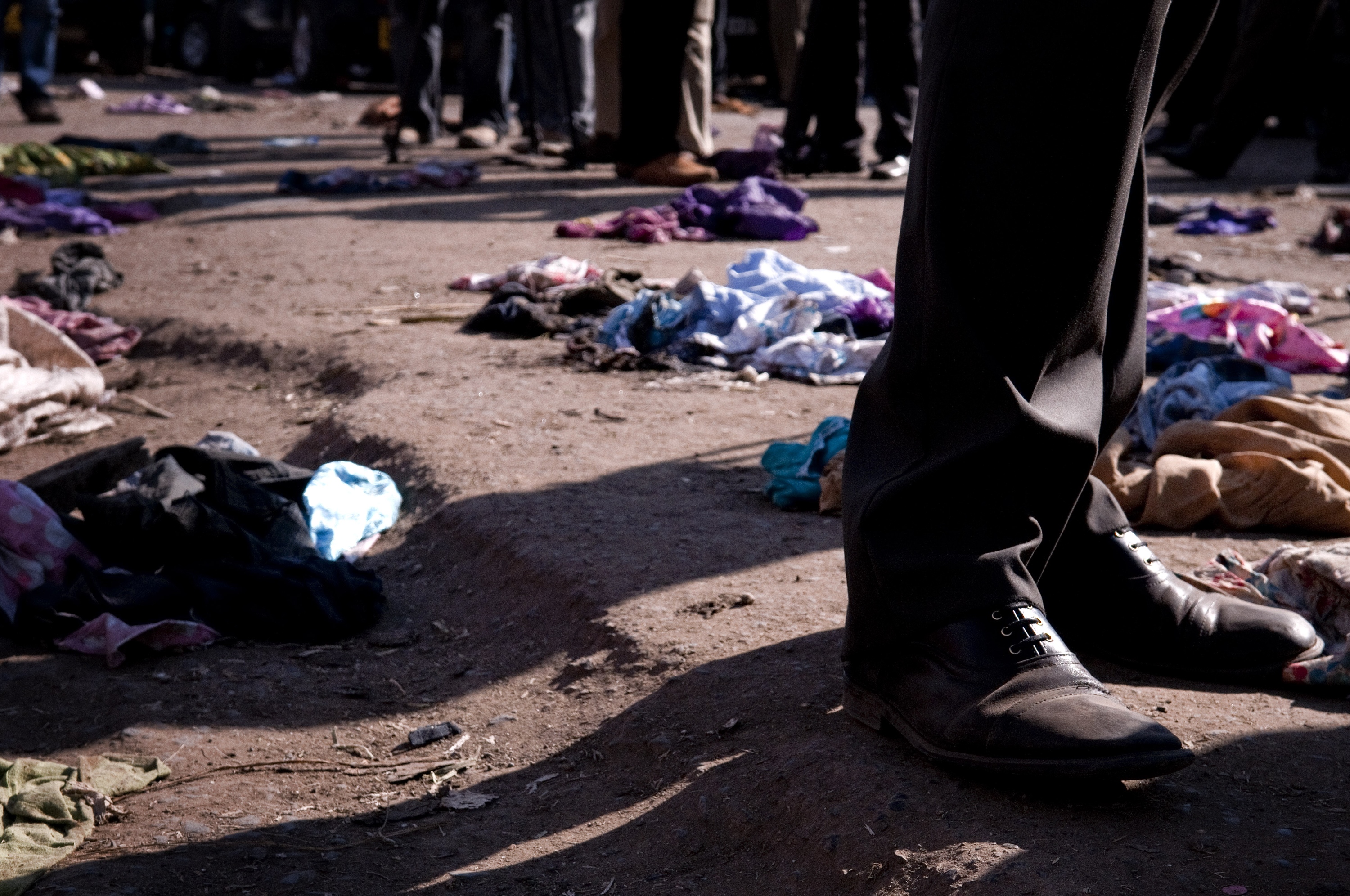 10 dead, 70 wounded amid new Kenya terror warnings 10 dead, 70 wounded amid new Kenya terror warnings
NAIROBI, Kenya — Two blasts hit Kenya’s capital on Friday, killing 10 people and injuring 70 more in the latest in a string of increasingly frequent terror attacks.
The blasts came the same week the United States and the U.K. issued renewed warnings about possible terror attacks in Kenya, leading to a bristling response from the country’s president Friday, who said such warnings strengthen the will of terrorists.
Nairobi Police Chief Benson Kibue, who announced the casualty figures, said two improvised explosive devices detonated in a market area near downtown Nairobi. One blast hit a mini-van used for public transportation.
Before the blasts, the U.S. embassy sent out a new travel alert Friday to American citizens warning of a continued terrorist threat in a country where the U.S. Embassy suffered a devastating attack in 1998.
An earlier U.S. warning this week said for the first time that the embassy itself is taking new steps to increase security “due to recent threat information regarding the international community in Kenya.”
Britain’s government also warned its citizens this week to avoid the coastal city of Mombasa and beach towns nearby, prompting a travel company to cut short the vacations of hundreds of British citizens and fly them home.
Security concerns have long been high in Kenya because of its proximity to Somalia and the al-Qaida-linked terrorist group that operates there. In September, four al-Shabab gunmen attacked an upscale mall in Nairobi, killing at least 67 people. The 1998 embassy bombing killed more than 200.
The U.S. Embassy says that more than 100 people have been killed in shootings, grenade attacks and small bombs in Kenya over the past 18 months.
Since the mall attack, Kenya has suffered numerous smaller bombings in Nairobi and Mombasa. Kenyan authorities, with the help of the FBI, also discovered a huge car bomb that could have caused massive damage.
Armed Marines now patrol the U.S. Embassy grounds in Nairobi in bullet proof vests and helmets. Increasingly frequent emergency drills tell embassy staff: “Duck and cover, duck and cover.”
“We know from experience whether it’s been in Yemen where embassies have been attacked or in Benghazi where our consulate and ambassador was attacked, anything that is a symbol of a foreign country is a potential target,” said Scott Gration, the immediate past U.S. ambassador in Kenya.
Gration, a retired U.S. Air Force major general who runs a technology and investment consultancy in Nairobi, said embassies “are always a target, whether you have a warning out or not, they tend to be a magnet for people that have ideological intentions.”
President Uhuru Kenyatta, who began a previously planned news conference only minutes after the Nairobi blasts, offered his condolences but dismissed the U.S. and U.K. travel warnings, saying that terrorism is a common problem, including in New York and Boston.
Kenyatta said he was aware of Britain’s warning and the decision to evacuate tourists.
“I don’t want to refer to anybody in particular. Acts like were done yesterday, by the people you just mentioned, only strengthens the will of terrorists as opposed to helping us defeat that war,” Kenyatta said.
Kenya sees a big drop in tourism activity — a major money maker here — whenever such alerts are issued. Kenyatta said the government would install 2,000 security cameras in Nairobi and Mombasa to help combat terrorism.
TUI Travel, which owns the British tourism companies Thomson and First Choice, canceled all flights to Mombasa until October because of the security alert. The company also evacuated customers in Kenya on flights Thursday and Friday.
Gration said many tourism companies have insurance policies that don’t allow travelers to be in high-risk locations. He said Kenya’s coast is a beautiful and mostly safe location.
“My belief is that everywhere there are issues and we all need to be prudent in when we go and where we go,” Gration said. “So I don’t travel at night, avoid big crowds and lock my doors. Whether you are in Newark, New Jersey or Nairobi, Kenya, we can all fall victim to crime or terrorism.”
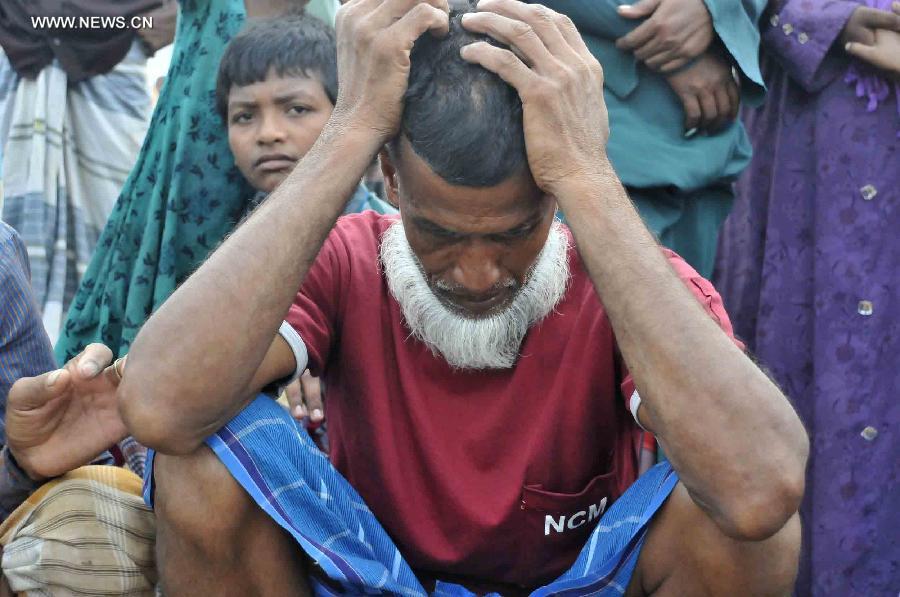 Death toll in Bangladesh ferry disaster rises to 22 with many missing Death toll in Bangladesh ferry disaster rises to 22 with many missing
DHAKA, May 16 (Xinhua)- Bangladesh rescuers have dragged out 10 more bodies, raising the death toll to 22 in the ferry accident on river Meghna, after it sank in storm on Thursday afternoon.
Sources from police, fire service and navy said Friday morning that divers of fire service, navy and coast guards dragged the bodies from inside the sunken ferry, as the ferry is being dragged on the bank by the salvage ship.
The ferry Mirage-4 carrying over 200 passengers departed from the capital for southern Shariatpur district and sank in storm on Thursday, Fire Service officer Nurul Islam Dulal, who is at the accident site, told Xinhua via phone on Friday morning.
The salvage ship Prottoy is trying to drag the sunken ferry to the bank, which stays under 50 feet down into the river Meghna, one of the mighty rivers of Bangladesh.
Relatives of the victims are seen cry for their dead relatives on the bank.
The fire service officer said the ferry Mirage-4 has experienced accidents twice in the past.
Inland Water Transport Authority officials say around 1,000 people die in ferry accidents in the country on average every year and the number of missing is far more.
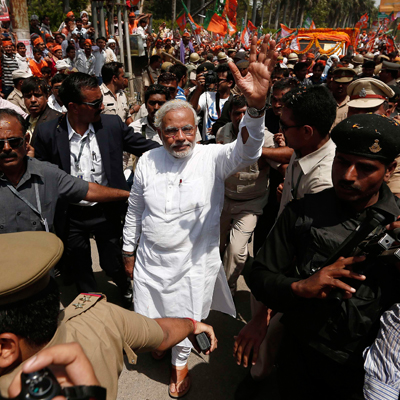 Deal with Narendra Modi cautiously, says Pakistani paper Deal with Narendra Modi cautiously, says Pakistani paper
Pakistan should not show "rage where it may not be due" while dealing with a new Narendra Modi-led government in India, a leading Pakistani newspaper said on Saturday.
"Modi's rise to such power, decisive and non-controversial, will have a global impact but our region will have to deal with this new leader in our best national interest," The News said in an editorial. It said Pakistan should not succumb to pressure or compromise its interests but also not show "rage where it may not be due".
The daily said that Modi's election campaign "was a red alert for Pakistan". But it said that as he neared the election victory, he softened the rhetoric "and was much more politically correct". It said Modi's last comment about Pakistan was: "We will deal with it as they deal with us, as we cannot change our neighbours."
The editorial said: "That may be a welcome change but Pakistan will have to consider the massive impact of the BJP landslide. "If history is any guide, the last BJP win when (Prime Minister) Nawaz Sharif was in power produced some startlingly positive results for Pakistan with (Atal Bihari) Vajpayee coming to Lahore on a bus and ... acknowledge that Pakistan was there to do business with.
"Modi may not soften his stance that quickly, but Sharif has taken the right step by offering him the olive branch before the hawks sour the atmosphere. At the moment we have to wait for more vibes from New Delhi." The BJP has won a majority on its own in the 545-seat Lok Sabha, crushing the Congress.
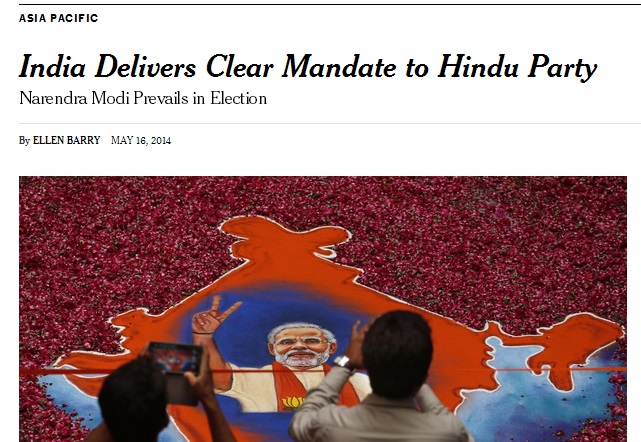 Here's how the US media viewed Narendra Modi's historic win Here's how the US media viewed Narendra Modi's historic win
The American media and foreign policy experts greeted the Narendra Modi-led BJP's historic election victory as "India's moment" and an opportunity to revitalise the economy and "shape the way India engages with the world".
BJP's "landslide victory reflects a changing country more willing to extend governance to those outside the established elite", the influential New York Times said in an editorial advising the Gandhi family to "hand over the leadership to others". "That is the only chance for India to have a credible opposition," it said
The Bharatiya Janata Party's victory gives Modi, the Times said, "the chance to revitalise the economy and shape the way India engages with the world". "How he moves forward will matter to Indians clamouring for jobs and development, but also to others, including the US, which sees India as a vital economic and security partner in Asia," it said. "The two countries will have to work hard to overcome the strain built up between them in recent years," the Times said, suggesting "Modi needs to deliver on his vow to make progress, and he and Washington must confront differences on global trade issues".
The Washington Post wondered whether the "Narendra Modi era (would) be marked by an economic boom or derailed by nationalism. "A frequent visitor to China, he (Modi) clearly aspires to show that India can match Chinese dynamism," it said in an editorial. "What remains to be seen is whether Modi will be the Deng Xiaopeng of India or its Vladimir Putin, a leader whose economic ambitions are derailed by nationalism and authoritarian temptations."
The US, which a decade ago was rapidly growing closer to India, may have difficulty influencing Modi's course, the Post said, noting both the Obama and Bush administration shunned him "because of his behaviour" during the 2002 Gujarat riots. "Indians already perceived the Obama administration as neglectful of their country; President Obama will have to play catch-up if there is to be a significant US-Indian partnership in the coming Modi era," it said.
Calling the election result "India's Moment", the Wall Street Journal said: "The world's largest democracy makes a statement at the polls: No to corruption, bureaucracy and dynastic politics, and yes to Narendra Modi's promise of a country ready to do business."
Modi, it said, "inherits a country that is now impatient with its leaders. It remains to be seen whether he and the BJP can refashion it in their own image. "But they are clearly determined to try ...to change India for not just an election cycle but for years to come."
Ashley J. Tellis, senior associate at Carnegie Endowment for International Peace, called Modi's win a "breathtaking landslide". "A single party with an absolute majority gives Modi the opportunity to redefine Indian politics in a way that the Congress did for many decades before," he said. "And if Modi sticks to his winning formula it's growth and governance, he could remain India's prime minister for a long time to come," Tellis said.
Milan Vaishnav, an associate at Carnegie, said: "The BJP has shown an ability to transcend historical, political, and geographic boundaries."
Alyssa Ayres, a senior fellow for India, Pakistan, and South Asia at the Council, suggested "to keep things on track with one of Washington's most important partners in Asia, the US ought to focus on Modi's top campaign issue: trade and economics" rather than his past.
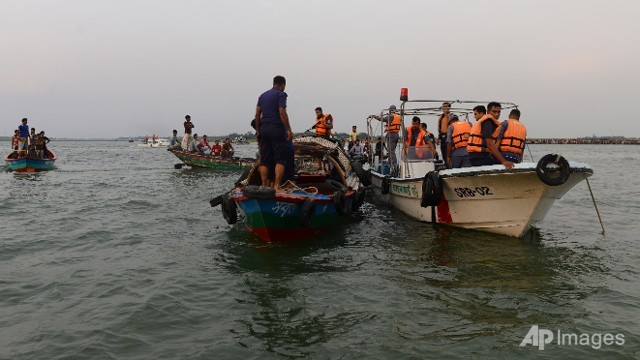 22 killed, scores more feared dead as Bangladesh ferry sinks 22 killed, scores more feared dead as Bangladesh ferry sinks
DHAKA: Divers recovered 10 more bodies from a sunken ferry in Bangladesh on Friday, bringing the death toll to 22, with scores more feared to have perished, police and officials said.
Officials said their first attempt to raise the MV Miraz, which was carrying up to 200 passengers, off the floor of the 50 foot-deep (17-metre-deep) river bed had failed.
Two salvage ships were now making another move to drag it to the shore. "Many of the passengers rushed to lower decks of the ship to escape from heavy wind. They were trapped. I am afraid most of the bodies will be found there," Bangladesh's water transport authority chief Shamsuddoha Khandaker said.
Khandaker said that up to 40 people were able to swim to safety or were rescued by fishing boats after the vessel began to list but the vessel went down in minutes.
"The death toll now stands at 22, including 12 women and children," he added.
The local police chief Ferdous Ahmed confirmed the death toll. The exact number of passengers was not immediately known as Bangladeshi ferries do not maintain passenger logbooks and very often carry many more than their official limit.
Officials had initially said that up to 350 people could have been on board when the ferry capsized on Thursday, but Khandaker said the number was thought to be smaller.
"It is a mid-sized ferry and was about 90 feet long. It can carry around 500 passengers without cargo. But from what we have gathered so far, it was carrying around 150-200 passengers at the time of the accident," he said.
An investigation has been ordered into whether the vessel was carrying more than its capacity or whether it had structural faults.
 Accused Boston marathon bomber's friend suspected guilt, agent says Accused Boston marathon bomber's friend suspected guilt, agent says
A friend of the accused Boston Marathon bomber grew suspicious that Dzhokhar Tsarnaev had carried out the attack when he threw away a backpack and laptop he had removed from the suspect's dorm room, a federal agent testified on Thursday.
Three of Tsarnaev's college friends face charges of hampering the probe into the blast, which killed three people and injured more than 260. At hearings this week, lawyers for one student, Dias Kadyrbayev, sought to prove that the statements he made to law enforcement four days after the bombing were not voluntary and should not be admitted at trial.
James Wiroll, a special agent with the U.S. Department of Homeland Security, recalled arresting Kadyrbayev and his roommate Azamat Tazhayakov, both Kazakh nationals, on immigration violations five days after the attack.
Wiroll said Kadyrbayev told him he had thrown away the backpack, which contained empty fireworks cases, and laptop after coming to suspect that Tsarnaev had committed the bombing.
"He suspected Tsarnaev was one of the Boston Marathon bombers and he threw the items away," Wiroll said, reading from a report written shortly after the arrest.
Tsarnaev is awaiting trial. His older brother, Tamerlan, died in a gunbattle with police four days after the attack.
A diplomatic representative from Kazakhstan was present and translated some documents when Wiroll interviewed Kadyrbayev.
Kadyrbayev and Tazhayakov were first questioned by investigators four days after the bombing when heavily armed law enforcement agents arrived at their New Bedford, Massachusetts, apartment.
The next day, they were arrested on charges of violating the terms of their student visas.
A stream of federal agents had testified at three days of pre-trial hearings that Kadyrbayev's interviews were voluntary.
"He was relaxed, he was animated when he spoke, at times he would laugh," said FBI Special Agent Steven Schiliro, who interviewed Kadyrbayev the night before his arrest.
Kadyrbayev and Tazhayakov face conspiracy and obstruction of justice charges, which carry a penalty of up to 25 years in prison, while a third man, Robel Phillipos of Cambridge, Massachusetts, faces a less serious charge of lying to investigators, which could mean a possible 16-year sentence.
Separately, prosecutors reported in a court filing that the police barracks received a phone call that night from a person identifying himself as a public defender, but that the caller was not put in touch with either of the men being interrogated.
"A plain-clothes detective told (FBI special agent, Farbod) Azad and Special Agent (Michael) Blane that a man who claimed to be an attorney for 'the Dartmouth students' had called the barracks," prosecutors said in a filing in U.S. District Court in Boston. "Azad did not relay to the defendants any aspect of what the detective told him."
Kadyrbayev is due to take the stand to testify on whether his comments were made voluntarily but will not do so this week. His appearance was delayed until after an expert witness gives testimony on his proficiency in English.
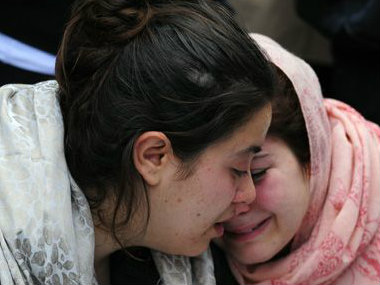 Mass funerals, anger as Turkey mourns mine workers Mass funerals, anger as Turkey mourns mine workers
Soma,Turkey - Loudspeakers broadcast the names of the dead as rows of graves were filled in this close-knit Turkish mining town on Thursday, while thousands protested in major cities as grief turned to anger following the country's deadliest industrial disaster. Rescuers were still trying to reach parts of the coal mine in Soma, 480 km (300 miles) southwest of Istanbul, more than 48 hours after fire knocked out power and shut down the ventilation shafts and elevators, trapping hundreds underground.
At least 283 people have been confirmed dead, mostly from carbon monoxide poisoning, and hopes are fading of pulling out any more alive of the 100 or so still thought to be inside. Anger has swept a country that experienced a decade of rapid economic growth under Prime Minister Tayyip Erdogan's Islamist-rooted government but still suffers from one of the world's worst records of workplace safety. Furious residents heckled Erdogan on Wednesday as he toured the town, angry at what they see as the government's cosiness with mining tycoons, its failure to ensure safety and a lack of information on the rescue effort. Access to the mine entrance was blocked by paramilitary police roadblocks several kilometres away for a visit by President Abdullah Gul on Thursday.
Officers searched cars. "We came here to share the grief and wait for our friends to come out but we were not allowed.
Is the president's pain greater than ours?" asked Emre, an 18-year-old trying to get to the mine who said friends from his village were still trapped. Erdogan, who announced three days of national mourning from Tuesday, expressed regret for the disaster but said such accidents were not uncommon, and turned defensive when asked if sufficient precautions had been in place. Newspaper Radikal published an amateur video clip on its website appearing to show Erdogan saying "Come here and jeer at me!" as he walked through a hostile crowd in the town. A picture doing the rounds on social media of one of his deputy personal assistants, Yusuf Yerkel, kicking a protester as he was wrestled to the ground by armed special forces officers did little to help the prime minister's image. Colleagues in Erdogan's office defended Yerkel, saying the protester had travelled to Soma deliberately to cause trouble.
London's prestigious School of Oriental and African Studies (SOAS), where Yerkel once studied, issued a statement saying it had no association with him after being besieged with enquiries. "I am sad I was not able to maintain my composure despite all the provocations, the insults and attacks to which I was exposed on that day," Yerkel later said in a statement.
Erdogan, who is expected to stand in a presidential election in August, has weathered mass protests and a corruption scandal over the past year, yet his AK Party dominated local polls in March despite the political turbulence. But his handling of a disaster hitting the sort of working class, conservative community which makes up the core of his supporter base is further evidence, his opponents say, that he is a leader increasingly out of touch.
Gul, a co-founder of Erdogan's party but known for a less abrasive style, struck a more conciliatory tone, saying Turkey needed to review regulations to bring them in line with other countries. "The pain of every single person is the pain of all of us," Gul said. "Such suffering should not be happening. Just like the advanced countries which no longer go through this, we have to re-evaluate our rules and take all the necessary measures." Four of Turkey's labour unions called for a national one-day strike, furious at what they see as a sharp deterioration in working conditions since formerly state-run mines including the one in Soma were leased to private firms.
Several thousand people demonstrated peacefully in Istanbul, holding banners with slogans including: "It is not an accident, it is not fate, it is murder" and "Our hearts are burning in Soma". Some staged a sit-down protest in front of police lines. Police fired water cannon to break up a demonstration in Izmir, the nearest large city to Soma, and there were reports of protests in the southern cities of Mersin and Antalya. Around a thousand people from various trade unions gathered in Ankara to march on the Labour Ministry, some wearing miners' helmets and waving banners showing the image of Che Guevara. "The fires of Soma will burn AKP," and "AKP murderers" they chanted, as police looked on. Thousands gathered after noon prayers for the funerals of more than 40 of the mine workers at Soma's main cemetery, where more than a hundred tightly packed graves have been newly dug. Much of the population around the town either works in or has relatives employed by the mining industry.
Loudspeakers on street corners used by the local government to announce news, left from the days when Internet connections and mobile phones were rare, broadcast the names of the dead and announced funeral times. The graveyard was so crowded with back-to-back burials that the imam repeatedly had to ask families to pay their final respects quickly to make room for other mourners. No government officials were in attendance. "They say they are deeply sorrowed, their hearts are burnt, devastated. Where are they now?" said Emine, a woman in her 50s attending her nephew's funeral. "Look at all these poor people whose sweethearts died digging money for others. They are alone here."
The rescue operation was hampered overnight as the fire inside the mine continued, making it extremely hazardous for crews to retrieve bodies. Ventilation systems which pump fresh air into the mine were relocated to allow teams back inside. The fire broke out during a shift change, leading to uncertainty over the exact number of miners trapped. Energy Minister Taner Yildiz initially said 787 workers had been in the mine. Erdogan said on Wednesday around 120 were still thought to be trapped. Turkey's safety record in coal mining has been poor for decades, with its previous worst accident in 1992, when a gas blast killed 263 workers in the Black Sea province of Zonguldak.
The operator of the Soma mine, Soma Komur Isletmeleri, said some 450 miners had been rescued and that the deaths were caused by carbon monoxide. It said the cause of the fire was unclear. Initial reports suggested an electrical fault, but Mehmet Torun, a former head of the Chamber of Mining Engineers who was at the scene, said a disused coal seam had heated up, expelling carbon monoxide through the mine's tunnels and galleries.
 Florida hospital workers test negative for MERS virus Florida hospital workers test negative for MERS virus
All of the healthcare workers who came into contact with a patient in Florida who was suffering from Middle East Respiratory Syndrome (MERS) have tested negative for the often-deadly virus, state health officials said on Thursday.
The patient, who is hospitalized in Orlando, Florida, is the second confirmed MERS case in the United States.
The Florida Department of Health said in a statement that the man is improving but remains hospitalized at the Dr. P. Phillips Hospital.
The patient initially spent 12 hours in the hospital's emergency department before he was moved to an isolation room, raising concerns about whether healthcare workers who had contact with him may have become infected.
MERS causes coughing, fever and sometimes fatal pneumonia, killing an estimated 30 percent of those who are infected.
It is a virus from the same family as SARS, or Severe Acute Respiratory Syndrome, which killed around 800 people worldwide after it first appeared in China in 2002.
Scientists have limited understanding about how the MERS virus spreads, but healthcare workers have proven particularly vulnerable because of their close contact with infected patients.
Both U.S. cases involved healthcare workers who had spent time in hospitals in Saudi Arabia, where MERS infection rates have surged in recent weeks.
Florida health officials said there is no threat of MERS infection for people traveling to the Orlando area.
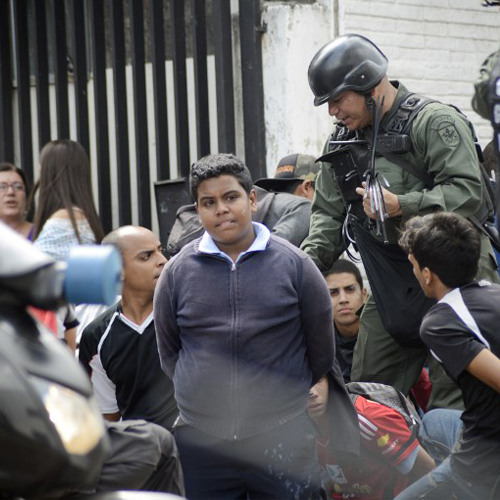 105, including students, arrested in Venezuela anti-government protests 105, including students, arrested in Venezuela anti-government protests
Venezuelan police arrested 105 people and fired tear gas at anti-government student protesters who hurled stones and fireworks Wednesday at a ministry building in the capital, officials said.
The students, who were marching to demand the release of protesters arrested in recent days, massed in eastern Caracas. But the demonstration quickly became violent when they targeted the Tourism Ministry and riot police intervened.
It was the latest chapter in months of turbulence in the oil-rich but economically and socially troubled South American country.
At least 42 people have died and more than 800 have been injured since students and other opponents of the socialist government of President Nicolas Maduro took to the streets in February to protest rampant crime, runaway inflation and shortages of basic goods.
Manuel Quevedo, commander of the National Guard regiment in Caracas, said 16 women and 89 men were arrested Wednesday, including 11 minors. He had earlier indicated that about 80 arrests had been made.
Local non-governmental group Foro Penal confirmed the tally.
While declining to confirm how many civilians were wounded in the clashes, Quevedo said two members of the security forces were wounded. One captain of the National Guard was assaulted, while another sergeant almost got rolled over by vehicles due to protesters trying to prevent the transfer of detainees to prison, according to the military chief. "Everything has been done with respect for human rights," he added.
Trucks carrying the detainees tried to move along the main route of the Caracas district of Chacao, heart of more than three months of opposition protests, amid a crowd shouting "Let them go!"
Last week, more than 200 people were arrested in police raids on encampments of protesters in Caracas. Most have since been freed.
"Fewer and fewer people are heeding protest calls. Intimidation has succeeded," one of the young marchers told AFP, requesting anonymity after a previous arrest.
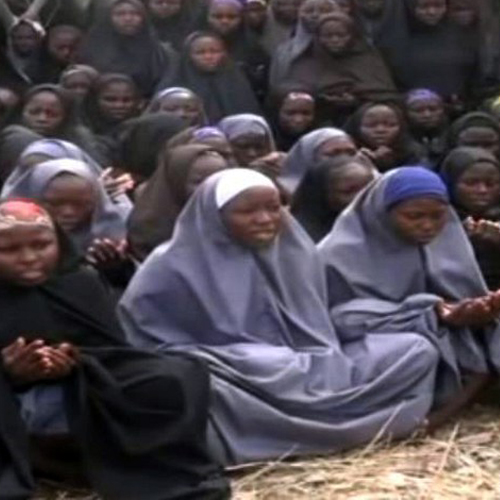 Boko Haram rebels kill four Nigerian soldiers in ambush Boko Haram rebels kill four Nigerian soldiers in ambush
Boko Haram rebels killed four Nigerian soldiers in a night ambush outside the northeastern city of Maiduguri and several insurgents also died in the firefight, according to a statement on Wednesday from Defence Headquarters.
Soldiers fired shots in the air at Maiduguri barracks on Wednesday because they were angry with their commanders about having been made to return at night to the city through an area where Boko Haram is fighting an insurgency, soldiers told Reuters.
"Troops on patrol around Chibok were ambushed by insurgents yesterday. Troops engaged the insurgents in a fierce combat and extricated themselves from the ambush killing several insurgents. Four soldiers however lost their lives during the ambush," said a statement from Defence Headquarters.
"On evacuation of the remains of the fallen troops, the General Officer Commanding addressed the troops who registered their anger about the incident by firing into the air. The situation has since been brought under control," it said.
Boko Haram has waged a five-year insurgency in northern Nigeria for an Islamic state. A month ago its fighters stormed a school in the village of Chibok and seized 276 girls who were taking exams. Some escaped but about 200 remain missing.
On Monday, Boko Haram leader Abubakar Shekau released a video showing some of the girls in captivity and offered to exchange them for Boko Haram prisoners held by the government.
 Scientists unearth unique long-necked dinosaur in Argentina Scientists unearth unique long-necked dinosaur in Argentina
It's not exactly small at 30 feet long (9 meters), but you might want to call this newly identified dinosaur the littlest giant.
Scientists in Argentina on Wednesday announced the discovery of the fossilized remains of a unique member of the famous long-necked, plant-munching dinosaurs known as sauropods, the largest land creatures in Earth's history.
The dinosaur, named Leinkupal laticauda, may be the smallest of the sauropod family called diplodocids, typified by the well-known Diplodocus, which lived in North America, they said.
It also is the first of them found in South America. It lived about 140 million years ago, millions of years after scientists had previously thought diplodocids had disappeared, according to Argentine paleontologist Pablo Gallina, one of the researchers.
"Finding Leinkupal was incredibly exciting since we never though it possible. A diplodocid in South America is as strange as finding a T. rex in Patagonia," added another of the scientists, Argentine paleontologist Sebastián Apesteguía, referring to the North American dinosaur predator Tyrannosaurus rex.
Apesteguía called Leinkupal "a very small guy in a lineage of giants."
"We don't know the weight but considering that many of its bones were very delicate and light and most of its body was formed by neck and tail, the weight could not be impressive, actually no more than an elephant," Apesteguía said.
Sauropods, one of the most successful dinosaur groups, were recognizable for their long necks and tails, huge bodies and pillar-like legs.
Some sauropods like Argentinosaurus, which also lived in Argentina but 50 million years later, weighed up to 90 tons and measured more than 100 feet (30 meters) long. The last sauropods lived until the very end of the age of dinosaurs, about 65 million years ago.
Diplodocids lived in North America, Europe and Africa during the Jurassic period, the middle of the three acts of the age of dinosaurs, Gallina said. Until now, they were thought to have gone extinct by the end of the Jurassic, about 145 million years ago.
But Leinkupal shows that this family lived on at least into the earliest stages of the Cretaceous period.
Diplodocids were more slender than some other families of sauropods. Their back legs were longer than their front legs, and they boasted extremely long necks and whip-like tails that they may have used to fend off predators.
At the time, North America was completely isolated from South America, and the Atlantic Ocean was beginning to open and separate South America from Africa.
Leinkupal lived in a semiarid environment south of a large desert, the researchers said. Its incomplete remains were found in Patagonia - a region renowned for its dinosaur finds - in 2010 and 2012 in Argentina's Neuquen province, they added.
Its genus name, Leinkupal, means "vanishing family" in the region's indigenous Mapuche language - signifying the disappearance of this family of dinosaurs. Its species name, laticauda, means "wide tail" in Latin.
The findings were published in the journal PLOS ONE.
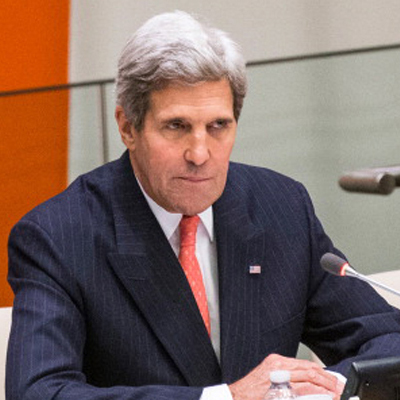 John Kerry discusses peace, unity government with Palestinian leader John Kerry discusses peace, unity government with Palestinian leader
US Secretary of State John Kerry held a two-hour discussion with Palestinian President Mahmoud Abbas in London late on Wednesday in their first meeting since U.S. efforts to broker an Israeli-Palestinian peace deal collapsed last month.
During the meeting Kerry emphasized that the "door remains open to peace" talks although made clear it was up to the Israelis and Palestinians to take the necessary steps to resume talks, a senior State Department official said.
The official said Kerry urged both the Palestinians and Israelis to "refrain from unhelpful steps."
Abbas also updated Kerry on Palestinian political developments, the official said, referring to plans announced by Abbas last month to reconcile Palestinian factions Fatah and Hamas into a unity government.
Israel suspended peace talks on April 24, furious about Abbas' unexpected unity pact with Hamas.
"Secretary Kerry reiterated the need for any Palestinian government to recognize Israel, commit to non-violence, and abide by previous agreements, and thanked President Abbas for his public commitment to these principles," the State Department official said.
U.S. aid to the Palestinian Authority, which runs at roughly $440 million to $500 million a year, may be affected by Palestinian plans for a unity government.
The prospect of a unity government with Hamas has caused further tensions with the Israelis. Prime Minister Benjamin Netanyahu has urged Abbas to "tear up" his pact with Hamas, warning that Israel would not participate in Middle East peace talks with a Palestinian government that is backed by the Islamist group.
Kerry is in London for a meeting with Western and Gulf allies on Syria, in which turmoil in Ukraine is also likely to be discussed.
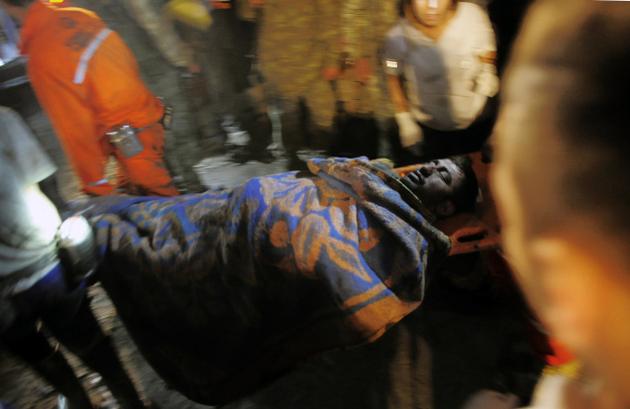 201 dead, many trapped in Turkish coal mine 201 dead, many trapped in Turkish coal mine
Turkey’s Energy Minister Taner Yildiz on Wednesday said the death toll from an explosion and fire at a coal mine in western Turkey is now 201.
Mr. Yildiz said 80 mine workers were injured and at least four of them are in serious condition.
The accident in the mine in the town of Soma some 250 km south of Istanbul is one of the worst mining disasters in Turkish history.
Rescuers were struggling early Wednesday to reach more than 200 miners still trapped inside the coal mine. More than 360 workers have been evacuated so far.
Mr. Yildiz said the rescue effort is “reaching a critical stage” with the death toll likely to rise as time passes.
The accident occurred when the workers were preparing for a shift change, officials said, which likely raised the casualty toll because there were more miners inside than usual.
Mr. Yildiz said the deaths were caused by carbon monoxide poisoning.
Authorities say the disaster followed an explosion and fire caused by a power distribution unit.
Nurettin Akcul, a mining trade union leader, told HaberTurk television that Turkey was likely facing its worst mining accident ever.
“Time is working against us. We fear that the numbers could rise further,” Mr. Yildiz said. “We have to finish this (rescue operation) by dawn. I have to say that our pain, our trouble could increase.”
Earlier Mr. Yildiz said some of the workers were 420 metre deep inside the mine. News reports said the workers could not use lifts to get out of the mine because the explosion had caused a power cut.
Television footage showed people cheering and applauding as some trapped workers emerged out of the mine, helped by rescuers, their faces and hard-hats covered in soot. One wiped away tears on his jacket, another smiled, waved and flashed a “thumbs up” sign at onlookers.
Authorities had earlier said that the blast left between 200 to 300 miners underground and made arrangements to set up a cold storage facility to hold the corpses of miners recovered from the site.
Prime Minister Recep Tayyip Erdogan postponed a one-day visit to Albania scheduled for Wednesday and planned to visit Soma instead.
One woman threw herself on the ground, crying after hearing about the death of a loved one, HaberTurk television showed. There were tears of joy for another who told the station she had just spoken by telephone to a missing relative.
Police set up fences and stood guard around Soma state hospital to keep the crowds away.
SOMA Komur Isletmeleri A.S., which owns the mine, said the accident occurred despite the “highest safety measures and constant controls” and added that an investigation was being launched.
“Our main priority is to get our workers out so that they may be reunited with their loved ones,” the company said in a statement.
Turkey’s worst mining disaster was a 1992 gas explosion that killed 263 workers near the Black Sea port of Zonguldak.
 European Union Court rules people can get private search results deleted from Google European Union Court rules people can get private search results deleted from Google
The European Union Court of Justice has reportedly given its ruling that people can ask Google and other online websites to edit or erase online search results if those results violate the privacy of the person in question.
European lawmakers have told Google that citizens have a right to be 'forgotten' and can request for their private information to be removed from the search results.
The judges ruled that a person could approach the operator directly if a search made on that person's basis reveals a list of results displaying a link to some web page that contains private information of the person in question, Cnet reported.
The judges also ruled that the person in question could bring the matter before the competent authorities in order to obtain the removal of that link from the list of results, if the search operator refuses to change the search results.
Following the ruling, a Google spokesperson said that it is a disappointing ruling for search engines and online publishers in general, adding that they are very surprised that the ruling differs so dramatically from the Advocate General's opinion and the warnings and consequences that he spelled out.
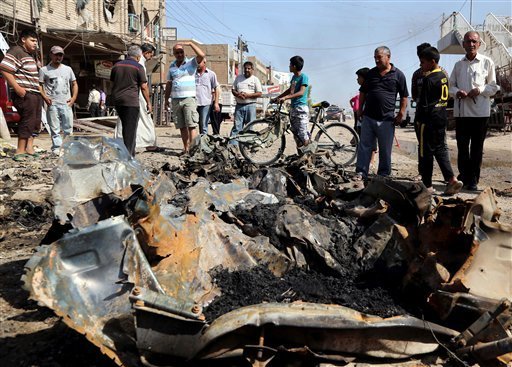 Baghdad bomb blasts kill 34 Baghdad bomb blasts kill 34
BAGHDAD: A spate of rush hour bombs, targeting different areas of Baghdad, killed 34 people on Tuesday in the first major series of attacks to hit the capital since elections last month.
The apparently coordinated blasts, which also wounded 80 people, came as officials tallied votes from April 30 parliamentary polls amid a protracted surge in bloodshed that has killed more than 3,300 people this year.
The government has blamed external factors, such as the civil war raging in neighbouring Syria, for the escalating unrest this year. But analysts and diplomats say the authorities must also do more to reach out to the disaffected Sunni minority and undermine support for militancy.
At least nine car bombs went off throughout the morning, when the city is typically gridlocked. Smoke could be seen rising above several areas of the capital, and AFP journalists reported several shop fronts badly damaged and nearby cars reduced to mangled wrecks of metal.
In Karrada, where three people died, the owner of a garage said the blast was caused by a militant posing as a customer who left his car there, asking for the brakes to be fixed.
“He said he would leave the car and go looking for spare parts, and then he left,” said the 54-year-old who identified himself as Abu Nuri.
“Only one of my employees was in the shop when a huge explosion went off. He fell down, and smoke was everywhere. Many people were crying, and others were running away.”
Abu Nuri railed against the authorities and security forces, telling AFP: “The state has failed, it has completely failed!” “Attacks target only innocent people, and those heroic officials are completely protected in the Green Zone,” he said, referring to the heavily-fortified Baghdad district, home to parliament and the US and British embassies.
Two car bombs also exploded near a traffic police headquarters in the eastern Baladiyat neighbourhood, and blasts also hit Sadr City, Urr, Jamila, and Maamal. Another vehicle rigged with explosives was also detonated in the mostly-Sunni area of Arab Jubour, killing three, while a roadside bomb also went off near a police patrol in southeast Baghdad, killing one.
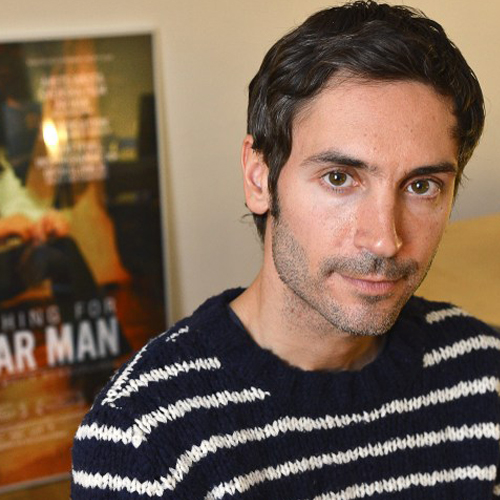 'Searching for Sugar Man' director Malik Bendjelloul dies at age 36 'Searching for Sugar Man' director Malik Bendjelloul dies at age 36
Malik Bendjelloul, the director of Oscar-winning documentary "Searching for Sugar Man," died on Tuesday evening in the Stockholm area, police said. He was 36.
Stockholm police declined to provide any further details about Bendjelloul's death.
"What I can say is that there are no suspicions any crime was involved," Stockholm police duty officer Pia Glenvik said.
Bendjelloul won an Oscar in 2013 as a first-time filmmaker for "Searching for Sugar Man." The film followed two South African journalists who set out to find what had become of Sixto Rodriguez, an American singer who was popular in South Africa who seemingly vanished without a trace.
The film, structured like a mystery, sought to find Rodriguez who never achieved fame in his home country but had become a popular and influential folk icon unbeknownst to him in South Africa.
"We are so sad to hear of Malik Bendjelloul's passing," Sony Pictures Classics, the distributor of "Searching for Sugar Man," said in a statement.
"Much like Rodriguez himself, Malik was a genuine person who chased the world for stories to tell," the distributor added.
"He didn't chase fame, fortune or awards, although those accolades still found him as many others recognized his storytelling."
"Searching for Sugar Man" swept major awards from the U.S. directors, producers and writers guilds, and also won audience and special jury awards at the Sundance Film Festival.
Bendjelloul was born in the town of Ystad in southern Sweden about 34 miles (55 kilometers) east of Malmo, according to film database IMDB.com.
He had also directed television documentaries about singers Elton John, Rod Stewart, Bjork and German electronic music pioneers Kraftwerk, according to the Swedish Film Institute.
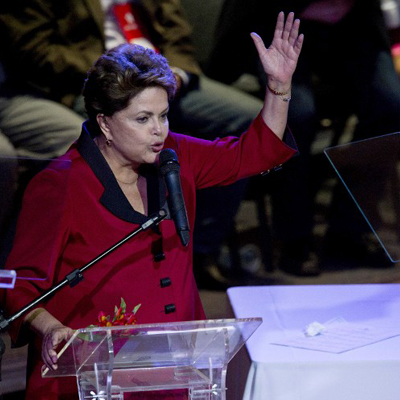 Brazil's Luiz Inacio Lula da Silva confident about Dilma Rousseff's re-election Brazil's Luiz Inacio Lula da Silva confident about Dilma Rousseff's re-election
Former Brazilian president Luiz Inacio Lula da Silva has said that incumbent Dilma Rousseff will be re-elected in October, regardless of whether or not host nation Brazil wins this summer's World Cup football tournament.
"I think that Rousseff is going to win the elections because she's the most prepared candidate, with the best proposals and extraordinary experience in governing," Lula told the A Tarde daily Monday regarding his protege and successor.
Brazilians will go to the polls Oct 5 and Rousseff so far is leading in all the pre-election surveys, where some 37 percent of those polled say they intend to vote for her versus 20 percent for main challenger Aecio Neves.
Lula, Brazil's most popular and influential politician, intends to throw himself fully into Rousseff's re-election campaign, which will kick off in July, immediately after the World Cup concludes.
Although many political analysts believe that the result of the football tourney will influence the enthusiasm of voters this time around, given that it is taking place in football-mad Brazil, Lula said that there was no relationship between the two.
"Sincerely, I don't believe that the World Cup will influence the candidates at all, whether Brazil wins or loses," the former president said.
Last year, when Brazil hosted the Confederations Cup, hundreds of thousands took part in protests against heavy public spending on high-profile sporting events, knocking Rousseff's approval rating down from 70 percent to 35 percent.
Regarding the demands for better public services that were sought during the 2013 protests, Lula acknowledged that, after 12 years in power for his Workers Party, or PT, "there is much to do" yet.
However, he said that "it wouldn't be possible to do in 12 years what wasn't done in 500 years" and he noted that, despite the public unease reflected in the protests, "in investment in education, health care, job creation, salary increases and fighting extreme poverty and hunger the PT government serves as an example for the world".
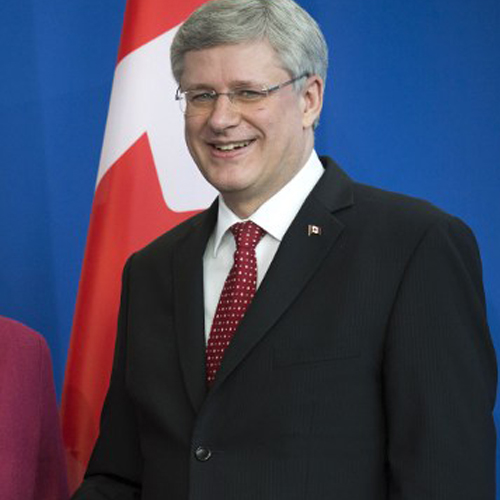 Canada slaps sanctions against more Russians, Ukrainians Canada slaps sanctions against more Russians, Ukrainians
Canadian Prime Minister Stephen Harper Monday announced that Canada has imposed economic sanctions and travel bans against an additional six Russians and six Ukrainians
"Today, we are announcing sanctions against an additional six Russian and six Ukrainian individuals who have facilitated Russia' s violation of Ukrainian sovereignty and territorial integrity," Xinhua quoted the prime minister as saying in a statement.
He said Russia's illegal occupation of Ukraine and provocative military activity remains a serious concern to the international community, and the situation in Ukraine constitutes a grave breach of international peace and security.
"The international community will continue to apply pressure until Russia de-escalates. The Putin regime's aggression will not go unanswered," said the prime minister.
Early this month, Russia vowed to retaliate upon new sanctions from the US and Canada, but stressed it would not publicise those who were placed on the Russian blacklist.
 Nigeria Rejects Boko Haram Prisoner Swap for Hostage Girls Nigeria Rejects Boko Haram Prisoner Swap for Hostage Girls
Abuja: Nigeria today rejected conditions set out by Boko Haram leader Abubakar Shekau for the release of more than 200 schoolgirls held hostage by the Islamists.
Asked if the government would reject the suggestion by Shekau in a new video that the girls may be released once Nigeria frees all militant prisoners, Interior Minister Abba Moro told AFP: "Of course."
"The issue in question is not about Boko Haram... giving conditions," he said.
Shekau made the claim in a video obtained by AFP today claiming to show about 130 of the 276 girls abducted from their school in the remote northeastern town of Chibok, in Borno state, on April 14.
"We will never release them (the girls) until after you release our brethren," he said.
The militant leader, who has made prisoner exchange demands before, said that some of the teenagers had converted from Christianity to Islam.
The International Crisis Group said in a report published last month that Boko Haram had written an open letter in 2011 to the governor of northern Kano state, demanding the release of detainees.
Shekau repeated the demand in a video released last week claiming responsibility for the mass kidnapping that has sparked global condemnation and calls for action.
Nigeria's military has been accused of rounding up thousands of Boko Haram suspects, including women and children, and holding them in atrocious conditions that have been criticised by rights groups.
On March 14, Boko Haram fighters stormed the notorious Giwa military barracks in the state capital of Borno, Maiduguri, freeing hundreds of militants.
Amnesty International, however, said on March 31 that there was "credible evidence" that more than 600 people, most of them unarmed recaptured detainees, were summarily killed in the military response.
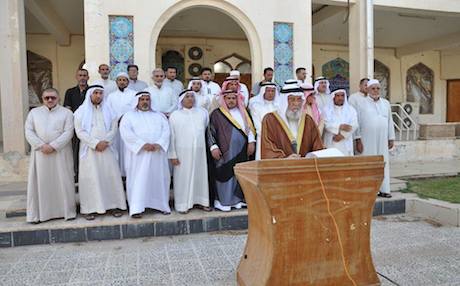 49 killed, 69 injured in Iraq attacks 49 killed, 69 injured in Iraq attacks
As many as 49 people were killed and 69 wounded Monday in a wave of violent attacks witnessed across Iraq, including battles with insurgent groups in Anbar province, security and medical sources said.
In Anbar province, fierce clashes erupted between Iraqi forces and gunmen in the militant-seized Fallujah city, some 50 km from Baghdad, leaving 19 militants killed and 20 wounded, Xinhua quoted provincial police as saying.
The gunmen were believed to be linked to the Islamic State of Iraq and Levant (ISIL), an Al Qaeda breakaway group in Iraq.
Six people were killed and 15 wounded by artillery and mortar shelling on several neighbourhoods in Fallujah and the nearby town of Saqlawiya, a hospital source said.
Also in the province, a fierce battle between a joint police and army force with gunmen in Ramadi city, 110 km from Baghdad, left 10 gunmen killed and four policemen wounded.
In another incident, suspected ISIL gunmen clashed with a force linked with protecting the provincial governor in the Ramadi, killing three of the governor's guards and wounding as many, the source said. The governor was not present there.
In Baghdad, three civilians' bodies, bearing gunshot wounds, were found in Kadmiyah district, an interior ministry source said.
In Salahudin province, a suicide bomber killed four people -- two soldiers and two civilians -- and injured three by blowing up an explosive-laden car at an army checkpoint in Baiji, some 200 km from Baghdad.
Separately, a police chief and two of his bodyguards were inured when a roadside bomb struck their convoy in Baiji, the source said. Two civilians were also wounded in a separate bomb explosion in Baiji.
Also in the province, a soldier was shot dead by gunmen at a marketplace in Shirqat city, the source added.
Another soldier was killed and two were wounded when two roadside bombs went off in quick succession in Mosul city. Elsewhere, a soldier was killed and 10 wounded in a roadside bomb explosion near their patrol in a desert road in Jurf al-Sakhar area, some 50 km from Baghdad.
Also, a civilian was killed and seven injured when a roadside bomb detonated near a police station in Mahmoudiyah town, some 30 km from Baghdad, police said.
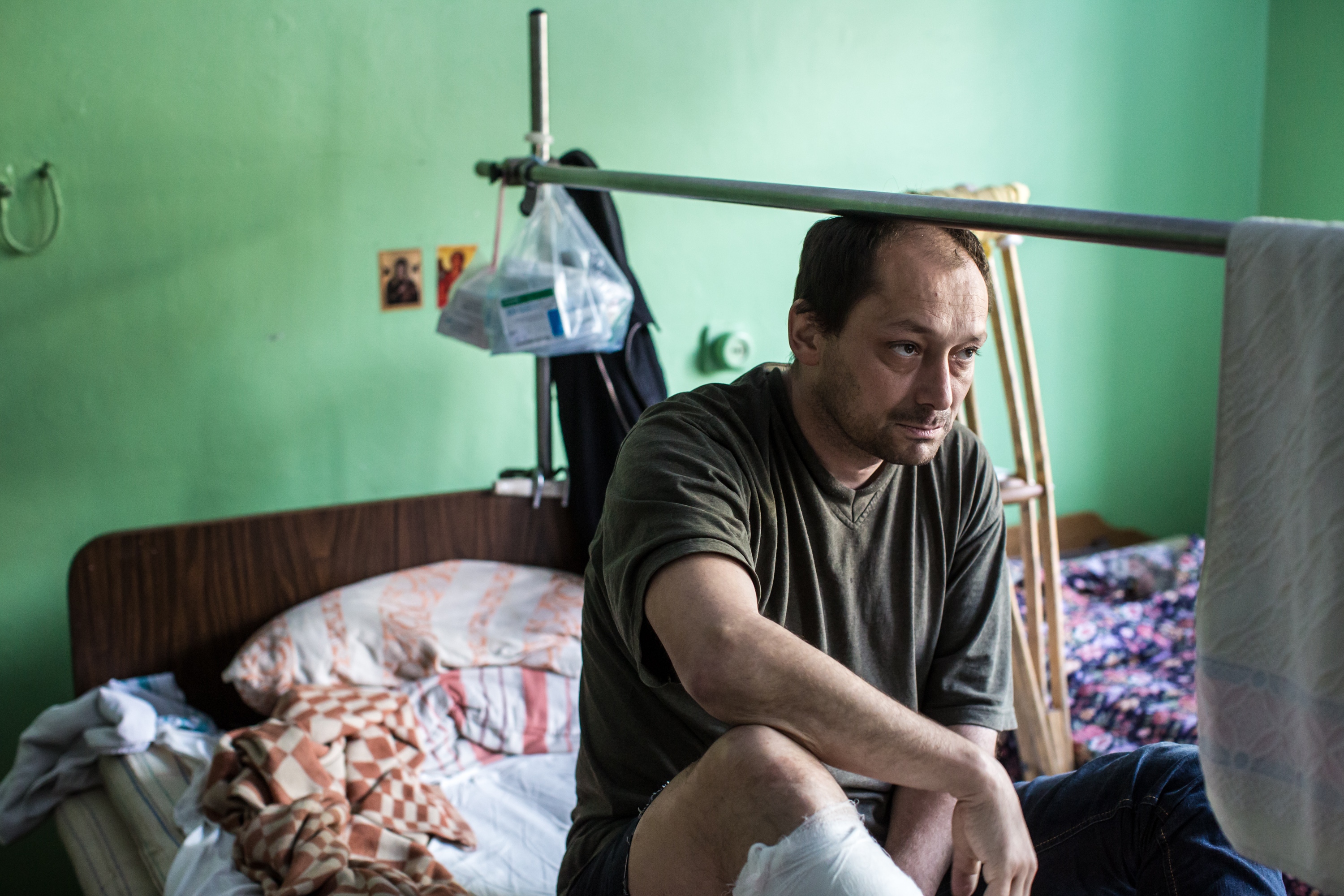 89 p.c. votes for independence in east Ukraine referendum 89 p.c. votes for independence in east Ukraine referendum
At least 89 per cent of the voters in Ukraine’s eastern Donetsk region cast ballots in favour of independence in Sunday’s referendum, media reported on Monday.
The turnout for the referendum was 74.87 per cent, and some 10.1 per cent voted against independence, Roman Lyagin, head of the electoral commission of the self-proclaimed Donetsk People’s Republic, said.
“These can be considered as the final results,” Xinhua quoted Mr. Lyagin as saying.
Pro-Russian activists in Ukraine’s eastern towns of Donetsk and Luhansk held self-rule referendums on Sunday, a move deemed illegal by the Kiev government and the West.
Despite Russian President Vladimir Putin’s constant urging to postpone the referendum, the activists went ahead with it and also hinted that they intended to hold a second round later to join Russia.
The result from Luhansk has not been announced yet.
Donetsk and Luhansk became centres of the eastern protests in mid-April, when activists waving Russian flags seized government buildings, declared separatist republics and announced plans to hold a referendum on seceding from Ukraine.
 Why Antarctica isn't warming as much as other continents Why Antarctica isn't warming as much as other continents
Researchers have explained why Antarctica is not warming as much as other continents, and why southern Australia is recording more droughts.
Researchers have found rising levels of carbon dioxide in the atmosphere are strengthening the stormy Southern Ocean winds which deliver rain to southern Australia, but pushing them further south towards Antarctica.
Lead researcher Nerilie Abram, from the ANU Research School of Earth Sciences, said with greenhouse warming, Antarctica is actually stealing more of Australia's rainfall. It's not good news – as greenhouse gases continue to rise we'll get fewer storms chased up into Australia.
She said as the westerly winds are getting tighter they're actually trapping more of the cold air over Antarctica.
Abram said that this is why Antarctica has bucked the trend. Every other continent is warming, and the Arctic is warming fastest of anywhere on earth.
While most of Antarctica is remaining cold, rapid increases in summer ice melt, glacier retreat and ice shelf collapses are being observed in Antarctic Peninsula, where the stronger winds passing through Drake Passage are making the climate warm exceptionally quickly.
By analysing ice cores from Antarctica, along with data from tree rings and lakes in South America, Dr Abram and her colleagues were able to extend the history of the westerly winds back over the last millennium.
"The Southern Ocean winds are now stronger than at any other time in the past 1,000 years," Abram said.
"The strengthening of these winds has been particularly prominent over the past 70 years, and by combining our observations with climate models we can clearly link this to rising greenhouse gas levels," she said.
The study has been published in the journal Nature Climate Change.
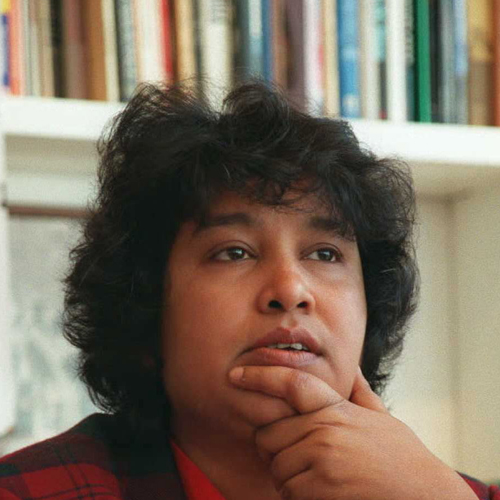 Taslima Nasreen diagnosed with breast tumours in US Taslima Nasreen diagnosed with breast tumours in US
Exiled Bangladeshi writer Taslima Nasreen has been diagnosed with breast tumours at a New York hospital where she went with cough and cold.
Doctors found the tumours "quite big" and advised her biopsy to check on possible malignancy.
The biopsy report is expected tomorrow, bdnews24.com reported today.
Taslima, 51, appears very worried, because her mother had died of cancer and a brother of hers is undergoing treatment for cancer in New York.
She has tweeted about her worries and said she had a sumptuous meal of Hyderabadi Biryani at a restaurant in New York immediately after her biopsy.
"Dear India, if I'm diagnosed w/ cancer tomorrow & if I die, pl take care of my cat Minu. She is the best cat in the world," she tweeted.
She arrived in New York a week ago to avoid the harsh Indian summer at this time of the year and enjoy the weather in New York.
But in her tweet she said: "Oh no man, I haven't come to the USA to enjoy weather, I have come to give lecture on 'women in secularism'."
Taslima is a doctor, having received her MBBS degree from Mymensingh Medical College in 1986.
Besides working as a doctor, she continued with her passion -- writing
After her novel 'Lajja' (Shame) hit the stands, she incurred the ire of the fundamentalists and had to leave Bangladesh in 1998.
She has lived in India and several western countries since then.
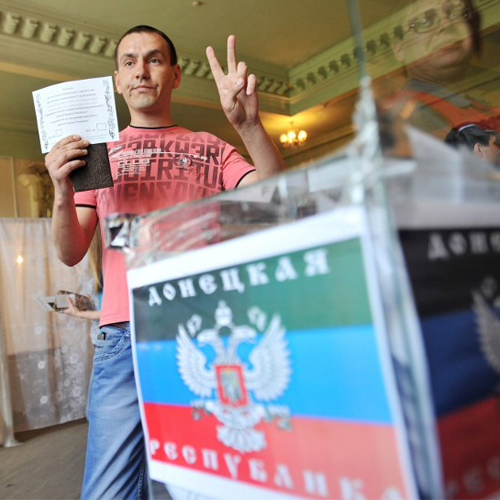 Pro-Russian rebels declare victory in east Ukraine vote on self-rule Pro-Russian rebels declare victory in east Ukraine vote on self-rule
Pro-Moscow rebels declared a resounding victory in a referendum on self-rule for eastern Ukraine, with some saying that meant independence and others eventual union with Russia as fighting flared in a conflict increasingly out of control.
Organisers in the main region holding the makeshift vote on Sunday said nearly 90% had voted in favour. Well before polls closed, one separatist leader said the region would form its own state bodies and military after the referendum, formalising a split that began with the armed takeover of state buildings in a dozen eastern towns in April. Another said the vote simply showed that the East wanted to decide its own fate, whether in Ukraine, on its own, or as part of Russia.
"89%, that's it," the head of the separatist electoral commission in Donetsk, Roman Lyagin, said by telephone when asked for the result of a vote that the pro-Western Ukrainian government in Kiev has condemned as illegal.
Sunday's vote went ahead despite a call by Russian President Vladimir Putin on Wednesday to postpone it – a move that briefly raised hopes for an easing of tension. Western leaders have accused Putin of destabilising Ukraine, a charge Moscow denies. The European Union declared the referendum illegal and prepared to increase pressure on Russia on Monday by taking a first step towards extending sanctions to companies, as well as people, linked to Moscow's annexation of Ukraine's Crimea region.
A festive atmosphere at makeshift polling stations in some areas belied the potentially grave implications of the event. In others, clashes broke out between separatists and troops over ballot papers and control of a television tower. Zhenya Denyesh, a 20-year-old student voting early at a university building in the rebel stronghold of Slaviansk, said: "We all want to live in our own country". But asked what he thought would follow, he replied: "It will still be war."
In the southeastern port of Mariupol, scene of fierce fighting last week, there were only eight polling centres for a population of half a million. Queues grew to hundreds of metres in bright sunshine, with spirits high as one centre overflowed and ballot boxes were brought onto the street.
On the eastern outskirts, a little over an hour after polls opened, soldiers from Kiev seized what they said were falsified ballot papers, marked with Yes votes, and detained two men. They refused to hand the men over to policemen who came to take them away, saying they did not trust them. Instead, they waited for state security officers to interview and arrest them.
On the edge of Slaviansk, fighting broke out around a television tower shortly before people began making their way through barricades of felled trees, tyres and machinery for a vote the West says is being orchestrated by Moscow. The Ukrainian Defence Ministry said one serviceman was wounded. A man was later reported killed in a clash in the eastern town of Krasnoarmeisk, Interfax-Ukraine news agency said, adding to a toll so far in the dozens but creeping higher by the day.
More sanctions loom
Western leaders, faced with Russian assertiveness not seen since the Cold War, have threatened more sanctions in the key areas of energy, financial services and engineering if Moscow disrupts a presidential election planned in Ukraine on May 25. EU officials have prepared a list of 14 people and two Crimean companies active in the energy sector that ministers are likely to add to the EU sanctions list, EU diplomats said.
But the EU will remain far behind the United States in the severity of the sanctions it has imposed on Russia. Some European governments fear tough trade sanctions on Russia could undermine their own economies, just recovering from the financial crisis, and provoke Russian retaliation.
Moscow denies any ambitions to absorb the mainly Russian-speaking east, an industrial hub, into the Russian Federation following its annexation of the Black Sea peninsula of Crimea after a referendum in March. But in a sign it may have set its sights beyond Crimea, Russian Deputy Prime Minister Dmitry Rogozin said he had brought a petition by residents of Moldova's Russian-speaking breakaway region of Transdnestria backing union with Russia.
Ukraine's Interior Ministry called the eastern referendum a criminal farce, its ballot papers "soaked in blood". One official said two-thirds of the territory had not participated.
Ballot papers in the referendum in the regions of Donetsk, which has declared itself a "People's Republic", and the much smaller Luhansk, were printed without security provision, voter registration was patchy and there was confusion over what the vote was for. Separatists in Luhansk said only 5% had voted against.
A man who identified himself as a 33-year-old engineer with the first name of Sergei, voting in the industrial centre of Mariupol, said he would answer "yes" to the question printed in Russian and Ukrainian on the ballot: "Do you support the act of state self-rule of the Donetsk People's Republic?" "We're all for the independence of the Donetsk republic," he said. "It means leaving behind that fascist, pro-American government (in Kiev), which brought no one any good."
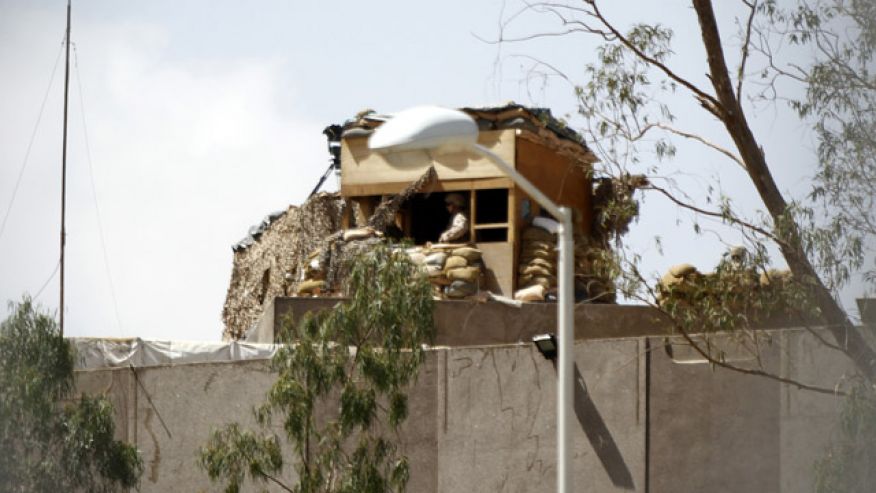 US officers killed 2 Yemenis during April abduction attempt US officers killed 2 Yemenis during April abduction attempt
WASHINGTON – Two officers at the U.S. Embassy in Yemen shot and killed a pair of armed Yemeni civilians during an attempted abduction of the Americans at a Sanaa business last month, the State Department said Friday.
The officers have left Yemen, Marie Harf, a spokeswoman for the State Department, said in a statement. No other details were provided.
Citing unidentified U.S. officials, The New York Times reported that the Americans were a CIA officer and a lieutenant colonel with the elite Joint Special Operations Command who were visiting a barber shop in an upscale district in Yemen's capital.
Within days of the shooting both Americans left Yemen with the approval of the Yemeni government, the newspaper reported. It said the shooting occurred on April 24.
Earlier this week, the U.S. Embassy in Sanaa closed temporarily because of attacks on Westerners. A day before Tuesday's closure, gunmen opened fire on three French security guards working with the European Union mission in the Yemeni capital, killing one and wounding another.
The U.S. has waged a heavy campaign of drone strikes in Yemen against the group al-Qaida in the Arabian Peninsula. This month the Yemeni government has been waging an offensive against the militant group, and violence around the country has been on an upswing.
On Friday, gunmen believed to be Al Qaeda militants ambushed the motorcade of Yemen's defense minister in the Mahfad region, officials said. The assassination attempt failed.
Later in the day, a security checkpoint near the presidential palace in Sanaa came under attack and at least two policemen died. A night earlier in Sanaa, two Al Qaeda militants from Marib province were killed in clashes with security men, the Interior Ministry said.
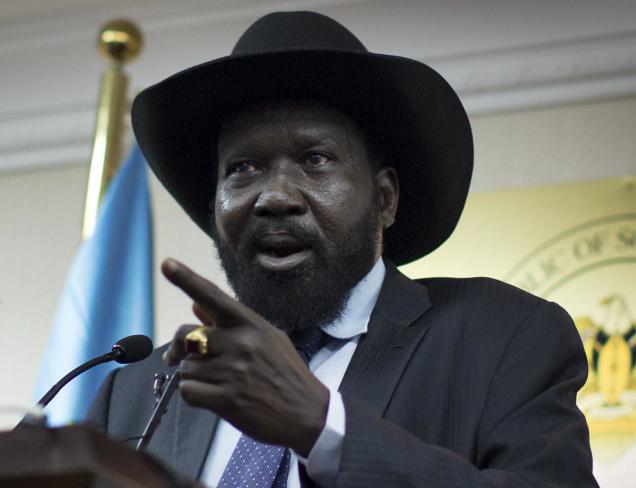 South Sudan leaders reach ceasefire South Sudan leaders reach ceasefire
South Sudan’s President has reached a ceasefire agreement with a rebel leader, an African regional bloc said on Friday, after a vicious cycle of revenge killings drew international alarm.
The deal means “an immediate cessation of hostilities within 24 hours of the signing” and “unhindered humanitarian access” to all people affected by the months-long conflict, said a statement by the political bloc known as IGAD, which is mediating the conflict.
Ethnically targeted violence in the world’s youngest country broke out in December, killing thousands of people and forcing more than 1.3 million to flee their homes. The U.N. Security Council has expressed “horror” at recent killings of civilians.
U.S. National Security Adviser Susan Rice welcomed the peace agreement in a statement, saying it “holds the promise of bringing the crisis to an end”.
A ceasefire in January between South Sudan President Salva Kiir and rebel leader Riek Machar fell apart within days.
Ms. Rice urged that Mr. Kiir and Mr. Machar follow up on the new peace deal signed in Addis Ababa, Ethiopia, by “ending the violence and negotiating in good faith to reach a political agreement”.
Friday’s meeting in Addis Ababa was the first face-to-face encounter between Mr. Kiir and Mr. Machar since the mass violence began, and it came a week after U.S. Secretary of State John Kerry met with Mr. Kiir to urge a revitalization of peace talks.
Mr. Kiir and Mr. Machar have agreed to establish a “transitional government of national unity” that will lead to new elections, the IGAD statement said. The two also agreed to meet again in a month, while IGAD leads talks on the terms of the transition.
“We look forward to the next summit which we hope will further solidify today’s gains,” Kenyan President Uhuru Kenyatta, who has helped with the talks, said in a statement late on Friday.
The South Sudan deal comes after weeks of growing international concern.
U.N. Secretary-General Ban Ki-moon said during a visit to South Sudan this week that the country has seen serious human rights violations. A new U.N. report said gross violations of human rights and international humanitarian law have been committed.
Much of the violence has been ethnic in nature and carried out by troops loyal to Mr. Kiir, an ethnic Dinka, and rebels loyal to former Vice-President Mr. Machar, an ethnic Nuer.
International pressure had been growing for at least a brief ceasefire to allow residents to plant their fields, with the U.N. and aid groups warning that if crops aren’t planted this month, the country could face mass hunger or famine. Tens of thousands of civilians already have been taking refuge in U.N. compounds across the country for months.
The Security Council in recent days discussed sanctions, an arms embargo and a referral of the South Sudan situation to the International Criminal Court as ways to apply pressure on the warring sides.
South Sudan is a largely Christian nation that broke off from the Muslim-dominated Sudan after a 2011 referendum. The fighting is an embarrassment to the U.S., which has provided hundreds of millions of dollars in aid and has been its strongest international champion.
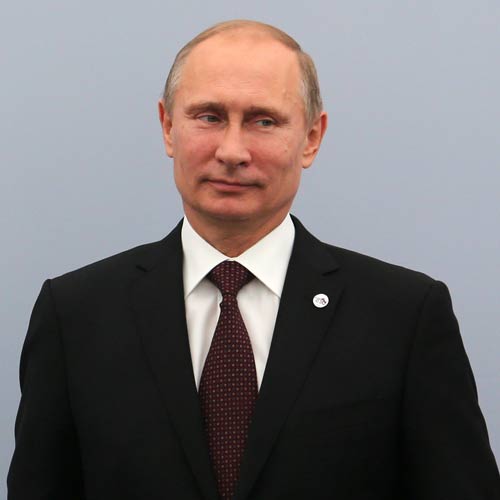 Vladimir Putin visit to Crimea irks US, European Union Vladimir Putin visit to Crimea irks US, European Union
President Vladimir Putin's first visit to Crimea since Russia annexed the peninsula from Ukraine in March was condemned by the US and European Union.
Also there were fresh deadly clashes in south-eastern Ukraine as Putin arrived in Crimea, BBC reported. The US state department said the trip was "provocative and unnecessary". The Kiev government called it a "gross violation of Ukraine's sovereignty".
US State Department spokeswoman Jen Psaki called Putin's trip provocative and unnecessary, adding: "Crimea belongs to Ukraine and we don't recognise of course the illegal and illegitimate steps by Russia in that regard."
US National Security Council spokeswoman Laura Magnuson said the visit "only served to fuel tension". Maja Kocijancic, a spokeswoman for EU foreign policy chief Catherine Ashton, said the EU "regretted" the presence of Putin at a military parade in Crimea's port of Sevastopol. Putin Friday praised Crimea for joining Russia, as he marked the Soviet victory over the Nazis in World War II. But his visit triggered deadly clashes in south-eastern Ukraine.
Ukraine's Interior Minister Arsen Avakov said at least 20 pro-Russian activists and a Ukrainian security officer were killed in the clashes in the port of Mariupol. The government said there was a gun battle when pro-Russian activists tried to storm a police headquarter.
Some witnesses and residents accused the security forces of opening fire on unarmed protesters who had entered the building. Local officials put the casualties at seven and 39 injured.
Crimea voted to join Russia in March - in a referendum dismissed by Kiev and the West as illegal.
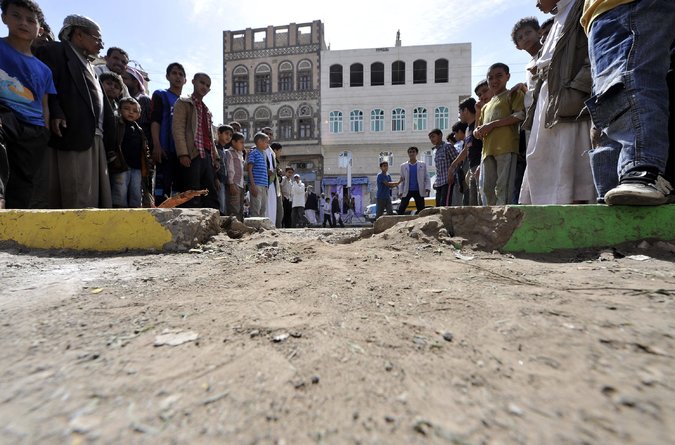 US officers kill armed civilians in Yemen capital US officers kill armed civilians in Yemen capital
WASHINGTON: A United States special operations commando and a central intelligence agency officer in Yemen shot and killed two armed Yemeni civilians who tried to kidnap them while the Americans were in a barbershop in the country's capital two weeks ago, American officials said on Friday.
The two Americans, attached to the United States embassy, were whisked out of the volatile Middle East nation within a few days of the shooting, with the blessing of the Yemeni government, American officials said.
News of the shootings comes at a perilous moment for the government of President Abdu Rabbu Mansour Hadi, whose collaboration with American drone strikes against suspected members of al-Qaida is already a subject of seething resentment in Yemen. Yemenis believe, with some evidence, that the drone strikes often kill nearby civilians as well as their targets, so any indication that Hadi's government helped conceal the killing of Yemenis by American commandos could be problematic.
Violence in the country is increasing, and on Friday, militants attacked a checkpoint outside the presidential palace, apparently in retaliation for the government's roughly 10-day offensive against Qaida strongholds.
Exactly what the two Americans were doing at the time of the shooting on April 24 is unclear. Some American officials said they were merely getting a haircut in a barbershop on Hadda Street in Sana, in an upscale district frequently visited by foreigners, playing down any suggestions that they were engaged in a clandestine operation.
Late Friday, both the Pentagon and CIA declined to comment on the shooting, and referred all questions to the State Department.
"We can confirm that, last month, two US embassy officers in Yemen fired their weapons after being confronted by armed individuals in an attempted kidnapping at a small commercial business in Sana," a State department spokeswoman, Marie Harf, said in an email response to questions from The New York Times. "Two of the armed individuals were killed. The embassy officers are no longer in Yemen."
A spokesman for the Yemeni embassy in Washington, Mohammed Albasha, said he was aware of the shooting but had no information about any American role in the matter or his government's response to that role.
The killings were reported in the Yemeni news media in the days after the shooting but attributed to unknown gunmen.
American officials refused to identify the Americans or their jobs in Yemen, where the Pentagon and the CIA have been training Yemeni security forces in addition to carrying out the drone strikes. But a senior American official said one individual involved in the shooting was a lieutenant colonel with the elite joint special operations command and the other was a CIA officer.
It was unclear whether the two American officers violated embassy security protocols when they visited the barbershop, apparently alone. In high-risk countries like Yemen and Pakistan, American diplomatic personnel are often tightly restricted in where and when they can travel outside the embassy walls, and are typically accompanied by armed security personnel.
"Per standard procedure for any such incident involving embassy officers overseas, this matter is under review," Harf said in the email.
The killings have an echo of a 2011 case in which a CIA security officer, Raymond A Davis, was jailed for weeks after killing two Pakistanis on a crowded street in Lahore. The ensuing furor brought relations between the CIA and Pakistan's spy service to perhaps their lowest ebb since the September 11 attacks.
The Yemeni government is a staunch counterterrorism ally, and administration officials are no doubt seeking to avoid a replay of the 2011 debacle. "There will certainly be an investigation, and one would have to assume it will be informed by what happened in Pakistan," one American official said.
American officials have voiced fears about the violence erupting in Yemen. The State department announced on Wednesday that it had closed its embassy in Sana to the public because of security concerns, citing recent attacks against Western interests in Yemen as the reason for temporarily suspending operations.
The violence came close to the president's doorstep on Friday when militants believed to be from al-Qaida's franchise attacked a security vehicle and killed three soldiers in the area of the presidential palace. News reports said the militants had fought a prolonged gunfight in the streets of the capital before escaping. In a second attack in the Bayda province, militants believed linked to al-Qaida killed two soldiers and injured many more in an ambush, according to officials in the area.
And in a third attack the same day, armed fighters from the Abida tribe in the restive province of Marib attacked security checkpoints, electricity towers as well as oil and gas pipelines, residents there said. All of Friday's attacks appeared to be retaliation for the Yemeni government's campaign against Qaida strongholds, which follows a series of American drone strikes last month that resulted in the deaths of more than three dozen militants linked to al-Qaida's affiliate in Yemen, one of the largest flurries of strikes in recent years.
As the army's ground campaign has picked up, so have a series of attacks against Western interests. Several diplomatic outposts have pulled back or pulled out. At the American embassy, personnel are not being evacuated, but closing the facility to the public will stop the processing of visas and other services, the State department said.
In the Yemeni news media, the involvement of American commandos in the shooting has not been disclosed. The day after the shooting, the Yemeni defense ministry's website, 26sep.net, reported that a foreigner living in Yemen had shot dead two gunmen who tried to abduct him.
"Two armed men tried to kidnap a foreign citizen as he was leaving a barber in Hadda Street in Sana," the website said. "But he was able to resist and shot them with a revolver he had in his possession," the website said, citing security sources.
The ministry gave no indication of the intended victim's nationality or that of those who planned to kidnap him. In subsequent news reports, however, unidentified Yemeni security officials attributed the shootings to various suspects, including a well-trained American citizen with a licensed weapon and a Russian specialist in the oil sector.
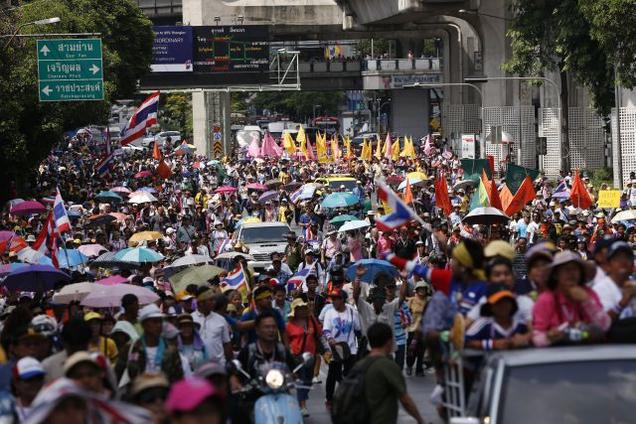 Thai protesters target TV stations, Parliament Thai protesters target TV stations, Parliament
Anti-government protesters marched in Bangkok on Friday, as demonstration leaders repeated their ambition to “sweep away” the regime of Prime Minister Yingluck Shinawatra, ousted by a court ruling this week.
Protest leader Suthep Thuagsuban called for his supporters to surround the offices of television channels broadcasting government-related content and demand that they only broadcast about the protests.
He also called for the marchers to head to Parliament and other government offices and occupy the premises.
He called the latest protests the “final fight,” and for demonstrators to bring him the new Prime Minister and the Cabinet.
Mr. Suthep and his movement have been demanding an appointed government to take over and implement reforms before any further elections.
Tensions are high in Bangkok after a court on Wednesday dismissed Ms. Yingluck and several members of her Cabinet, saying her transfer of a top security official in 2011, in favour of her brother-in-law, breached the Constitution.
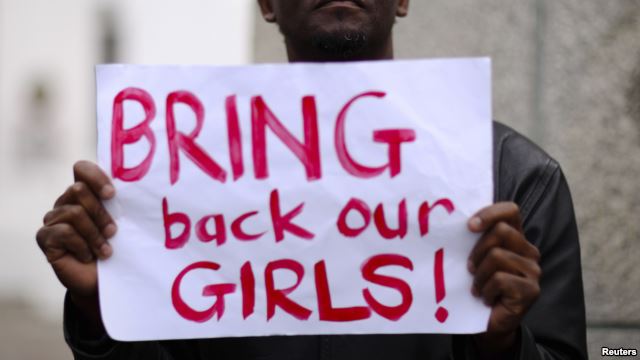 Kerry: US Will Do 'Everything Possible' to Help Nigeria Find Kidnapped Schoolgirls Kerry: US Will Do 'Everything Possible' to Help Nigeria Find Kidnapped Schoolgirls
U.S. Secretary of State John Kerry said the United States will do "everything possible" to free the 276 schoolgirls kidnapped by the Nigerian militant group Boko Haram.
Speaking Thursday in Washington, Kerry said a team of U.S. military advisers is arriving in Nigeria to help with communications, logistics, and intelligence.
"Our inter-agency team is hitting the ground in Nigeria now, and they are going to be working in concert with President Goodluck Jonathan's government to do everything that we possibly can to return these girls to their families and their communities. We are also going to do everything possible to counter the menace of Boko Haram," said Kerry.
At least three other countries have pledged to assist Nigeria in the search. Britain has promised to provide satellite imagery, while France says it will send security agents.
Addressing the World Economic Forum summit Thursday in Abuja, Nigerian President Goodluck Jonathan thanked China, the latest country to promise help in finding the girls.
"The United States of America, the United Kingdom and France have also spoken with me, and have expressed their commitment to help us resolve this crisis in Nigeria. I believe that the kidnapping of these girls will be the beginning of end of terror in Nigeria," said Jonathan.
He said those attending the forum were showing their support for the country and dealing a "major blow" to the terrorists. He said if delegations skipped the event, then militants would have celebrated and "committed more havoc."
Boko Haram's leader has said the group intends to "sell" the girls, who were taken from a school in Nigeria's Borno state on April 14.
Nigerian police have offered a $300,000 reward for information leading to the location and rescue of the students.
Boko Haram is blamed for thousands of deaths since it launched an uprising against the Nigerian government in 2009.
The group has attacked schools, churches, mosques, police stations, and markets while seeking to establish strict Islamic law in Muslim-majority northern Nigeria.
Nigeria declared a state of emergency in three northeastern states a year ago but efforts by the military to crush or contain the insurgency have been unsuccessful.
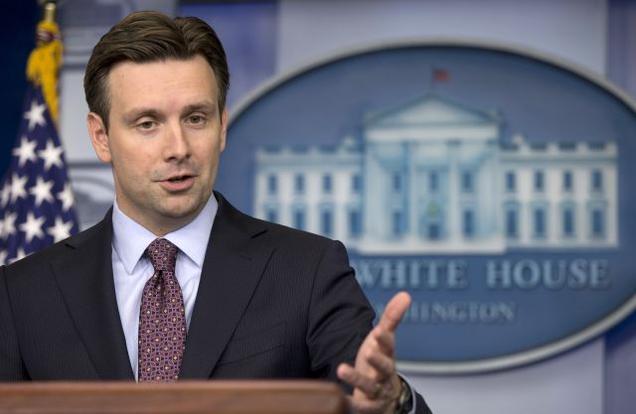 US to help in rescuing abducted Nigerian girls US to help in rescuing abducted Nigerian girls
The US has no plans yet to launch a military action in Nigeria, where extremist group Boko Haram recently abducted nearly 300 girls, and is only contemplating military assistance to help find them.
“We are not contemplating at this point an active military operation. We are contemplating military assistance that could be provided and that would advice the Nigerian government as they work to find these girls,” said White House Deputy Press Secretary Josh Earnest.
There are about 70 military personnel in Nigeria and 20 Marines have been there for training.
“I would not contemplate a deployment of troops to begin an active military operation. But there are military resources that can be brought to bear; there is some law enforcement expertise and resources that can be brought to bear to assist the Nigerian government in their efforts to find these girls,” he said.
“There are also resources that other countries who are similarly outraged by what has taken place there, who have also committed to providing some assistance to the Nigerian government,” he said.
“We are going to coordinate those efforts with the international community,” Mr. Earnest said.
 First 'sibling' of Sun discovered First 'sibling' of Sun discovered
Researchers have identified the first "sibling" of the Sun - a star that was almost certainly born from the same cloud of gas and dust as our star.
University of Texas at Austin astronomer Ivan Ramirez's methods will help other astronomers find other "solar siblings," work that could lead to an understanding of how and where our Sun formed, and how our solar system became hospitable for life.
Ramirez said that there is a chance "small, but not zero," that these solar sibling stars could host planets that harbor life. In their earliest days within their birth cluster, he explains, collisions could have knocked chunks off of planets, and these fragments could have travelled between solar systems, and perhaps even may have been responsible for bringing primitive life to Earth.
Or, fragments from Earth could have transported life to planets orbiting solar siblings.
The solar sibling his team identified is a star called HD 162826, a star 15 percent more massive than the Sun, located 110 light-years away in the constellation Hercules.
The team identified HD 162826 as the Sun's sibling by following up on 30 possible candidates found by several groups around the world looking for solar siblings. Ramirez' team studied 23 of these stars in depth with the Harlan J. Smith Telescope at McDonald Observatory, and the remaining stars (visible only from the southern hemisphere) with the Clay Magellan Telescope at Las Campanas Observatory in Chile. All of these observations used high-resolution spectroscopy to get a deep understanding of the stars' chemical make-up.
The work has been published in the Astrophysical Journal.
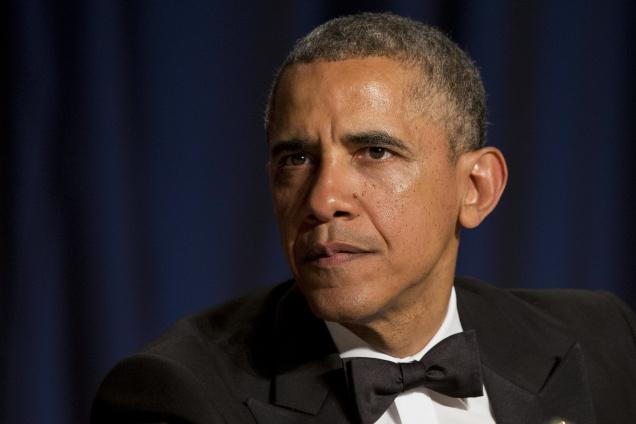 Obama intends to withdraw special trade benefits for Russia Obama intends to withdraw special trade benefits for Russia
U.S. President Barack Obama intends to withdraw special privileges granted to Russia because the country is too economically advanced to need preferential treatment reserved for less developed countries, the White House has said.
Mr. Obama notified Congress that he intends to remove Russia from the Generalised System of Preferences (GSP) programme as Moscow is “sufficiently advanced” to warrant any preferential treatment.
Once Russia’s eligibility is withdrawn, which would be effected via a presidential proclamation, U.S. imports of GSP-eligible goods from Russia will be subject to normal, non-preferential rates of duty, Mr. Obama in his notification said.
The purpose of the programme, which allowed $19.9 billion in imports to enter the U.S. duty-free in 2012, is to assist developing countries to use trade to boost their economic development, U.S. Trade Representatives (USTR) Mike Froman said.
“Russia has advanced beyond the level of economic development and competitiveness for GSP eligibility. As such, Russia should no longer qualify to receive GSP benefits,” he said in a statement.
“The President’s decision is consistent with the World Bank’s designation of Russia as a ‘high income country’ as well as actions by the European Union and Canada to remove Russia from similar programmes,” Mr. Froman said.
The U.S.-Russia relations have hit an all-time low since the Cold War following the unrest in Ukraine, which Washington says is being fuelled by Moscow.
The announcement comes on a day when Russian President Vladimir Putin said his country has pulled troops back from the Ukraine border. But the White House was sceptical of the claim.
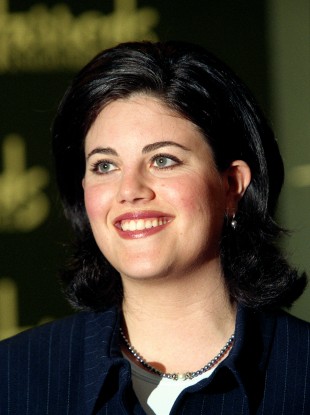 Monica Lewinsky breaks silence about affair with Clinton Monica Lewinsky breaks silence about affair with Clinton
WASHINGTON: Monica Lewinsky says she became reclusive during Hillary Rodham Clinton's campaign for president in 2008 for fear that she would be used for political purposes and that she feels "gun-shy" even now as Clinton considers another run in 2016.
Despite Lewinsky's trepidation, she writes in a forthcoming issue of Vanity Fair that she now feels compelled to emerge from the shadows because, "Should I put my life on hold for another eight to 10 years?"
It is time, she writes, to stop "tiptoeing around my past, and other people's futures. I am determined to have a different ending to my story. I've decided, finally, to stick my head above the parapet so that I can take back my narrative and give a purpose to my past."
She continues: "What this will cost me, I will soon find out."
Lewinsky, now 40, broke her years long silence about her affair with President Bill Clinton in the article to appear in the May 8 issue of Vanity Fair.
In excerpts released by the magazine on Tuesday — which include a photograph of her wearing a white dress and lying casually on a sofa — Lewinsky sounds off about her regrets, her feelings of humiliation and the effect that the scandal has had on her career.
Indeed, Lewinsky writes that the scandal continues to affect her ability to pursue a career despite her master's degree in social psychology from the London School of Economics, because employers do not want to attract the attention of the news media. But she says she has turned down eight-figure offers to exploit her celebrity status because "they didn't feel like the right thing to do."
She writes that she regrets her affair with Clinton, but says the popular view that the president pressured her into it is wrong.
"Sure, my boss took advantage of me," she writes, "but I will always remain firm on this point: it was a consensual relationship. Any 'abuse' came in the aftermath, when I was made a scapegoat in order to protect his powerful position."
Lewinsky writes that she was compelled to break her silence by the story of Tyler Clementi, a gay Rutgers University student who jumped to his death from the George Washington Bridge in 2010 after his roommate set up a webcam to record him in an encounter with another man, inviting Twitter followers to watch.
The story brought Lewinsky's mother back to 1998 and left her distraught, she says. "She was replaying those weeks when she stayed by my bed, night after night, because I, too, was suicidal," Lewinsky writes. "The shame, the scorn, and the fear that had been thrown at her daughter left her afraid that I would take my own life — a fear that I would be literally humiliated to death."
The full 4,300-word essay, taking up six and a half pages in the magazine, will be released on Thursday.
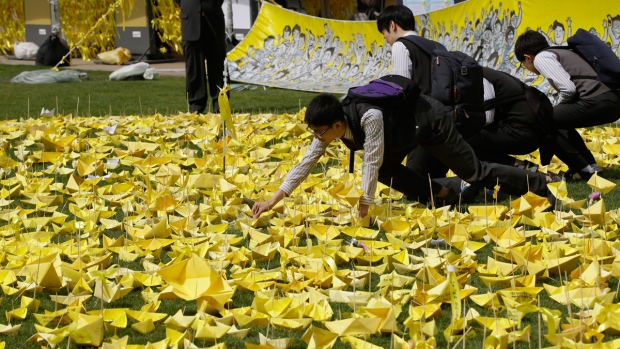 CEO detained in South Korea ferry disaster; 35 people still missing CEO detained in South Korea ferry disaster; 35 people still missing
SEOUL, South Korea -- South Korean prosecutors on Thursday detained the head of the company that owns the ferry that sank last month over an allegation of cargo overloading.
Authorities believe improper stowage and overloading of cargo are one possible reason the ferry sank on April 16, leaving more than 300 people dead or missing. Four employees at the ferry's owner Chonghaejin Marine Co. Ltd, who handled cargo on the Sewol, have already been arrested.
Kim Han-sik, president of Chonghaejin, was detained Thursday ahead of his possible formal arrest on allegations that he was aware that the ferry exceeded its cargo limit but didn't do anything before it started it trip, according to senior prosecutor Yang Jung-jin.
Yang said prosecutors are investigating Kim's actions before deciding if they will request a court to issue a warrant to formally arrest him.
All 15 surviving crew members involved in the ferry's navigation have been arrested, accused of negligence and failing to protect passengers.
More than three weeks after the sinking, 269 bodies have been retrieved but 35 others are still listed as missing. South Korea's prime minister said Wednesday that officials must try to complete the search for the missing by Saturday as tidal currents were forecast be weak until then.
But no progress has been reported as divers have failed to recover additional bodies since Wednesday afternoon due to high waves and strong winds, government task force spokesman Ko Myung-seok said.
Searches have been hampered by strong currents, bad weather and floating debris inside the ship. A civilian diver fell unconscious while searching and died on Tuesday, the first fatality among divers mobilized since the sinking.
The lengthy, difficult underwater search for bodies off South Korea's southern coast has deepened the anguish of families of missing people, who have been camping out at a nearby port waiting for the news of their loved ones.
Many South Koreans have been highly critical of the government's handling of the rescue effort, and the regulatory failures that may have allowed the disaster to happen.
On Wednesday, the government announced it miscounted the number of survivors, the latest in a series of missteps it has made that have eroded the nation's confidence in its leaders.
Coast guard chief Kim Suk-kyoon said 172 people survived the sinking of the ferry Sewol -- not 174, as the government had been saying since April 18.
Kim said one of the survivors was accidentally listed twice, and he blamed the other mistake on an inaccurate report by a passenger.
Kim said there are two more missing passengers than authorities previously knew about. Both are Chinese nationals.
That change raises the number of people feared dead to 304. More than 80 per cent of them are students from a single high school near Seoul who were on a trip to southern Jeju island.
There is evidence not only that the ship was overloaded with cargo, but that the agency responsible for ensuring passenger safety has incorrect information about how much the ship could safely carry.
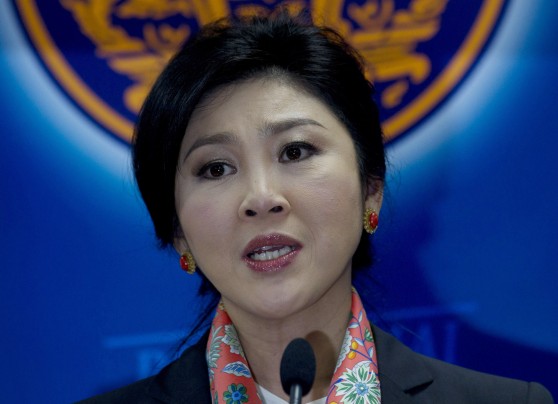 Grenade thrown at home of Thai judge Grenade thrown at home of Thai judge
BANGKOK — A grenade was thrown at the home of a judge on Thailand’s Constitutional Court that a day earlier had ousted the country’s prime minister for abuse of power, police said Thursday.
Police Col. Kamthorn Auicharoen said that there were no casualties and that the attackers were trying to instigate a situation to further deepen the political conflict. The headquarters of Thailand’s major commercial bank and a scientific research facility were also damaged by similar grenades overnight.
The court on Wednesday found Prime Minister Yingluck Shinawatra guilty of abusing her power by transferring the National Security Council chief in 2011 to another position. It ruled that the transfer was carried out to benefit her politically powerful family and, therefore, violated the constitution — an accusation she has denied.
The ruling accomplished what anti-government demonstrators have sought to do for the past six months and further widening the country’s sharp political divide.
Supporters of deposed Yingluck have called for a huge rally Saturday to protest the ruling by the Constitutional Court, which exercised powers laid out in a constitution written by a military government after a coup in 2006.
The leader of the anti-government protesters, Suthep Thaugsuban, meanwhile, told his followers that they would stage a “final offensive” on Friday and would achieve their goal of fully ousting the government.
The court found Yingluck guilty of abusing her power by transferring the National Security Council chief in 2011 to another position. It ruled that the transfer was carried out to benefit her politically powerful family and, therefore, violated the constitution - an accusation she has denied.
The ruling forced out nine Cabinet members but left nearly two dozen others in their posts, including Deputy Prime Minister Niwattumrong Boonsongpaisan, who was appointed the new acting leader.
Yingluck appeared on television two hours after the verdict to thank her supporters, emphasize that she was an elected leader and assert her innocence.
“We held true to the principles of honesty in running the country, and never acted corruptly, as we were accused,” said Yingluck, 46, who swept to power nearly three years ago as the country’s first female prime minister.
During the past six months, Yingluck’s supporters, the Red Shirts, have generally steered clear of provoking her opponents, who have been blocking government ministries and conducting street protests in the capital. Still, more than 20 people have been killed and hundreds injured since November in sporadic gunbattles, drive-by shootings and grenade attacks.
Red Shirt leader Jatuporn Prompan said Saturday’s rally will be a show of strength, but that further attempts to dislodge the government will be met with force.
“Our stance has been clear,” he said. “If an illegal prime minister steps in, we will fight. If there’s a coup, we will fight.”
Thailand’s long-running political crisis began in 2006 when Yingluck’s brother, Thaksin Shinawatra, was ousted by a military coup after protests that accused him of corruption, abuse of power and disrespect for King Bhumibol Adulyadej.
A military government after the coup rewrote the constitution, giving extensive powers to the courts and to agencies outside the Cabinet’s authority in an attempt to reduce executive and legislative power.
Thailand’s courts, like its military, are seen as bastions of anti-Thaksin conservatism, and have a record of hostile rulings toward Thaksin’s political machine, which is fueled by billions of dollars that he made as a telecommunications tycoon.
Analysts said Wednesday’s ruling further sullied the courts’ reputation.
“The credibility of the justice system has vaporized,” said Thongchai Winichakul, a professor of Southeast Asian history at the University of Wisconsin. “The royalist conservatives may celebrate this judicial coup. But the world will mourn over the death of another democracy.”
Yingluck is despised by Bangkok’s elite and middle class as a puppet of her brother. But she and her Pheu Thai party remain highly popular among the country’s poor majority, particularly in the north and northeast.
Her opponents have been demanding that she step down to make way for an interim unelected government that would remove her family’s influence from politics.
Wednesday’s ruling casts doubts on whether new elections planned for July will be held, following polls in February that were disrupted by the protesters and then invalidated by the court.
In 2007, the Constitutional Court made a landmark ruling dissolving Thaksin’s original Thai Rak Thai party for fraud in a 2006 election, and banned its executives from politics for five years. Thaksin went into self-imposed exile in 2008 to escape a two-year jail sentence for conflict of interest while prime minister.
Thaksin’s allies in late 2007 handily won the first post-coup election, but the Constitutional Court in 2008 kicked out two successive pro-Thaksin prime ministers in rulings on controversial legal grounds.
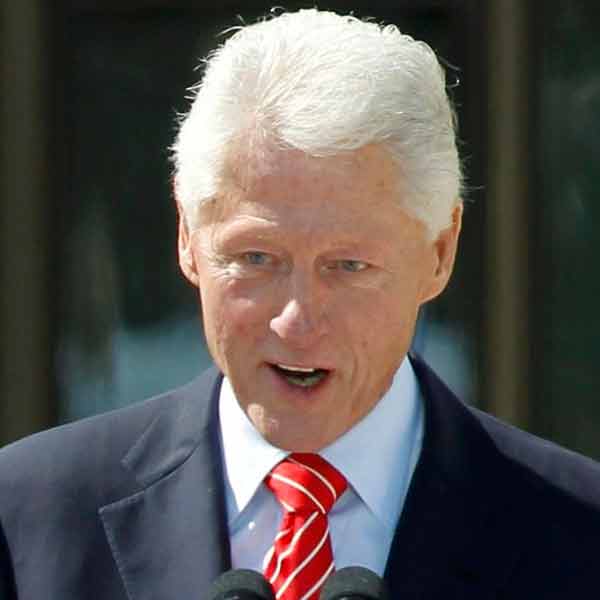 Monica Lewinsky breaks decade-long silence over Clinton affair Monica Lewinsky breaks decade-long silence over Clinton affair
Monica Lewinsky has broken her decade long silence over the subject of Clinton affair, saying that her boss did take advantage of her but she'll remain firm about the relationship being a consensual one.
Lewinsky said told Vanity Fair that she was determined to have a different ending to her story.
She said that she'd decided, finally, to stick her head above the parapet so that she could take back her narrative and give a purpose to her past, Politico reported.
Lewinsky added that when she was made a scapegoat in order to protect his powerful position, the Clinton administration, the special prosecutor's minions, the political operatives on both sides of the aisle, and the media were able to brand her, and the brand stuck as it was imbued with power.
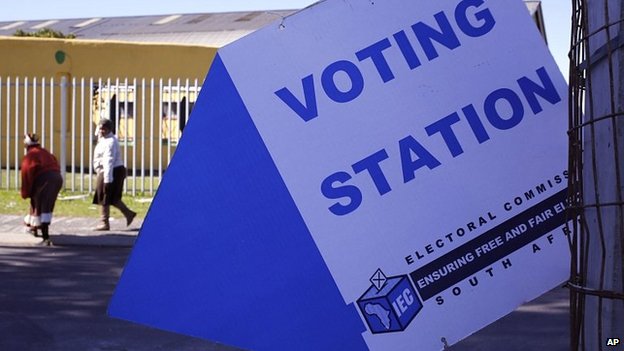 South Africa election: Polls open South Africa election: Polls open
Polls have opened in South Africa's fifth general election since the end of apartheid 20 years ago.
The governing African National Congress (ANC) is tipped to win, returning President Jacob Zuma for a second five-year term.
However, it is expected to lose ground amid concern over high unemployment and a number of corruption scandals.
The run-up to the vote has been marked by protests and troops have been deployed to boost security.
Wednesday's election is the first time that those born after the end of apartheid are able to take part and commentators say much will depend on how they cast their ballots.
Polls show many are disaffected with the country's leadership and are willing to support the opposition Democratic Alliance, led by anti-apartheid activist Helen Zille, or the Economic Freedom Fighters, headed by former ANC youth leader Julius Malema.
he ANC's campaign has drawn heavily on past glories and on the outpouring of grief over the death of its former leader, Nelson Mandela.
"Do it for Madiba, Vote ANC!" campaign posters read, referring to Mr Mandela by his clan name.
But many commentators say this election could be the last to be dominated by South Africa's post-apartheid legacy.
About a quarter of South Africa's workforce is jobless and a BBC poll suggests unemployment is the major issue among young voters, followed by education.
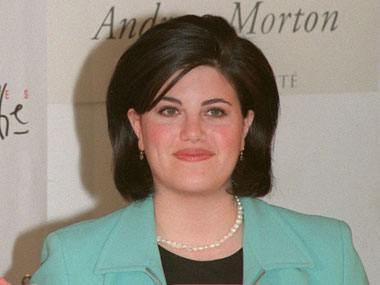 Blast from the past: Monica Lewinsky revisits her Bill Clinton affair Blast from the past: Monica Lewinsky revisits her Bill Clinton affair
Washington - Monica Lewinsky, the White House intern whose affair with Bill Clinton nearly brought down the then US president, is back in the news saying "It's time to burn the beret and bury the blue dress." Breaking her silence over the scandalous affair in the 1990s with Clinton - which led to the then president's impeachment by US Congress - with an unmistakable reference to the dress stained by presidential indiscretion, she also says: "I, myself, deeply regret what happened between me and President Clinton."
Lewinsky has been "So silent, in fact," she writes in an upcoming issue of Vanity Fair, "that the buzz in some circles has been that the Clintons must have paid me off; why else would I have refrained from speaking out?" "I can assure you that nothing could be further from the truth," she says. "Sure, my boss took advantage of me, but I will always remain firm on this point: it was a consensual relationship. "Any 'abuse' came in the aftermath, when I was made a scapegoat in order to protect his powerful position. . . .
"The Clinton administration, the special prosecutor's minions, the political operatives on both sides of the aisle, and the media were able to brand me. And that brand stuck, in part because it was imbued with power." Lewinsky, 40, says it is time to stop "tiptoeing around my past-and other people's futures. I am determined to have a different ending to my story." "I've decided, finally, to stick my head above the parapet so that I can take back my narrative and give a purpose to my past.
(What this will cost me, I will soon find out.)" After the scandal, writes Lewinsky, "I turned down offers that would have earned me more than $10 million, because they didn't feel like the right thing to do." Lewinsky also responds to reports made public in February that Hillary Clinton, during the 1990s, had characterized her as a "narcissistic loony toon" in correspondence with close friend Diane Blair. "My first thought," Lewinsky writes, "as I was getting up to speed: If that's the worst thing she said, I should be so lucky." Commenting on the disclosure, Washington Post opinion writer Ruth Marcus suggested that Lewinsky "may not have intended it this way, but she just did Hillary Clinton a big favour." The "timing of Lewinsky's Vanity Fair piece - as the political world awaits Hillary Clinton's presidential determination, as Chelsea Clinton prepares to have the first grandchild - would seem not exactly fortuitous for the Clintons," she says.
But in Marcus' view Lewinsky's piece defuses Republican senator Rand Paul's line of attack-whether Democrats in general, and Hillary Clinton in particular, should consort with a "sexual predator" like Bill Clinton. "And it does so before any Clinton presidential announcement," she says. So "If and when a Clinton presidential announcement comes, Lewinsky will be old news."
 Thai court ruling could force PM from office Thai court ruling could force PM from office
Thailand's Constitutional Court rules on Wednesday whether to remove the prime minister from office for abuse of power, with an expected guilty verdict likely to bring her supporters into the street and plunge the country into a political vacuum.
Yingluck Shinawatra has faced six months of protests in the capital, Bangkok, aimed at toppling her government. The protesters have failed to achieve their aim in the street and are now looking to legal challenges to remove her.
"It is almost certain the court will rule against Yingluck.
Her party will not accept that decision," said political analyst Kan Yuenyong at the Siam Intelligence Unit think tank.
"What is unclear is whether the whole cabinet will go with her. If it does, we will be left without a prime minister, a cabinet and a lower house. In short, Thailand will enter a void, a constitutional crisis."
The ruling is expected sometime after mid-day (0500 GMT).
The charges relate to Yingluck's transfer of National Security Council chief Thawil Pliensri in 2011, which opponents say was designed to benefit her Puea Thai Party and a family member.
Yingluck defended herself in court on Tuesday and denied benefiting from the transfer.
Some legal experts say the court may rule to remove ministers involved in that transfer decision or that her entire government will have to go if she is forced to step down.
Her party rejects that and says if Yingluck goes, an interim prime minister can be chosen from among her five deputies.
It remains unclear how a new premier would be appointed if Yingluck and her entire cabinet are forced to step down. There has been no lower house of parliament since December so it could fall to the Senate upper house.
"That prime minister would probably come from the opposition side which is another problem because the Puea Thai Party and its supporters will never accept that," said Kan.
The 150-seat Senate includes 77 elected members. The other 73 are appointed and are largely seen as opponents of Yingluck and her brother, former premier Thaksin Shinawatra, who is seen as the power behind her government.
The crisis broadly pits Bangkok's middle class and royalist establishment against the mainly poor, rural supporters of Yingluck and Thaksin, who was ousted by the military in 2006 and lives in exile abroad to avoid a jail sentence handed down in 2008 for abuse of power.
Yingluck's supporters accuse the Constitutional Court of bias in frequently ruling against the government. In 2008, the court forced two Thaksin-linked prime ministers from office.
Tensions between pro and anti-government supporters could come to a head if Yingluck is removed by the court.
Anti-government protesters are still massed in a central Bangkok park, albeit in diminished numbers. Yingluck's "red shirt" supporters plan a large rally near the capital this weekend, or earlier if she is forced to step down.
A group of red shirts plans a rally on Wednesday in the northeastern city of Khon Kaen in support of Yingluck.
The protesters disrupted a Feb. 2 election that Yingluck's party looked set to win. A court ruled the election void in March because voting was not possible in 28 southern constituencies where candidates were stopped from registering.
The government and the Election Commission have agreed to hold a new vote on July 20, but the cabinet has yet to draw up a draft decree for endorsement by Thailand's king.
Even if it goes ahead, it could again face disruption by the protesters, who are demanding political and electoral reforms before any vote in order to eliminate the influence of Thaksin.
Twenty-five people have been killed and scores wounded since the protests began in November.
 Monitors Charge President Meddled in Panama Vote Monitors Charge President Meddled in Panama Vote
Panama City: International monitors voiced concern Monday at "interference" by Panama's presidential office in weekend elections.
Conservative Juan Carlos Varela easily defeated President Ricardo Martinelli's hand-picked successor, Jose Domingo Arias, whose runningmate was Martinelli's wife.
Varela, Panama's vice-president and a former Martinelli supporter, won a clear majority - 39 percent - of the vote, according to the Electoral Tribunal.
"With special concern the (OAS electoral monitoring) mission has witnessed visible interference by the executive branch in the vote, in several ways," Organization of American States monitoring mission spokeswoman Lourdes Flores said in reading out a statement.
Martinelli's party's supporters "benefited throughout the campaign by using public funds," she added.
While the OAS mission acknowledged the election was "carried out successfully," it stressed that there were issues "that cannot be ignored, and that need to be addressed urgently."
Government interference, it charged, created "deeply unequal conditions in the race."
And the mission "has witnessed with concern the barely regulated campaign finance area," where there are "no limits on donations and no monitoring of private donations."
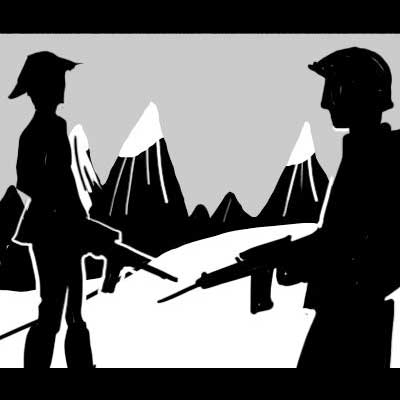 Pakistan army wants dialogue with India but with all options open Pakistan army wants dialogue with India but with all options open
As part of its change in strategy, a major section of Pakistan's army wants to give dialogue with India a chance, but wants to retain all other options including sub-conventional warfare, according to a new book.
"As one major general put it, 'We should give talking to India a chance, but retail all options, including sub-conventional warfare, to deal with India'," said Aqil Shah, author of the latest book 'Democracy: Military Politics in Pakistan'.
Described by Harvard University, which has published the book released in the US over the weekend, as the first comprehensive, historical study of the behaviour of Pakistan's military relative to India, Shah, however, does not identify the major general who he interviewed.
In his book, Shah, a lecturer in the Department of Politics at the prestigious Princeton University, notes that the change in the stance of Pakistan Army favouring dialogue with India is a tactical stance so as to gain time and space to put its house in order.
"Giving the multiplicity of perceived threats Pakistan and its material weakness, many officers reluctantly admit that Islamabad's traditional Indian policy – namely, unconditional support of the Kashmiri right of self-determination in line with the UN resolutions – may not be yielding the desired dividend and needs to be carefully re-evaluated," he wrote.
"Hence some advocate giving dialogue a chance and approaching all issues with an open mind. Several officers see dialogue with India as an opportunity to engage in the management of regional conflicts to enhance Pakistani security without compromising the basic stance on Kashmir," wrote Shah, who among others interviewed four service chiefs and three heads of the Inter-Services Intelligence (ISI) for the book.
"Despite disagreement on the best way to proceed, there is a consensus that protecting the national interest on Kashmir will require negotiating from a position of strength that can be achieved only by putting Pakistan's internal house in order," the author said.
According to the book, another senior Pakistani army officer said the military's capability to take "proxy wars to enemy territory and a likely fillip to already activated fissiparous tendencies, nuclear deterrence and strong diplomatic efforts are needed to secure" Pakistan.
The book said that the dangerous presence of both lethal terrorist groups and atomic weapons on Pakistani territory has raised the catastrophic possibility that Pakistan could become the world's first failed nuclear armed-state, but the military continues to believe that the short-term costs of these policies are lower than their long-term benefits in achieving Pakistan's security against India.
Referring to the recent moves by the Nawaz Sharif government to improve relations with India, Shah notes that if the past is any guide, it seems unlikely that the government can succeed in actually brokering a meaningful peace with India without the blessing of the military.
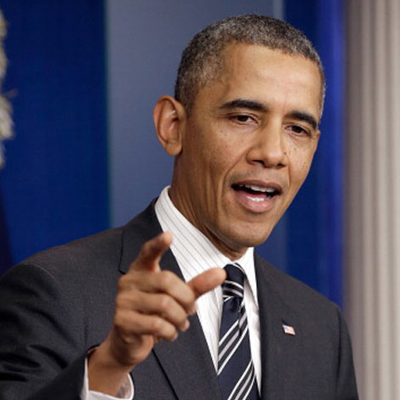 Barack Obama's brother-in-law sacked as coach of university basketball team Barack Obama's brother-in-law sacked as coach of university basketball team
The brother-in-law of US President Barack Obama has reportedly been fired from his position of coach of the men's basketball team at the Oregon State University.
Robinson, who had three years remaining on his contract, failed to lead his team to the NCAA tournament or even the NIT in his tenure.
According to ABC News, thanking Robinson and his family for their contributions to the university, their athletic director Bob De Carolis however, stated that the decision was taken in the best interests of their student-athletes, basketball program and the university.
Robinson will receive a buyout of four million dollars, which is ten times Obama's salary of 400,000 dollars, the report added.
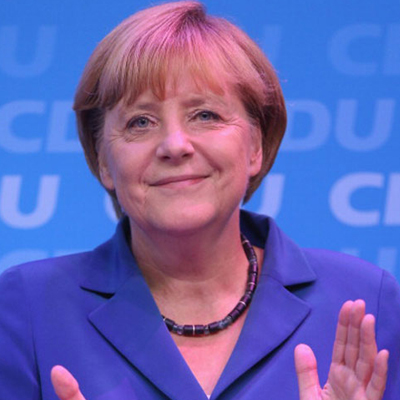 Germany presents five-point plan to ease Ukraine crisis Germany presents five-point plan to ease Ukraine crisis
German Foreign Minister Frank-Walter Steinmeier has presented a five-point plan to solve the ongoing crisis in Ukraine, a German daily reported Monday.
In an article for the newspaper Frankfurter Allgemeine Zeitung, Steinmeier called on Ukraine, Russia, the US and the European Union (EU) to meet again in Geneva and send on this occasion a "strong political message" that agreements reached at the first Geneva conference would actually be put into practice, Xinhua reported.
The minister wrote about the importance to ensure that the presidential election in Ukraine, slated for May 25, could be held properly, as this will allow the leadership in Kiev to "get new legitimacy".
All sides to the conflict in Ukraine should rapidly conduct negotiations on a constitutional reform, which includes all parts of the country and aims at achieving national consensus, proposed Steinmeier. Also, all non-governmental groups should be disarmed and occupied public buildings are to be vacated.
As another point of his plan, the minister expressed hope that the Organisation for Security and Cooperation in Europe (OSCE) could play a key role in settling the crisis in Ukraine. The OSCE, he wrote, should provide help in establishing dialogue forums at all levels.
Ukraine has been plunged into a chaotic violence since November 2013 following the government's backtrack on European integration which angered many in the west of Ukraine.
On April 17, representatives from the US, Russia, Ukraine, and the EU met in Geneva and signed a statement on the de-escalation of tensions in Ukraine. The accord says all sides must refrain from any violence, intimidation or provocative actions as part of initial steps to restore order in the country.
Ukraine was hit by a fresh wave of unrest in the past few days. In the east part of the country, government troops took actions against militants with combat helicopters and armored vehicles Sunday, after violent clashes occurred Friday between pro- and anti-government protesters in the port city of Odessa, leaving at least 43 people killed and 174 others injured.
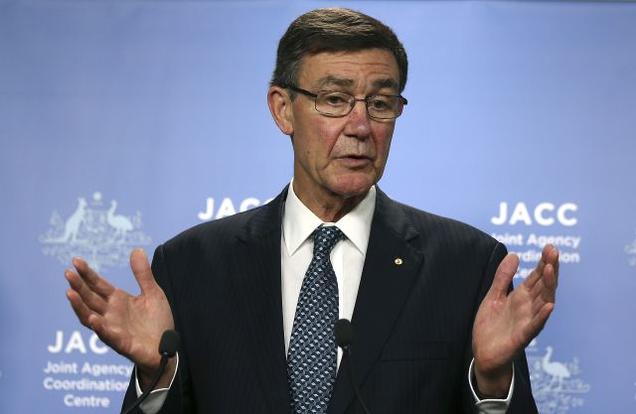 Experts to re-examine all gathered data on MH370 Experts to re-examine all gathered data on MH370
A panel of experts will re-examine all data gathered in the nearly two-month-old hunt for the missing Malaysia jet to ensure search crews who have been scouring a desolate patch of ocean for the plane have been looking in the right place.
Officials from Malaysia, Australia and China met in Canberra on Monday to work out the next steps in the search for Flight 370, which will centre around on a patch of seafloor in the Indian Ocean off Western Australia. The area became the focus of the hunt after a team of analysts calculated the plane’s likeliest flight path based on satellite and radar data.
Angus Houston, head of the search operation, said that data will be re-analysed and combined with all information gathered in the search.
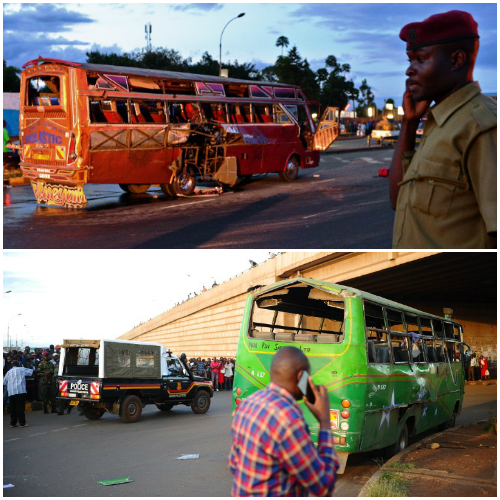 3 killed, 60 injured in bus blasts on second day of violence in Kenya 3 killed, 60 injured in bus blasts on second day of violence in Kenya
At least three people were killed when two buses driving on a busy highway in the Kenyan capital Nairobi were struck by explosive devices on Sunday, the day after attacks in Mombasa killed four people.
There was no immediate claim of responsibility but Kenya has blamed similar attacks on the al Qaeda-linked Somali group al Shabaab, which killed at least 67 people at the Westgate shopping mall in Nairobi last September.
"So far three people have been confirmed dead, one was killed at the scene and two died in hospital," Moses Ombati, the deputy police commander for Nairobi told Reuters. "The final report will be known later tonight or tomorrow, once we check with all the hospitals."
More than 60 wounded – at least 20 of them in critical condition – were taken to various hospitals with shrapnel injuries and torn limbs, medical officials said.
Somali Islamist militants have been carrying out such attacks in retaliation for Kenya's intervention in neighbouring Somalia in October 2011. The militants want Kenya to withdraw its troops, but Kenya has rejected their demand.
Sunday's blasts came a day after twin explosions in the port city of Mombasa on the Indian Ocean, a tourist magnet. Four people were killed in the Mombasa attacks when attackers threw an explosive device at passengers at a bus station, and also targeted a luxury hotel in the coastal city.
On Sunday, blood and broken glass littered the road where the two buses stood about one km from each other. Both were heading out of town along Thika Super Highway, which connects the capital to the outskirts of the city.
Police believed that the attackers had planted improvised explosive devices inside the buses, posing as passengers. One of the buses, painted green, had its rear window blown off and all windows shattered, while the other bus, red in colour, had a huge hole ripped out of its side. Several passengers from the buses were being treated on the road, while the severely wounded were rushed to hospitals.
Kenyans took to Twitter to express their anger over the attacks, demanding that police be more vigilant and telling al Shabaab that there would be no compromise.
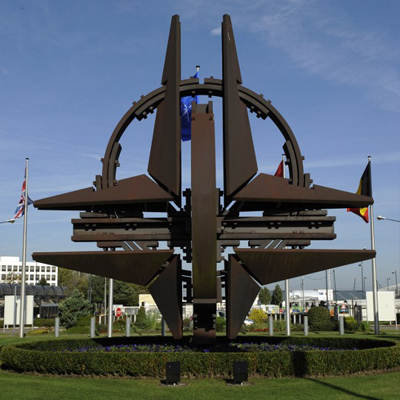 NATO containers attacked in Pakistan NATO containers attacked in Pakistan
At least two people were killed Monday when unidentified militants attacked NATO containers in Pakistan's Khyber tribal region.
The gunmen opened fire at three NATO containers in the Wazir Dhand area of Jamrud tehsil, the Dawn online reported.
The containers were set ablaze.
Khyber is one of the country's seven semi-autonomous tribal districts near the Afghan border, rife with homegrown insurgents and home to a number of militant organisations.
The bulk of supplies and equipment required by foreign troops stationed in Afghanistan are transported through Khyber, although the US troops are increasingly using alternative routes through central Asia, the report said.
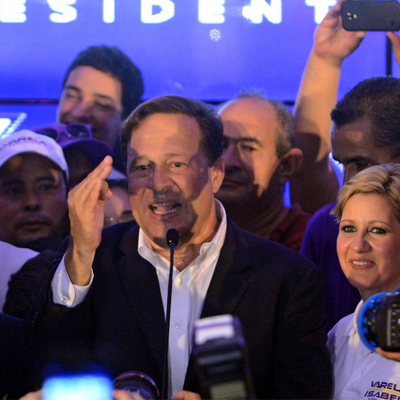 Juan Carlos Varela wins presidential election in Panama Juan Carlos Varela wins presidential election in Panama
Juan Carlos Varela from the opposition Panamenista Party won Panama's presidential election, Supreme Electoral Court President Erasmo Pinilla said on Sunday.
With 60% of the ballots counted, incumbent Vice President Varela garnered 39.2% of vote, followed by Jose Domingo Arias from the ruling Democratic Change Party with 32%, and Juan Carlos Navarro from the opposition Democratic Revolutionary Party with 27%, Xinhua reported. The electoral court chief had notified Varela of his victory by phone which was broadcast live.
Some 2.4 million Panamanians went to the polls on Sunday to elect a new president and a vice-president, 71 members of parliament, 77 mayors, 648 district representatives, seven councilors and 20 members of the Central American Parliament.
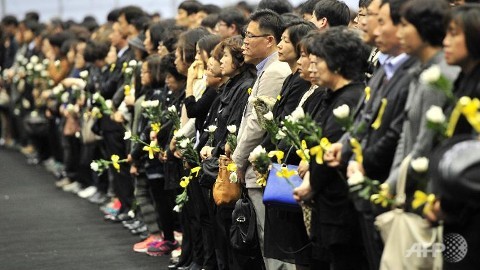 Recovery of bodies from South Korean ferry suspended Recovery of bodies from South Korean ferry suspended
SEOUL: The operation to recover bodies from the ferry that sank off South Korea last month has been suspended due to heavy seas, a spokesman said on Saturday, amid concern that many of the missing may never be found.
Seventeen days after the 6,825-tonne Sewol capsized and sank, 228 people have been confirmed dead with 74 still unaccounted for.
"Divers were unable to dive late Friday and early today due to fast currents and high waves whipped up by gusty winds", Coastguard spokesman Ko Myung-Suk told journalists.
More than 100 divers were on standby, waiting for the waves to die down, he said.
Dive teams have been working in challenging and sometimes hazardous conditions.
They have to grope their way down guiding ropes to the sunken ship, laying on its side on the seabed at a depth of 40 meters (132 feet).
They have to struggle through narrow passageways and rooms littered with floating debris in silty water.
Park Seung-Ki, spokesman for the ministry of oceans and fisheries, said bedding materials from the ship were found as far as 30 kilometers (around 20 miles) from the disaster site on Friday.
As days go by, personal belongings and debris from the ship have been spotted further and further away, fuelling concerns that strong currents may have swept some bodies into the open sea.
As a precaution, recovery workers put rings of netting around the site days ago.
The relatives of those still missing are insisting that all the bodies be recovered before efforts begin to raise the sunken ferry.
The Sewol capsized on April 16 with 476 people on board — more than 300 of them from the same Danwon High School in Ansan city, just south of Seoul.
It is one of South Korea's worst peacetime disasters but public anger and frustration has been amplified due to greed and irresponsibility being blamed for the poor handling of the catastrophe.
The captain and 14 of his crew have been arrested for being the first to leave the ship without helping all passengers to safety.
The Sewol's regular captain, who was off duty on the day of the accident, has told prosecutors that the ferry operator — Chonghaejin Marine Co — "brushed aside" repeated warnings that the 20-year-old ship had stability issues following a renovation in 2012.
Two Chonghaejin officials were arrested on Friday on charges of having the ferry overloaded well beyond its legal limit.
The ferry owners have also become the focus of an ever-widening probe. The government has come under strong criticism over the initially slow rescue response as well as lax safety standards and collusion between industry and regulators, which were partly blamed for the scale of the disaster.
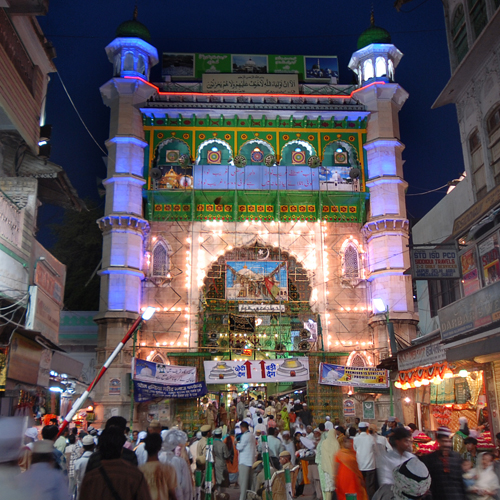 Pakistan voices disappointment as India cancels pilgrim visas Pakistan voices disappointment as India cancels pilgrim visas
In a last minute decision, India cancelled the visit of a group of 500 Pakistani pilgrims to the Ajmer shrine for Urs, citing the ongoing general elections. An upset Pakistan summoned the Indian deputy high commissioner in Islamabad on Friday to lodge a protest.
In a statement in New Delhi, India on Friday expressed disappointment at having to cancel the visit of Pakistani pilgrims to attend the annual Urs of Khwaja Moinuddin Chisti at Ajmer May 1-12 this year, saying the visit of a large group of pilgrims at the time of the general elections would have required much more elaborate arrangements than what is usually done for such events.
External Affairs ministry spokesperson Syed Akbaruddin said the move to cancel the visit was "a last moment decision". He expressed his regret, saying, "We are most certainly disappointed that this year pilgrims from Pakistan were unable to attend the Urs at what is one of the holiest shrines of our region." He added, "But this was a measure of abundant precaution, aimed at ensuring safety and welfare of the pilgrims which, I think, should always be our priority... A visit of such large group of saireens from Pakistan would have required much more elaborate arrangements than what is usually done for such events."
Akbarrudin said all government agencies, including railway authorities, had made full arrangements to transport over 500 pilgrims from Pakistan from Attari railway station to Ajmer and back. He said India has always cherished age-old cultural and civilisational links that exist across "our borders amongst all countries of our unique sub continent" and will always nurture these links for the benefit of future generations.
In Islamabad, Indian Deputy High Commissioner Gopal Baglay was summoned to Pakistan's foreign office and conveyed Islamabad's deep disappointment and concern" over the denial of visas by India – the fourth time in the last one year, according to a Pakistan foreign office statement.
Pakistan said the "visits to religious shrines in Pakistan and India were governed under the Bilateral Protocol on Visits to the Religious Shrines, 1974". "The foreign office conveyed its deep disappointment and concern over the denial of visas by the Indian government. This is the fourth time that visas have been denied to Pakistani pilgrims in the last one year."
Pakistan said that the move "was not only against the bilateral agreement, but also runs contrary to the efforts towards normalising ties between the two countries and the spirit of people-to-people contacts".
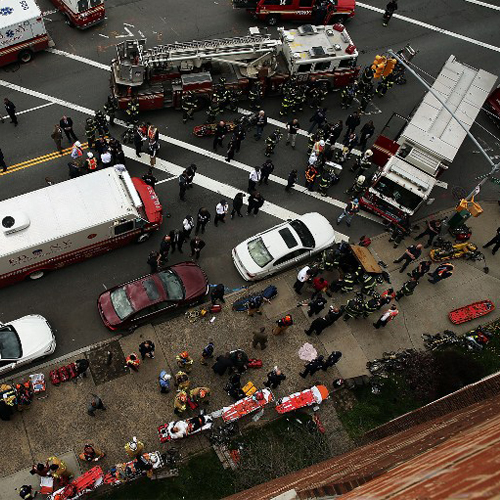 19 hurt in New York subway derailment 19 hurt in New York subway derailment
A New York City subway train carrying 1,000 riders derailed on Friday morning while traveling through a tunnel in the borough of Queens, injuring 19 people, city fire officials said.
Fifteen people escaped with minor injuries while four more were transported to a hospital with potentially serious injuries, officials said. The incident, at 10:24 a.m. (1424 GMT), involved six cars in an eight-car Manhattan-bound 'F' line subway, they said.
The cause of the derailment was not immediately known but MTA Chairman Thomas Prendergast said the mass-transit agency will begin a full inspection of signals and tracks. NY1 television broadcast video of fire officials evacuating throngs of people in darkness, some through subway grates.
"I saw everyone jerk forward. My car went dark," said Connie Wang, 24, a freelance photographer who was riding in a car in the middle of the train. "There were sparks flying." Wang, who was traveling from her home in Queens to a job in lower Manhattan, said her fellow passengers mostly waited in silence during the hour it took before they were evacuated.
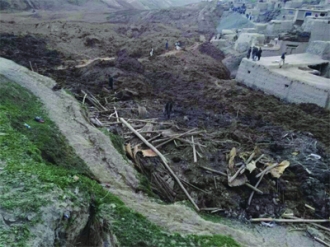 Ukraine AT LEAST 350 DEAD AS LANDSLIDE HITS AFGHAN VILLAGES Ukraine AT LEAST 350 DEAD AS LANDSLIDE HITS AFGHAN VILLAGES
A landslide in northern Afghanistan killed at least 350 people on Friday, officials said, with hundreds also feared missing as a major rescue operation was launched to find survivors in villages buried under mud.
The first emergency teams on the scene in Badakhshan province started digging through rocks and dirt as local authorities, the United Nations and the NATO-led military force raced to assess the damage and provide help.
“The number of deceased has increased to 350,” the UN mission in Afghanistan said in a statement. “A response is being mobilised for those who survived but were displaced, with some partners already on the ground.
“(NATO’s) Regional Command in the north in contact with the Afghan National Army in regards to search and rescue efforts.” Badakhshan is a remote province in northeast Afghanistan bordering Tajikistan, China and Pakistan.
“It is a disaster. The landslide has affected around 1,000 families,” Sayed Abdullah Homayun Dehqan, provincial director of the Afghan National Disaster Management Authority, told AFP. “Around 300 families are missing, that could involve around 2,000 people. The people are working to remove the rocks, so far three bodies have been recovered.
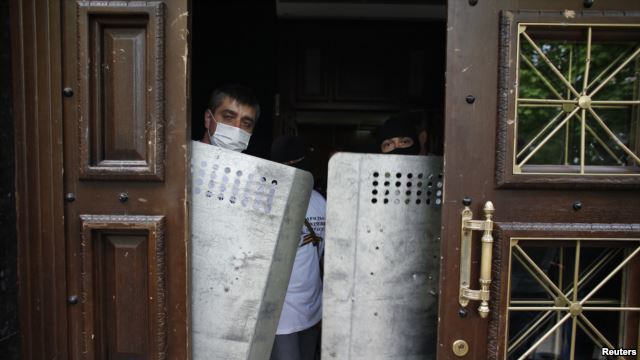 Ukraine Reinstates Conscription as Security Deteriorates in Eastern Region Ukraine Reinstates Conscription as Security Deteriorates in Eastern Region
Ukraine's acting President Olexander Turchynov has reinstated military conscription to deal with deteriorating security in the east of the country.
Turchynov signed the decree on Thursday, the same day pro-Russian militants seized the regional prosecutor’s office in the eastern city of Donetsk.
The decree reinstates the draft for non-exempt Ukrainian men between 18 and 25 years old and cites what it describes as "the further aggravation of the socio-politcal situation" in eastern and southern Ukraine, as well as "blatant aggression" by "illegal" armed pro-Russian groups.
The move comes a day after Turchynov said that his government was "helpless" to quell the growing pro-Russian separatist movement in two eastern regions and could not control its own troops.
Earlier Thursday, pro-Russian protesters stormed the prosecutor's office in the separatist-held city of Donetsk, lobbing stones and smashing windows after accusing the office of working for the Western-backed government in Kyiv.
To shouts of "Fascists", a refrain Moscow uses to describe Ukraine's new government, hundreds of people pelted the police with paving stones and then cornered some, dragging them to the ground and beating them. The police soon surrendered.
Donetsk, a city of about one million people in Ukraine's industrial east, is at the center of an armed uprising across the steel and coal belt by mainly Russian-speakers threatening to secede from Ukraine.
The violence, in a city already largely under the control of separatists, underscored the shifting security situation and suspicions in the region.
"The prosecutor's office was issuing criminal orders from Kyiv against its own people, charging them with separatism and other fake crimes," said one protester, a 43-year-old man from Donetsk who gave his name as Igor.
Pro-Russian separatists in the city have declared a "People's Republic of Donetsk" and say they will hold a referendum on secession on May 11.
IMF loan has tough requirements
The director of the IMF's European department, Reza Moghadam, told reporters Thursday that the Washington-based agency expects Ukraine to meet all its financial obligations, even as it teeters on the brink of bankruptcy. That includes $2.2 billion it owes Russia for natural gas purchases.
The IMF announced a $17 billion loan package for Ukraine over the next two years, and the World Bank, the European Union, Japan , Canada and the United States have pledged another $15 billion. The loans come with a requirement that Kyiv undertake economic reforms, including tax hikes, wage freezes and cuts in social aid.
But Moghadam acknowledged that the $17 billion IMF loan is not as big as it appears. He said $5 billion of the figure is meant for Ukraine to pay back money it already owes the IMF from a previous loan.
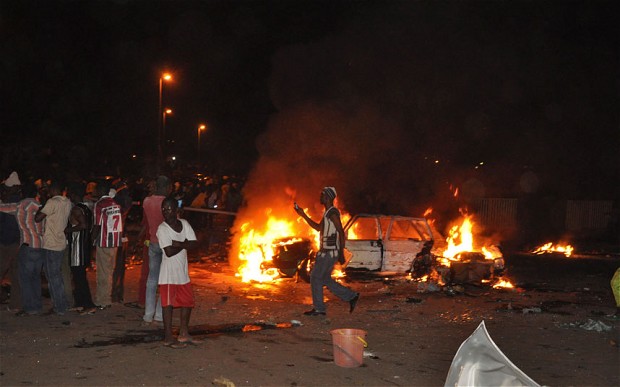 Car Bomb in Nigeria Capital Kills 15 Car Bomb in Nigeria Capital Kills 15
A car bomb killed at least 15 people late Thursday at a bus terminal on the outskirts of the Nigerian capital, Abuja.
The blast in the town of Nyanya was near the site of an April 14 bombing at a bus station that killed at least 75 people.
The Islamic extremist group Boko Haram claimed responsibility for the April blast. No one has claimed the latest attack.
Nigeria is planning to host the World Economic Forum on Africa next week. President Goodluck Jonathan has promised extraordinary security measures for the meeting.
He said Nigeria will triumph over what he calls the evil that wants to debase humanity.
Boko Haram has killed thousands in a five-year insurgency to set up a hardline Muslim state in northern Nigeria.
Militants from the group are suspected in the kidnapping of more 250 schoolgirls in northern Nigeria more than two weeks ago. Some reports say the militants are forcing the girls into marriage.
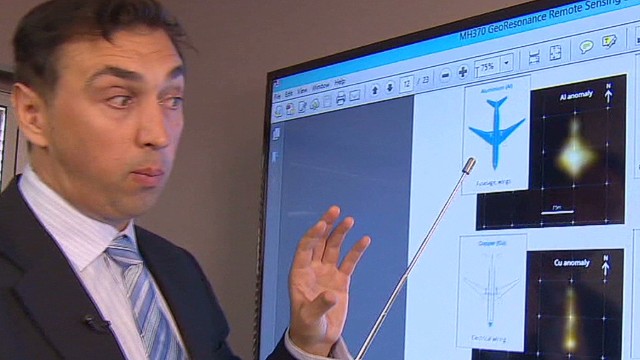 Red herring in hunt for MH370 highlights air traffic flaws Red herring in hunt for MH370 highlights air traffic flaws
Fresh questions have been raised over air traffic co-ordination after a preliminary report on the Malaysia Airlines plane that disappeared almost two months ago revealed 90 minutes of wasted effort while controllers looked in the wrong country.
While Flight MH370's disappearance has led to calls for real-time tracking, it has also re-focused attention on the gap between what controllers sometimes think and see, which complicated early efforts to find Air France 447 in 2009.
Some 25 minutes after the Malaysian jet was first reported missing over the Gulf of Thailand on March 8, the airline told controllers that it had flown onto Cambodian airspace. It later added it had been able to exchange signals, the report said.
Half an hour later, the airline reassured controllers that the Boeing 777 was in a "normal condition" based on a signal placing it even further east, on the other side of Vietnam.
In fact, by then it had flown back west across Malaysia and was already on a new southerly course thought to have taken it across the tip of Indonesia and towards the Indian Ocean, where investigators believe it crashed with 239 people on board.
The false trail appears to have cost controllers time, according to maps and a chronology released on Thursday.
Unnoticed by civil controllers because its transponder was switched off, and deemed no threat by a military radar controller, the aircraft flew back across Malaysia and the Malacca Straits for an hour while the airline believed it was in Cambodian and then Vietnamese airspace.
The airline later told controllers the information had been based on a "projection" and was not reliable, according to the report.
Malaysia Airlines could not be reached for comment.
The confusion echoes a fumble when Air France 447 vanished over the Atlantic five years ago. Controllers at first mistook a virtual flight path for the plane's actual course, according to an official report, which may have delayed a search operation.
In both cases, people on the ground were looking only at projections when they thought they were looking at real data.
HIGH TRAFFIC
Both events illustrate the problems in handling a growing amount of air traffic crossing through remote areas, where controllers and dispatchers sometimes have to fill in the blanks by anticipating where an aircraft should be.
"It is a natural consequence of the old traditional industry ways, which are limited by communications capability," said air traffic control expert Hans Weber, president of U.S.-based consultancy TECOP International.
Experts say such methods are not necessarily unsafe because controllers simply compensate for uncertainty by leaving a bigger "bubble" of vacant space around a jet to avoid collision. But that can also lead to delays and greater congestion.
"Controllers anticipate where a plane's next call should come from: that is what they do because that is all they have to work with," said Weber.
Many private satellite firms are offering flight tracking services, but analysts say they face problems of capacity due to sharp rises in global air traffic expected over coming years.
Such issues could be overtaken by broader plans for a radical overhaul of air traffic control in the next decade in the United States and Europe, using satellites. But the schemes are costly and have not yet been widely adopted elsewhere
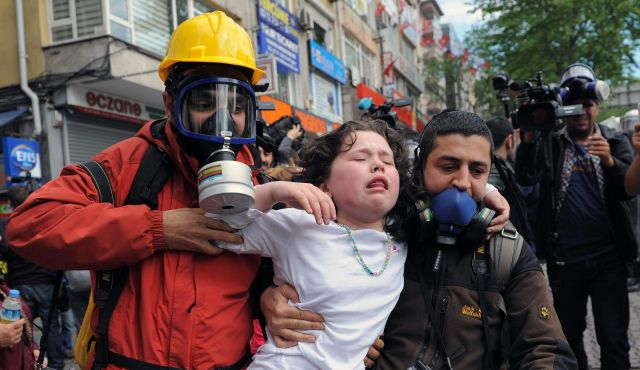 A Turkish premier consolidating his power orders Taksim empty on May Day A Turkish premier consolidating his power orders Taksim empty on May Day
The picture of a young woman with a head covering tries to breathe through a half lemon that a man is putting to her face is just one of the dramatic photographs published today in the Turkish media. The woman could not withstand any longer the harsh tear gas fired by the large numbers of police deployed all over Istanbul, and she looked like she was about to faint.
Other pictures showed little children carried by their fathers struggling to breathe through makeshift face masks. But the police were also photographed helping a little girl get away from the “battlefield.” And there was a picture of someone's hand palming marbles, a stone and a large bolt — all intended to be thrown at the police. These last two were probably meant to balance out the hoard of shots of police repression showcasing the security force's determination to squash the demonstrations.
Taksim Square, which was expected to be the center of the May Day demonstrations, remained empty. Thousands of police officers equipped with armored cars and heavy barricades prevented the protestors from reaching the square and closed off the roads a few blocks away. The protestors were met with water cannons as usual and the rubber bullets as well. Public transportation was partially shut down and dozens were arrested. Police forces endured a barrage of rocks and Molotov cocktails. But with all said and done, this year's May Day in Turkey could have been much worse.
Prime Minister Recep Tayyip Erdogan’s decision to thwart the protests in Taksim Square on May Day was based, Erdogan said, on intelligence there was a plan to use weapons during the demonstrations. A court ruled against a challenge to the ban and it appears that the judiciary, which has come under a harsh attack by Erdogan, was convinced of the validity of threat and the risk of violence spreading.
But the ban on the demonstration at Taksim Square actually reminds Turks of the 33 years during which such protests in the square were entirely prohibited — from 1977 until May 2010. The horrible events of 1977, which ended in the death of 34 people by police and also involved citizens taking up arms against law enforcement, have earned the name "May Massacre." In 2010, Erdogan allowed demonstrations once again, and even branded it a historic occasion.
The reinstatement of the ban on Taksim Square demonstrations is only one in a series of steps Erdogan has taken to curb his rivals. “Whoever was against us will pay the price,” he promised — or, rather, threatened — after his successful local election campaign that handed his party over 40 percent of the electorate. Erdogan does not consider his blocking of Twitter and Youtube, starting a short while before the elections, as a settling of accounts. But when Turkey's constitutional court lifted the Twitter ban, this honorable institution also made it onto the list of enemies Erdogan will be gunning for after his presidential run in August.
Erdogan has a number of tools at his disposable. There's the new intelligence law that went into effect a week ago for one. The law grants the intelligence agencies and their representatives broad powers. For example, it is now impossible to put on trial intelligence agents who infiltrated terrorist organizations and committed crimes in the course duty. Intelligence authorities can request and receive material on citizens form all government archives. Private companies must provide all information on citizens and organizations that is requested, including their consumption habits or a list of products they have purchased. It is now possible to eavesdrop on Turkish citizens outside of the country without a court order, and anyone who leaks documents or confidential information can be sentenced to up to 12 years in prison.
Erdogan has meanwhile declared he will demand that the United States extradite the cleric Fethulleh Gulen. A world war broke out between Gulen and Erdogan a few months ago because of Erdogan’s suspicions that Gulen supporters are working to bring down his government. But to give the extradition request a legal basis, the prosecution in Turkey has opened an official investigation into Gulen’s involvement in espionage. The investigation rests on the allegations that Gulen's supporters in the communications authority leaked confidential information and secret recordings that were later published in the media. Turkish authorities can now request Gulen’s extradition from the United States.
The surprising thing is that all this is happening in a year Erdogan has demonstrated political strength, which has only been boosted after the local elections — yet he still feels persecuted and threatened. “He is not persecuted and certainly not threatened,” a senior member of the opposition Republican party told Haaretz. “He aspires to be a sole ruler, a modern dictator, who, like Napoleon, thinks he is the state.” But this explanation still does not answer the question of where the 60 percent who did not vote for Erdogan’s Justice and Development Party are — the 60 percent that possibly views Erdogan as a threat to democracy. The opposition to Erdogan is not capable of fielding even a single appropriate candidate to run against him.
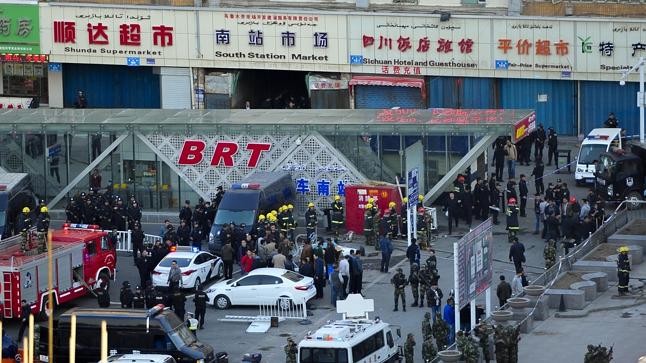 China railway station blast injures 79 China railway station blast injures 79
China has experienced its fourth terrorist attack in seven months, after an explosion and knife attack at a railway station in the Province of Xinjiang killed three people and injured 79.
The attack came just as President Xi Jinping wrapped up a four day tour of the restive Province.
Police said a bomb was detonated at the Urumqi south station at 7:10pm local time just as a train was arriving.
At the same time a group wielding knives attacked those at the station.
The death toll is likely to rise as authorities said four people are in a serious condition.
The mainly Muslim province has seen more than 100.
deaths over the last year as authorities crack down on ethnic Uighur groups which oppose Beijing’s increasingly tight controlThe deadly incident is eerily similar to the knife attack at the Kunming Railway station in March which left 33 people dead including four of the assailants.
The attacks mark a sharp escalation of violence and are a significant challenge to the Communist Party, which often claims only its firm hand can maintain order in the country of 1.3 billion people.
The escalation of violence began on October 28 with a car bombing near Beijing’s Tiananmen Square.
The attack, which killed five people and injured a further 38, led to a crackdown by security forces in Xinjiang.
Ethnic Uighur groups have long complained about discrimination and repression at the hands of China’s dominant Han majority.
On November 6, a blast outside the Communist Party’s head office in Shaanxi Province left two people dead and injured 14. It was not blamed on Uighur separatists but a disgruntled local citizen.
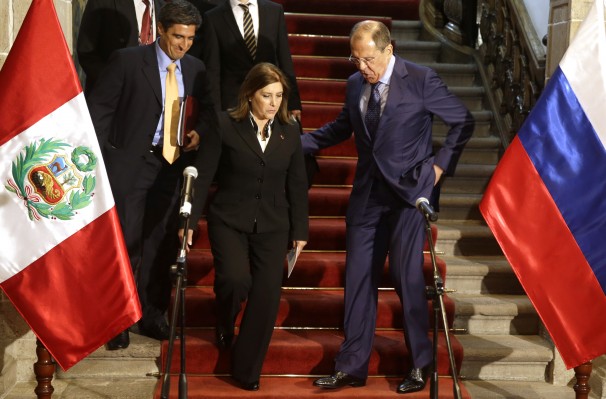 Russia FM: OSCE can oversee Ukraine dialogue Russia FM: OSCE can oversee Ukraine dialogue
LIMA, Peru — Russian Foreign Minister Sergey Lavrov suggested on Wednesday that a dialogue be launched between Ukraine’s government and its “opponents” under the auspices of the Organization for Security and Cooperation in Europe.
Lavrov made the comment during a statement to reporters after meeting with Peru’s president, Ollanta Humala, and foreign minister, Eda Rivas.
The 57-nation OSCE was tasked earlier this month with helping to ease tensions in eastern Ukraine, where pro-Russian separatists have seized government buildings in at least 10 tons and cities.
The OSCE special mission to Ukraine has no muscle, however, to enforce its vague mandate and seven of its observers, including three German officers, were being held by separatists.
“We hope that our partners, our Western colleagues will let the Ukrainians establish this dialogue without major impediments,” Lavrov said through a translator. He did not take questions.
“The authorities in Kiev most take into account the responsibility they have, of the necessity for them to establish dialogue with our regions of the country, in particular the southeast,” Lavrov added. That region has a large Russian-speaking population.
The Russian envoy made the statement at the end of a quick swing through Latin America that included visits to Cuba, Nicaragua and Chile.
In Chile, he called U.S. and European Union sanctions against top officials allied with Russian President Vladimir Putin “totally without sense” but said his country would not rush into doing “stupid things” in response to them.
“We want to give our partners the possibility to calm themselves.”
The sanctions followed Russia’s annexing in March of the Crimea region after a referendum. The U.S. and European Union deemed the annexation illegal.
Copyright 2014 The Associated Press. All rights reserved. This material may not be published, broadcast, rewritten or redistributed.
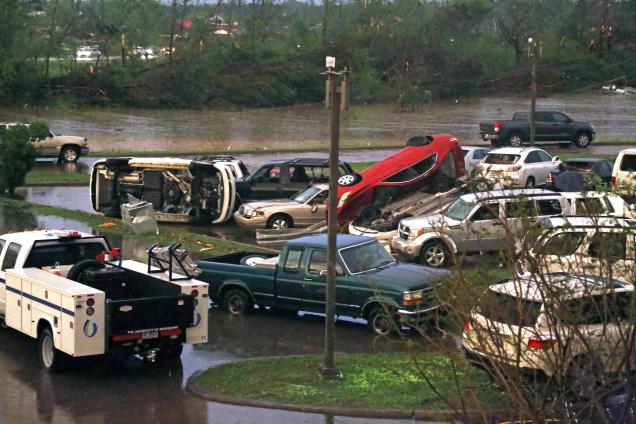 Killer tornadoes in US leave 20 dead Killer tornadoes in US leave 20 dead
A new round of twister tornadoes ripped through South US killing five people in Mississippi and Alabama a day after another storm left a trail of destruction in Arkansas.
At least 15 people were killed by Sunday’s storms in Arkansas where emergency officials searched for survivors in the debris left by a powerful tornado that carved in 80-mile path of destruction through suburban Little Rock, media reports said.
As Alabama Governor Robert Bentley on Monday declared a state of emergency for all counties, Arkansas Governor Mike Beebe said the storm was one of the worst to hit the state in recent memory.
Mississippi Governor Phil Bryant said the twisters inflicted “severe damage” around the town of Louisville, about 90 miles northeast of Jackson, and more around Tupelo, CNN reported.
Winston Medical Centre, Louisville’s major hospital, was among the buildings hit, Bryant told reporters.
The National Weather Service issued a tornado emergency warning for the area around Athens, Alabama, near the Tennessee state line, on Monday evening, CNN said.
A tornado emergency also was declared in south-eastern Tennessee for east central Lincoln, Moore and northwest Franklin counties.
Storm spotters were tracking a large and extremely dangerous tornado seven miles east of Fayetteville, Tennessee, the weather service said.
The National Weather Service’s Storm Prediction Centre declared tornado emergencies for several counties in northern Mississippi on Monday afternoon as the line of storms moved through the state from south-west to north-east.
Nearly 5 million people were at moderate risk of severe weather on late Monday, while 31 million people were at slight risk, including those in Atlanta and Nashville, CNN said.
The Arkansas tornado was the largest of several produced by a powerful storm system that rumbled through the central and southern US, according to CBSNews.
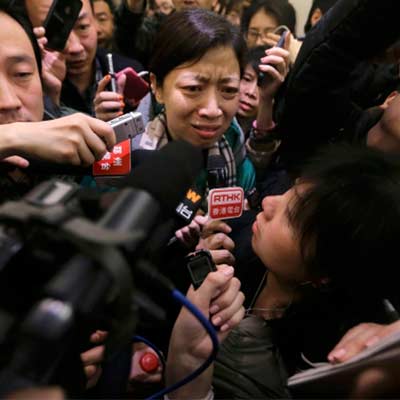 Exploration firm claims to have sighted MH370 wreckage Exploration firm claims to have sighted MH370 wreckage
An Australian exploration firm has claimed sighting wreckage from the missing Malaysia Airlines flight MH370, a media report said Tuesday.
"We identified chemical elements and materials that make up a Boeing 777. These are aluminium, titanium, copper, steel alloys and other materials," Pavel Kursa, spokesman for Adelaide-based exploration company GeoResonance, told 7News.
The company surveyed over 2,000,000 sq.km of the probable crash zone, using images obtained from satellites and aircraft.
The possible wreckage was found in the Bay of Bengal, 5,000 km away from the current search location in the southern Indian Ocean off Perth.
GeoResonance started its own search March 10 by using top technologies.
"The technology that we use was originally designed to find nuclear warheads and submarines. Our team in Ukraine decided we should try and help," another company spokesman, David Pope, was quoted as saying.
Pope said they had on March 5 taken images of the site they are searching now and what they are claiming to have found now wasn't there earlier. The MH370 diappeared March 8.
"We're not trying to say that it definitely is MH370. However, it is a lead we feel should be followed up," Pope added.
New York pilot Michael Hoebel, 60, believes that he has also found an image of the wreckage.
After spending hours looking at images on TomNod, a crowd-sourcing website that has been sharing online satellite imagery in the hope of finding clues, he found an image spotting debris he believes perfectly matched the dimensions of the missing plane.
Australian Prime Minister Tony Abbott said Monday that the seabed search would be expanded to a much larger area and would involve commercial contractors specialised in deep ocean search and may take six to eight months if weather conditions permit.
Autonomous underwater vehicle (AUV) Bluefin-21 would continue its mission in adjacent areas.
Malaysia Airlines flight MH370 vanished mysteriously about an hour after taking off for Beijing from Kuala Lumpur shortly after midnight March 8.
The Boeing 777-200ER was scheduled to land in Beijing the same morning. The 227 passengers on board included five Indians, 154 Chinese and 38 Malaysians.
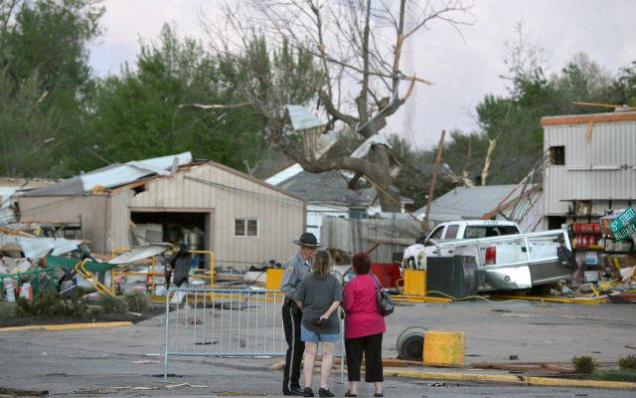 9 killed as tornadoes strike central, southern U.S. 9 killed as tornadoes strike central, southern U.S.
A tornado system ripped through the central U.S. and left at least nine dead, officials said.
Matt DeCample, a spokesman for Arkansas Gov. Mike Beebe, said eight in his state were killed on Sunday when a tornado carved through several Little Rock suburbs.
A separate tornado from the same storm system killed one person in Oklahoma.
The large tornado outside Little Rock, Arkansas, stayed on the ground as it moved northeastward for at least 30 miles (48 kilometres). Television footage showed badly damaged buildings and vehicles.
Tornadoes also touched down in Nebraska, Iowa and Missouri.
Tornado watches which means twisters could develop but aren’t an immediate threat were in effect for states as far west as New Mexico and as far east as Tennessee, and the system produced storms that were moving through the region in waves. Watches were also issued for Kansas, Missouri, Mississippi, Nebraska, Iowa, Texas and Louisiana.
In Oklahoma, Ottawa County Emergency Management director Joe Dan Morgan said Quapaw, which has about 900 residents, was heavily damaged.
“Looks like about half of town got extensive damage as well as the fire department,” Mr. Morgan said.
Authorities earlier had said two were killed in Quapaw. Sheriff’s dispatcher Kelli Soechs declined to explain the discrepancy.
Six people were treated for tornado-related injuries at Baptist Regional Health Centre, said hospital spokeswoman Kristie Wallace.
The Missouri Highway Patrol reported a tractor-trailer was blown onto its side on Interstate 70. No one was injured.
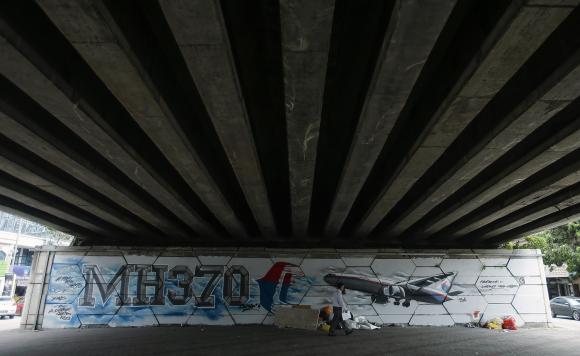 Search for missing Malaysia plane enters new phase Search for missing Malaysia plane enters new phase
The chance of finding floating debris from a missing Malaysia Airlines jetliner has become highly unlikely, and a new phase of the search would focus on a far larger area of the Indian Ocean floor, Australian Prime Minister Tony Abbott said on Monday.
The international search effort for Malaysia Airlines Flight MH370, which vanished on March 8 with 239 people on board, has so far failed to turn up any trace of wreckage from the plane.
Given the amount of time that has elapsed, Abbott said that efforts would now shift away from the visual searches conducted by planes and ships and towards underwater equipment capable of scouring the ocean floor with sophisticated sensors.
Abbott admitted, however, that it was possible nothing would ever be found of the jetliner.
"We will do everything we humanly can, everything we reasonably can, to solve this mystery," he told reporters in Canberra.
Authorities had focused their search on a 10 square km (6.2 square mile) stretch of seabed about 2,000 miles northwest of Perth after detecting what they suspected was a signal from the plane's black box recorder on April 4.
But Abbott's comments appeared to be an acknowledgement that the search by a U.S. Navy Bluefin-21 underwater drone in that refined area had failed find any sign of the jetliner.
Abbott said that the new search area, which spans 700 km by 80 km, could take between 6-8 months to completely examine.
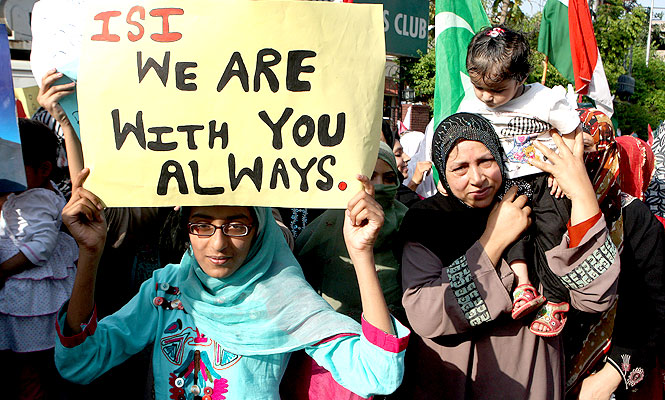 In Pakistan, signs praise spies as nation changes In Pakistan, signs praise spies as nation changes
On city streets in Pakistan, a curious sight has appeared in recent days: posters bearing the faces of the country's two most powerful generals that profess love for the military and its spying arm.
Lamp posts, street signs and cars carry the banners, which bear mottos like: "A traitor of Pakistan army is a traitor of the country" and "We love Pakistan army and ISI," referring to its Inter-Services Intelligence wing.
The mystery signs arrived in Pakistan as its powerful military faces off with the country's largest private television station over allegations that its forces were behind a shooting that seriously wounded one of its top anchors. But behind the chanting demonstrations and garish loyalty posters lies the deep challenge confronting Pakistan: Where does power lie in this country that's undergone three military coups since independence, with its army or its nascent civilian government?
The controversy started last Saturday when gunmen opened fire on Hamid Mir, an anchor for Geo News, wounding him six times. After the shooting, his journalist brother appeared on Geo and blamed the ISI for the shooting while the station showed a photo of its chief, Lt. Gen. Zaheerul Islam. The station repeatedly aired the accusations and blamed the ISI for the "assassination attempt" against Mir.
The Defense Ministry then petitioned government regulators to remove Geo from the air - a decision that's likely to come in early May. The station then reported that it's signal was blocked in areas of the country as small rallies supporting the military began. Last week, the posters began appearing, some with the ISI leader on them.
Their origin is a mystery. Some said they were from the people of Islamabad, the capital. Others mentioned a Pakistani religious figure. Some listed the All Traders Welfare Association, a little-known trade group in the capital, headed by a man named Furqan Murtaza.
When reached by The Associated Press, Murtaza denied that any government or military agency encouraged his campaign.
"This is an expression of public sentiment," he said.
Generally, people have to get permission before hanging posters and banners in the capital and pay a fee. An official from the Capital Development Authority, which manages Islamabad, said the agency did not receive any requests to hang the posters, though it's common for people to do it without permission. He spoke on condition of anonymity as he was not authorized to speak to journalists.
The military did not respond to requests for comment. An ISI official, speaking on condition of anonymity as he wasn't authorized to discuss the agency publicly, said it was not responsible for the campaign.
The poster push comes as Pakistan, a country of 180 million that was carved out of India in 1947, last year saw its first civilian government finish a full five-year term and transfer power in democratic elections. Previously, military coups and other political turmoil prevented that.
But even now, journalists face dangers reporting stories, the Taliban continue to be a threat and the military remains a powerful institution in nuclear-armed Pakistan.
Rasul Baksh Rais, who heads the Islamabad-based Institute for Strategic Studies, said the posters reflect a larger sentiment in a society where many people still respect the military and feel Geo went too far in their criticism. He compared it to the same nationalist pride that sees images of Field Marshal Ayub Khan, who took power in a 1958 coup, or air force jets decorate the sides of cargo trucks in the country.
But on the streets, the posters seemed to do little to sway public opinion.
"I don't have time to read these banners and listen to radio and TV," said Ghulam Hasan, 46. "No common man has time to pay attention to these things. They are always worried about how to meet their expenses."
Hasan added: Those in charge "have no time to solve people's problems."
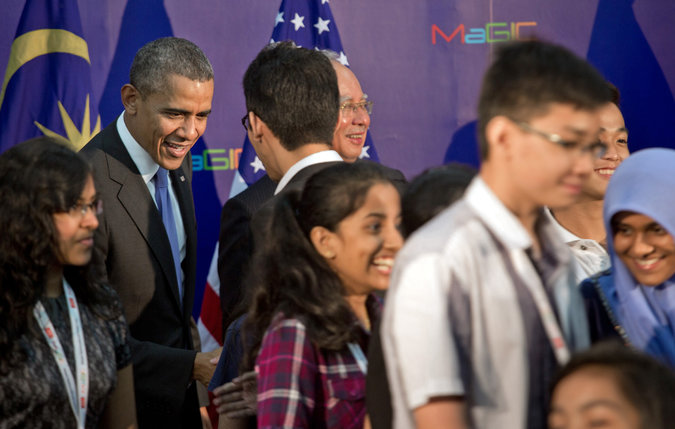 In Malaysia, Obama Works to Mend Troubled Ties In Malaysia, Obama Works to Mend Troubled Ties
KUALA LUMPUR, Malaysia — The last time a top American official visited this Southeast Asian nation was in 1998, when Vice President Al Gore publicly rebuked its leaders for suppressing freedom and embraced “reformasi,” the rallying cry of the student-led protest movement.
On Sunday, President Obama visited Malaysia to underscore how much has changed in the last 16 years — not least in this country’s attitude toward the United States, which has evolved from deep-seated suspicion to a cautious desire for cooperation.
Citing negotiations for a trans-Pacific trade accord, a formal agreement to cooperate in halting the spread of nuclear equipment, and the international search for the missing Malaysia Airlines jet, Mr. Obama said, “We’re working more closely together than ever before.”
White House officials liken Malaysia to a “swing state” in Southeast Asia, falling somewhere between the freewheeling democracy of the Philippines and the rigid, one-party authoritarianism of Laos. Encouraging Malaysia’s evolution into a more open society, these officials said, could make the country a model for the rest of the region.
In many ways, though, Malaysia remains the same work-in-progress it was in 1998, blessed with an industrious, multiethnic population but burdened by a corrupt political system, with a Malay elite that does not hesitate to vilify its opponents with trumped-up charges.
Speaking at a news conference with Prime Minister Najib Razak, Mr. Obama treaded gingerly on these issues. He said he pressed Mr. Najib during their meeting about Malaysia’s human rights record, which has come under new scrutiny in recent weeks because of the legal travails of an opposition leader, Anwar Ibrahim.
“The prime minister is the first to acknowledge that Malaysia has still got some work to do on these issues, just like the United States, by the way, has some work to do,” the president said.
“Prime Minister Najib came in as a reformer, and one who is committed to it,” he said, “and I am going to continue to encourage him as a friend and as a partner to make sure we’re making progress on that front.”
Still, Mr. Obama declined to meet Mr. Anwar, a former deputy prime minister whose 2012 acquittal on sodomy charges was thrown out by a court last month, putting his political comeback in jeopardy. Mr. Anwar’s original conviction in 1999, which led to a six-year prison term, was widely condemned as politically motivated.
Mr. Obama did not offer a reason, but said his decision was “not indicative of a lack of concern, given the fact that there are a lot of people I don’t meet with, and opposition leaders I don’t meet with, but that doesn’t mean I’m not concerned about them.” Mr. Anwar will instead get a meeting with the national security adviser, Susan E. Rice.
For some human rights activists, that was not enough. “Anwar, to Malaysia, is almost as important a figure as Aung San Suu Kyi is in Burma,” said Andrew Khoo, a prominent human rights lawyer here. “If President Obama took the time to meet with Aung San Suu Kyi, it is a little odd that he wouldn’t meet with Anwar.”
Mr. Obama, who is the first president to visit Malaysia since Lyndon B. Johnson in 1966, was keen to keep the spotlight on the country’s high-tech future. He dropped in at a science center, where he was shown an electric go-cart and a wristband for diabetics that transmits a distress signal if it detects a cold sweat.
Later, he conducted a town-hall-style meeting with young people from around the region, in which he shared stories about his own political development and offered advice on how countries emerging from repression, like Myanmar, should deal with ethnic and religious strife.
As such societies open up, Mr. Obama said, conflicts inevitably bubble to the surface. He cited the legacy of ethnic strife in Malaysia, with its Muslim majority and Chinese and Indian minorities, and Myanmar, where the Rohingya minority currently faces persecution.
“Malaysia won’t succeed if non-Muslims don’t have opportunity,” the president said at the forum, which was interrupted briefly by protesters holding up signs opposing the trans-Pacific trade deal. “Myanmar won’t succeed if the Muslim population is repressed.”
Malaysia has been tranquil for several years, in stark contrast to the tension during Mr. Gore’s visit. Mr. Najib is a far less authoritarian figure than Mahathir Mohamed, the prime minister who dominated Malaysian politics for a quarter century, often railing against the United States.
“President Obama and I are both equally concerned about civil liberties as a principle,” Mr. Najib said. The case against Mr. Anwar, he insisted, was not a matter of the “government against him,” but a complaint brought against him by a former employee.
Human rights activists credit Mr. Najib with reformist instincts early in his tenure. More recently, though, they say he has been pulled back from a moderate path by reactionary elements in the governing party.
But Mr. Obama has clearly developed a level of trust in the prime minister. After their meeting, the president went out of his way to express sympathy for the government’s fruitless search for the Malaysian plane, which has also exposed Mr. Najib to criticism.
“Obviously, we don’t know all the details of what happened,” Mr. Obama said, “but we do know that if, in fact, the plane went down in the ocean in this part of the world, that is a big, big place.”
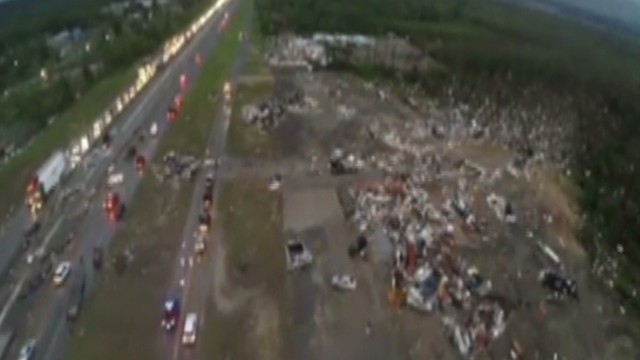 Tornadoes slam several states; multiple deaths reported Tornadoes slam several states; multiple deaths reported
Mayflower, Arkansas (CNN) -- A brutal band of severe weather battered the central Plains and mid-South late Sunday, killing at least 11 people in Arkansas and Oklahoma.
Some of the worst damage was north of Little Rock, Arkansas, where reported tornadoes devastated the towns of Mayflower and Vilonia.
Emergency officials confirmed 10 fatalities in the state.
"It's chaos here," said Vilonia Mayor James Firestone. "Our downtown area seems like it's completely leveled."
The nightmare is all too familiar for the community of about 3,800 people. Another storm ransacked the town almost three years ago to the day and followed essentially the same path, the mayor said.
"There's a few buildings partially standing, but the amount of damage is tremendous," Firestone said Sunday. "There's gas lines spewing, of course, power lines down. Houses are just a pile of brick."
A subdivision has been leveled, he said.
In Mayflower, authorities shut down Interstate 40 as search and rescue teams combed the area.
Emergency crews tended to crushed and overturned semi-trucks and passenger vehicles along the roadway.
As the storm unfolded, the National Weather Service's Little Rock office tweeted a series of messages warning of tornadoes, reporting damage and telling residents to take cover.
A tornado crossing I-40 "was reported to be as much as a half-mile wide," the weather service said.
It caused extensive damage in the town of 1,600.
Video from CNN affiliate KARK showed widespread damage across the community. Emergency workers tended to the scene. Shelters have been set up at the high school and a local church.
The city's official website said schools would be closed on Monday.
CNN meteorologist Chad Myers, who is in Mayflower, estimated the winds from the storm at 130-150 mph.
Six deaths were reported in Faulkner County, where Mayflower and Vilonia are located, the Arkansas Department of Emergency Management said. The agency confirmed three additional deaths in Pulaski County and another death in White County.
Earlier, witnesses spotted a twister in the Oklahoma town of Quapaw, where one person died, according to the Ottawa County Sheriff's Office
Joe Dan Morgan, the county's emergency manager, said ambulances had deployed after reports of a funnel cloud on the ground in Quapaw, and rescuers were working in an area where a concrete wall crashed onto a car. There were other reports of damage in the community.
"Search and rescue is under way involving several agencies," county emergency dispatcher Kelly Flecks said. "Please tell the public to stay away so they can do their jobs. We can't confirm anything else at the moment."
Quapaw is in the northeastern part of the state, near the border with Kansas and Missouri.
The same line of storms appeared to hit Baxter Spring, Kansas, just a few miles to the north.
"Sixty to 70 homes and 20 to 5 businesses are reported destroyed," according to Cherokee County emergency manager Jason Allison, who said a tornado estimated to be three blocks wide rumbled through the town of 4,200.
Search and rescue efforts are underway, Allison said.
Storm chasers and witnesses posted images of twisters in several states on social media.
Mike Smith from TeamBCX shared a picture of white funnel cloud spinning against a dark sky near a field in Baxter Springs.
Another posted video clearly shows a funnel cloud in the Baxter Springs-Quapaw area.
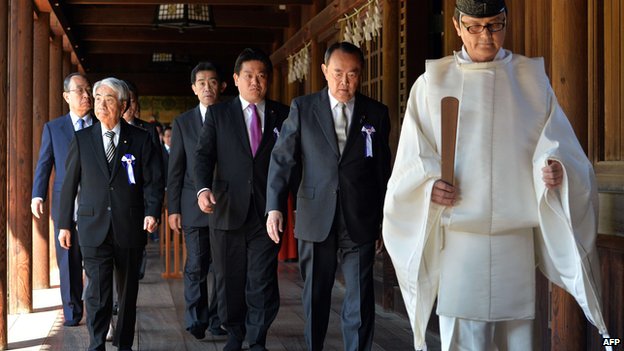 Japanese lawmakers visit Yasukuni Shrine Japanese lawmakers visit Yasukuni Shrine
Almost 150 Japanese lawmakers have visited the Yasukuni Shrine, in a move likely to further sour ties with regional neighbours.The controversial shrine commemorates Japan's war dead, including convicted war criminals from World War Two.
The visit, marking a spring festival, comes a day before US President Barack Obama arrives in Tokyo.
It also comes amid strained relations between Japan and its neighbours over geopolitical and historical tensions.
Prime Minister Shinzo Abe was not among those who visited the shrine, but he sent a traditional offering on Monday.
'Negative asset'
The Chinese foreign ministry denounced Mr Abe's offering as a "negative asset for Japan", saying that both it and visits by Japanese cabinet ministers reflected "the erroneous attitude towards history adopted by Japan's incumbent cabinet".
South Korea's foreign ministry said that Mr Abe had "romanticised Japanese colonialism and its war of aggression" by paying tribute to the shrine.
Japanese officials visit the shrine during seasonal festivals and on the anniversary of Japan's surrender in World War II.
Japanese lawmaker Hidehisa Otsuji told the Associated Press news agency that he visited the shrine "with a calm mind" and that there was "no further meaning" to the visit. "I have been visiting here for decades," he said.
Internal Affairs and Communications Minister Yoshitaka Shindo, meanwhile, said: "As this visit was my own personal visit, I don't believe that it will have any effect on the US president's visit."
Anything related to the Yasukuni Shrine will always be highly political, however, reports the BBC's Rupert Wingfield-Hayes in Tokyo.
China and South Korea view the shrine as a symbol of Japan's wartime aggression and have accused Tokyo of failing to show the necessary remorse for wartime atrocities.
When Mr Abe visited the shrine on 26 December 2013, the US embassy in Tokyo expressed disappointment and said Mr Abe's actions would "exacerbate tensions" with neighbours.
Washington has also been trying to get Japan and South Korea to set aside their differences and work more closely together, both on North Korea and in terms of counter-balancing China's growing power in the region.
Cargo ship dispute
Ties between China and Japan meanwhile, remain severely strained, over historical tensions and a territorial dispute in the East China Sea.
In a move that heightened concern, the Shanghai Maritime Court said on Saturday that it had seized a Japanese cargo ship because of an unpaid pre-war debt.
Tokyo lodged a formal protest on Tuesday, saying it remained "deeply worried" about the ongoing situation.
"We have told the Chinese side through diplomatic channels that we regret its seizure of the vessel," Chief Cabinet Secretary Yoshihide Suga told reporters. "We demand China take appropriate measures."
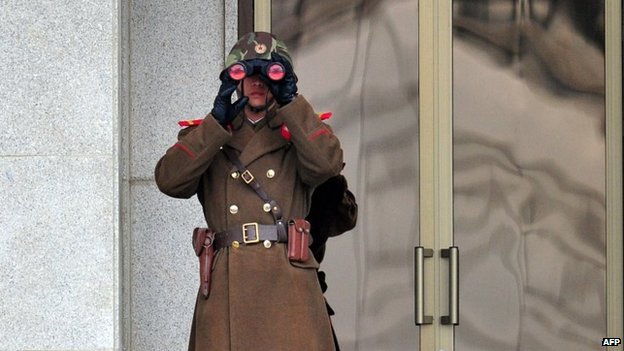 'More activity' at North Korea nuclear test site 'More activity' at North Korea nuclear test site
Activity has increased at North Korea's nuclear test site, South Korea says, ahead of a visit by US President Barack Obama to the region.
The military was "currently detecting a lot of activity in and around the Punggye-ri nuclear test site", a South Korean defence ministry spokesman said.
North Korea could be planning to hold a "surprise nuclear test or just pretend to stage a nuclear test", he said.
North Korea has carried out three nuclear tests in the past.
Its most recent test was in February 2013 - an incident that triggered several months of severe tension on the Korean peninsula.
It also carried out tests in 2006 and 2009.
All of the tests - which were signposted well in advance - resulted in the imposition of UN sanctions on Pyongyang.
South Korea's Joint Chiefs of Staff on Monday set up a special task force to monitor the situation, the spokesman said.
Multinational talks aimed at ending North Korea's nuclear ambitions have been stalled for years.
Late last month, North Korea threatened to carry out a "new form" of nuclear test. It is not clear what that means.
While Pyongyang has tested devices, it is not yet believed to have mastered the process of making a nuclear warhead small enough to deliver via a missile.
Mr Obama is due to arrive in South Korea on Friday, after a three-day visit to Japan.
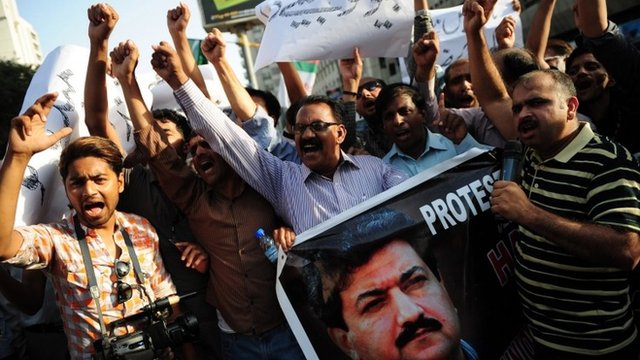 Hamid Mir shooting: Pakistan's Geo TV calls for inquiry Hamid Mir shooting: Pakistan's Geo TV calls for inquiry
Pakistan's largest private news channel, Geo TV, has called for a robust investigation into the assassination attempt on one of its leading talk show hosts, Hamid Mir.
Mr Mir was shot and wounded on Saturday in a gun attack his family alleges was orchestrated by Pakistan's main intelligence agency, the ISI. The Pakistani army has denied the charges as misleading.
In a BBC interview, the President of Geo TV, Imran Aslam, said the alleged role of the ISI in targeting journalists needs to be probed and debated openly.
He was speaking to the BBC's Shahzeb Jillani in Karachi.
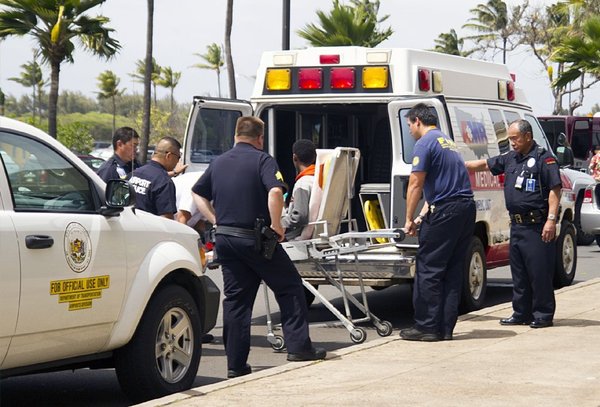 Security experts are troubled by stowaway aboard Hawaii flight Security experts are troubled by stowaway aboard Hawaii flight
The dark of night still draped Mineta San Jose International Airport when a 15-year-old boy from nearby Santa Clara wandered onto a secure airport ramp and toward a Hawaiian Airlines Boeing 767.
Then he disappeared.
The slight teenager, first seen on a security camera video, would not appear again until later Sunday morning, when airline workers spotted him 2,350 miles to the west, walking on the tarmac at Kahului Airport on the island of Maui.
In the interim, authorities say, the boy survived a perilous, 5 1/2 -hour odyssey — enduring frigid temperatures, oxygen deprivation and a compartment unfit for human habitation — as he traveled over the Pacific Ocean in the jet's wheel well.
The incident prompted authorities to question both how the teen so easily gained access to the jumbo jet and how he survived with so little apparent trauma.
Aviation security experts said it was troubling that the teenage had been able to bypass security and get to the plane undetected. U.S. Rep. Eric Swalwell (D-Dublin), a member of the House Homeland Security Committee, said he wanted more answers, adding that the incident "demonstrates vulnerabilities that need to be addressed."
The Transportation Security Administration planned to meet with law enforcement and airport officials to review security after the incident, which experts noted could have been catastrophic had the stowaway been armed with explosives.
Since the terrorist attacks of Sept. 11, 2001, an estimated $57 billion has been spent on airport security improvements, including new passenger screening measures and additional security both in airports and on airplanes.
Brian Jenkins, an aviation security expert at Rand Corp., said he expected the incident to prompt airport security reviews beyond San Jose. "Everyone will tighten up. I suspect everyone will be going up a notch just as a consequence of this," he said.
The airport, which serves Silicon Valley, is located on the north side of San Jose, near the junction of the 101 and 880 freeways. A chain-link fence covered with wood slats and topped with three strands of razor wire surround parts of the airport. San Jose is the 44th largest airport in the nation, according to an Federal Aviation Administration report, with about 8 million passengers a year.
It remains unclear how the teen got onto the tarmac. The FBI originally said video showed him scaling a fence. But late Monday, airport officials only mentioned a video that showed him walking on the ramp.
Authorities said the teenager apparently had no malicious intent. The flight, carrying 212 passengers and 10 crew members, took off at 7:55 a.m. Sunday.
Shortly after the plane landed at 10:31 a.m., airline workers spotted the stowaway and reported him to airport security. A Maui News photo showed him some time later sitting upright on a gurney, attended by paramedics, apparently alert and showing no obvious signs of his ordeal. He wore a sweat shirt with an orange hood.
Authorities said the temperature at the jet's cruising altitude of 38,000 feet could have dropped to 50 degrees below zero or less. Oxygen would have also been in painfully short supply at that altitude, about 9,000 feet higher than the summit of Mt. Everest.
FBI spokesman Tom Simon said the boy apparently had been unconscious for the "lion's share of the flight."
Such ordeals do not usually end well. Those who do not fall to their death can be crushed by landing gear or succumb to cold and lack of oxygen. FAA records show that of the 105 people who stowed away on flights around the world over the last 67 years, 25 lived through the ordeal, a survival rate of 23.8%.
"He must have had the four-leaf clover in his hand or something," said Jeff Price, an aviation security expert at Metropolitan State University in Denver.
Armand Dorian, a Los Angeles doctor who treated a high-altitude stowaway survivor in 2000, said the teen's survival over the weekend was not as surprising as the fact that he appeared unruffled.
For the minority of stowaways who survive, "the planets align," said Dorian, an associate clinical professor of emergency medicine at USC Verdugo Hills Hospital. For the lucky few, "the need for oxygen declines as the body cools. It's exactly like the concept of cryogenic freezing.... The boy's body went into a frozen state."
When Dorian treated another wheel-well stowaway in 2000, the patient suffered much more obvious trauma. That victim, in his 20s, crumpled on to the tarmac at Los Angeles International Airport after a 7 1/2 hour flight from Tahiti. His body core temperature had dropped to 79 degrees, which would normally be fatal, according to accounts at the time.
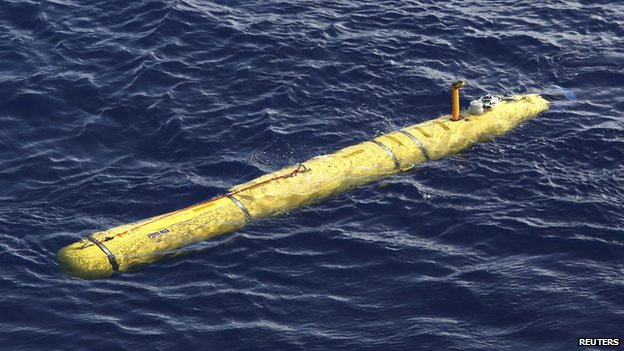 Malaysia MH370: No trace yet after two-thirds of sub's scan Malaysia MH370: No trace yet after two-thirds of sub's scan
A submarine scanning the ocean floor for signs of a missing Malaysian airliner is two-thirds of the way through its search but has yet to find the plane, officials say.
The Bluefin-21 submarine was to embark on its ninth search mission on Monday.
Malaysia Airlines flight MH370 went missing in March as it flew from Kuala Lumpur to Beijing carrying 239 people.
On Monday another Malaysia Airlines flight was forced to land after one of its tyres burst on take-off.
Sonar map
Up to 10 military aircraft and 11 ships were to take part in Monday's search for MH370, Australia's Joint Agency Coordination Centre (JACC) said in a statement.
JACC said that the Bluefin submarine was searching a circular area with a 10km (six miles) radius where underwater signals were detected earlier this month.
The Bluefin-21, operated by the US Navy off the Australian vessel Ocean Shield, is an autonomous underwater vehicle (AUV) that can identify objects by creating a sonar map of the sea floor.
So far the submarine had scanned two-thirds of the area with "no contacts of interest", JACC said.
It is operating at a depth of more than 4,000m (13,000 feet).
Planes and ships will continue to scan the ocean for visible debris in an area spanning almost 50,000 sq km (20,000 sq miles), JACC said.
Authorities warned that weather conditions in the search area were deteriorating as tropical cyclone Jack approached.
Tyre burst
In a separate incident, it has emerged that a Malaysia Airlines flight from Kuala Lumpur to Bangalore, India, was forced to turn back after one of its tyres burst.
The plane circled Kuala Lumpur for four hours to burn off fuel before landing.
The plane was carrying 159 passengers and seven crew members. There were no reported injuries.
The airline initially said the landing gear of the Boeing 737-800 had "malfunctioned upon take-off", but later said that a burst tyre was at fault.
It follows another incident in March when a Malaysia Airlines flight to Seoul was diverted to Hong Kong because of an electrical fault.
The incidents will increase scrutiny of Malaysia Airlines, which is facing heavy criticism by families of those on board flight MH370 for its handling of the disappearance.
Authorities still do not know why the plane flew so far off course and finding the plane's flight recorders is seen as key to understanding what happened.
Using satellite data, officials have concluded that MH370 ended its journey in seas west of the Australian city of Perth.
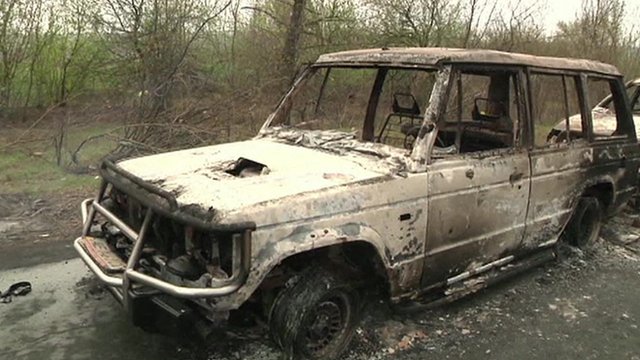 Ukraine conflict: Fatal Sloviansk attack to be investigated Ukraine conflict: Fatal Sloviansk attack to be investigated
Ukraine says it will launch an investigation into a fatal shooting in the east of the country which has raised tension with Russia further.
At least three people died in the raid on a checkpoint manned by pro-Russian separatists near the town of Sloviansk.
The incident came as pro-Russian groups continued to occupy government buildings, defying a deal to leave.
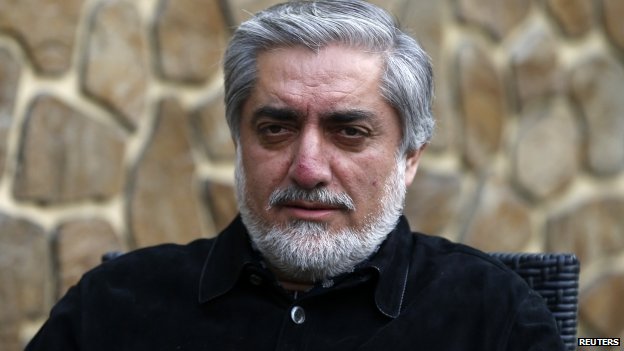 50% of votes counted in Afganistan poll, Abdullah extends lead 50% of votes counted in Afganistan poll, Abdullah extends lead
KABUL: New partial results in Afghanistan's presidential election released on Sunday show candidate Abdullah Abdullah is still the frontrunner, though a runoff election looks likely.
The winner will replace Hamid Karzai, the only president the country has known since the 2001 US-led invasion ousted the Taliban, and will oversee a tumultuous period during which the US and Nato forces are expected to withdraw most of their troops from the country. Both Abdullah, and his closest competitor, Ashraf Ghani Ahmadzai, have promised a fresh start with the West and have vowed to sign a security pact with the US that Karzai had refused to sign.
The chairman of Afghanistan's Independent Election Commission, Ahmad Yousuf Nouristani, announced the results on Sunday. They represent about half of the estimated 7 million ballots cast in the April 5 poll, though varying levels of votes have been counted in the country's 34 provinces.
Abdullah, Karzai's top rival in the country's last election, has 44% of the votes tallied. Ghani, a former finance minister and World Bank official, has received 33.2% of the total votes. Abdullah said he still thinks it's possible for him to avoid a run-off altogether but said he was ready for a second round. "For us, we will accept the outcome of a fair and transparent process. Anything short of that will be problematic," he said.
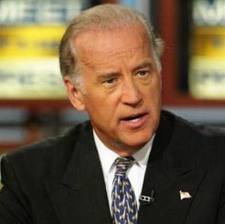 US Vice-President Joe Biden heads to Ukraine after violence erupts US Vice-President Joe Biden heads to Ukraine after violence erupts
WASHINGTON: US Vice-President Joe Biden is heading to Ukraine to meet with leaders of the turbulent country.
Biden's visit comes a day after violence erupted in eastern Ukraine, despite an agreement last week aimed at easing tensions. A shootout at a checkpoint manned by pro-Russia insurgents left at least three dead and Ukrainian and Russian officials trading accusations of blame.
Biden expects to arrive on Monday in Kiev. On Tuesday he plans to meet with the acting Ukrainian prime minister and president. He also is scheduled to meet with legislators and democracy activists before returning to Washington on Tuesday night.
Biden's office says discussions will cover international efforts to strengthen Ukraine's economy and energy security and help with constitutional reforms, including next month's presidential election.
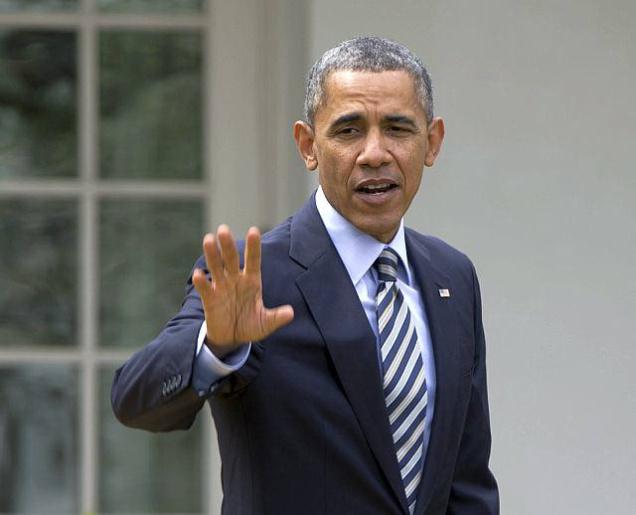 Obama signs law to block Iranian envoy to U.N. Obama signs law to block Iranian envoy to U.N.
President Barack Obama signed a law Friday that allows Washington to deny visas to anyone — including United Nations envoys — who has engaged in terrorist acts against the United States.
Under the law, which passed Congress on April 10, the US already notified the UN that it would not issue a visa to Iran’s designated ambassador to the New York-based world body.
Hamid Abutalebi was a member of an Iranian student group that seized the US embassy in 1979 in Tehran and held 52 US citizens hostage for 444 days. He is effectively prevented from becoming Iran’s ambassador to the UN.
Tehran has already said it will not name a substitute.
As UN host country, the US is normally obligated to issue visas to foreign diplomats and heads of state attending the annual General Assembly, no matter how antagonistic their government’s relations with Washington.
There was no immediate reaction Friday from the United Nations.
The new US law adds language to the Foreign Relations Authorization Act giving the president specific authority to reject UN-connected visas.
In signing the measure, Obama said Friday that he would treat it “as advisory in circumstances in which it would interfere” with his exercise of presidential discretion in diplomacy and foreign affairs, in which the US Constitution gives the executive branch wide powers, according to a White House statement.
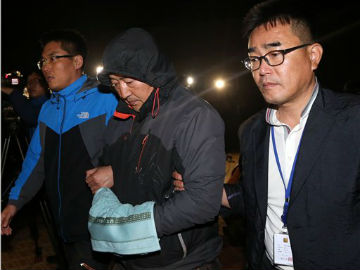 South Korean ferry captain says evacuation delayed for safety South Korean ferry captain says evacuation delayed for safety
JINDO: The arrested captain of the South Korean ferry that capsized with 476 people on board said on Saturday he had delayed evacuating the ship because of the sea conditions and the absence of rescue ships.
Lee Joon-Seok and two of his crew were taken into police custody in the early hours of the morning, charged with negligence and failing to secure the safety of passengers in violation of maritime law.
During his police arraignment, during which he stood, head bowed, in a hooded raincoat, Lee was asked by TV reporters why passengers had been ordered to remain in their seats and cabins for more than 40 minutes after the ferry first sent a distress signal just before 9:00am on Wednesday.
"At the time a rescue ship had not arrived. There were also no fishing boats around there for rescues or other ships to help," Lee said.
"The currents were very strong and water was cold at that time in the area.
"I thought that passengers would be swept far away and fall into trouble if they evacuated thoughtlessly without wearing lifejackets.
"It would have been the same even if they did wear lifejackets," he said.
Furious relatives of the hundreds of passengers still missing — most of them schoolchildren — believe many more would have escaped if they had moved to reach evacuation points before the ship listed sharply and water started flooding in.
Twenty-nine people have been confirmed dead in the disaster, but 273 are still missing.
Lee, 69, confirmed statements on Friday by investigative prosecutors that he was not at the helm of the ferry when it first ran into trouble.
"It happened as I was coming back after a quick visit to the bedroom for personal reasons," he said, denying any suggesting that he had been intoxicated.
"I did not drink," he said. His comments offered no fresh insight into the chain of events that caused the 6,825-tonne Sewol to sink.
Tracking data from the Maritime Ministry showed the vessel made a sharp turn just before sending its first distress signal.
Some experts believe a tight turn could have dislodged the heavy cargo manifest — including more than 150 vehicles — and destabilised the vessel, causing it to list heavily and then capsize.
But others suggested the turn might have been caused by a collision with a rock or other submerged object.
Investigators said the third officer was steering when the accident happened.
Lee acknowledged the charges brought against him and apologised to the victims of the disaster and their relatives.
"I sincerely apologise to people and the bereaved families for stirring up trouble," he said.
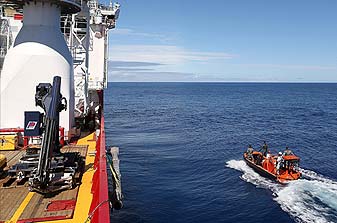 Drone diving to record level in MH370 search Drone diving to record level in MH370 search
A US Navy deep-sea drone is diving to unprecedented depths to scour a remote stretch of the Indian Ocean floor for a missing Malaysian jetliner as the Malaysian government said it may use more remote control submarines to help with the search.
The Bluefin-21 and its "side scan" sonar has become the focal point of the search 2,000 km (1,200 miles) west of the Australian city of Perth, where authorities believe Malaysia Airlines Flight MH370 hit the ocean after disappearing from radars on March 8 with 239 people on board.
Now in its seventh week, the search has centred on a city-sized area where a series of "pings" led authorities to believe the plane's black box may be located. But after almost two weeks without a signal, and long past the black box battery's 30-day life expectancy, authorities have turned to the Bluefin-21.
After the $4 million Bluefin-21's searches were frustrated by an automatic safety mechanism which returns it to the surface when it exceeds a depth of 4.5 km (14,763 feet), authorities have adjusted the mechanism and have sent it as deep as 4,695 metres (15,403 feet), a record.
But hopes that the Bluefin might soon guide searchers to wreckage are dwindling with no sign of the plane after six deployments spanning 133 square kilometres (83 square miles). Footage from the Bluefin's sixth mission was still being analysed, the Joint Agency Coordination Centre said on Saturday.
Malaysian acting Transport Minister Datuk Seri Hishammuddin Hussein said in a Twitter post that the government's Deployment of Assets Committee was considering using more autonomous underwater vehicles. He did not elaborate.
On Monday, the search coordinator, retired Air Chief Marshal Angus Houston, said the air and surface search for debris would likely end by midweek as the operation shifted its focus to the ocean floor.
But the air and surface searches have continued daily, and on Saturday the Joint Agency Coordination Centre said up to 11 military aircraft and 12 ships would help with the day's search covering about 50,200 square kilometres (31,000 square miles) across three areas.
 Mexico earthquake causes panic but little damage in the capital Mexico earthquake causes panic but little damage in the capital
MEXICO CITY — A powerful earthquake shook a wide area of Mexico on Friday, terrifying residents and sending many fleeing into the streets.
There were no initial reports of serious injuries or major damage in the capital.
The U.S. Geological Survey said the quake, which occurred about 9:30 a.m., had a preliminary magnitude of 7.2, which would make it one of the stronger temblors registered in Mexico City in several years. It was 14 miles deep and was felt in nine of Mexico's 31 states, in addition to the capital, according to the agency, with the epicenter in the coastal state of Guerrero about 200 miles southwest of the capital.
In Mexico City, buildings, statues and lampposts swayed and windows shattered during the quake, which lasted nearly a full minute. Civil protection authorities said at least 48 buildings had new cracks and that 15 retaining walls had collapsed.
Some residents fled their houses barefoot and carrying pillows. The quake temporarily knocked out electricity, traffic lights and cellphone service in some parts of the capital.
Mexico City Mayor Miguel Angel Mancera, who was at a Good Friday news conference when the quake hit, later flew over the city in a helicopter to inspect the damage. He urged residents to remain calm and brace for aftershocks.
"The important part is that we have no reports of injured people," he told reporters. "We did see that many buildings were evacuated of their people, and we are continuing to survey the capital."
Ricardo de la Cruz, civil protection chief for the Interior Ministry, said, "We have only gotten reports of minor damage."
Good Friday is an important holiday in largely Roman Catholic Mexico, and most businesses were closed and people were home or attending religious services. The elaborate, annual reenactment of the Passion of Christ in the capital's congested Iztapalapa neighborhood went ahead on schedule, and life seemed to be quickly returning to normal.
However, Guerrero, where the Mexican seismological service placed the epicenter south of Petatlan between Acapulco and Zihuatanejo, is a heavily seismic region and is often slow to report damage because of the remoteness of some communities. A 7.4 temblor there in 2012 killed two people and damaged thousands of buildings.
Guerrero Gov. Angel Aguirre tweeted that so far he had received reports only of "minor and isolated" damage.
A bridge on the highway between Acapulco and Zihuatanejo, crowded with holiday tourists, cracked and traffic was halted.
Luis Felipe Puente, another civil protection official, said a tsunami warning for the Pacific Coast was not necessary because waves had risen by only about 15 inches. Still, Guerrero urged tourists to take precautions on the beaches, which are traditionally packed this time of year.
In Mexico City, Puente said, authorities had checked the subway, hospitals and the international airport, and all were operating normally.
Much of Mexico City was destroyed and more than 10,000 people were killed in a magnitude 8.1 earthquake in 1985, but officials say they have put more safeguards into place since then.
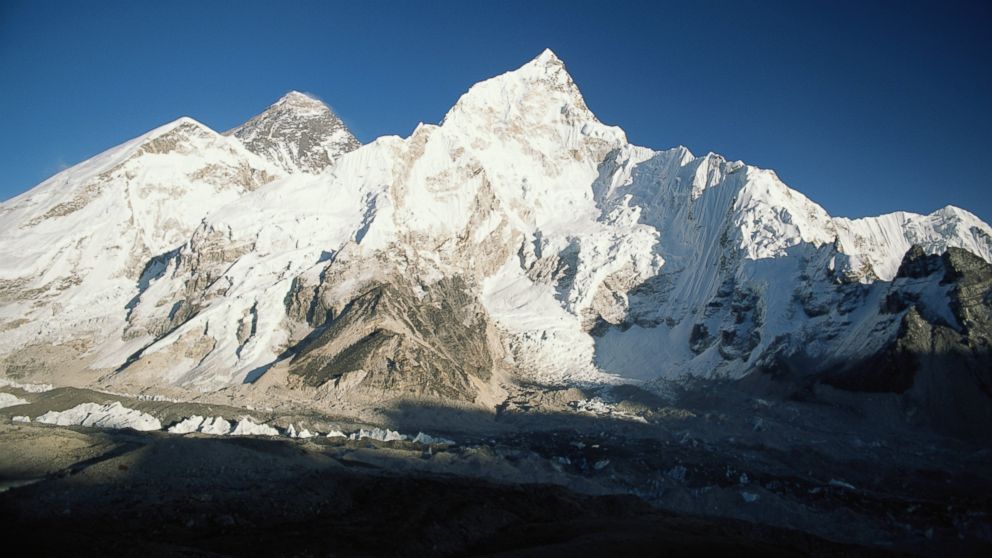 Everest disaster: avalanche kills six, nine are missing Everest disaster: avalanche kills six, nine are missing
SIX Nepalese guides have been killed and nine more are missing after an avalanche swept a route used to ascend Everest, says a tourism official.
Nepal Tourism Ministry official Krishna Lamsal says the avalanche hit just below camp 2 on the world’s highest peak around 6.30am local time today.
He says four bodies have been recovered and rescuers are digging two more out of the snow.
Nine other Sherpa guides are still unaccounted for and are believed to be buried in the snow.
All those killed and missing had gone early in the morning to the area to fix the ropes for climbers along the route to the 8,850-metre summit.
Earlier, Ang Tshering of the Nepal Mountaineering Association, said the area where the avalanche occurred is nicknamed the “popcorn field’’, which is just below camp 2 at 6400 metres.
Hundreds of climbers, their guides and support guides have gathered at Everest’s base camp, gearing up for their final attempt to scale the 8,850-metre peak early next month when weather conditions are favourable.
Guides and climbers have been setting up their camps at higher altitudes as well as fixing routes and ropes on the slopes ahead of the final ascent to the summit in May.
Nepal this year announced several steps to better manage the flow of climbers, minimise congestion and speed up rescue operations. The preparations included the dispatch of officials and security personnel to the base camp located at 5300 metres, where they would stay throughout the spring climbing season that ends in May.
 Gunmen kill 20 in attack on South Sudan UN base Gunmen kill 20 in attack on South Sudan UN base
JUBA: At least 20 people were killed and another 70 injured by gunmen posing as peaceful protestors who stormed a UN base in South Sudan, the US ambassador to the world body said.
Samantha Power strongly condemned Thursday's "brazen, inhuman attack on unarmed civilians" where 5,000 people are sheltering inside the base of the United Nations Mission in South Sudan (UNMISS), in the war-ravaged town of Bor.
The attackers used rocket-propelled grenades to breach the compound then fired on those sheltering inside, in one of the most bitterly contested regions in the four-month-long conflict splitting the country.
Initial reports suggested that people inside the compound had been injured but Power said there had been many deaths.
She called the latest attack "particularly egregious," noting that the heavily armed group of attackers used rocket-propelled grenades to breach the compound and fire on the internally displaced persons there.
"This latest outrage against the people of South Sudan is an affront to the international community and violates fundamental principles of civilian protection," Power said, adding that UNMISS sites should be considered "inviolable".
The United States, she said, will collaborate with its allies to determine who was responsible for the "horrific attack" and bring its perpetrators to justice.
Power also urged countries that have committed additional forces to UNMISS to speed up their deployment.
"The people of South Sudan deserve the opportunity to begin rebuilding their country, and to develop the national and local institutions they need to put South Sudan back on a path toward stability and democracy," she added.
Earlier, the attack was condemned by UN chief Ban Ki-moon. His spokesman Stephane Dujarric said it was a "serious escalation" in the crisis, ripping apart the world's youngest country.
"The Secretary-General reminds all parties that any attack on United Nations Peacekeepers is unacceptable and constitutes a war crime," he added.
UNMISS said in a statement that "the armed mob forced entry into the site and opened fire on the internally displaced persons sheltering inside the base".
Its forces returned fire -- first firing warning shots and then taking part in a ferocious gun battle -- before the fighters retreated, it added.
The civilians had fled into the base weeks ago amid brutal ethnic massacres in the world's newest nation.
Information Minister Michael Makuei said that a "huge number" of gunmen had come seeking revenge for the rebel capture of the oil town of Bentiu two days ago hoping to kill the trapped civilians, many of them children.
The conflict in South Sudan has left thousands dead and forced around a million people to flee their homes since fighting broke out on December 15 in the capital Juba before spreading to other states in the oil-rich nation.
Bor, the capital of Jonglei state, has swapped hands several times during the conflict.
The latest clashes in Bor echo an attack by gunmen in December on a UN base in Akobo, also in Jonglei, killing at least 11 civilians and two Indian UN peacekeepers.
More than 67,000 civilians across the country are sheltering inside UN bases for protection from ethnic attacks, with heavy fighting ongoing as the rebels say they are targeting key oil fields.
Information Minister Makuei insisted all oil fields were under government control, but that production had stalled in Unity -- a key oil zone -- as facilities were damaged in fighting.
UN peacekeepers reported dozens of corpses littering the streets of Bentiu, the state capital of Unity, which rebels had previously seized in December at the beginning of the conflict.
The fighting is between soldiers loyal to President Salva Kiir and mutinous troops who have sided with his former vice president Machar, whom Kiir sacked in 2013.
The conflict has taken on an ethnic dimension, pitting Kiir's Dinka tribe against militia forces from Machar's Nuer.
Ban has warned that more than one million people are at risk of famine in the troubled country.
More than 3.7 million people are in dire need of food aid, many of them being forced to eat "famine foods" such as grasses and leaves, UN children's agency UNICEF said Thursday.
"Worse is yet to come," said UNICEF chief in South Sudan Jonathan Veitch in a statement.
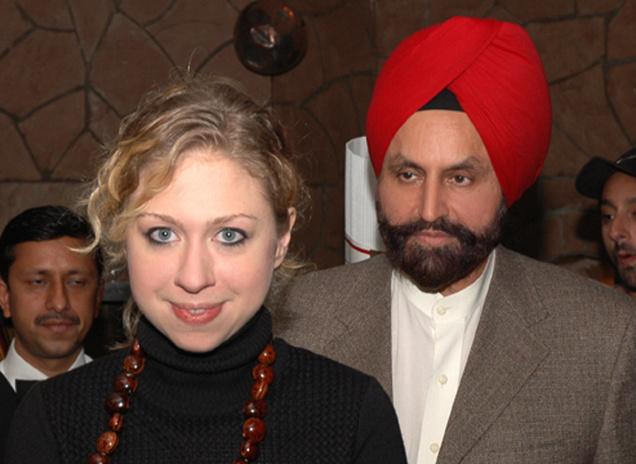 Hotelier Chatwal pleads guilty to election finance violations Hotelier Chatwal pleads guilty to election finance violations
Even when your best friends are Bill and Hillary Clinton, you cannot escape the net of a high-profile FBI investigation.
This would appear to be the key lesson learnt by Sant Singh Chatwal, the wealthy hotel magnate who on Thursday pleaded guilty to conspiring to violate the Federal Election Campaign Act by making more than $180,000 in federal campaign donations to three candidates through “straw donors” who were reimbursed, and to witness tampering.
In doing so Mr. Chatwal, who has often been described as a “bundler,” or large-scale campaign finance contributor to Hillary Clinton’s 2008 presidential campaign among others, flouted spending limits aimed at limiting financial influence in federal elections and to ensure transparency as to the identity of donors.
As part of the plea bargain Mr. Chatwal has struck with federal authorities here he has also agreed to “forfeit” $1 million.
Mr. Chatwal, who made his name in the restaurant industry for founding the Bombay Palace restaurant chain and then achieved notoriety in the 1990s for being pursued by U.S. and Indian authorities for unpaid taxes linked to high-end real estate, apparently “used his employees, business associates, and contractors who performed work on his hotels to solicit campaign contributions on Mr. Chatwal’s behalf in support of various candidates for federal office and PACs, collect these contributions, and pay reimbursements for these contributions.”
A second component of the scheme that Mr. Chatwal allegedly ran saw him and his agents at Chatwal Associates induce straw donors, or false donors masking real donations from Mr. Chatwal, to make approximately $188,000 in campaign contributions to three candidates for “federal office,” while he often arranged for them to be reimbursed with his own funds or those of one of Mr. Chatwal’s companies.
While Mr. Chatwal ran this “scheme… to subvert the very purpose of the Election Act,” between 2007 and 2011, U.S. federal authorities began to close the noose around his operations by 2010, when an “informant” supplied law enforcement with a recorded conversation that he had with Mr. Chatwal.
In that discussion, the U.S. Department of Justice explained, Mr. Chatwal underscored his view as to the importance of political campaign contributions, stating that without campaign contributions, “nobody will even talk to you…That’s the only way to buy them, get into the system… What, what else is there? That’s the only thing.”
Similarly there appears to be recorded conversations indicating that Mr. Chatwal “sought to obstruct the grand jury investigation into his Election Act scheme by tampering with a witness, a person whose business performed construction work for Chatwal and Chatwal’s companies and who had recruited straw donors at Chatwal’s direction.”
In a June 2012 recorded conversation, Mr. Chatwal reportedly told this individual that if FBI and IRS agents approached him or his family, they should not speak with the agents and should instead refer them to a lawyer that Mr. Chatwal would provide.
In a July 2012 recorded conversation, Mr. Chatwal was then said to have directed the same individual to “lie to agents about the Election Act scheme,” adding that he would pay for the individual’s legal fees in connection with the investigation and offered to conceal the money within a payment for work the individual’s company had performed for Mr. Chatwal.
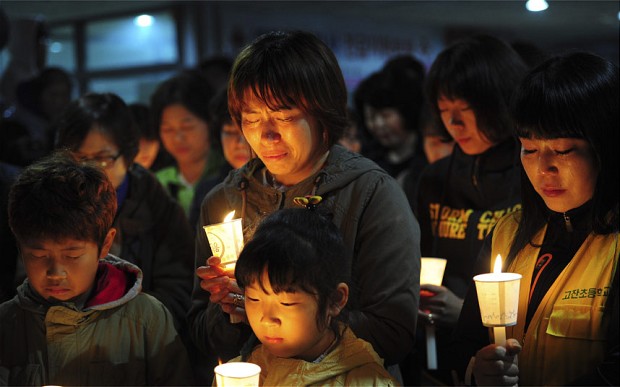 South Korea ferry disaster: parents' anguish as rescue operation halted South Korea ferry disaster: parents' anguish as rescue operation halted
Parents of missing children on board a capsized South Korean ferry cling to hope their children remain alive after bad weather prevents divers from entering the ship.
The parents stood vigil on the jetty, wrapped in disposable plastic cagoules, clinging to hope as the wind and rain swirled around them.
Twelve miles away, their 250 teenage children were underwater, trapped inside the Sewol, the 7,000-ton South Korean ferry which was carrying them to a four-day field trip on the holiday island of Jeju when it sank on Wednesday morning.
The 69-year-old Captain Lee Joon-seok was facing uncomfortable questions at the investigation headquarters in Mokpo on Thursday night about why he had been among the first to evacuate from the sinking ship, leaving his post while high-school students were drowning beneath him.
The situation for the parents appeared hopeless. On the second day of the rescue mission, visibility underwater was less than a foot and vicious currents stopped navy divers from even entering the submerged hull of the ship, the coastguard said. All efforts were abandoned in the early afternoon.
"There are 160 divers from the special forces but the current is so strong that they are being swept away when they enter the water," said Kim Dohyun, a 52-year-old veteran of the Korean Special Forces who was acting as a liaison with the parents.
"Right now, the teams are tapping on the outside of the ship with hammers to listen for any survivors inside. When they can go in, only two divers at a time can fit because the corridors are so narrow," he added.
For officials, the goal now is to raise the ferry and three huge cranes are expected to reach the site, off the southernmost tip of the Korean peninsula, on Friday.
But many anguished parents continued to cling to the hope that their children remain alive and lashed out at what they said was official inertia and a government cover-up.
"We have received at least 20 text messages from children on the boat who are still alive," said one 42-year-old mother on the jetty, who gave her name as Mrs Jung.
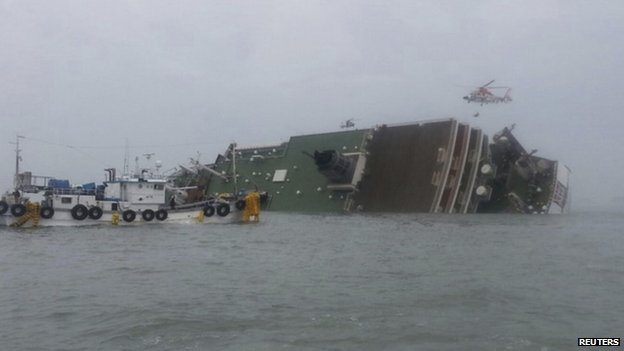 South Korea ferry rescue under way South Korea ferry rescue under way
Two people have died and more than 100 remain unaccounted for after a ferry carrying 476 people capsized and sank off South Korea.
So far, 368 people have been rescued, local reports say.
A major rescue operation is under way, involving 34 naval, coastguard and civilian ships, and 18 helicopters.
The ferry, carrying mainly school students, was travelling from the port of Incheon, in the north-west, to the southern resort island of Jeju.
Images showed the ferry listing at a severe angle and then later largely submerged, with only a small part of its hull visible.
Cause unclear
Balanced on the sinking hull, rescue teams pulled the teenagers from cabin windows. Some of their classmates jumped into the sea as the ship went down.
South Korean President Park Geun-hye had ordered coast guard commandos to search the ship so that no-one was left behind, Yonhap news agency reported. Navy divers were also reportedly on scene.
One body, of a female crew member, had been recovered from the ship, the coastguard said. Another person is reported to have died after being rescued.
It is not yet clear what caused the incident, but witnesses described hearing an impact, before the ship listed and quickly sank.
One passenger told the YTN news channel: "We heard a big thumping sound and the boat stopped.
"The boat is tilting and we have to hold on to something to stay seated," the passenger said.
Another passenger said the ship was "shaking and tilting", with people tripping and bumping into each other.
News agencies said the ferry had sent out a distress signal about 20km (12 miles) off the island of Byungpoong at about 09:00 local time (00:00 GMT).
Angry parents have gathered at the school in Incheon to demand answers, reports the BBC's Lucy Williamson in Seoul.
Earlier reports put the number of passengers on the ferry at about 350. The vessel is reported to have a capacity of up to 900 people.
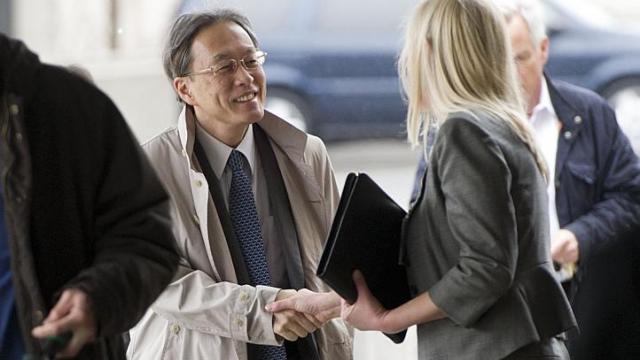 Japan official heads to Seoul for 'comfort women' talks Japan official heads to Seoul for 'comfort women' talks
Tokyo: A senior Japanese official left for Seoul on Wednesday to discuss the extremely thorny issue of wartime sex slavery, in a move Tokyo hopes will lead to a diplomatic thaw.
Junichi Ihara, head of the Japanese foreign ministry's Asia and Oceania affairs bureau, is expected to tell his South Korean counterpart that Tokyo is mulling an offer of an official apology and money for the women, Kyodo News said, citing an unnamed government official.
Relations between Tokyo and Seoul are at their lowest ebb in years, mired in emotive disputes linked to Japan's 1910-45 colonial rule over Korea -- particularly its use of so-called "comfort women" from Korea and other Asian nations as sex slaves in wartime brothels.
But as President Barack Obama heads to both Japan and South Korea next week there is renewed impetus for the two key US allies to heal their fractured relationship, despite domestic pressures on both sides not to bend.
The comfort women issue has deeply divided the neighbours -- frustrating Washington at a time of growing regional instability, with China's military build-up snowballing and North Korea warning that it may carry out another nuclear test.
Japan has long maintained that all issues relating to the colonial period were settled under a 1965 bilateral treaty that normalised diplomatic ties with South Korea, and has rejected calls to compensate individuals, including former comfort women.
But Tokyo is now considering fresh measures including a direct apology by its ambassador to South Korea, Koro Bessho, a letter bearing the name of Prime Minister Shinzo Abe and disbursement of Japanese government-funded financial aid, Kyodo said.
Japan would implement the measures after confirming with South Korea that the issue "has been completely settled," so that South Korea will never bring it up again, Kyodo said.
Japan's government made a landmark apology in 1993 to the comfort women, offering money to former sex slaves through the Asian Women's Fund, a private body set up at Tokyo's initiative in 1995 and run until 2007.
Some survivors refused the cash because it did not come directly from the government.
Repeated wavering since the apology among senior right-wing politicians has contributed to a feeling in South Korea that Japan is in denial and is not sufficiently remorseful.
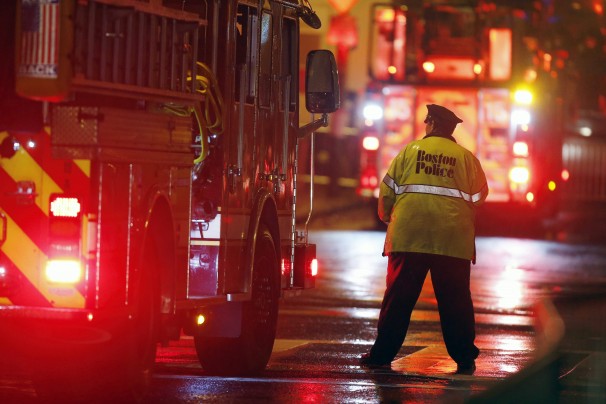 Man arrested for leaving a ‘hoax device’ at Boston Marathon finish line Man arrested for leaving a ‘hoax device’ at Boston Marathon finish line
Two blasts near the Boston Marathon finish line on Tuesday were an eerie reminder of last year’s terror attacks.
A barefoot man wearing a black hat and a black veil toted a backpack down Boylston Street, chanting “Boston strong, Boston strong,” eyewitnesses told The Boston Herald. He left two packs near the site where three people died last year from two rice cooker bombs.
About 9 p.m. the Massachusetts State Police bomb squad detonated one bag, which turned out to be carrying a rice cooker filled with confetti, sources told CBS News. The second bag, destroyed about 40 minutes later, may have contained photo equipment, sources said.
Boston police said the bags were “disrupted for precautionary reasons.”
The suspect was taken into custody and is charged with possession of a hoax device, The Associated Press reported. Police said the man also faces charges of disturbing the peace and disorderly conduct.
A law enforcement official said the suspect, who has been identified by several news outlets as Kevin Edson, 25, will be arraigned Wednesday morning in Boston Municipal Court.
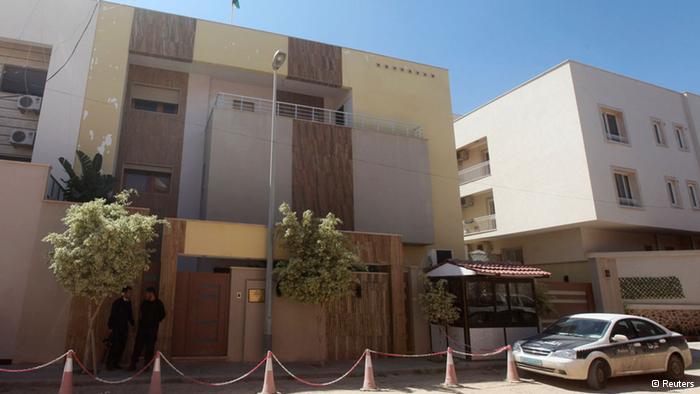 Gunmen kidnap Jordan's ambassador to Libya Gunmen kidnap Jordan's ambassador to Libya
Libyan authorities scrambled on Tuesday to identify the armed assailants behind the kidnapping of Jordan's ambassador, the latest in a string of attacks against foreign diplomats in the lawless North African nation.
"We're trying to understand what the group's conditions are..," said Libyan Foreign Minister Mohamed Abdelaziz. "We have not yet received a formal demand."
Ambassador Fawaz al-Itan was on his way to work in Tripoli on Tuesday morning, when his car was intercepted by masked gunmen. The assailants shot and wounded the Moroccan driver and abducted the ambassador.
The gunmen reportedly left a message on the ambassador's cell phone, which was left behind in his car, in which they demanded the release of Mohamed Dersi. A Libyan Islamist militant, Dersi was sentenced to life in prison for a 2007 plot to blow up Jordan's main airport.
Dangerous precedent
In an address to the Jordanian parliament, Prime Minister Abdullah Ensour said that Amman would take "all necessary measures" to protect the ambassador's life and secure his release.
A senior Jordanian intelligence official, speaking on the condition of anonymity, told the Reuters news agency that releasing Dersi from prison could set a dangerous precedent.
"Jordan has currently locked up some of the top global al Qaeda scholars and jihadists like Mohammad al Makdisi and Abu Qatada," the official said. "A deal over Dersi may encourage other jihadists to follow suit, so, very tricky."
Diplomats targeted
Attacks against foreign diplomats have become a regular occurrence in Libya. Five Egyptian diplomats, a Tunisian diplomat and South Korean trade official have been kidnapped since the beginning of the year.
Last October, two protesters were killed after they attacked the Russian embassy. A car bomb attack wounded two guards outside of the French embassy in April of 2013.
In September of 2012, Islamist militants laid siege to a US consular office in the eastern city of Benghazi, killing US Ambassador Christopher Stevens.
On Sunday, Libyan Prime Minister Abdullah al-Thani resigned his post after his family came under attack by Islamist militants. He had assumed the position only a week prior, taking over from Ali Zidan, who had been sacked for failing to bring the country's security situation under control.
Militants also blocked oil ports in eastern Libya for more than eight months. The blockade was lifted a little over a week ago.
Libya, flush with weapons and militias, has been gripped by lawlessness since the 2011 overthrew and execution of former dictator Moammar Gadhafi at the hands of NATO-backed rebels.
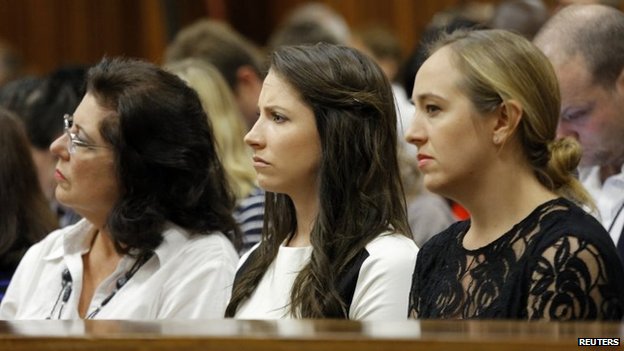 Oscar Pistorius trial: Prosecutor Gerrie Nel queries tears Oscar Pistorius trial: Prosecutor Gerrie Nel queries tears
The prosecutor at the Oscar Pistorius murder trial has suggested the South African athlete is using his emotions "as an escape".
He broke down in tears four times on Monday and has also vomited in court.
"Now you trying to be emotional and it's not working," said prosecutor Gerrie Nel.
Mr Pistorius admits killing girlfriend Reeva Steenkamp in February last year, but says he fired his gun after mistaking her for an intruder.
Mr Nel said the Olympic sprinter, 27, had deliberately shot Ms Steenkamp, a model, after the couple had had an argument.
As the prosecutor resumed his cross-examination on Monday, he accused Mr Pistorius of "tailoring his evidence" as he went along to suit the defence case, which had been "concocted".
"Your version of events is untrue," Mr Nel said.
Shortly before the case adjourned for the day, Mr Nel said: "You're getting emotional now because you're getting frustrated because your version [of events] is improbable.
The prosecutor, known as "bull terrier" for his fierce style of questioning, then asked: "You're not using your emotional state as an escape are you?"
The BBC's Pumza Fihlani in the South Africa capital Pretoria says Mr Nel spent much of the day trying to highlight apparent inconsistencies between Mr Pistorius' bail application and his evidence in court.
On one occasion, when Mr Pistorius corrected Mr Nel, the prosecutor said this showed Mr Pistorius was a "stickler for detail" and yet on many aspects of the case, the athlete was being vague.
'Changed aim'
Earlier, Mr Nel again pressed Mr Pistorius on the moment he shot Ms Steenkamp.
The athlete, a double amputee, said he had not intended to kill anyone.
"I fired out of fear," he said.
This prompted Mr Nel to say Mr Pistorius was changing his story from self-defence to saying he shot by accident.
The prosecutor said this was because the truth was: "You fired at Reeva."
"It's not true," Mr Pistorius replied, breaking into tears and prompting the court to briefly adjourn.
After the break, Mr Nel said that, as Mr Pistorius was trained to use firearms, the court could not accept he had fired by "mistake".
He also said that the athlete had changed his aim to hit Ms Steenkamp after she had fallen down when she was hit by the first bullet. This was denied by Mr Pistorius.
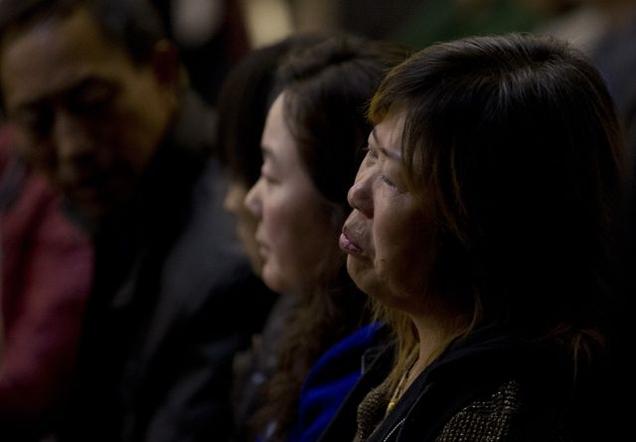 Bluefin-21 returns after six-hour search for MH370 Bluefin-21 returns after six-hour search for MH370
The underwater drone hunting for clues to the fate of flight MH370 returned six hours into a planned 16-hour mission because it was out of its depth, officials said on Tuesday.
The submersible is programmed to resurface rather than go beyond its safe maximum operating limit of 4,500 metres.
“The six hours of data gathered by the Autonomous Underwater Vehicle is currently being extracted and analysed,” searchers said.
The Bluefin-21 vehicle was sent down for the first time on Monday to scour a 40 sqkm patch of the Indian Ocean about 2,170 kilometres north-west of Perth, the search team said.
A week has gone by without any signals being picked up that could be from the flight recorders on the missing Malaysia Airlines Boeing 777.
Search leader Angus Houston said “aircraft wreckage needs to be visually identified before we can say with certainty that this is the final resting place of MH370.” The plane vanished an hour into a night flight March 8 from Kuala Lumpur to Beijing with 239 people on board.
In a downbeat assessment of search results, Mr. Houston said it would “be appropriate to consult with Australia’s partners to decide the way ahead later this week.” The search for aeroplane wreckage has been assessed as the most costly ever mounted.
Mr. Houston said “it’s very expensive and all the countries contributing to this are running up big costs.” No debris has been recovered and the chances of wreckage still remaining on the surface are slim. It is also likely that any wreckage could be submerged in the silt on the ocean floor.
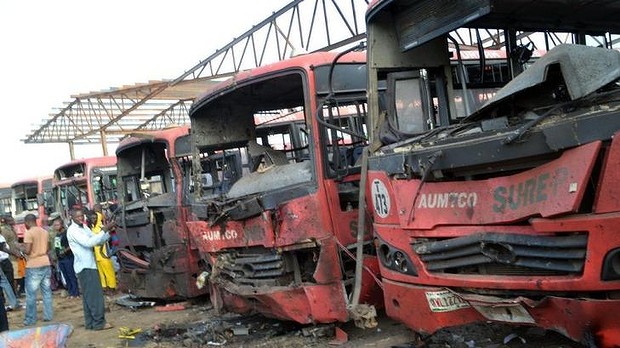 Huge bomb explosion at busy Nigerian bus station kills at least 71 Huge bomb explosion at busy Nigerian bus station kills at least 71
Abuja, Nigeria: Police say an explosion that ripped through a busy bus station in Nigeria's capital has killed at least 71 people and wounded 124.
Police spokesman Frank Mba says Monday's blast destroyed 16 luxury coaches and 24 minibuses.
There was only believed to be one blast with secondary explosions as vehicle fuel tanks ignited and burned.
Reporters saw rescue workers and police gathering body parts as ambulances rushed the wounded to the hospitals.
There was no immediate claim for the rush-hour blast, though the Boko Haram terrorist network has been threatening to attack the capital.
The Islamic extremists, based in northeast Nigeria, carried out a 2011 suicide car bombing at the United Nations office building in Abuja that killed at least 21 people and wounded 60.
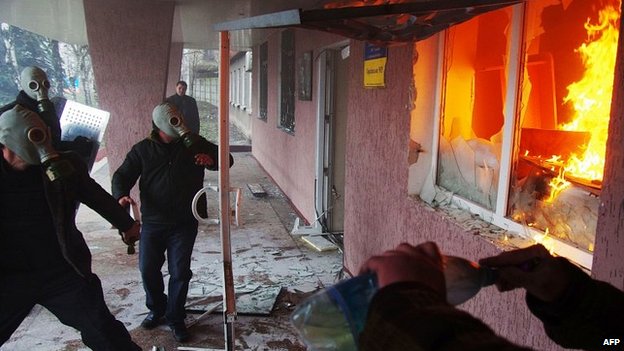 Ukraine crisis: Obama urges Putin to rein in separatists Ukraine crisis: Obama urges Putin to rein in separatists
US President Barack Obama has urged his Russian counterpart Vladimir Putin to use his influence to make separatists in eastern Ukraine stand down.
The phone call between the two leaders came as pro-Russian activists continued to occupy buildings in eastern towns.
For his part, Mr Putin rejected accusations of Russian interference, calling the reports "unreliable".
EU foreign ministers said on Monday they would expand a list of names targeted by sanctions.
Tension has been steadily rising since Russia annexed the Crimean peninsula, formerly part of Ukraine, last month.
The move, condemned as illegal by Kiev and the West, followed the ousting of Ukraine's pro-Moscow President Viktor Yanukovych in February.
'Grave concern'
The White House said the "frank and direct" conversation between the two presidents was made at Russia's request.
"The president expressed grave concern about Russian government support for the actions of armed, pro-Russian separatists who threaten to undermine and destabilise the government of Ukraine," a statement said.
"The president emphasised that all irregular forces in the country need to lay down their arms, and he urged President Putin to use his influence with these armed, pro-Russian groups to convince them to depart the buildings they have seized."
The statement also threatened Moscow with wider sanctions, saying "the costs Russia already has incurred will increase if those actions persist".
The Kremlin said recent unrest in Ukraine's south-east was "the result of the unwillingness and inability of the leadership in Kiev to take into account the interests of Russia and the Russian-speaking population".
It said Mr Putin had urged Mr Obama to "use the resources at the disposal of the American side" to help prevent any bloodshed.
It dismissed claims that Russia was interfering in Ukraine, saying the accusations were based on "questionable information".
Thousands of Russian troops are reported to be deployed along the border between Ukraine and Russia. Kiev fears any crackdown on pro-Russian groups could trigger an invasion.
Ukraine's interim President Olexander Turchynov said on Monday an "anti-terrorist operation" would be launched against gunmen occupying government buildings, but a deadline passed with no large-scale action from Kiev.
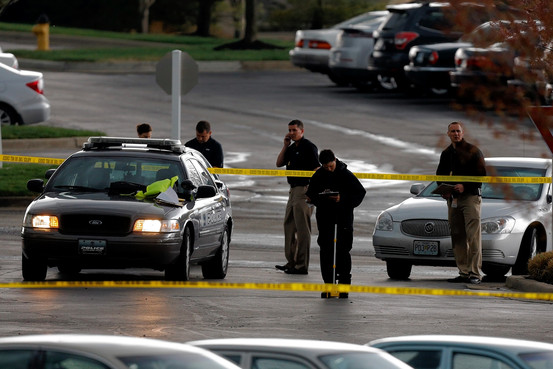 Kansas Shootings: Three Die in Attacks in Two Locations Kansas Shootings: Three Die in Attacks in Two Locations
A man and his grandson were among three people who were fatally shot Sunday at a Jewish community center and a retirement home in a Kansas City suburb, authorities said.
Police arrested a suspect in the shootings, which occurred at the two locations in Overland Park, Kan., said Jason Rhodes, the Overland Park Fire Department media manager.
The victims shot outside the Jewish Community Center of Greater Kansas City were Dr. William Lewis Corporon, 69 years old, and his 14-year-old grandson Reat Griffin Underwood Losen, according to a statement from their family. The name of a woman or girl who was fatally shot minutes later at the Village Shalom senior-living community a few blocks away hasn't been released.
The shootings were reported at about 1 p.m., when Overland Park police received calls regarding the incidents at the community center and the retirement facility, according to Gary Mason, a spokesman for the Overland Park Police Department.
Witnesses reported a white male with gray hair and a long beard with a long gun was seen leaving the community center in a white sedan.
A Johnson County jail official said the man accused in the shooting is Frazier Glenn Cross, the Associated Press reported. The official spoke on the condition of anonymity because he wasn't authorized to discuss the case publicly.
Public records show that the 73-year-old Mr. Cross also goes by the last name Miller, the AP reported. The Southern Poverty Law Center said he has long been an outspoken white supremacist and was once a "grand dragon" of the Carolina Knights of the Ku Klux Klan, the AP said.
Overland Park Police Chief John Douglass told reporters that a total of five people were fired on during the incident, which began at the community center. The suspect later walked up to a person outside the retirement community and asked if the individual was Jewish. When the person said yes, the suspect shot the individual, law-enforcement officials said.
Shortly afterward, police arrested the suspected shooter outside an elementary school, Mr. Douglass said. "I believe two of our officials found him in the school parking lot," he said.
A shotgun was used in the attack and police are investigating whether a handgun or a rifle also was used, he said. Agents from the Federal Bureau of Investigation were responding to the incidents, a bureau spokesman said.
Mr. Douglass said the alleged shooter isn't from Overland Park and officials have no indication that he knew the victims. The suspect didn't have a prior record with local law-enforcement authorities, Mr. Douglass said.
"Of course we are investigating it as a hate crime," said Mr. Douglass. "We are investigating it as a criminal act—I don't want to rule anything out."
Dr. Corporon and his wife moved to the Kansas City area in 2003 to be closer to their grandchildren, the family said in a statement. The grandson was an Eagle Scout and a freshman at Blue Valley High School.
"We would like to thank our friends, family and our church, the United Methodist Church of the Resurrection, and school community for the outpouring of love and support during this very difficult time," the family statement said.
A spokeswoman for Overland Park Regional Medical Center, where Reat died, said family members said the grandfather and the boy were at the community center so the teen could try out for KC SuperStar, a singing competition for students, the Associated Press reported.
President Barack Obama said in a statement: "I want to offer my condolences to all the families trying to make sense of this difficult situation and pledge the full support from the federal government as we heal and cope during this trying time."
When notified of the shootings, the police dispatched patrols to other Jewish-affiliated locations and initiated their "active shooter" protocols, Mr. Douglass said.
An official at Village Shalom didn't immediately respond to a request for comment Sunday.
Monday marks the beginning of Passover, the Jewish holiday that begins at sunset and extends until April 22.
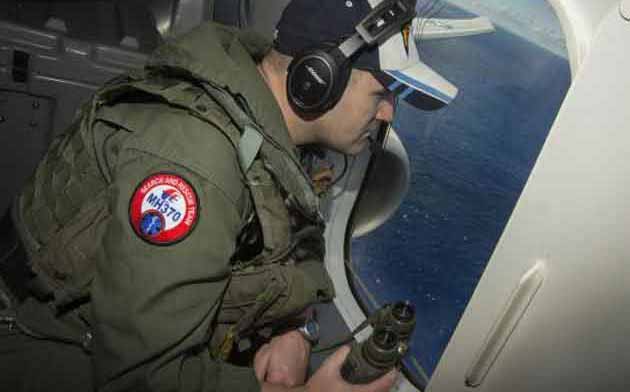 Oil slick detected in flight MH370 search area, mini-sub to be deployed soon: Official Oil slick detected in flight MH370 search area, mini-sub to be deployed soon: Official
PERTH, Australia: An Australian ship leading the hunt for missing Malaysian jet flight MH370 will deploy a mini-sub "as soon as possible", the head of the search said on Monday.
"Ocean Shield will cease searching with the towed pinger locator later today and deploy the autonomous underwater vehicle Bluefin-21 as soon as possible," said Angus Houston, who fronts the Joint Agency Coordination Centre.
Houston said that in the hunt for the plane's black box transmissions the last signal was logged six days ago.
"We haven't had a single detection in six days so I guess it's time to go underwater," he said at a press conference in Perth.
An oil slick had also been spotted in the search area, Houston said, with around two litres of fuel collected for testing.
"I stress the source of the oil is yet to be determined but the oil slick is approximately 5,500 metres downwind ... from the vicinity of the detections picked up by the towed pinger locator on Ocean Shield," he said.
It would be a number of days before the oil could be conclusively tested ashore, but Houston said he did not think it was from a search vessel.
He emphasised that it was 38 days since the Boeing 777 vanished on March 8 and the black box batteries had a shelf life of only 30 days.
The US-made Bluefin-21, a 4.93-metre (16.2 feet) long sonar device will now scour the seabed.
The sonar device, which weighs 750 kilograms, can operate at a depth of up to 4,500 metres — roughly the depth of the ocean floor where the pings were detected.
 Defying Russia, Ukraine forces clash with militants Defying Russia, Ukraine forces clash with militants
SLOVYANSK, Ukraine: The Ukrainian government on Sunday for the first time sent its security services to confront armed pro-Russian militants in the country's east, defying warnings from Russia. Commandos engaged in gunfights with men who had set up roadblocks and stormed a Ukrainian police station in Slovyansk, and at least one officer was killed, Ukrainian officials said.
Several officers were injured in the operation, as were four locals, the officials said. Russian news media and residents here disputed that account, saying the Ukrainian forces had only briefly engaged one checkpoint.
In either case, the central government in Kiev has turned to force to try to restore its authority in the east, a course of action that the Russian government has repeatedly warned against.
With tens of thousands of Russian troops massed along Ukraine's eastern border near Donetsk, Western leaders have worried that Moscow might use unrest in Ukraine's mainly Russian-speaking areas as a pretext for an invasion.
Both governments intensified their statements on Sunday. Ukraine's interim president, Oleksandr V Turchynov, issued another ultimatum, saying separatists should vacate occupied buildings by Monday or face a "large-scale antiterrorist operation" that would include the Ukrainian military. And Russia claimed that the Ukrainian government was cracking down at the behest of American and European officials.
Ukraine's ousted president, Viktor F Yanukovych, speaking late Sunday in Rostov-on-Don, in Russia, echoed Moscow's charges of American meddling.
Insisting that he remained Ukraine's commander in chief despite having fled to Russia more than a month ago, he ordered Ukrainian troops to defy what he called "criminal orders" for a crackdown and said the country stood "on the brink of civil war."
The police station contested by Ukrainian forces was one of several security centers in the eastern region of Donetsk that were seized on Saturday by masked gunmen in coordinated raids that the Ukrainian authorities denounced as Russian "aggression."
By Sunday afternoon, the government's push to reassert its authority in a vitally important industrial and coal-mining region appeared to have made little headway. Pro-Russian protesters appeared to control not only the police station but also the entire town of Slovyansk, having set up checkpoints at major streets leading into town.
The protesters blocked a major highway in the east, and flags of Russia and their newly declared and unrecognized People's Republic of Donetsk flew over administrative buildings in several other midsize towns. These included Mariupol, where protesters seized a building Sunday.
Roman Svitan, a security adviser to the Ukrainian authorities in Donetsk, said the operation on Sunday was carried out by Alfa, a special services unit of Ukraine's state security service. He gave an upbeat assessment of its progress, saying Ukrainian forces had evicted gunmen from the Slovyansk Police Headquarters, though protesters there said nothing of the sort had happened.
Svitan said most of the expelled gunmen were local pro-Russian extremists, but they had also included Russian operatives.
Residents and men standing by barricades in Slovyansk denied that Ukrainian forces had even entered the town on Sunday. They said one local man who had been out fishing was in a hospital with a wound from a shooting on a highway outside town. Russian television and some locals said the Ukrainian nationalist group Right Sector had attacked protesters at a checkpoint, injuring the fisherman.
Requests to speak to a leader of the armed men produced a man wearing a ski mask who introduced himself as Aleksandr and described himself as a deputy commander of the city of Slovyansk after its merger with the People's Republic of Donetsk.
He gave a different account of the circumstances behind the wounding of the fisherman, saying he was struck by Ukrainian armored personnel carriers that opened fire on a barrier made from a pile of tires on the edge of town, then drove away. "Our guys took cover, and the shooting stopped," he said.
Ukrainian helicopters buzzed over the town around noon, but no soldiers were seen. At one barrier, pro-Russian protesters felled trees across a road into town, guarded by men in ski masks carrying military rifles.
Russia's foreign ministry issued a blistering denunciation of the Ukrainian government. In a statement on the ministry's Facebook page, the Russian government accused the Kiev authorities of threatening violence "against anyone who does not agree with the nationalist-radicals, chauvinistic and anti-Semitic actions" in Kiev that, it said, were being carried out "with direct support from the United States and Europe."
At Russia's request, an emergency meeting of the United Nations security council was held Sunday night. UN security council members traded competing narratives of what was happening in eastern Ukraine, as Russia's envoy, Vitaly I Churkin, echoed the views of the Kremlin and his Western rivals deplored what they called Russian propaganda. Churkin called on world leaders to condemn the "henchmen of the Maidan," a reference to Independence Square in Kiev, where the uprising that led to the president's ouster unfolded. The British ambassador, Mark Lyall Grant, pointed the finger at Moscow. "What we are witnessing is a well-orchestrated campaign to destabilize the country," he said.
In Washington, the US state department took the unusual step of issuing a "fact sheet" alleging that Russian officials had made 10 false claims about the crisis in Ukraine.
"Russia continues to spin a false and dangerous narrative to justify its illegal actions in Ukraine," the US state department said. "We would not be seeing the violence and sad events that we've witnessed this weekend without this relentless stream of disinformation and Russian provocateurs fostering unrest in eastern Ukraine."
According to the state department, more than a dozen Russian intelligence agents have been arrested by the Ukrainian government in recent weeks, contradicting Moscow's assertion that its agents are not active in Ukraine.
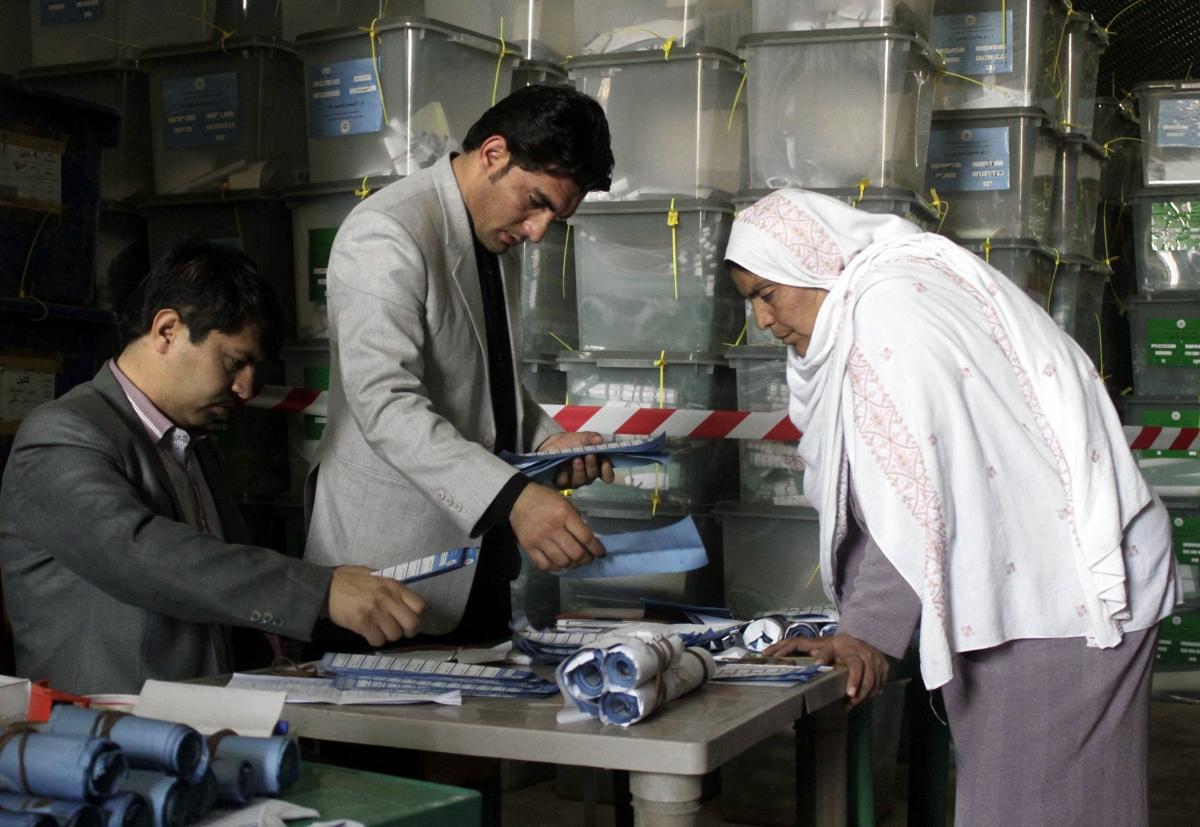 Afghanistan election's partial results show split race Afghanistan election's partial results show split race
Afghan workers count ballots in Kabul, Afghanistan, on Sunday. Former Afghan foreign minister Abdullah Abdullah was in the lead in the partial vote count for the presidential elections.
Two clear front-runners emerged in Afghanistan’s presidential election as partial results released Sunday showed a tight race that increasingly appears destined for a runoff vote.
With 10% of the ballots counted, Abdullah Abdullah, who was outgoing leader Hamid Karzai’s main rival in his fraud-marred reelection in 2009, had 41.9% of the vote.
Ashraf Ghani Ahmadzai, a former finance minister and World Bank official, followed with 37.6%.
Zalmai Rassoul, another former foreign minister widely considered as Karzai’s pick, was a distant third with 9.8%.
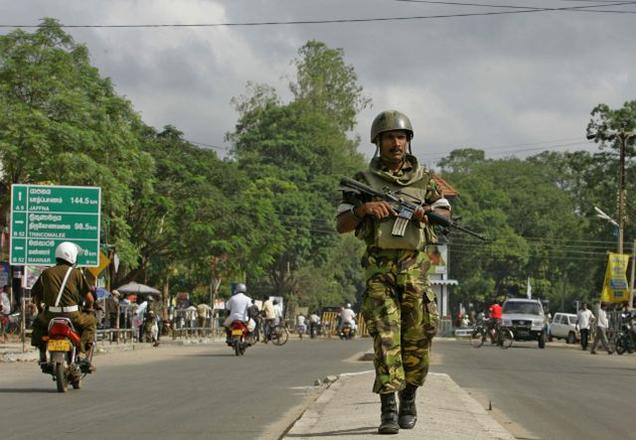 3 LTTE suspects shot dead in northern Sri Lanka 3 LTTE suspects shot dead in northern Sri Lanka
Sri Lankan armed forces on Friday shot dead three men who allegedly tried to revive the rebel Tiger movement in the country’s Northern Province.
According to military spokesman Brigadier Ruwan Wanigasooriya, in the early hours of Friday three armed suspects who attempted to escape the area confronted the troops in the cordon. All three were killed in the clash that followed, he said.Two of the dead were identified as Sundaralingam Kajeepan alias Thevihan and Selvanayagam Kajeepan alias Gobi, who had escaped last month after reportedly opening fire at a police officer.
Police had launched a massive search operation then, even announcing a million (LKR) to anyone giving information leading to his arrest.
The third man is yet to be identified but is believed to be Navaratnam Navaneethan alias Appan, according to army officials. The military’s operation in the jungles of Nedunkerni, in Vavuniya was based on information from the police Terrorist Investigation Department (TID), which was looking for the three men believed to be remnants of the Tamil Tigers.
Revival fears
Sri Lanka’s Defence establishment has — over the last few months — expressed concerns over possible regrouping of the LTTE, five years after its armed forces defeated them. To prevent such an eventuality, Sri Lankan police arrested 60 persons, largely from the island’s Tamil-speaking north, over the last two months.
Fears of an LTTE revival came at a time when the U.N. Human Rights Council in Geneva adopted a U.S.-sponsored resolution against Sri Lanka, calling for an international probe into its alleged war crimes and rights abuse.
Around the same time, the Sri Lankan military raised surveillance in its Northern Province, where residents have been raising concerns about heavy militarisation post-war.
According to U.N. estimates, at least 100,000 people were killed in Sri Lanka’s ethnic conflict that spanned over three decades.
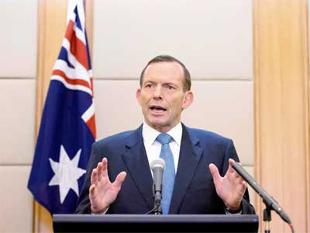 Fading signals add urgency to search for missing Malaysian jet Fading signals add urgency to search for missing Malaysian jet
PERTH/BEIJING: The search for a missing Malaysia Airlines jetliner resumed on Saturday, five weeks after the plane disappeared from radar screens, amid fears that batteries powering signals from the black box recorder on board were about to die.
Australian Prime Minister Tony Abbott said signals picked up during the search in the remote southern Indian Ocean, believed to be "pings" from the black box recorders, were "rapidly fading".
"While we do have a high degree of confidence that the transmissions that we've been picking up are from flight MH370's black box recorder, no one would underestimate the difficulties of the task still ahead of us," Abbott told a news conference in Beijing.
Malaysia Airlines Flight MH370 disappeared soon after taking off on March 8 from Kuala Lumpur bound for Beijing with 227 passengers and 12 crew on board, triggering a multinational search that is now focused on the Indian Ocean.
Search officials say they are confident they know the approximate position of the black box recorder, although they have determined that the latest "ping", picked up by searchers on Thursday, was not from the missing aircraft.
Batteries in the black box recorder are already past their normal 30-day life, making the search to find it on the murky sea bed all the more urgent. Once searchers are confident they have located it, they then plan to deploy a small unmanned "robot" known as an Autonomous Underwater Vehicle.
"There have been no confirmed acoustic detections over the past 24 hours," it said in a statement.
The black box records data from the cockpit and conversations among flight crew and may provide answers about what happened to the plane, which flew thousands of kilometres off course after taking off.
The mystery has sparked the most expensive search and rescue operation in aviation history.
Malaysia's government has begun investigating civil aviation and military authorities to determine why opportunities to identify and track the flight were missed in the chaotic hours after it vanished.
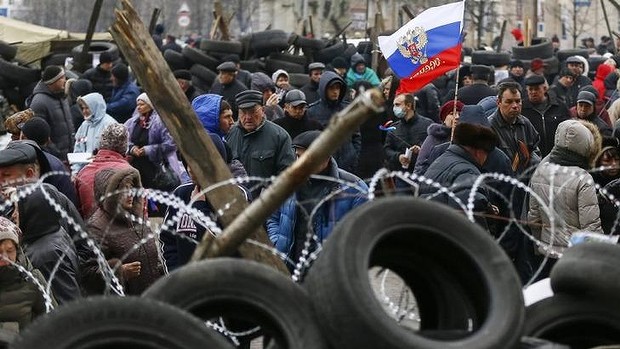 Ukraine offers more powers to woo east Ukraine offers more powers to woo east
DONETSK: Ukraine's prime minister on Friday told leaders in the country's restive east that he is committed to allowing regions to have more powers, but left it unclear how his ideas differed from the demands of protesters now occupying government buildings or Russia's advocacy of federalization.
The officials whom Arseniy Yatsenyuk met in Donetsk did not include representatives of the protesters. The officials asked Yatsenyuk to allow referenda on autonomy for their regions, not on secession.
"There are no separatists among us," said Gennady Kernes, mayor of the Kharkiv region where protesters had occupied a government building earlier in the week.
Ukraine's eastern industrial heartland was the support base for Kremlin friendly president Viktor Yanukovich , who was ousted in February after months of protests. Last month, the Crimea region voted to secede and was annexed by Russia. Russia ratcheted up the pressure on Ukraine on Thursday when President Vladimir Putin warned European leaders of a risk to the gas supplies going through Ukraine. He has threatened that Russia could shut off shipments to Ukraine if it fails to pay its mammoth debts. Protesters in the eastern cities of Donetsk and Luhansk are occupying government buildings and calling for referenda on regional autonomy that could prefigure seeking annexation by Russia.
Before leaving Donetsk, Yatsenyuk said that he favours a peaceful solution to the stand-off . However, he left the door open for storming the buildings occupied by armed men, though a two-day deadline announced earlier this week has passed.
Yatsenyuk said grievances of eastern Ukraine would be appeased by the upcoming constitutional reform that will "satisfy people who want to see more powers given to regions." He mentioned abolishing Kievcontrolled local administration as one of the steps to decentralize the country.
Nato: Russia must withdraw troops
Russia must withdraw its troops from the Ukrainian border and enter into sincere dialogue with the West, Nato secretary general Anders Fogh Rasmussen said on a visit to Bulgaria on Friday. Nato presented satellite photos it said showed Russian deployments of 40,000 troops near the Ukrainian frontier along with tanks, armoured vehicles, artillery and aircraft ready for action. REUTERS
Moscow faces new US sanctions
US President Obama threatened fresh sanctions against Moscow if it escalates the crisis over Ukraine, as pro-Russia separatists faced Friday's deadline from Kiev to lay down their arms. The president stressed that the US, the EU and other global partners must "be prepared to meet further Russian escalation with additional sanctions," the White House said in a statement. AFP
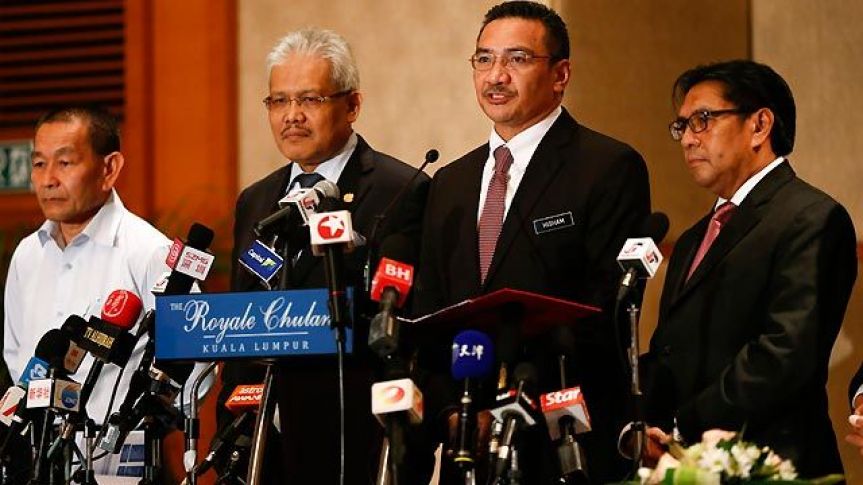 Searchers scramble to find missing jet after no new signals heard Searchers scramble to find missing jet after no new signals heard
PERTH, Australia – With no new underwater signals detected, the search for the missing Malaysian passenger jet resumed Saturday in a race against time to find its dying black boxes five weeks after families first learned their loved ones never arrived at their destination.
The ocean search area has been condensed, as ships and planes hunted for any clue that could help find Flight 370, which disappeared en route from Kuala Lumpur, Malaysia to Beijing with 239 people on board, mostly Chinese.
Australian Prime Minister Tony Abbott told Chinese President Xi Jinping that he was confident signals heard by an Australian ship towing a U.S. Navy device that detects flight recorder pings are coming from the Boeing 777. Officials believe the plane flew off course for an unknown reason and went down in the southern Indian Ocean off the west coast of Australia.
"We're getting into the stage where the signal from what we are very confident is the black box is starting to fade," Abbott told reporters Friday in Shanghai, referring to the plane's flight data and cockpit recorders. "We are hoping to get as much information as we can before the signal finally expires."
Search crews are running out of time because the batteries powering the recorders' locator beacons last only about a month, and that window has already passed. Finding the devices after the batteries fail will be extremely difficult because the water in the area is 4,500 meters (15,000 feet) deep.
Two sounds heard a week ago by the Australian ship Ocean Shield, towing the ping locator, were determined to be consistent with the signals emitted from the black boxes. Two more pings were detected in the same general area Tuesday.
"We are confident that we know the position of the black box flight recorder to within some kilometers," Abbott said. "But confidence in the approximate position of the black box is not the same as recovering wreckage from almost 4 1/2 kilometers beneath the sea or finally determining all that happened on that flight."
Abbott told the Chinese leader that the next steps will be a "very long, slow and painstaking process."
An Australian air force P-3 Orion, which has been dropping sonar buoys into the water near where the Ocean Shield picked up the sounds, detected another possible signal Thursday, but Angus Houston, who is coordinating the search, said in a statement that an initial assessment had determined it was not related to an aircraft black box.
The Ocean Shield continued to search for additional signals, while the Orions were going on with their hunt, Houston said. The underwater search zone is currently a 500-square-mile patch of the seabed, about the size of the city of Los Angeles.
"It is vital to glean as much information as possible while the batteries on the underwater locator beacons may still be active," Houston said.
The searchers want to pinpoint the exact location of the source of the signals so they can send down a robotic submersible to look for wreckage. A decision to use the sub could be "some days away," Houston said.
The Bluefin 21 submersible takes six times longer to cover the same area as the ping locator -- about six weeks to two months to canvass the current underwater zone.
Complicating matters is the depth of the seabed in that area. The signals are emanating from 15,000 feet below the surface, which is the deepest the Bluefin can dive. The search coordination center said it was considering options in case a deeper-diving sub is needed.
The surface area to be searched for floating debris had been narrowed to 15 982 square miles of ocean extending from about 1,400 miles northwest of Perth. Up to 10 planes and 14 ships were searching Saturday.
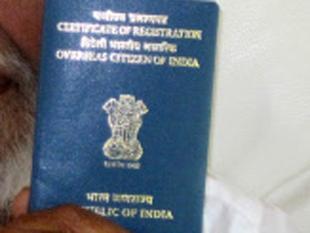 US receives 172,000 H1B visa applications, lottery decides fate US receives 172,000 H1B visa applications, lottery decides fate
WASHINGTON: The US, which received more than 172,000 applications for the H-1B visas, has conducted a computerised draw of lots to determine who all would be given the most sought after work visas that are highly popular among IT professionals from countries like India.
The US Citizenship and Immigration Services (USCIS) conducted the computerised draw of lots to select the Congressionally mandated 65,000 applicants, who would receive the H-1B visas.
The USCIS, in a statement, said it also conducted draw of lots for Congressional mandated 20,000 H-1B petitions filed under the advanced degree exemption.
"USCIS received about 172,500 H-1B petitions during the filing period which began April 1, including petitions filed for the advanced degree exemption," the federal agency said.
"On April 10, USCIS completed a computer-generated random selection process, or lottery, to select enough petitions to meet the 65,000 general-category cap and 20,000 cap under the advanced degree exemption," it said.
For cap-subject petitions not randomly selected, USCIS will reject and return the petition with filing fees, unless it is found to be a duplicate filing.
The USCIS conducted the selection process for the advanced degree exemption first.
All advanced degree petitions not selected then became part of the random selection process for the 65,000 limit, the federal agency said.
However, the USCIS will continue to accept and process petitions that are otherwise exempt from the cap.
Petitions filed on behalf of current H-1B workers who have been counted previously against the cap will not be counted towards the congressionally mandated fiscal 2015 H-1B cap.
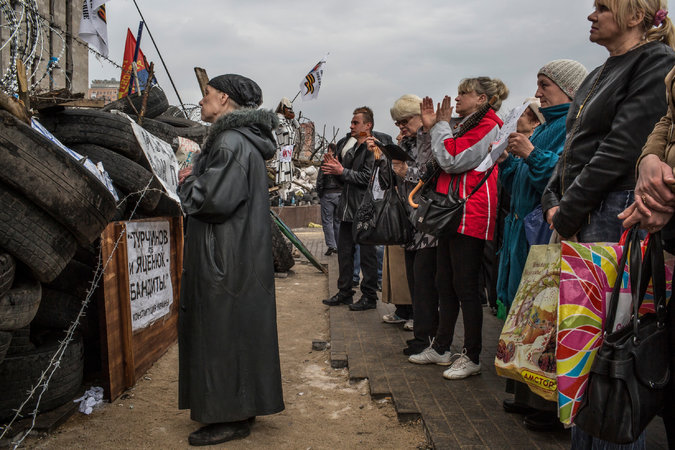 Satellites show Russia mobilizing near Ukraine, Nato says Satellites show Russia mobilizing near Ukraine, Nato says
MOSCOW: Nato released satellite photographs on Thursday showing Russian military equipment, including fighter jets and tanks, that it described as part of a deployment of as many as 40,000 troops near the border with Ukraine. The release came the same day that President Vladimir V Putin reiterated a threat to curtail gas sales to Ukraine.
The photographs, taken by a commercial satellite imaging company called DigitalGlobe, offered some of the first documentary evidence of a military buildup that the West says Russia could use to invade Ukraine at any moment. They were released at a news conference in Belgium by Brigadier Gary Deakin, the director of Nato's Comprehensive Crisis and Operations Management Center.
The Kremlin has accused the West of exaggerating Russia's military presence along the Ukrainian border and has insisted that it has no plans for a second military incursion after its lightning-quick occupation and annexation of Crimea. Still, Russia has warned that it may take military action to protect ethnic Russians in Ukraine if they are threatened.
Officials said they had distributed commercial photographs, rather than pictures taken by military satellites, because of the complexities of declassifying classified images.
The United States government has a contractual arrangement with DigitalGlobe, based in Colorado, that allows images taken by the company to be shared among federal agencies, as well as with American allies.
DigitalGlobe sells satellite photographs from all over the world, of sites of cultural interest as well as of military and geopolitical subjects such as a parade in the North Korean capital, Pyongyang, in 2012. A spokeswoman for the company declined to comment on Thursday.
US President Obama and other Western leaders have said that Russia has massed troops and equipment along its borders and have demanded that the Kremlin withdraw those forces. The top Nato commander, Gen. Philip M. Breedlove, said in an interview last week that Russia's 40,000 troops could attack on 12 hours' notice.
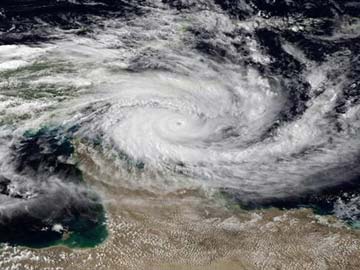 Australia's northeast coast braces for strongest cyclone in three years Australia's northeast coast braces for strongest cyclone in three years
Sydney: Residents and tourists on Friday were evacuating parts of Australia's northeast coast, home to the Great Barrier Reef, as the strongest cyclone in three years was poised to hit land later in the day, bringing destructive winds and flash floods.
Cyclone Ita, a category five storm, is expected to make landfall north of the tropical city of Cairns, the Australian Bureau of Meteorology (BOM) said.
Wind gusts of up to 300 kmh (186 mph) and torrential rains are forecast, posing a threat to about 9,000 inhabitants, said Campbell Newman, premier of Queensland state, where the storm is expected to hit land.
"Severe tropical cyclone Ita...poses a serious threat to communities along the far north Queensland coast," the weather bureau said.
The storm's projected course should carry it to land on Friday evening, spreading over an area of about 400 km (250 miles), Queensland emergency officials said.
The storm was still classified as a tropical depression when it barrelled across the Solomon Islands late last week, killing at least 23 people near Honiara, the capital, according to the United Nations.
Sugar farmers in Queensland, who grow about 95 percent of the sweetener produced in Australia, are bracing for potential damage to up to 7 million tonnes of cane, industry groups said.
Australia, the world's third largest exporter of raw sugar, has seen production devastated by cyclones in the past, most recently in 2011, when cyclone Yasi ripped through Queensland, causing estimated losses of A$3.5 billion from damage to property and reduced tourism earnings.
Sugar production in 2014/15 is forecast to total 4.4 million tonnes, the Australian Bureau of Agriculture and Resource Economics and Sciences said in March, up from 4.2 million harvested in the previous year.
While the cyclone poses a threat to Australian sugar output, beleaguered cattle farmers may benefit from widespread rain after prolonged drought forced farmers to send record numbers of animals to slaughter as grazing land wilted.
The Great Barrier Reef, one of Australia's most visited tourist attractions, stretches more than 2,000 km along the Queensland coast and is the world's largest coral reef system.
The Great Barrier Reef has lost half its coral cover in the last 27 years, the Australian government said in a 2012 report, with storms responsible for nearly half of that damage.
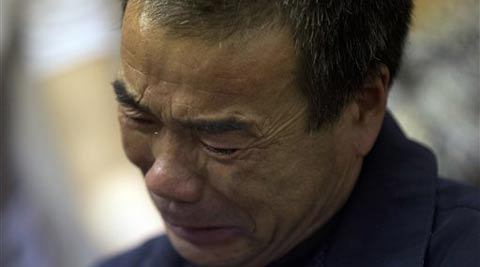 Australian PM confident sounds are from Flight MH370 Australian PM confident sounds are from Flight MH370
Australian Prime Minister Tony Abbott said Friday he was "very confident" that signals detected in the search for missing Malaysia Airlines Flight MH370 were from the aircraft's black box.
"We have very much narrowed down the search area and we are very confident that the signals that we are detecting are from the black box," Abbott said from China.
Australia has been leading the search for the Boeing 777 aircraft, which went missing on March 8 en route from Kuala Lumpur to Beijing, ever since the operation was moved to the Indian Ocean.
More than 100 flights over the remote area off western Australia have so far failed to return a single piece of debris from the plane, but four signals or "pings" linked aircraft beacons have been detected by an Australian ship.
The first two of these, which were picked up by the Australian vessel Ocean Shield using US equipment, have been analysed as being consistent with those from black box data recorders.
Speaking in Shanghai, Abbott said the search area had now been "very much narrowed down because we've now had a series of detections, some for quite a long period of time".
"Nevertheless, we're getting to the stage where the signal from what we are very confident is the black box is starting to fade," he said in comments broadcast on Sky News.
"We are hoping to get as much information as we can before the signal finally expires."
Abbott said he did not want to go into any further detail until he had briefed Chinese President Xi Jinping on the investigation. Some two-thirds of the 239 people onboard Flight MH370 were Chinese.
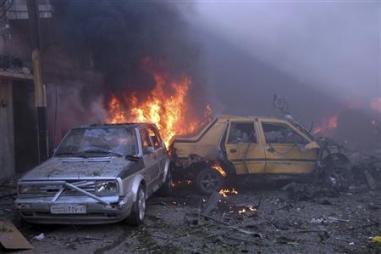 Twin car bombs kill 25 in Syria's Homs Twin car bombs kill 25 in Syria's Homs
Two car bombs have killed at least 25 people, including women and children, in a government-held neighbourhood of Syria's central city of Homs.
DAMASCUS: Two car bombs killed at least 25 people, including women and children, in a government-held neighbourhood of Syria's central city of Homs Wednesday, state news agency SANA reported.
Another 100 people were wounded in Karam al-Luz, in attacks SANA blamed on "terrorists," the government's term for people fighting to overthrow President Bashar al-Assad.
"Twenty-five people fell as martyrs, including women and children, and more than 107 others were wounded after the explosion of the two car bombs" a half-hour apart, SANA said.
The Syrian Observatory for Human Rights said the bombings killed 21 people in a mostly Alawite neighbourhood, referring to the Shiite Muslim offshoot sect to which the Assad family belongs.
Videos posted online by activists showed destroyed shopfronts and people panicking and running in all directions as rescuers struggled to extinguish a fire.
Syria's uprising began as a series of peaceful protests against the Assad family's four-decade rule but escalated into a full-scale insurgency after the regime launched a devastating crackdown on dissent.
More than 150,000 people have been killed since the revolt began in March 2011 and nine million have been driven from their homes, including 2.6 million international refugees.
Homs was an epicentre of the revolt but is now almost entirely in regime hands, with small pockets of rebels holding out in besieged areas in and around the devastated Old City.
Earlier Wednesday, troops fighting in the Qalamun region seized the town of Rankus, tightening their grip on the strategic region along the Lebanese border.
"Units of the Syrian army have now accomplished their operation in the Rankus area and restored security and stability after eliminating a large number of terrorists," state media said.
The Britain-based Observatory had earlier confirmed that "the army entered the area and is engaged in fierce fighting and heavy shelling."
The group, with a network of sources inside Syria, said 28 rebels had been killed in Qalamun area as well as in Eastern Ghouta, elsewhere in Damascus province, in fighting between Tuesday and Wednesday.
Troops backed by pro-regime militiamen and Lebanon's Shiite movement Hezbollah have captured most of Qalamun, through which a key highway runs between Damascus and Homs.
Last month, the regime dealt a major blow to the opposition by seizing its last key bastion in the region, the town of Yabrud.
The rebels still control a few smaller villages in Qalamun, but have seen their supply lines across the border with Lebanon largely severed.
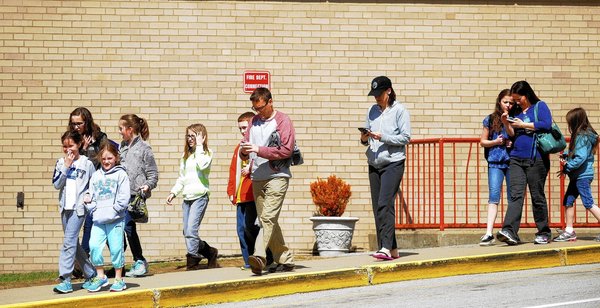 School stabbing in Pennsylvania renews fears School stabbing in Pennsylvania renews fears
MURRYSVILLE, Pa. — The hallways were buzzing with pupils arriving for classes at Franklin Regional Senior High School when screams, shouts and the thunder of running feet broke the morning routine.
"Run, run! He has a knife!" a teacher yelled Wednesday as a boy charged through the first-floor corridor, slashing and stabbing anyone who got in his way in a melee that unfolded like a scene from a horror film.
He fought off a group of boys who tried to pin him down. By the time he was tackled by a security guard and vice principal, he had wounded at least 19 classmates, including three who underwent surgery for what doctors called deep, life-threatening puncture wounds. Two adults also were injured, including the security guard who helped subdue the assailant.
All of the victims were expected to survive, but school officials, students and parents were left shaken by the latest bloody rampage at what should be a safe haven: a public school.
"This is a very difficult day for this community … but also for the country," said Pennsylvania Gov. Tom Corbett, who called the attack "one horrific five-minute period."
The suspect, 16-year-old sophomore Alex Hribal, was charged as an adult Wednesday night with four counts of attempted homicide, 21 counts of aggravated assault and one count of bringing a weapon onto school property, said his attorney, Patrick Thomassey. Hribal was being held without bail at the county juvenile detention center.
The teen, who was treated for a minor hand wound, appeared in court in shackles and a hospital gown, Thomassey said, adding that Hribal's parents found out about the attack on the news and were "devastated."
"There was no indication there was any reason for this to occur, no sense of trouble about anything," Thomassey said. "He's a good student; he interacted well with other students.... They didn't see this coming; they're mystified and mortified."
Thomassey declined to talk about a motive or whether Hribal had been bullied. Franklin is the only public high school in this Pittsburgh suburb of about 20,000 people.
"He's frightened," Thomassey said. "He's a 16-year-old kid who looks like he's 10."
Police converged on his family's home in Heritage Estates, a hilly community of spacious homes.
Michelle Kresak, who lives nearby, was stunned by news that the boy she remembered as a "super-nice kid" who came trick-or-treating on Halloween could do such a thing, or that it could happen in their quiet suburb. "Oh my God, he was so normal," she said while out walking her dog.
But she added: "Sometimes you don't know. A lot of kids keep it all inside."
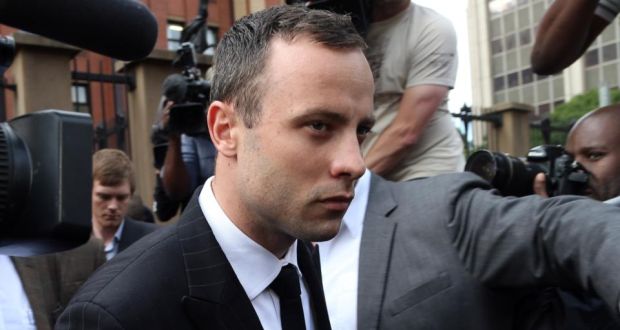 Pistorius faces aggressive questioning from prosecutor Pistorius faces aggressive questioning from prosecutor
After two tumultuous days in which he gave his account of the night he shot and killed Reeva Steenkamp, the Paralympic athlete Oscar Pistorius on Wednesday was confronted by the man whose mission is to dismantle his story, piece by piece – the state prosecutor, Gerrie Nel.
Combative, dogged and pugnacious, Mr Nel is known here as “the pit bull” and he wasted no time in trying to rattle Pistorius, who had already appeared considerably shaken by the proceedings in his murder trial. “You killed Reeva Steenkamp, didn’t you?” Mr Nel snapped at Pistorius. “Say it. Say ‘yes, I shot and killed Reeva Steenkamp’.”
In a shocking move that brought gasps from the courtroom, Mr Nel suddenly displayed a photograph of Steenkamp’s head after the shooting, with blood and brains spilling from it and all but ordered Pistorius to look at it.
“Take responsibility for what you’ve done!” he snapped. Pistorius refused, saying he was “tormented” by the memories of what Steenkamp’s head felt like after she died, when he cradled her in his arms and sobbed over her lifeless body.
Pistorius wept, as he has on numerous occasions since his trial began, and the court took a break while he composed himself. “I’m fighting for my life,” he said at one point.
Nel repeatedly asked Pistorius about the location of two ventilation fans in his bedroom on the night of the killing, seeking to undermine the defence’s contention that the crime scene was contaminated by clumsy police work and other factors.
The detail was important, Mr Nel told the athlete, because “it will show that you are lying”. Pistorius said his memory was not good “but I’m not trying to lie. I can’t change the truth.”
Pistorius (27) maintains that the killing was a tragic mistake and that he fired four rounds through a locked bathroom door on the morning of February 14th, 2013, because he was convinced an intruder had broken into his house.
The prosecution says he deliberately killed Steenkamp (29) in a fit of rage as the two argued. Earlier, he had told the court he did not intend to kill her “or anybody else”.
Describing the scene when he broke down the bathroom door with a cricket bat after having tried to kick it open, he said: “I could see she was breathing, struggling to breathe.”
Pausing between sentences and coaxed gently by his lawyer, Pistorius struggled to hold back sobs as he described carrying Steenkamp’s bleeding body down the stairs of his house. He tried to help Steenkamp breathe by putting his fingers in her mouth, he said, and tried fruitlessly to staunch the bleeding from her hip.
“I just sat there with her and waited for the ambulance to arrive,” he said, but when an ambulance got there, a paramedic informed him “that Reeva has passed”, he said. “Reeva had already died whilst I was holding her.”
Police officers at the scene took photographs of him for several hours and finally told him he was under arrest and took him into custody.
Then the cross-examination began. The court adjourned briefly after Mr Nel asked Pistorius if he had heard the term “zombie-stopper,” apparently referring to a type of gun or ammunition, and the defence and the prosecution tussled over whether Mr Nel could show a video in which Pistorius used the expression while at a shooting range.
After their argument, the video was broadcast to the court. It showed Pistorius firing several weapons, including a handgun and a shotgun, and using a watermelon as a target. When the melon was hit and exploded, a voice off camera said the gun had functioned as a “zombie-stopper” and that the watermelon was “softer than brains.”
“I was shooting at a watermelon with a handgun,” Pistorius testified. “That was my voice saying those words,” he said, adding that he was “very upset” to hear himself.
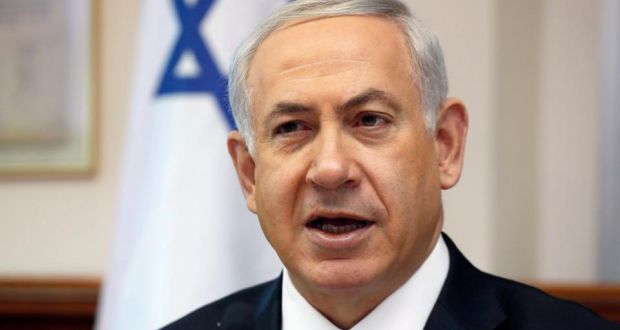 Kerry says Israel to blame for talks crisis Kerry says Israel to blame for talks crisis
Israeli prime minister Binyamin Netanyahu has ordered government ministries to cut off high-level contacts with the Palestinians on non-security related issues, as the crisis in Middle East peace talks worsens.
Israel’s move was a response to the recent Palestinian decision to submit applications to join 15 international organisations and conventions, which itself came after Israel failed to carry out the fourth and final release of Palestinian prisoners agreed to when peace talks resumed last July, under American auspices.
Security co-operation
The latest Israeli move does not apply to security co-operation or to the ongoing discussions aimed at breaking the diplomatic impasse and reaching a formula to extend the talks beyond the nine-month deadline, which expires at the end of this month.
Palestinians said the Israeli move undermined efforts to revive the peace talks. Fatah official Jibril Rajoub described the action as “state terror”.
Arab League foreign ministers, meeting in Cairo, blamed Israel for the diplomatic deadlock and promised a financial safety net if Israel imposed economic sanctions on the Palestinians.
Negotiators are expected to meet again today but a senior Palestinian source said recent meetings had failed to bridge the gaps on a package deal to keep the talks alive.
Settlements issue
He said the main obstacle was Israel’s refusal to present a map with borders and settlement construction.
US secretary of state John Kerry, although criticising both sides for taking “unhelpful” steps, indicated that Israel was responsible for the current deadlock.
“Unfortunately, the [Palestinian] prisoners weren’t released when they were supposed to be, and when they were about to maybe get there, 700 settlement units were announced in Jerusalem, and poof, that was sort of the moment,” he told the Senate foreign relations committee.
However, Mr Kerry said he still hadn’t given up on the talks.
“The truth is the parties say they want to continue these talks,” he said.
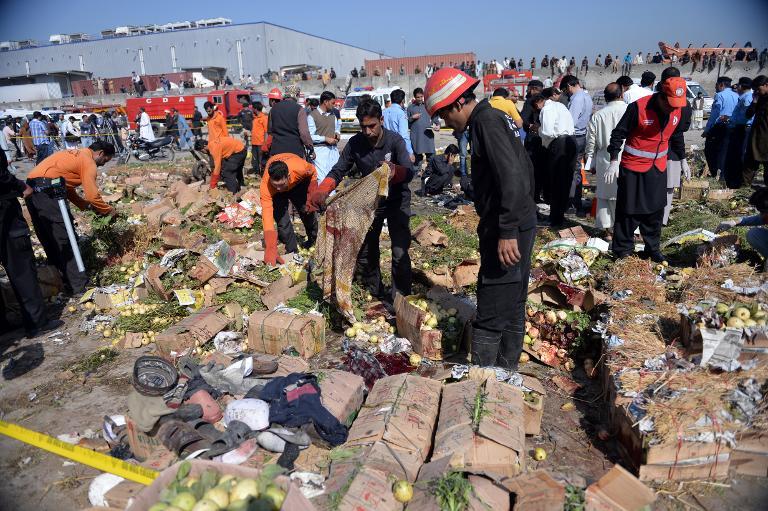 Bomb kills 15, wounds 35 in Islamabad Bomb kills 15, wounds 35 in Islamabad
ISLAMABAD: A bomb explosion Wednesday killed at least 15 people and wounded 35 others in Islamabad's bustling fruit and vegetable market, police and hospital officials said.
The blast took place in the busy morning hours when dozen of people, mostly grocers and sellers, gather at the market.
"We have received 15 dead bodies and 35 injured people," Pakistan Institute of Medical Sciences (PIMS) spokeswoman Ayesha Isani told reporters in Islamabad.
She said the condition of two patients was very critical.
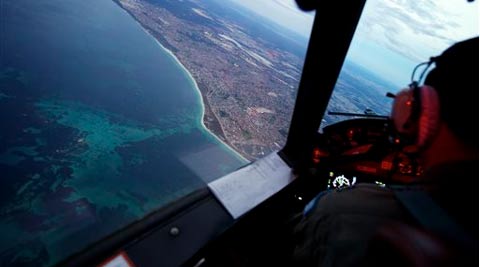 Missing MH370: More underwater pings heard in hunt for missing Malaysian Airlines aircraft Missing MH370: More underwater pings heard in hunt for missing Malaysian Airlines aircraft
A ship searching for the missing Malaysian jet has detected two more underwater signals, raising hopes the wreckage of the plane will be spotted soon, the Australian official in charge of the search said Wednesday.
Angus Houston, the head of a joint agency coordinating the search for the missing plane in the southern Indian Ocean, said that the Australian navy’s Ocean Shield picked up the two signals in a sweep on Tuesday.
“I think we are looking in the right area but I am not prepared to confirm anything until such time someone lays eyes on the wreckage,” he said.
The Ocean Shield first detected the sounds late Saturday and early Sunday before losing them, but managed to find them again on Tuesday, Houston said. The ship is equipped with a U.S. Navy towed pinger locator that is designed to pick up signals from a plane’s black boxes _ the flight data recorder and cockpit voice recorder.
“Hopefully in a matter of days, we will be able to find something on the bottom that might confirm that this is the last resting place of MH370,” Houston said at a news conference in Perth, the starting point for the search in the southern Indian Ocean.
“I’m now optimistic that we will find the aircraft, or what is left of the aircraft, in the not too distant future _ but we haven’t found it yet, because this is a very challenging business,” he said.
“And I would just like to have that hard evidence … photograph evidence (before saying). that this is the final resting place of MH370,” Houston said.
Finding the sound again is crucial to narrowing the search area so a small submarine can be deployed to chart a potential debris field on the seafloor, which is about 4,500 meters (14,800 feet) deep. If the autonomous sub was used now with the sparse data collected so far, covering all the potential places from which the pings might have come would take many days.
“The better Ocean Shield can define the area, the easier it will be for the autonomous underwater vehicle to subsequently search for aircraft wreckage,” Houston said.
Malaysia Airlines Flight 370 carrying 239 people went missing March 8 on a trip from Kuala Lumpur, setting off one of aviation’s biggest mysteries. The search has shifted from waters off of Vietnam, to the Strait of Malacca and then finally to waters in the southern Indian Ocean as data from radar and satellites was further analyzed.
The locator beacons on the black boxes have a battery life of only about a month and Tuesday marked exactly one month since the plane vanished. Once the beacons blink off, locating the black boxes in such deep water would be an immensely difficult, if not impossible, task.
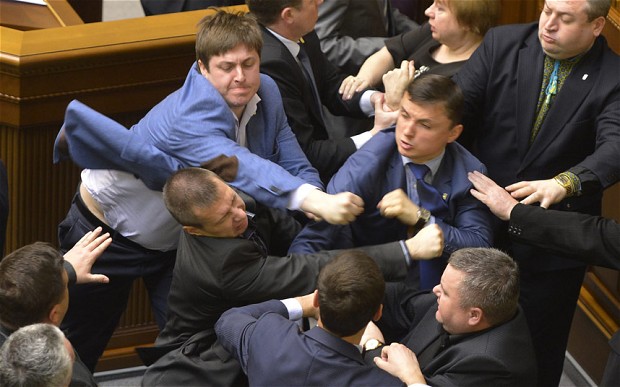 Ukraine crisis: It’s not just the Russians spoiling for a fight Ukraine crisis: It’s not just the Russians spoiling for a fight
"Here we go again” has been the reaction of most Western observers to the new crisis in Ukraine. Demands for a referendum on the status of largely Russian-speaking areas along the frontier have ominous echoes of the events leading to the Kremlin’s annexation of Crimea last month. Is Vladimir Putin replaying that scenario? Or is something more combustible gathering pace?
Unlike in Crimea, there is no clear demarcation between any would-be “Russian” republics in south-east Ukraine and the Ukrainian-speaking rest of the country. Nor are any Russian troops in place to back up separatists. Despite Western fears, Putin has shown a reluctance to move beyond taking easily digested chunks. He did that in 2008, when he sponsored the independence of tiny South Ossetia and Abkhazia after the five-day war with Georgia.
Despite its immense military value to Russia, Crimea, too, is small and clearly defined. The trouble is, by posing as the champion of discontented Russians there, Mr Putin has risked igniting uncontrollable aspirations elsewhere in Ukraine. Poking the West in the eye was wildly popular in Russia. But for a president whose domestic appeal is built on a tough-guy approach, Putin may alienate supporters if he now allows Ukraine’s pro-Russian demonstrators to be suppressed. His problem is that the Kremlin has little to gain from being drawn into an open-ended conflict in Ukraine. Even if Russia’s forces could quickly disperse resistance, guerrilla fighting would continue, because drawing up a neat boundary where Russians end and Ukrainians begin is impossible.
Even in the rust-belt south-east of Ukraine, the economic pressures that pull coal- and steel-workers towards Russia are why the region’s oligarchs still cling to Kiev: they fear being swallowed up by the big beasts of Russia’s economy. Although the terms of the EU Association Agreement were demanding enough, the oligarchs could see that integration into a Russian customs union would be curtains for them. Strikingly, Putin referred to his emasculation of Russia’s new rich in his first public comments after the revolution in Kiev. He blamed ousted president Yanukovych for failing to rein in his over-mighty economic subjects, as Putin had done in Russia. In fact, the new regime in Kiev appointed oligarchs as governors in restive regions, hoping they could pay for security forces, which a bankrupt Kiev could not. Since Ukraine’s police forces are still the ones who performed so woefully under Yanukovich, with their divided loyalties and an eye to who can pay most, effective crowd control is virtually impossible.
If Kiev were to assert its authority by deploying troops or the new paramilitary National Guard (necessarily drawn from western Ukraine) it could look like a “foreign” occupation to local Russians who have not taken part in the protests. And the pro-Western oligarchs are treading on egg-shells as they try to assert the nominal authority of Kiev and protect their business interests. It would be easy for Russia to stir up anti-oligarchic sentiment, since that is what the new rulers in Kiev were doing until a month ago. The oligarchs’ employees are not necessarily loyal to them. That may be why the country’s richest man, Donetsk-based Rinat Akhmetov, has been trying to calm both sides.
 US TO ALLOW SPOUSES OF H-1B VISA HOLDERS TO WORK US TO ALLOW SPOUSES OF H-1B VISA HOLDERS TO WORK
In a move that will benefit spouses of the large number of Indian techies working in the United States on H-1B visas, the Obama administration proposes to modify shortly some of the present regulations so as to allow spouses of the high-skilled foreign workers to work in the US.
Touted as a part of the USA’s new push to attract the world’s best and brightest talents, the move will fulfil a long-standing demand for work authorisation for the spouses. Owing to a host of stringent conditions, including work restrictions for spouses, many talented people are thought to be shunning America.
The White House announced on Monday that the Department of Homeland Security “will soon publish several proposed rules that will make the US more attractive to talented foreign entrepreneurs and other high-skill immigrants who will contribute substantially to the US economy, create jobs, and enhance American innovative competitiveness”.
“These proposed regulations include rules authorising employment for spouses of certain high-skill workers on H-1B visas, as well as enhancing opportunities for outstanding professors and researchers,” it said.
However, it is unlikely to be a blanket work approval for spouses of all H-1B visa holders, given that the statement speaks only of employment authorisation for spouses of “certain high-skill immigrants”.
The measures are said to build on other administrative efforts such as the launch of “Entrepreneur Pathways”, an online resource centre that gives immigrant entrepreneurs “an intuitive way to navigate opportunities to start and grow a business in the United States”.
The White House announcement came on a day when the US, as expected, ran out within a week its annual quota of 85,000 H-1B visas for the next American fiscal year, beginning October 1, 2014.
The US Citizenship and Immigration Services announced that it has received a sufficient number of H-1B petitions to reach the statutory cap for the 2015 fiscal year, including the 20,000 reserved for those with US Master’s or higher degrees.
The agency will run a random selection process from among the petitions received from April 1 to 7.
“A computer-generated process will randomly select the number of petitions needed to meet the caps of 65,000 visas for the general category and 20,000 under the advanced degree exemption,” the USCIS said, adding it will return filing fees of all those petitions that are not selected. The agency is still to determine a date for the random selection of petitions.
Over the years, Indian techies have been the predominant beneficiaries of the H-1B visa programme, accounting for more than 50 per cent of these visas. Indian IT giants with US subsidiaries such as Infosys, TCS and Wipro have garnered a large percentage of these visas, but have lately been subjected by the US Congress to closer scrutiny and higher visa fee in comparison to American firms.
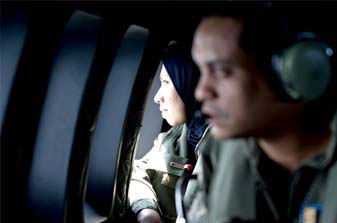 Ship hunting for more 'pings' in missing Malaysian plane search Ship hunting for more 'pings' in missing Malaysian plane search
Search crews were for the first time sending a sub deep into the Indian Ocean to try and determine whether faint sounds detected by equipment on board an Australian ship are from the missing Malaysia Airlines plane's black boxes, Australia's acting prime minister said Tuesday.
Warren Truss, Australia's acting prime minister while Tony Abbott is overseas, said the crew on board the Ocean Shield will launch the underwater vehicle, the Bluefin 21 autonomous sub, on Tuesday. The unmanned miniature sub can create a sonar map of the area to chart any debris on the sea floor. If it maps out a debris field, the crew will replace the sonar system with a camera unit to photograph any wreckage.
Angus Houston, who is heading the search, said Monday that the Ocean Shield, which is towing sophisticated US Navy listening equipment, detected late Saturday and early Sunday two distinct, long-lasting sounds underwater that are consistent with the pings from an aircraft's "black boxes" - the flight data and cockpit voice recorders. Houston dubbed the find "a most promising lead" in the monthlong hunt for clues to the plane's fate, but warned it could take days to determine whether the sounds were connected to Flight 370.
Crews have been trying to re-locate the sounds since Sunday, but have thus far had no luck, Truss said.
"Today is another critical day as we try and reconnect with the signals that perhaps have been emanating from the black box flight recorder of the MH370," he said. "The connections two days ago were obviously a time of great hope that there had been a significant breakthrough and it was disappointing that we were unable to repeat that experience yesterday."
Truss said the crew would use the sub Tuesday to examine the water in the search area in the hopes of another breakthrough.
Finding the black boxes is key to unraveling what happened to Flight 370, because they contain flight data and cockpit voice recordings that could explain why the plane veered so far off-course during its flight from Kuala Lumpur, Malaysia, to Beijing on March 8.
But time was running out to find the devices, whose locator beacons have a battery life of about a month. Tuesday marks exactly one month since the plane vanished.
"Everyone's anxious about the life of the batteries on the black box flight recorders," Truss said. "Sometimes they go on for many, many weeks longer than they're mandated to operate for - we hope that'll be the case in this instance. But clearly there is an aura of urgency about the investigation."
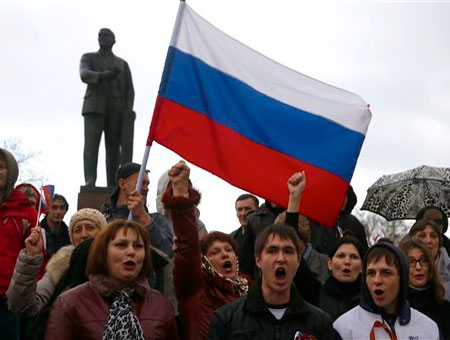 Stop pointing to Russia for troubles of Ukraine Stop pointing to Russia for troubles of Ukraine
Washington: After pro-Russian activists stormed government buildings in eastern Ukraine, the US has warned Russia that any further efforts to destabilise the ex-Soviet bloc would invite repercussions.
The warning for Russia came as USD Secretary of State John Kerry called up his Russian counterpart Sergei Lavrov and told him to “publicly disavow the activities of separatists, saboteurs and provocateurs".
US State Department spokeswoman Jen Psaki said that Kerry in the phone call warned Russia of costs in case it continued further efforts to destabilise Ukraine.
Reacting to the warning, Lavrov sought to defend Moscow in a Guardian article titled, “It's not Russia that is destabilising Ukraine”.
Furthe mocking the warning issued by the US and NATO members, Lavrov wrote in the article, “The world of today is not a junior school where teachers assign punishments at will. Belligerent statements such as those heard at the Nato foreign ministers meeting in Brussels on 1 April do not match demands for a de-escalation”.
“It is time to stop the groundless whipping-up of tension, and to return to serious common work,” he said.
Kerry's warning came a day after pro-Russian separatists had occupied the government buildings in three eastern Ukraine cities of Donetsk, Kharkiv and Luhansk on Sunday night.
In Donetsk, the separatists on Monday claimed the region as "people's republic" and declared a referendum call for secession from Ukraine on 11 May.
Crimea, the Black Sea Peninsula has undergone a similar referendum on March 16, and has now been annexed by Russia.
The recent tension in eastern Ukraine have reignited the concerns about Russian aggression with Ukrainian PM Arseniy Yatsenyuk accusing Moscow of plotting to destabilise the situation. The plan is for foreign troops to cross the border and seize the country, said Arseniy Yatsenyuk at an emergency cabinet meeting.
Ukrainian President Oleksandr Turchynov called the latest moves as a “Second wave” of Russian operation aimed at toppling the government in Ukraine.
He further blamed the unrest on Russia, accusing it of trying to “dismember” Russia.
Russian reacted saying it was closely monitoring the events in eastern Ukraine's Donetsk, Luhansk and Kharkiv regions, but rubbished the accusations of Russia being behind the unrest.
"Stop pointing to Russia, blaming it for all of the troubles of today's Ukraine," said the statement issued by Russian foreign ministry.
Russia had last month annexed the black sea peninsula ODF Crimea fter more than 97 percent people voted in favour of reuniting with the Russian Federation in a referendum called illegal by the West.
After Crimea takeover, there had been concerns about similar action in eastern Ukraine, which is also considered pro-Russian region.
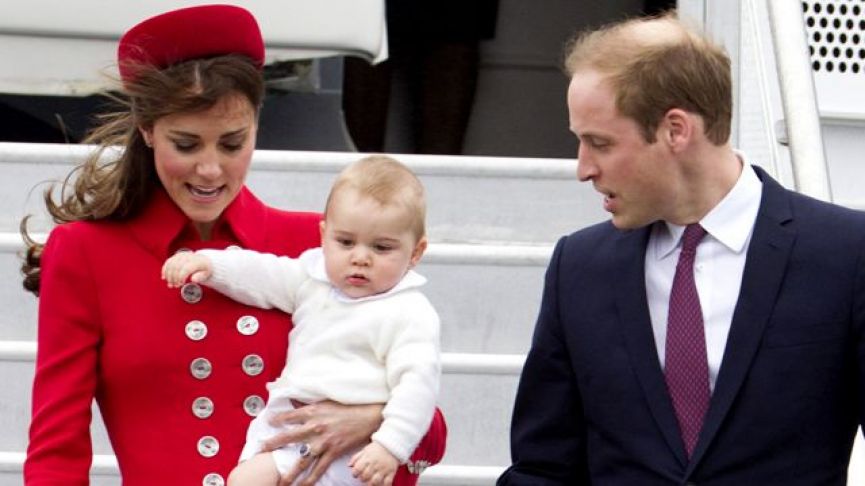 Prince William, Kate show off royal baby on trip to New Zealand Prince William, Kate show off royal baby on trip to New Zealand
SYDNEY – Britain's Prince William and his wife, Kate, have arrived in New Zealand's capital to cheers from locals who braved windy, rainy weather to catch a glimpse of the royal couple.
The Duke and Duchess of Cambridge landed in the fog-shrouded city of Wellington on Monday along with their baby son, George, to kick off a three-week tour of New Zealand and Australia.
Prime Minister John Key greeted the couple before they were whisked off to Government House where they received a traditional Maori welcome.
William and Kate plan to spend the next few weeks enjoying a wine tasting at a local vineyard, meeting with "The Lord of the Rings" director Peter Jackson, going on a jet boat ride and visiting Christchurch, which was devastated by an earthquake in 2011.
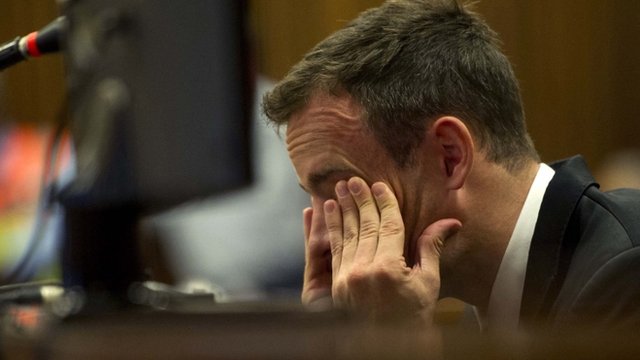 Oscar Pistorius apologises for killing Reeva Steenkamp Oscar Pistorius apologises for killing Reeva Steenkamp
An emotional Oscar Pistorius has apologised to the family of girlfriend Reeva Steenkamp, on the first day of his evidence at his murder trial.
In a trembling voice, he said he was "trying to protect" her and said he could not imagine the family's pain.Mr Pistorius said he suffered "terrible nightmares" and often woke up smelling Ms Steenkamp's blood.
Prosecutors say he killed her in February 2013 after an argument. He says he mistook her for an intruder.The athlete told Ms Steenkamp's relatives that there "hasn't been a moment since this tragedy happened that I haven't thought about your family".
"I wake up every morning and you're the first people I think of, the first people I pray for. I can't imagine the pain and the sorrow and the emptiness that I've caused you and your family.
"I was simply trying to protect Reeva. I can promise that when she went to bed that night she felt loved.
"I've tried to put my words on paper many, many times to write to you. But no words will ever suffice."
In the packed Pretoria courtroom, Ms Steenkamp's mother, June, sat stony-faced while he spoke.Mr Pistorius said he was taking anti-depressants and sleeping pills."I'm scared to sleep, I have terrible nightmares, I can smell blood and wake up terrified," he said.
He added that he never wanted to handle a gun again.The athlete, 27, told the court about his difficult childhood after being born with parts of both legs missing and needing to wear prosthetic limbs.
After a recess, Mr Pistorius was asked whether he and his family had been exposed to criminal acts.He said there had been many break-ins while he was growing up.
Mr Pistorius said on one occasion he was followed by a car into his gated community. He said he had his gun with him and the two men in the car had sped off.
On another occasion, he said he had drawn his firearm as he tried to protect a taxi driver who was being assaulted.
Mr Pistorius testified: "They started beating him with rocks in his face and in his head. At that point I jumped the lights. I hooted until I pulled up. I drew my firearm. I pointed it at the three people. They jumped in the taxi. They sped off."
Mr Pistorius said he was also attacked at a party in December 2012, and had to have stitches in the head.
Mr Pistorius then detailed how important religion was to him, saying: "When I met Reeva, I think it was just a blessing. I've always wanted to have a partner that was a Christian. She was a very strong Christian."
He then became emotional again as he said "my God's a God of refuge" and his counsel, Barry Roux, asked for an adjournment.
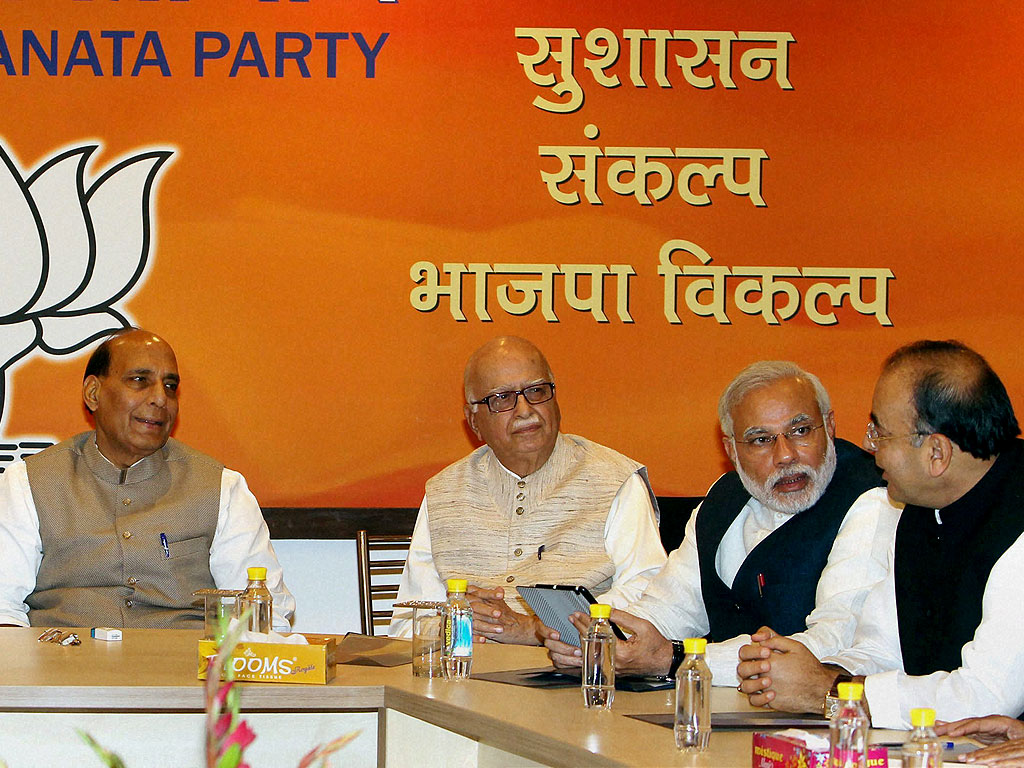 LIVE | BJP manifesto: economy focus, Ram Mandir according to constitution LIVE | BJP manifesto: economy focus, Ram Mandir according to constitution
The Election Commission has blocked the release of the BJP's manifesto in Assam and Tripura as the first phase of polling is underway in these two northeastern states.
Senior leader LK Advani and Sushma Swaraj, party president Rajnath Singh, prime ministerial candidate Narendra Modi and others were present during the release of the document at its headquarters in New Delhi.
Senior party leader Murli Manohar Joshi, who headed the BJP Manifesto Committee, told reporters that the focus is on five Ts in the party's manifesto - talent, tourism, trade, tradition and technology."Our country has moved backwards in the last 10 years. The BJP manifesto focusses on things that will help the country bounce back," Joshi said.
He added it also focuses on education, jobs, women empowerment and infrastructure saying it has been prepared after discussions with various stakeholders.
The BJP brought its focus back on the Ram Temple in Ayodhya with its "commitment to explore all possibilities to facilitate its construction".
"We will construct the Ram temple within the Constitutional framework," Joshi said.
It also called for a discussion on Article 370 with all stakeholders and said it will ensure return of Kashmiri Pandits with full dignity in the state.
He said except for multi-brand retail sector, FDI will be allowed in sectors wherever needed for job and asset creation.
"We need to create India as a brand because if India innovates, India leads," Joshi said.The BJP manifesto promised to put in place strict measures and special courts to stop hoarding and black marketing, said Joshi.
It also promised a national health insurance mission for accessible, affordable and effective health care for all in its poll document.
In the field of foreign policy, the BJP promised to pursue friendly relations with neighbours but said "won't hesitate from taking strong stand and steps when required".
It said the nuclear doctrine will be studied in detail and will be revised and updated to make it relevant to challenges of current times, Joshi said.
Joshi said BJP in its manifesto promises a uniform civil code for gender equality in the country.The BJP, in its manifesto, also assured effective implementation of UPA's pet projects - food security scheme and right to education.
 Sun Pharma-Ranbaxy deal to create a synergy of US$ 250 million in 3 years Sun Pharma-Ranbaxy deal to create a synergy of US$ 250 million in 3 years
Under the Sun PharmaBSE 1.59 % and RanbaxyBSE -4.61 % US$ 4 billion deal agreement, Ranbaxy shareholders will receive 0.8 share of Sun Pharma for each share of Ranbaxy. This exchange ratio represents an implied value of Rs 457 for each Ranbaxy share. There may not be much upside in the near-term as Ranbaxy's share is already trading at around Rs 450.
The company's share is trading at Rs 449, 2.2% down from its previous day's close. While Sun Pharma's stock is up 1.2%, and is trading at Rs 579, given the company past track record of acquiring and turning around businesses. However, in the long term, this is a win-win situation for the shareholders of both the companies. The acquisition is likely to create a synergy of more than US$ 250 million in 3 year according to Dilip Sanghvi promoter of Sun Pharma.
The combined entity will become bigger with stronger attention from the pharma industries including regulatory bodies, doctors and hospitals, especially in the US, which has been the focus of both the companies.
"If we look at the overall business it has a huge underlying potential and we believe that the valuation is justified." said Dilip Sanghvi, promoter of Sun Pharma. "We have to look at the overall business and not look at the temporary cost. I am confident of creating value for all shareholders."
Although, loss making for the last few years, Ranbaxy's major losses have been due to forex loss. The $ 4 billion deal includes the equity as well as debt on Ranbaxy's book which is around US$800 million.
Sun Pharma will benefit from the strong OTC counter of Ranbaxy, its presence in acute therapy segment and its strong presence in the emerging market, where Sun does not have a significant present as of now. Besides, Ranbaxy has a strong drug pipeline, especially in the US markets, awaiting approvals, which also includes first to file drugs, which enjoy exclusivity for a certain time frame.
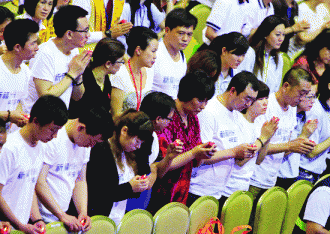 MH370 SKIRTED INDONESIA TO AVOID RADARS: REPORT MH370 SKIRTED INDONESIA TO AVOID RADARS: REPORT
Malaysia Airlines Flight MH370 flew around Indonesian airspace apparently to avoid detection after vanishing from radar screens on March 8, a media report said on Sunday, suggesting the possibility of a more sinister reason behind the jet’s disappearance.
Malaysian authorities, citing expert analysis of satellite, radar and other data available, concluded earlier that the ill-fated flight from Kuala Lumpur to Beijing ended in the southern Indian Ocean.According to previous information, the Boeing 777-200 aircraft turned back after disappearing from civilian radar in Vietnamese airspace, and was detected by Malaysian military radar in the northern Strait of Malacca before vanishing from all radar screens.
After reviewing radar data provided by neighbouring countries, investigators have now found that the jetliner curved north of Indonesia before turning south toward the southern Indian Ocean, CNN quoted a Malaysian official as saying.The official also suggested the possibility of a more sinister reason behind MH370’s disappearance a month ago.
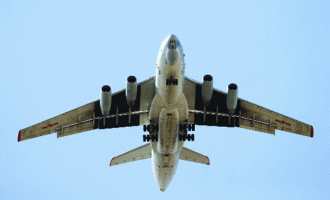 SHIPS TRYING TO VERIFY POTENTIAL ‘PINGS’ SHIPS TRYING TO VERIFY POTENTIAL ‘PINGS’
A number of ‘encouraging leads’ of electronic pulse detected in the southern Indian Ocean on Sunday prompted multi-national search teams to rush their hi-tech ships to the area to determine if these signals came from the black box of the crashed Malaysian plane.
In the search for the plane in the Indian Ocean, a Chinese patrol ship Haixun 01 picked up two signals, one on Friday and another on Saturday, that were only 2 kilometers apart, authorities said.Two naval ships carrying sophisticated deep-sea black box detectors are being sent to the area off western Australia where the pulses were reported to try to confirm or rule out whether they were from the missing plane’s flight recorders, Retired Air Chief Marshal Angus Houston told reporters.
“This is an important and encouraging lead,” said Houston, the head of the Joint Agency Coordination Centre (JACC) which is leading the search.The electronic pulses were consistent with those emitted by the pingers on an aircraft’s flight data and voice recorders, he said, but haven’t been verified as coming from Flight MH370.
Search teams are running against time as the batteries of the black box flight recorders have a life of about 30 days, meaning they will shut down in the next two days.The black box can provide audio record of what happened on March 8 before the Beijing-bound Malaysia Airlines jet with 239 people, including five Indians, crashed in the southern Indian Ocean.
Sounds also travel long distances underwater, Houston said, making it difficult to ascertain their sources. If detectors were near a pinger, it would also pick up the signal for a more sustained period.Houston also said that search authorities were informed today that Ocean Shield, an Australian naval vessel equipped with sophisticated listening equipment, has detected “an acoustic noise” in another area of the ocean.
The search co-ordinator insisted the latest developments should be treated as unverified “until such time as we can provide an unequivocal determination”.“We are working in a very big ocean and within a very large search area, and so far since the aircraft went missing we have had very few leads which allow us to narrow the search area,” he said.
HMS Echo, a British Navy ship equipped with advanced detection gear, is on its way to the area where the Chinese ship picked up the signals, Houston said. It is likely to arrive tonight. Australian planes are also headed to the area.
Ocean Shield, which has a high-tech pinger locator borrowed from the US Navy, will continue to pursue the sound it heard. If that lead turns cold, it will move to the other detection area, a journey that will take at least a day, Houston said.The signals are the latest leads in a huge, multinational hunt for Flight 370. Investigators have so far been unable to say why the plane flew far off course or where exactly it ended up.
Also on Saturday, a Chinese Air Force plane spotted a number of white floating objects in the search area. The plane photographed the objects over a period of 20 minutes after spotting them. The detection has been reported to the JACC.br />
 Biggest search yet for missing MH370 jet launched Biggest search yet for missing MH370 jet launched
Four weeks after the disappearance of a Malaysia Airlines jetliner, searchers on Saturday launched the most intensive hunt yet in the southern Indian Ocean, trying to find the plane's black box recorders before their batteries run out.
Up to 10 military planes, three civilian jets and 11 ships will scour a 217,000-sq-km (88,000-sq-mile) patch of desolate ocean some 1,700 km (1,060 miles) northwest of Perth near where investigators believe the plane went down on March 8 with the loss of all 239 people on board.
"If we haven't found anything in six weeks we will continue because there are a lot of things in the aircraft that will float," retired Air Chief Marshal Angus Houston, the head of the Australian agency coordinating the operation, told reporters.
"Eventually I think something will be found that will help us narrow the search area."
Authorities have not ruled out mechanical problems as a cause but say the evidence, including the loss of communications, suggests Flight MH370 was deliberately diverted thousands of kilometres from its scheduled route from Kuala Lumpur to Beijing.
Dozens of flights by a multinational taskforce have so far failed to turn up any trace of the plane, and investigators concede the task has been made more difficult by the lack of data.
The Boeing 777 was briefly picked up on military radar on the other side of Malaysia and analysis of subsequent hourly electronic "handshakes" exchanged with a satellite led investigators to conclude the plane crashed far off the west Australian coast hours later.
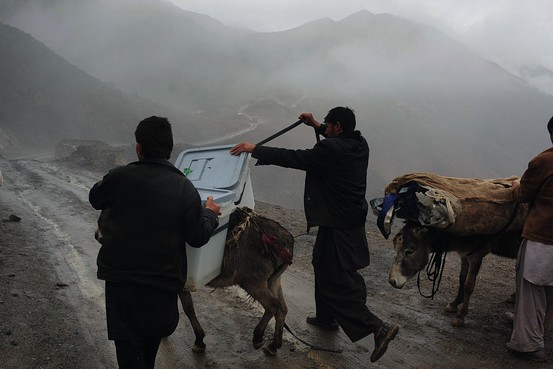 Afghanistan Votes in Presidential Election Afghanistan Votes in Presidential Election
Afghans began voting in Saturday's presidential election, torn between fears of Taliban violence and hopes for a cleaner government after what would be the first democratic transition in the country's bloody history.
An hour after voting opened at 7 a.m., long lines started forming at polling stations in Kabul, where voters were frisked by police before dipping their fingers in indelible ink and casting ballots.
"I am not afraid. We only die once," said hotel worker Jamil, 51, as he stood behind dozens of men at a mosque that served as a polling station in Kabul's Wazir Akbar Khan district. "We are voting to make clear our future, to choose a next leader who will bring us peace and security," echoed Mohammed Yussef, a 32-year-old hotel worker.
Saturday's election will pick a successor to President Hamid Karzai, who isn't allowed to run again. The Afghan president cast his ballot at a high school near his palace early in the morning, saying he hoped for a high turnout "despite the chilly weather and rain, and all the threats from the enemies of Afghanistan."
Though the Taliban have pledged to disrupt the vote, there were no reports of major violence in the initial hour of the election.
Over the past two weeks, the Taliban, who consider the election illegitimate because U.S. troops still remain in the country, have launched a series of deadly attacks, especially in Kabul. They've hit the national and provincial offices of the Independent Election Commission, the Ministry of Interior headquarters, a U.S. charity compound and the luxurious Serena Hotel, where many foreign election observers were based.
None of the three leading presidential candidates- former World Bank executive Ashraf Ghani and two former foreign ministers, Zalmai Rassoul and Abdullah Abdullah —are expected to win a majority Saturday, making a runoff between the two top vote-getters necessary in late May or early June.
Mr. Karzai is widely believed to be supporting Mr. Rassoul, whose campaign includes two of the president's brothers. Many Afghans fear widespread fraud during Saturday's vote—something that marred the 2009 presidential race.
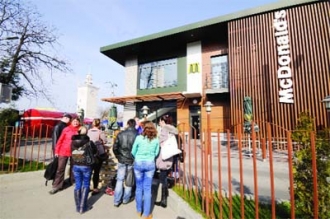 RUSSIA SAYS ALL UKRAINIAN SERVICEMEN LEFT CRIMEA RUSSIA SAYS ALL UKRAINIAN SERVICEMEN LEFT CRIMEA
All the Ukrainian servicemen stationed in Crimea were allowed to leave for mainland Ukraine but 8,000 military men stayed and applied for permission to join the Russian army, Russian Defence Minister Sergei Shoigu said in televised comments on Friday.
Russia annexed the Black Sea peninsula in March after Crimea residents voted overwhelmingly to seek to join Russia. The referendum was called two weeks earlier, coinciding with the military occupation of the region by armed men in unmarked uniforms.
Shoigu described claims that the Russian army has mistreated Ukrainian servicemen as “improper and provocative.”
Several senior Ukrainian officers including a military base commander were briefly detained by the Russian forces and kept in custody for several days. Moscow has never admitted that the thousands of troops roaming the peninsula, seizing the airports and putting up road blocks were in fact Russian. They wore no markings but some of them drove APCs with Russian number plates.
In what seems to be a cautious acknowledgement of the Russian military involvement in the peninsula, Shoigu said that Crimea faced “a threat to civilian lives and the threat of a seizure of the Russian military infrastructure by extremist organisations,” so Russia “took decisive actions” and “beefed up security of Russian military infrastructure in Crimea.”
He stopped short, however, of giving details but said the military “managed to prevent bloodshed.” Shoigu said Russia’s actions did not violate any international laws because Russia never exceeded the agreed amount of troops stationed on the peninsula.
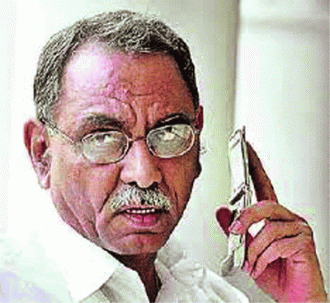 US INDICTS CONGRESS MP, FIVE OTHERS IN MAJOR BRIBERY CASE US INDICTS CONGRESS MP, FIVE OTHERS IN MAJOR BRIBERY CASE
Jury terms it $18.5 mn conspiracy to secure mining licences
In a new embarrassment to the Congress on the eve of general elections, a US grand jury has indicted a party MP from Andhra Pradesh and five others for an alleged international conspiracy to pay at least $18.5 million in bribes to State and Central Government officials to allow the mining of titanium minerals in Andhra Pradesh.
A federal indictment, returned under seal in June 2013 and unsealed on Wednesday in Chicago, charges KVP Ramachandra Rao, a Congress member of Rajya Sabha and close advisor to the late Chief Minister YS Rajasekhara Reddy, and five others with one count each of racketeering and money laundering conspiracy, and two counts of inter-state travel in aid of racketeering.
Apart from the 65-year-old Rao, others charged include Ukrainian gas tycoon Dmitry Firtash, aka DF, 48, US-based Indian national Gajendra Lal, 50, Hungarian businessman Andras Knopp, 75, Sri Lankan national Periyasamy Sunderalingam, 60, and Ukrainian national Suren Gevorgyan, 40. While Firtash, dubbed the leader of the enterprise, was arrested in Vienna, Austria last month and then released on bail, the other five defendants remain at large.
“Firtash allegedly met with Indian Government officials, including Chief Minister (YS Rajaeskara) Reddy, to discuss the project and its progress, and authorised payment of at least $18.5 million in bribes to both State and Central Government officials in India to secure the approval of licenses for the project,” charges the indictment.
Rao, it alleges, solicited bribes for himself and others in return for approving licences for the project, and that he warned other defendants concerning the threat of a possible law enforcement investigation of the project. It further alleges that Sunderalingam met with Rao to determine the total amount of bribes and advised others on the results of the meeting, and he identified various foreign bank accounts held in the names of nominees outside India that could be used to funnel bribes to Rao.
Noting that the alleged conspiracy by the six defendants began in 2006, the indictment goes on to list 57 transfers of funds between various entities in various amounts totalling more than $10.59 million beginning April 28, 2006 through July 13, 2010. Some of the entities were controlled by Group DF, belonging to Ukrainian industrialist.
Overall, the indictment estimates that the mining project was expected to generate more than $500 million annually from the sale of titanium products, including sales to an unnamed “Company A,” headquartered in Chicago.
“The defendants used US financial institutions to engage in the international transmission of millions of dollars for the purpose of bribing Indian public officials to obtain approval of the necessary licenses for the project,” the indictment alleges, adding: “They allegedly financed the project and transferred and concealed bribe payments through Group DF, and used threats and intimidation to advance the interests of the enterprise’s illegal activities.”
It said Firtash also directed his subordinates to create documents to make it falsely appear that money transferred for the purpose of paying the bribes was transferred for legitimate commercial purposes, and he appointed various subordinates to oversee efforts to obtain the licenses through bribery.
As for Lal, an Indian national with permanent residence in the US, the indictment alleges that he reported to Firtash and Knopp on the status of obtaining licenses, and recommended whether, and in what manner, to pay certain bribes to Government officials.
“Fighting global corruption is part of the fabric of the Department of Justice,” said Acting US Assistant Attorney General O’Neil, adding: “The charges against six foreign nationals announced today send the unmistakable message that we will root out and attack foreign bribery and bring to justice those who improperly influence foreign officials, wherever we find them.”
Firtash’s Group DF is described as an international conglomerate of companies owned by Group DF Limited, a British Virgin Islands company. Its companies include Ostchem Holding AG in Austria engaged in mining and processing minerals, including titanium; Global Energy Mining and Minerals Limited, a Hungarian company, and Bothli Trade AG, a Swiss company, for which Global Energy Mining and Minerals was the majority shareholder.
In April 2006, Bothli Trade and the Andhra Pradesh Government agreed to set up a joint venture to mine various minerals, including ilmenite, a mineral which may be processed into various titanium-based products such as titanium sponge, a porous form of the mineral that occurs in the processing of titanium ore.
In February 2007, Company A entered into an agreement with Ostchem Holding, through Bothli Trade, to work toward a further agreement that would allow Bothli Trade the ability to supply 5 million to 12 million pounds of titanium sponge from the Indian project to Company A on an annual basis, the indictment says, noting that the mining project required licences and approval of both the Andhra Pradesh state government and the central government of India before the licenses could be issued.
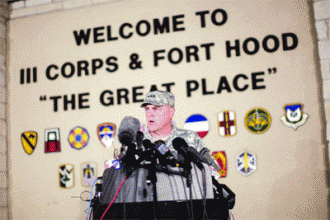 4 DEAD, 16 HURT IN US MILITARY BASE SHOOTING 4 DEAD, 16 HURT IN US MILITARY BASE SHOOTING
A US soldier on Thursday went on a shooting spree killing three colleagues and wounding 16 others at a major army base in Texas that was the scene of a deadly rampage in 2009.
The gunman, identified as Ivan Lopez (34) opened fire at two locations in Fort Hood —inside a building housing a medical brigade and in a facility belonging to a transportation battalion — prompting authorities to order a lockdown. The suspect, who had served in Iraq, "had behavioural health and mental health" issues, the Army post's commander Lt General Mark Milley said. He said there was no known motive for the shooting. "There is no indication that this incident is related to terrorism, although we are not ruling anything out," he said.
Milley said the incident began at the administration building for the medical brigade. The suspect then moved by car to the transport battalion. "He was confronted by a military police officer and died of a self-inflicted gunshot wound to the head in a parking lot," he said.
Milley said the suspect was carrying a .45 calibre Smith and Wesson semi-automatic pistol bought recently in the local area and not registered with the base, as is required.
Another US official said the shooter was wearing combat fatigues. The lockdown was lifted at the base about five hours later.Army Secretary John McHugh testified that the soldier appeared to have no connections to extremist groups.
He said Lopez was deployed in Iraq in the final months of the war but did not see combat. Lopez enlisted in the Army in June 2008 as an infantryman and later switched to being a truck driver which was the job he had in Iraq.
US President Barack Obama expressed sorrow that tragedy had once again struck the base. "We're heartbroken that something like this might have happened again," the president said. He promised to "get to the bottom" of the latest incident.
"We are going to do everything we can to make sure that the community at Fort Hood has what it needs to deal with the current situation, but also any potential aftermath," he said.The suspect, who served in Iraq for four months in 2011, had arrived in Fort Hood only in February, having moved from another installation in Texas.
In 2009, Fort Hood was the scene of the worst mass shooting ever to take place at a military base in the US. It left 13 people dead and more than 30 injured. The gunman, Major Nidal Hasan, a former army psychiatrist, was convicted by a military court and sentenced to death in August last year.
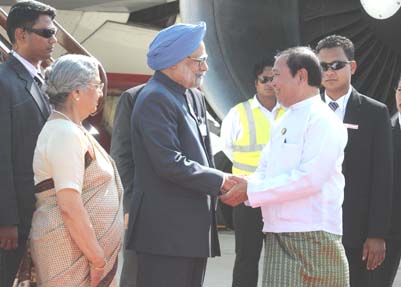 PM in Myanmar: Substantial talks with neighbouring nations on anvil PM in Myanmar: Substantial talks with neighbouring nations on anvil
APRIME MINISTER MANMOHAN SINGH ARRIVES IN MYANMARgencies, Nay Pyi Taw
Prime Minister Manmohan Singh’s visit to Myanmar to attend the third BIMSTEC Summit is likely to witness substantive bilateral discussions with neighbouring countries Nepal, Bangladesh, Sri Lanka, Bhutan and Myanmar, sources said today.
During his two-day visit to Myanmar, the PM will hold bilateral meetings with Nepalese Prime Minister Sushil Koirala, Sri Lankan President Mahinda Rajapaksa, Bangladesh Prime Minister Sheikh Hasina, Myanmarese president U Thein Sein and Bhutanese PM Lyonchhen Tshering Tobgay.
‘’Meeting with neighbouring countries like Nepal. Bangladesh, Sri Lanka, Bhutan and Myanmar will be substantive. For, we have a special relationship with our neighbours.
Our relations with them are not election-driven. So, the PM’s meetings with leaders of these countries will be a substantial one,’’ they said. Later in the day today, the PM will have a bilateral meeting with Mr Sushil Koirala.
‘’In the last three to four years, there have been a series of agreements between Nepal and India,’’they said, adding that the bilateral talks would involve discussions on them. ‘’The two leaders will also discuss future developments,’’they said.
‘’Security challenges, both natural and man-made, require our collective vision and determination to be overcome. Peace, stability and development in BIMSTEC countries, with over 20 per cent of the world’s population and over US$ 2.5 trillion worth of GDP, is indispensable for the forward march of Asia as a whole,’’ he said.
Noting that BIMSTEC has evolved and matured further as a group since the last Summit in New Delhi in 2008, the Prime Minister said,’’With the impending establishment of a Permanent Secretariat in Dhaka and appointment of a Secretary General, it is poised to play a more active role in regional integration and cooperation.’’ ‘’Several BIMSTEC centres are being launched throughout the region, including three in India, to foster greater technical exchanges between member countries,’’ Dr Singh said.
‘’In the security sphere, we have steadily put in place enabling legal instruments for regional approaches to international terrorism, transnational crime, drug trafficking and mutual legal assistance in criminal matters, the need for which is more salient in today’s integrated world than ever before. We set great store by BIMSTEC cooperation in the years ahead, for which this Summit should play a critical role.’’
During his visit to Myanmar, which is most likely to be his last foreign visit during the tenure of the UPA-II at the Centre, the Prime Minister is expected to hold bilateral meetings with his counterparts from the neighbouring countries— Sri Lanka, Nepal and Bangladesh.
 Narrow escape for Pervez Facebook to buy WhatsApp for $19 bln in deal shocker Narrow escape for Pervez Facebook to buy WhatsApp for $19 bln in deal shocker
Facebook Inc(FB.O) will buy fast-growing mobile-messaging startup WhatsApp for $19 billion in cash and stock in a landmark deal that places the world’s largest social network closer to the heart of mobile communications and may bring younger users into the fold.
The transaction involves $4 billion in cash, $12 billion in stock and $3 billion in restricted stock that vests over several years. The WhatsApp deal is worth more than Facebook raised in its own IPO and underscores the social network’s determination to win the market for messaging.
Founded by a Ukrainian immigrant who dropped out of college, Jan Koum, and a Stanford alumnus, Brian Acton, WhatsApp is a Silicon Valley startup fairy tale, rocketing to 450 million users in five years and adding another million daily.
“No one in the history of the world has ever done something like this,” Facebook Chief Executive Mark Zuckerberg said on a conference call on Wednesday.
Zuckerberg, who famously closed a $1 billion deal to buy photo-sharing service Instagram over a weekend in mid-2012, revealed on Wednesday that he proposed the tie-up over dinner with CEO Koum just 10 days earlier, on the night of February 9. WhatsApp was the leader among a wave of smartphone-based messaging apps that are now sweeping across North America, Asia and Europe. Although WhatsApp has adhered strictly to its core functionality of mimicking texting, other apps, such as Line in Japan or Tencent Holdings Ltd’s (0700.HK) WeChat, offer games or even e-commerce on top of their popular messaging features.
The deal provides Facebook entree to new users, including teens who eschew the mainstream social networks but prefer WhatsApp and rivals, which have exploded in size as private messaging takes off.
“People are calling them ‘Facebook Nevers,’” said Jeremy Liew, a partner at Lightspeed and an early investor in Snapchat.
How the service will pay for itself is not yet clear.
Zuckerberg and Koum on the conference call did not say how the company would make money beyond a $1 annual fee, which is not charged for the first year. “The right strategy is to continue to focus on growth and product,” Zuckerberg said.
Zuckerberg and Koum said that WhatsApp will continue to operate independently, and promised to continue its policy of no advertising.
“Communication is the one thing that you have to use daily, and it has a strong network effect,” said Jonathan Teo, an early investor in Snapchat, another red-hot messaging company that flirted year ago with a multibillion dollar acquisition offer from Facebook.
“Facebook is more about content and has not yet fully figured out communication.”
 U.S.: Attack on army base, 4 dead U.S.: Attack on army base, 4 dead
Houston: American Four people were killed in a shootout at an army base while 14 people were injured. Being told yesterday that the Fort Hood base in Texas state army uniforms carried out the attack by an unknown assailant. While U.S. President Barack Obama expressed sorrow over the attack expressed sympathy to the family of the dead.
Texas Rep. Michael McCall said officials identified the attacker as the Ivan Lopez. However, the motive behind the shooting is not known yet. Fort Hood officials did not give details of the incident, but said that among the casualties, possibly including Hmlwar. Base after the news of firing at the local, state and federal authorities in Texas were diverted to the army base in Killeen.
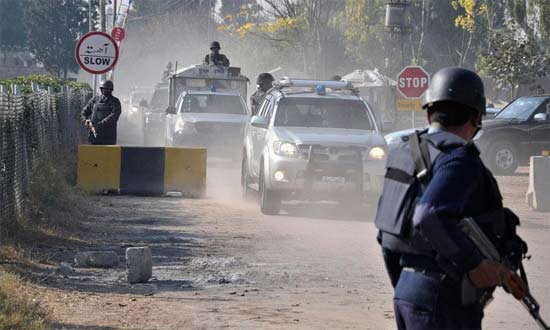 Child bombings - Musharraf survived, had six kilos of explosive bombing plot Child bombings - Musharraf survived, had six kilos of explosive bombing plot
Islamabad.'s Attempt on former President Pervez Musharraf. Faizabad Bridge on Thursday in Islamabad blast on his motorcade was passing through. Kordioloji Armed Forces Institute of Musharraf and his farmhouse at Chak Shahzad was being taken. The powerful bomb exploded while crossing the bridge. Although Musharraf Child - Child escaped.
According to Dawn News, bang four to six kilograms of explosives were used. This route was put in the pipeline. Musharraf to blast targeting police obeyed. So far there is no news of any casualties.
Faizabad is located on VVIP Road Bridge. Farm explosion occurred just three kilometers away. Police said the blast was so powerful that made a big dent on the spot. Islamabad police chief last March 10 and Tehreek-e-Taliban Pakistan Home Ministry had warned (TTP) and al-Qaeda is trying to attack Musharraf. In this case it was even written a letter to the Punjab Home Secretary. After the attack on Chak Shahzad farmhouse has tightened security.
The Army General Hospital of heart disease are treated. The Sharif government to receive treatment abroad and to see her ailing mother in Sharjah, had sought permission to leave the country. The government has rejected it.
The three-judge bench of the Sindh High Court last March 31 on charges of treason, Musharraf has also been fixed. However, the government decided to leave the country on their left.
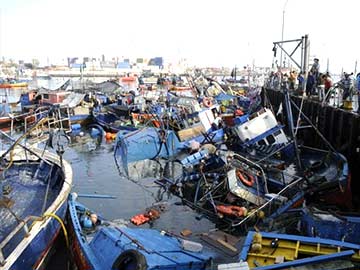 LIVE: President evacuated from hotel after 7.8-magnitude aftershock hits Chile LIVE: President evacuated from hotel after 7.8-magnitude aftershock hits Chile
11:10 am: President Michelle Bachelet evacuated after the strong aftershock
Chile President Michelle Bachelet was among those evacuated after a strong aftershock of 7.8 magnitude hit the port of Iquique a day after Tuesday's strong tremor.
President Bachelet was evacuated from her hotel in the northern city of Arica, where she had visited the affected families.
10:40 am: More aftershocks in the offing?
The USGS said that moderate aftershocks measuring 5.6 and 5.6 on Richter scale hit near the same area after the aftershock of magnitude 7.8. Both the aftershocks were located around 70 to 75 km (43 to 46 miles) southwest of Inquique.
An expert had told the CNN that the 8.2 magnitude quake that rocked Chile yesterday was not "the big one" that they are expecting over the area which has been witnessing tectonic shifts for over 140 years.
So, more and mightier aftershocks are expected to be waiting in the wings.
9:00 am: Chilean northern coast hit by strong aftershock
A day after a massive earthquake measuring 8.2 on Richter scale hit the northern coats of Chile, a strong aftershock of 7.8 magnitude rocked the port of Iquique, said the US Geological Survey.
According to the USGS, the aftershock’s epicenter was 14 miles (23 kilometers) south of Iquique and had a depth of 12 miles (20 kilometers).
Just 45 minutes before this aftershock, a strong 6.4-magnitude quake had also hit the same area.
8: 30 am: Japan hit by minor tsunami after Chile quake
Minor tsunami waves measuring upto 40 centimetres hit Iwate prefecture on the Pacific coast of northeastern Japan on early Thursday morning, reported the Xinhua.
The first wave that hit the Kuji port of Iwate prefecture was of 20 cms and lashed at 6:52 am local time after which many bigger waves were seen, added the report.
The Japan Meteorological Agency had yesterday issued a tsunami alet and expected the waves upto one metre (three feet) above normal sea levels.
Chile, one of the most earthquake-prone nations in the country was rattled by a strong earthquake of magnitude 8.2 on Tuesday, followed by several aftershocks. A small tsunami was also sparked that forced evacuations along the Pacific Coast.
The area has been under tectonic activities for two weeks as the tremors have been visiting since a strong magnitude-6.7 quake on March 16 that led to evacuations along the low-lying areas.
Chile is unfortunately placed on the "Ring of Fire," an arc of volcanoes and fault lines around the Pacific Basic, making it vulnerable to earthquakes and volcanoes.
Chile was in 2010 hit by a giant earthquake that measured 8.8 on Richter scale and the tsunami triggered by it toppled buildings. 500 were killed in that quake.
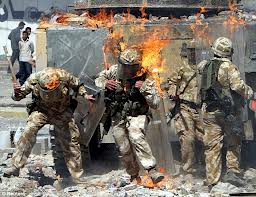 Iraq: 8 killed in bomb blast Iraq: 8 killed in bomb blast
Baghdad: Iraq bomb blasts at several places in eight people have been killed. Described the horrific attack that took place in the town of Riyadh. During the military recruit suicide bomber blew himself up. Authorities informed of the fact that the blast killed five people and wounded 14. Other places where three people were killed in the blasts.
The Taliban is against parliamentary elections in Iraq this month. In a country with which he is carrying out these attacks.
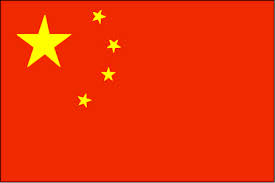 China: 21 killed in rain China: 21 killed in rain
Beijing in China torrential rains have killed 21 people, four people are reported missing. Several days of rain here fiercely 6,600 people have fallen emergency assistance was required to house the 1,600 and 55,000 have been damaged.
Ministry of Civil Affairs said in a statement that seven provinces of China - Fujian, Jiangxi, Hunan, Guangdong, Guangksi, Chongkwing and Guijao 11.6 million people were affected by the severe rains and 17,000 people had to leave their home. Floods 47,600 hectares of crops damaged. Last week 300 mm rainfall in some areas since Thursday. Weather officials said heavy rain this week is expected to continue.
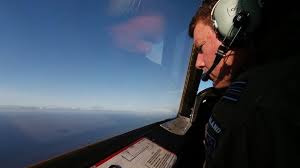 Plane Incident: 'Something unusual was Plane Incident: 'Something unusual was
KUALA LUMPUR: Malaysia March 8 Lapat wreckage of the plane could not find anything about yet. Aircraft crashed while being told that the last communication between pilots and air traffic control statement something unusual not Was. Full details of the communication related to aircraft issued by the Malaysian authorities and the Malaysian Three Seven Last Words'' Good night before was told Zero'' while the final message was, which has more word'' Good night'''s All Right informal were.
Acting Transport Minister Hishamuddin Hussein said in a statement,'' We Kuala Lumpur MH 370 communications between air traffic control and full details are released.'' He said,'' No sign of anything unusual in the dialog 've got. "
Meanwhile, Australia's Defence Minister David Johnston said the Australian navy ship Ocean Shield will take two to three days to reach the search area. A locator for locating the vessel has engaged indicators. Missing plane today, the 24th day of exploring. Aircraft blackbox life of batteries is approximately 30 days. Blackbox in nearly eight hours of battery will stop working.
 Madhuri were awarded across seven seas Madhuri were awarded across seven seas
London: Bollywood Mallika - e - beauties Madhuri Dixit said the Indian film industry's most inspiring female figure. UK-Bradford in Bradford -3 Inspireshnl Women Award "was awarded to Madhuri.
Madhuri Dixit said on express my gratitude to all people. I am grateful to be selected for this award. It is a great honor.
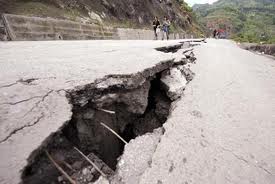 Tsunami warning after earthquake in Chile Tsunami warning after earthquake in Chile
Santiago: Chile tremendous There is a danger of a tsunami from the quake. Ricattr 8.2-USGS measured the quake's intensity scale. Because of such magnitude earthquake in Chile, including neighboring countries have been high alert. The intensity of the 8.2-USGS earthquake is likely that this effect may occur in the coastal areas of neighboring countries.
While Chile has begun to evacuate coastal areas. Being told that nearly six and a half feet high in the Chilean sea - getting up high waves. These waves are expected to grow.
The U.S. Geological Survey said the quake's epicenter was at 10 km below sea level. This place Ikvikyu mining area, 86 km north - west.
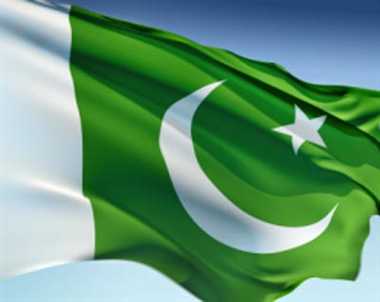 Hindu ashram attacked in Pakistan Hindu ashram attacked in Pakistan
Karachi. About four people in Pakistan's Sindh province attacked a Hindu ashram. On Monday, a media report said that these people had also stolen trident Ashram. Performed by people in the protest and partial closure of businesses also showed some places.
The Raiders dominated the Hindu ashram Tharparkr Brhm laid across the district mystic fabric wrapped around the statue has also violated.
The event took to the streets in protest against the Hindu community. They picketed Mithi K Square. Deeplo, Islamkot and Chachro markets closed cities. Tharparkr protesters who led the king of the Hindu Panchayat BHAWAN Express Tribune newspaper quoted to have said that all parts of Sindh under a conspiracy is being targeted people of this community.
He said the government to expose about the people involved. Tharparkr Munir Sheikh, SSP said the police arrested four suspects and recovered the stolen trident.
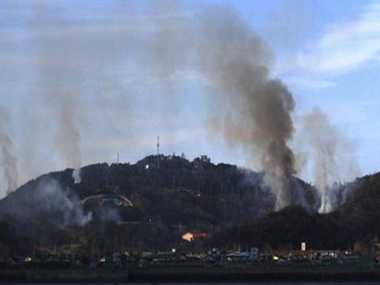 Fire between North and South Korea Fire between North and South Korea
Seoul. Between North Korea and South Korea was firing on Monday disputed western sea border. South Korea accused North Korea of explosives during military exercises in the area fell coastlines.
South Korea's Joint Chiefs of Staff (JCS) spokesman said: "North Korea's artillery shells fell on our side. In response, we fired. Been long enough firepower from both sides. "Pyongyang's Live - Fire Drills notice was sent via fax to the Navy in Seoul. Circumstances such as military firing exercises are absolutely real.
However, soon after the JCS warned that any explosion during military exercises came at him so he would retaliate.
South Korea's border islands as a precautionary measure Yonpyong and Bengyong people have been asked to vacate the house. North Korea's military exercises began at 8.45 am local time this morning. Just 30 minutes after the cannon in response to South Korea Segole Barsana started. North Korea is usually a live-fire practice, but it is an unusual step. Yellow Sea (Yellow Sea) border between the two countries has always been a point of conflict. Korea's western maritime boundary line set by the United Nations after the war, but North Korea has never accepted it.
In recent weeks, Pyongyang, South Korea - US joint military exercises have tested several short-range missiles. North Korea recently threatened to test new ways.
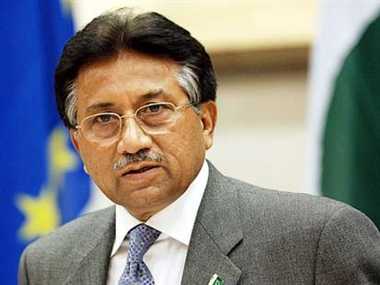 Musharraf was treason, charged Musharraf was treason, charged
Islamabad. Pakistan's former president and army chief General Pervez Musharraf treason against him, the court charged with shock is turned on. The former president is believed to be a major setback for it. The Court held that Musharraf imposed emergency in 2007 was wrongful. Although Musharraf has denied the charges.
The former military chief was so try to avoid these charges, but it did not survive. The Court rejected the plea of ??Musharraf's disease barred from leaving the country.
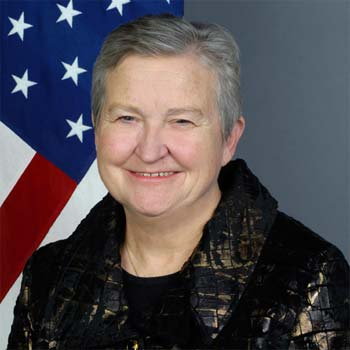 Modi hesitate Nancy Powell, U.S. Ambassador to India resignation Modi hesitate Nancy Powell, U.S. Ambassador to India resignation
New Delhi, India. U.S. Ambassador Nancy Powell elections, resigned on Monday amid the bustle. According to the mission statement on the website of the U.S. Embassy in Powell announced that the Town Hall Meeting. President Barack Obama has submitted his resignation. However, nothing has been said about the causes.
U.S. BJP leader Narendra Modi is believed to be important in view of the anti-stance. Modi the prime ministerial election surveys and estimates are described favorites. A few days ago, there were speculations in the media Powell deletion. Was expected to improve relations with India, the U.S. may appoint someone else to replace Powell.
Powell met Gujarat Chief Minister Narendra Modi has hesitated. UPA's foreign policy is considered to be close to them. Modi's initiative to improve relations with the U.S. government under Modi Powell met in February last year. The 2002 Gujarat riots, Modi was the first meeting of the American diplomat. After the riots in 2005, the U.S. had refused to grant visas to Modi. Since then the visa ban.
No differences: The Obama Administration
The Obama administration has denied reports that Nancy Powell resigned due to differences with him. They said that there is no truth. He is retired after a remarkable career of 37 years.
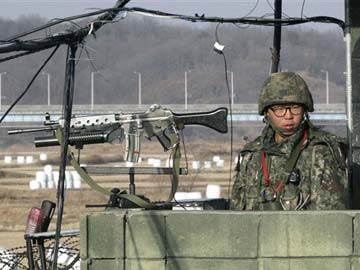 North and South Korea Exchange Fire Across Disputed Sea Border North and South Korea Exchange Fire Across Disputed Sea Border
SEOUL, South Korea — North Korea conducted extensive live-fire military drills off its southern coast on Monday, some of its artillery shells falling south of the disputed sea border with South Korea, in a military provocation that came a day after the North threatened to conduct more nuclear tests.
Marines in South Korean border islands fired back, launching artillery shells north of the disputed sea border, the South Korean military said.
South Korean officials said on Monday that the shells from both sides appeared to have fallen harmlessly into waters from which naval and fishing boats have stayed clear.
Such exchanges of artillery in the disputed waters were not unprecedented, but rising military tensions there indicated that after months of a relative lull, hostilities between the two Koreas have begun ratcheting up again. And they raised fears that the often-repeated cycle of peace overtures and provocations turned its wheels once again on the divided Korean Peninsula.
Citing the joint military exercises Washington and Seoul started in late February as a justification, North Korea has test-fired a series of rockets and short- and midrange ballistic missiles in recent weeks.
The tests prompted the United Nations Security Council to warn last week of more censure against the country, which is already under heavy sanctions.
On Sunday, Pyongyang lashed out by threatening “a new form of nuclear test” and warning that its Korean People’s Army would conduct drills aimed at improving its ability to attack mid- and long-range targets with “more diversified nuclear deterrence” and “with a variety of striking power.” Earlier Monday, it declared seven live-fire zones along the disputed sea border hugging the southern coast of North Korea and warned South Korean fishing boats out of the areas.
The western waters are the most dangerous flash points along the border between North and South Korea. A string of South Korean islands, guarded by marines and heavy artillery, lie just south of the maritime border and within the range of massive arrays of North Korean coastal guns and rocket launchers. The waters were the scene of several naval skirmishes in recent years and an artillery duel in 2010.
The firing zones North Korea had earlier announced lie north of the “northern limit line,” or N.L.L., the sea border South Korea tried to defend, although North Korea does not recognize it.
“We told the North that we will respond powerfully if any of its firing violates the N.L.L.,” the South Korean military had said in a statement earlier Monday.
In 2010, North Korea fired hundreds of artillery rounds into disputed waters, some of them falling south of the N.L.L. Later that year, it shelled one of the South Korean border islands, killing four people and prompting the South to retaliate with its own artillery barrage at North Korean gun positions.
There was no sign of an imminent nuclear test from North Korea, but the South Korean military was operating an emergency response system to promptly handle North Korean provocations, the South Korean Ministry of National Defense said on Monday. The impoverished Communist government has conducted three underground nuclear tests since 2006.
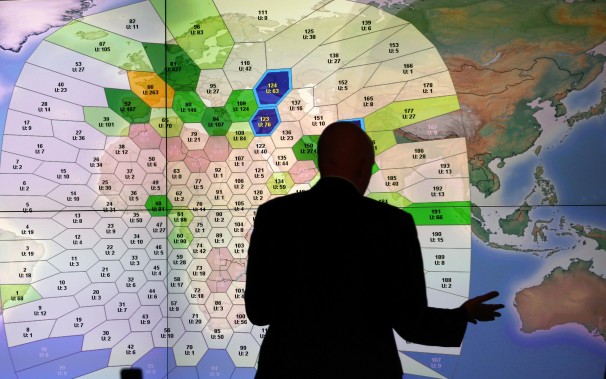 Search for Flight 370 is a global struggle Search for Flight 370 is a global struggle
KUALA LUMPUR, Malaysia — Brandon Yaeger sees something in the distance, glistening on the surface of the Indian Ocean. He can’t tell what it is. It could be nothing significant. Or it could be what’s left of Flight 370.
Yaeger is a 21-year-old U.S. Navy aircrewman, flying 1,000 feet above the sea in a P3 Orion, a surveillance aircraft. His job is to look out the porthole for debris from the missing Malaysia Airlines jet. He races to the front of the plane and tells his superiors that something is out there.
Crews in five aircraft searching for missing Malaysia Airlines Flight MH370 have spotted debris in the southern Indian Ocean following a shift in the search area for the missing jet.
Crews in five aircraft searching for missing Malaysia Airlines Flight MH370 have spotted debris in the southern Indian Ocean following a shift in the search area for the missing jet.
Click here to subscribe.
The Orion banks and descends to 500 feet above water. A video camera sits under the plane’s nose. It sends high-resolution images to the crew members’ computer monitors. They realize what is down there: plastic bags and twine, tangled in seaweed.
So the search continues. And continues. It is a search of extraordinary scope, truly a global enterprise, with elements at sea, in the air and in space, and encompassing investigatory agencies from Washington to London to Kuala Lumpur. At least 30 nations have participated. But as of Sunday, the plane still had not materialized.
The primary search area keeps moving — and Friday it moved again, lurching 700 miles to the northeast off the western coast of Australia. For the families of the 239 people on the missing jet, the constant twists and turns are agonizing.
For the searchers, this has been a struggle marked by an occasional breakthrough and repeated false leads and dashed hopes. It has proceeded on several tracks. One involves about 140 ships and planes that have scoured sea and land. Another includes scientists and engineers probing ambiguous radio signals, trying to find meaning in the noise and somehow define the area where the plane could have flown.
This report is a look at the searchers’ race against time, glimpsed through the efforts of a young U.S. Navy aircrew flying out of Malaysia and a group of engineers, mathematicians and astrophysicists working more than 6,000 miles away, at the London headquarters of the satellite firm Inmarsat.
“Every time we see something, we all get excited,” said Lt. Chris Kovach, 31, from Berwick, Pa., one of the pilots on the Orion. But on a recent afternoon, it was clear that the lack of results had taken a toll.“It does get discouraging, because we want to help the families get closure,” he said.
The South China Sea
On Saturday, March 8, the Orion’s 11 crew members were on standby duty at their base on the Japanese island of Okinawa. At 8 p.m., they were told to get ready. A passenger jet en route from Kuala Lumpur to Beijing had disappeared northeast of the Malaysian peninsula early that morning.
Within a few hours, the Orion crew — known as Naval Patrol Squadron (VP) 46, or the Grey Knights — was in the air. The Orion carried life rafts equipped with food, water and flares to drop to potential survivors. By that afternoon, on March 9, they were over the South China Sea northeast of the Malaysian peninsula, searching the waters.
Yaeger, from Gunnison, Utah, population 3,300, was excited to be part of the growing search-and-rescue operation. His great-grandfather fought in World War II, his grandfather saw combat in Korea, and his father had helped guard NATO’s nuclear warheads in Germany.
“It is awesome to do something in a real-world scenario, where I can make a difference,” he later said.
Potomac, Md.
That same Sunday, sitting at his kitchen table in Potomac, Md., John Mackey started to realize the enormousness of the unfolding mystery. He runs network operations for Inmarsat and shuttles between its offices in London and Washington.
As the 47-year-old engineer drank his coffee and ate a bagel, he scrolled through the e-mails on his smartphone. One was from the company’s ground satellite station in Australia. A technician had captured some data from a Malaysian flight.
Then Mackey read the news about Flight 370.
Something didn’t make sense: The Malaysia Airlines plane had vanished from civilian radar at 1:21 a.m. Saturday, but the data showed that the aircraft was still communicating with the satellite well after it was due in Beijing five hours later.
Where on earth was the plane?
“I just started to think about all the people who were on that plane and what might have happened,” Mackey said. “It was just terrible.”
The Malacca Strait
Back in Kuala Lumpur that day, Malaysia’s air force chief, Gen. Rodzali Daud, said at a news conference that a puzzling piece of information had emerged from military radar. The Malaysia Airlines plane “may have made a turn back,” Rodzali said. He gave no details.
Authorities redirected some ships and planes to the seas between the west coast of Malaysia and eastern Indonesia. But days passed before authorities finally revealed what their military had found: There had been a radar blip at 2:14 a.m. Saturday in the Malacca Strait, off the Malaysian peninsula’s northwest coast. The plane probably wasn’t in the South China Sea after all.
Some countries were upset at Malaysia’s chaotic and contradictory release of information. But morale was high among the Grey Knights. They followed their orders to shift to the new search zone, which gradually expanded west into the Indian Ocean.
Yaeger normally works as an acoustic operator, trained to don headphones and listen for the sound of submarines. For this mission, though, he was using his eyes, surveying the ocean, back and forth.
In the cockpit, pilot Kovach was doing the same thing. The constant scanning messes with your mind a bit, he would later tell a reporter.
“Sometimes you see something — your mind starts fabricating stuff,” he said.
London, March 11
At Inmarsat’s black-glass headquarters in London’s “Silicon Roundabout,” a hub of high-tech companies, there was suddenly a breakthrough.
Four teams had been working day after day, sketching out calculations on whiteboards, studying Google Earth maps and clicking through Excel spreadsheets to try to interpret their satellite data.
The main communication systems on the Malaysia Airlines plane had been turned off or disabled during the flight. But the jet had something called Classic Aero, which sent an hourly “handshake” to a ground-based radio antenna, via Inmarsat Satellite 3F1 above the Indian Ocean. There were six “handshakes” after the plane disappeared.
Each transmission was just a burst of radio waves. It didn’t show where the plane was.
But Tuesday morning, March 11, one of the Inmarsat teams approached Ruy Pinto, a Brazilian-born scientist who is the company’s chief operations officer. The team members thought that if they made certain assumptions about the plane’s speed and direction, they could map out a north-south corridor the plane may had traveled along.
“They immediately recognized the importance of what they had found,” Pinto later recalled.
That day, Inmarsat passed the information to Malaysia Airlines’ information management firm, Sita. Four days later, Prime Minister Najib Razak announced that the search area had shifted again — to two vast curving swaths of territory, one stretching north from Thailand to Kazakhstan, the other south into the Indian Ocean.
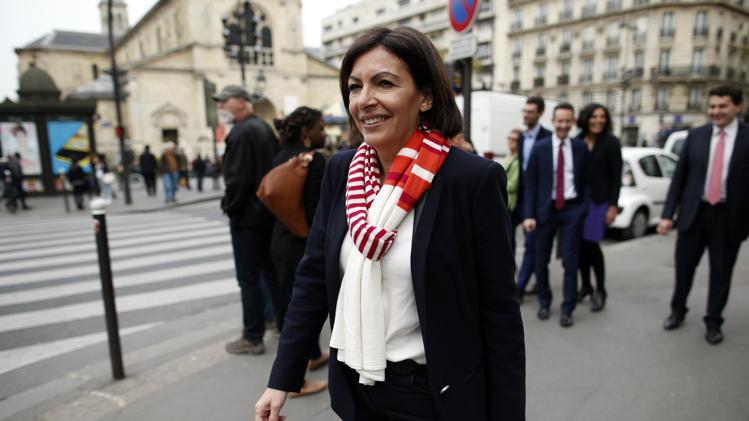 Paris gets first female mayor as concierge bites back Paris gets first female mayor as concierge bites back
PARIS: It was a victory to savour. As she bid to become the first female mayor of Paris, Spanish-born socialist Anne Hidalgo had to endure taunts from her opponents about her modest origins and lack of Parisian roots.
But in the end, voters in the French capital brushed such snobbery aside and defied the national trend by electing the 54-year-old by a convincing margin.
Hidalgo had been expected to be run extremely close by her centre-right rival, glamorous former minister Nathalie Kosciusko-Morizet, on a night when the socialists took a beating from voters across the country because of the unpopularity of President Francois Hollande's government.
But Hidalgo emerged with nearly 55 percent of second-round votes in the capital, comfortably seeing off Kosciusko-Morizet's challenge.
An old school feminist socialist, Hidalgo has spent the last 13 years as a low-profile deputy to current mayor Bertrand Delanoe.
Her party aparatchik image was seen as an electoral handicap but her serious manner and promises to boost social housing and childcare provision within the city centre appear to have struck a cord with the capital's residents in these tough economic times.
"Mine was a victory for authenticity, a victory for a a left loyal to its principles and effective at implementing them," Hidalgo said after securing membership of the exclusive club of women who have taken charge of major cities around the world.
Members currently in office include Ana Botella, the mayor of Madrid, Cape Town's Patricia de Lille and Carolina Toha, who runs Santiago, Chile.
Born near Cadiz in the southwestern corner of Spain in 1959, Hidalgo moved to France as an infant and grew up in a working class suburb of Lyon.
As a child, she spoke Spanish to her parents and French to her sister. She became a French national at the age of 14, dropping her native Christian name Ana in favour of the more traditionally French Anne. She has been known to approvingly quote the words of writer Sacha Guitry: "Being a Parisian is not about being born in Paris, it is about being reborn there."
After working as a works inspector, Hidalgo became an advisor to former Labour minister Martine Aubry, the architect of France's 35-hour working week.
But she was a relatively late entrant to the Socialist Party, only signing up in her mid-30s when the party was under the leadership of Lionel Jospin — a leader who had a similar unflashy style and reputation for integrity.
After Hollande was elected president in 2012, Hidalgo was widely tipped for promotion to ministerial office. She opted instead to remain at City Hall and wait for the opportunity to take over from Delanoe.
Her rival Kosciusko-Morizet did herself no favours by characterising their battle as one between "between the star and the caretaker" — a remark that was seen as a catty reference to Hidalgo's Iberian heritage (the concierges of Paris apartment buildings having, until recently, often been immigrants from Spain and Portugal).
Hidalgo hit back by accusing NKM of being part of a privileged "caste" cut off from the real world, and it was a label that stuck to the centre-right candidate.
From a wealthy establishment family, NKM was widely lampooned for describing the Paris metro as a "charming place" — to the disbelief of harassed rush-hour commuters.
The battle also focused on sharply contrasting approaches to the city's financing, with NKM having pledged to cut the number of public sector workers to liberate funds for plans to enhance the city centre's status as the world's favourite tourist destination.
Hidalgo has promised major investment in housing, transport and green spaces, with the aim of reversing a middle and working class exodus to the suburbs.
She has promised to create 10,000 new social housing units and 5,000 kindergarten places.
Her administration will also have a distinctly Green tint to it as a result of a deal she did after the first round. Under the pact, the Greens are expected to double their representation on the council that oversees the mayor's work and take around one fifth of the deputy mayor posts on the city's executive.
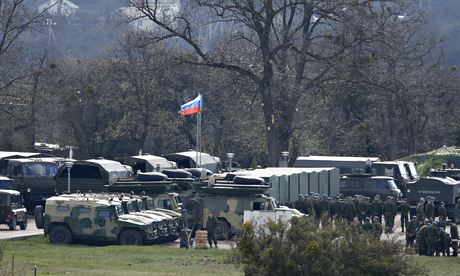 Obama: Russia must pull back troops from Ukraine border Obama: Russia must pull back troops from Ukraine border
US President Barack Obama has urged Russia to "move back its troops" on Ukraine's border and lower tensions.
Russia is believed to have massed a force of several thousand troops close to Ukraine's eastern frontier.
Mr Obama told CBS News "Because you are bigger and stronger taking a piece of the country, that is not how international law and international norms are observed in the 21st Century".
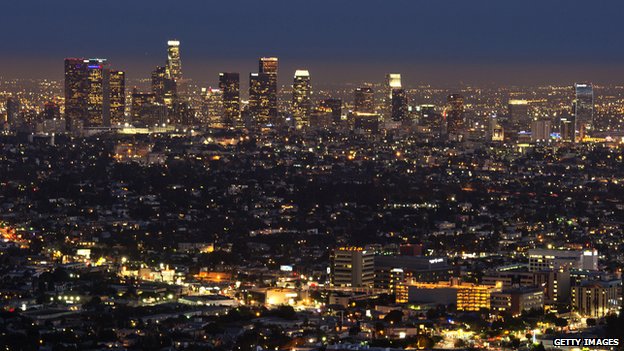 Earthquake felt in Los Angeles area of California Earthquake felt in Los Angeles area of California
A magnitude 5.1 earthquake has struck the Los Angeles area of southern California, the US Geological Survey says.
The quake happened at about 21:10 local time on Friday (04:10 GMT on Saturday) and its epicentre was 1 mile (2km) east of the town of La Habra.
There were no immediate reports of significant damage or injuries.
A 4.4-magnitude quake was felt near Los Angeles earlier this month, rattling nerves but causing no major damage.
The latest earthquake was shallow at only 1.2 miles (2km) deep, according to the USGS.
It was felt across four counties, from Palm Springs in the east and Ventura County to the north, Reuters news agency reported.
The Los Angeles Fire Department said it was checking buildings and transport infrastructure for damage.
It said the quake was a reminder for people to be prepared.
The San Andreas fault, on the edge of the Pacific tectonic plate, runs directly through California, and the western US state has long braced for a devastating quake.
The 1994 Northridge quake, at 6.7 magnitude, left at least 60 people dead. A 6.9-magnitude quake in San Francisco five years earlier killed 67 people.
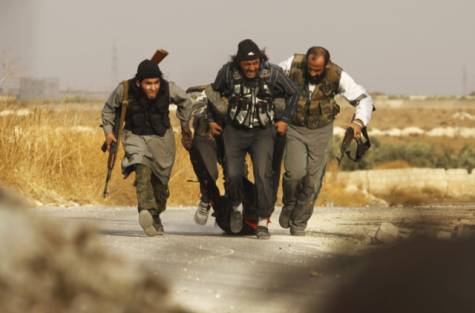 US considering supplying MANPADS to Syrian rebels: reports US considering supplying MANPADS to Syrian rebels: reports
Riyadh: US President Barack Obama, making his first visit to Saudi Arabia since 2009, met King Abdullah on Friday for two hours of talks that aides said would focus on Middle East peace, Iran and ways to strengthen moderate Syrian rebels.
The elderly king, accompanied by a number of senior princes, had the meeting at his desert farm at Rawdat Khuraim northeast of the capital Riyadh, witnesses said.
The king and Obama, there with US Secretary of State John Kerry and National Security Adviser Susan Rice, made no public statements.
But in the run up to the visit, officials had said Obama would aim to persuade the monarch that Saudi concerns that Washington was slowly disengaging from the Middle East and no longer listening to its old ally were unfounded.
Last year senior Saudi officials warned of a “major shift” away from Washington after bitter disagreements about its response to the “Arab spring” uprisings, and policy towards Iran and Syria, where Riyadh wants more American support for rebels.
Saudi Arabia is backing the insurgents in their battle to oust Syrian President Bashar Al Assad, who is supported by Riyadh’s rival, Iran.
US Deputy National Security Adviser Ben Rhodes said coordination with the kingdom on Syria policy, particularly regarding providing assistance to the Syrian rebels, had improved.
“That’s part of the reason why I think our relationship with the Saudis is in a stronger place today than it was in the fall (autumn) when we had some tactical differences about our Syria policy,” he told reporters on Air Force One.
Empowering moderate opposition
Rhodes added that one of the main topics Obama and Abdullah would discuss would be how to empower the moderate opposition to counter Assad and isolate extremist groups.
One area where Riyadh has long differed from Washington is in Obama’s reluctance to supply rebels with surface-to-air missiles, sometimes known as MANPADS.
The Washington Post reported on Friday that the US was ready to increase covert aid to Syrian rebels under a new plan which included training efforts by the CIA, and was considering supplying MANPADS.
The White House has not closed the door to the possibility of such a move in the future, but an official said its position had not changed.
Obama has shown himself wary of being drawn into another conflict in the Muslim world after working hard to end or reduce American military involvement in Iraq and Afghanistan.
While Saudi Arabia, the world’s largest oil exporter, supplies less petroleum to the United States than in the past, safeguarding its energy output remains important to Washington, as does its cooperation in combating Al Qaida.
The Saudis also want more reassurance on American intentions regarding talks over Iran’s nuclear programme, which might eventually lead to a deal that ends sanctions on Tehran in exchange for concessions on its atomic facilities.
Riyadh fears such a deal could come at the expense of Sunni Arabs in the Middle East, some of whom fear that Iran will take advantage of any reduction in international pressure to spread its influence by supporting co-religionists.
An editorial in the semi-official Al Riyadh newspaper on Friday said Obama did not know Iran as well as the Saudis, and could not “convince us that Iran will be peaceful”.
“Our security comes first and no one can argue with us about it,” it concluded.
Rhodes said Washington would not ignore Saudi concerns about Iranian action in the Middle East while it pursued a deal on Tehran’s nuclear programme.
“We’ll be making clear that even as we are pursuing the nuclear agreement with the Iranians, our concern about other Iranian behaviour in the region, its support for Al Assad, its support for Hezbollah, its destabilising actions in Yemen and the Gulf, that those concerns remain constant,” he said.
The Saudi king was accompanied in the talks by Crown Prince Salman, Prince Muqrin, who was named second-in-line to rule on Thursday, and Foreign Minister Prince Saud Al Faisal.
Powerful Interior Minister Prince Mohammad Bin Nayef, who recently met top US officials in Washington to discuss Syria, was not present according to a list of participants supplied by US officials.
 Erdogan, Israel and the upcoming Turkish municipal elections Erdogan, Israel and the upcoming Turkish municipal elections
Turkey’s Prime Minister Recep Tayyip Erdogan rode his Israel bashing to unprecedented popularity in the Arab world a few years ago.
He was a hero – first, for demonstratively walking out on President Shimon Peres at Davos in 2009, then for extracting an apology from then deputy foreign minister Danny Ayalon for the low couch incident, with the Turkish ambassador and finally for recalling Turkey’s ambassador in Tel Aviv and expelling Israel’s envoy from Ankara, after the Mavi Marmara incident in 2010.
Hail Erdogan, the masses shouted; hail the new sultan.
It was Erdogan who hinted that he would send warships to accompany “aid” ships to Gaza to relieve the blockade (that never happened). It was Erdogan who was going to show everyone and make a triumphant visit to Gaza last summer (that never materialized). It was Erdogan who brought Prime Minister Binyamin Netanyahu to his knees, or so Ankara’s billboards claimed last year at this time, after Netanyahu apologized – at the behest of US President Barack Obama – for operational errors during the raid on the Mavi Marmara that may have caused loss of life. Nine Turks trying to break Israel’s naval blockade of Gaza were killed in the incident.
The harder Erdogan hit at Israel, the higher his popularity soared – at least in the Arab world.
But how the Turkish leader’s fortunes have changed.
Turkish foreign policy went from the “Zero Problems” doctrine with Turkey’s neighbors promoted by Foreign Minister Ahmed Davutoglu (another serial Israel basher), to serious problems with nearly all of them: Israel, Cyprus, Greece, Iran, Egypt and Syria – especially Syria.
To top that all off, Erdogan is now facing huge domestic problems – from the Gezi Park protests last summer that he put down with a heavy hand to the swirling corruption scandal in which he is now embroiled.
Erdogan, once portrayed as proof that you can be an ardently religious Muslim leader and a democrat, is the one who banned Twitter in Turkey last week – and YouTube on Thursday.
It is this same Erdogan who this coming Sunday faces key municipal elections in his country that are a test of his strength.
Magically, all of a sudden, just days before Sunday’s elections, reports are sprouting up in the Turkish press – denied in Israel – that soon after the elections are over, ties between Israel and Turkey will be fully restored.
On Tuesday it was the Hurriyet Daily News that quoted Deputy Prime Minister Bulent Arinc as saying that a compensation deal over the Mavi Marmara incident would be signed just after the elections and diplomatic relations fully restored.
And on Thursday Today’s Zaman reported on a visit by Netanyahu’s envoy David Meidan where in a meeting with Turkey’s National Intelligence Organization chief Hakan Fidan it was agreed that the embassies in both countries will be reopened soon – however they were never closed, just not staffed by an ambassador.
The paper also wrote that the two men discussed a possible Erdogan visit to Israel.
What a coincidence. Four years after the Mavi Marmara, and 10 years after Erdogan systematically began dumping on Israel – he said already back in 2004 that Israel was involved in “state terrorism” – stories hit the Turkish media indicating that any minute now there will be a Turkish-Israeli rapprochement.
Even Davutoglu told AFP on Wednesday that “there’s a positive momentum and a process in a positive direction.”
What this all indicates is that the senior level of Erdogan’s AK Party have concluded that there are swaths of the electorate not enamored with Erdogan’s foreign policy, including his stridently anti-Israeli positions, and as a result they are trying to create an impression that the problems with Israel are just about to fade away.
There are, however, few takers in Jerusalem, where the widespread assessment is that if Erdogan wins the elections and his political hand is strengthened, he will be less – not more – likely to reconcile with Israel.
Few argue with an evaluation attributed to Israel’s envoy to Turkey Gabby Levy in 2009, and written in a US cable revealed by Wikileaks. “He’s a fundamentalist,” Levy was quoted as saying. “He hates us religiously, and his hatred is spreading.”
Erdogan has been in power since 2003, and has a track record on Israel, and it is a sorry track record that has essentially destroyed the political and security elements – though not the business components – of a once thriving relationship.
No one in Jerusalem is buying the idea that after the municipal elections, if Erdogan wins and his political fortunes receive a boost, all will return to normal.
If anything, the concern is that the opposite will occur.
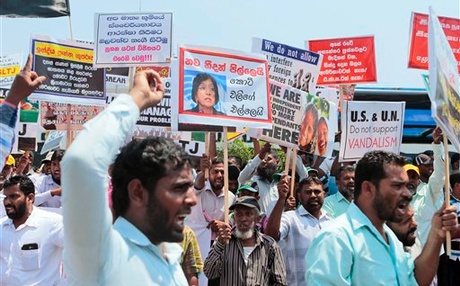 India abstains from UN vote on Lanka, upsets Tamil Nadu parties India abstains from UN vote on Lanka, upsets Tamil Nadu parties
Dravidian parties and pro-Tamil organisations are livid after India abstained from voting on a United Nations resolution against Sri Lanka which sought an international investigation into the alleged war crimes during the final phase of the island's civil war which ended in 2009.
However, Union finance minister P Chidambaram told reporters at Chennai airport on Friday "personally I feel India should have supported the resolution."
He added that the Congress took a neutral stand at UNHRC's Geneva session by abstaining from vote on Sri Lanka and alleged there is no unanimity among parties in Tamil Nadu on the resolution against Sri Lanka.
The implication of this decision on the fate of the Congress party in the 2014 general elections can best be gauged from the reaction of Viiduthalai Chirutaigal Katchi's Tiruvallur constituency candidate N Ravikumar.
"Since Congress is isolated, it is on a suicide mission in Tamil Nadu," he said.
VCK is an alliance partner of the DMK.
India had on Thursday joined 11 other countries that abstained from voting on a UN Human Rights Council resolution in Geneva calling for a probe into alleged war crimes by Sri Lanka.
However, the resolution was adopted with 23 voting in favour and 12 against.
The 47-member UNHRC accepted the resolution presented by the US on behalf of countries, including Britain.
Similarly, the leader of Tamizhaga Desiya Koottani, a pro-Tamil organisation, Sambandham said "we are very angry and upset that India did not vote against Sri Lanka".
"We are extremely upset. India should have voted against Sri Lanka. New Delhi has betrayed," said DMK spokesperson TKS Elangovan on a private television channel.
AIADMK leader and former state finance minister C Ponnaiyan alleged that New Delhi was constantly indifferent to Tamils and Tamil sentiments.
"So it was not surprising that it helped the Sri Lankan government of its friend Rajapakse by abstaining," he said.
Ponnaiyan was only echoing the sentiments of his leader and Tamil Nadu chief minister J Jayalalithaa who had demanded that India move a resolution at UNHCR and strengthen the US resolution against Sri Lanka.
She has raised this issue at every public meeting during her campaign for the general elections. This coupled with the Tamil fishermen issue form a highly emotive situation in Tamil Nadu and she paints the Congress and the DMK with the same brush on this.
Last week, she had written a letter to Prime Minister Manmohan Singh demanding that India must take a strong stand against Sri Lanka at the Geneva UNHRC conference.
Leaders of other political parties were not readily available for comments.
A political analyst said on condition of anonymity that the silence of big leaders, couple of hours after the voting, was surprising.
Tamil Nadu was by and large peaceful with no visible protests reported anywhere in the state, at the time of writing this report.
While rejecting the resolution, India said it ignores the efforts at reconciliation being done by Sri Lanka in the predominantly Tamil north, including holding of elections.
Contrary to what was widely expected to be a repeat of earlier moves of backing the UN resolution, India said it "cannot go along with the resolution and will abstain on the resolution under consideration".
This was for the first time since 2009 that India abstained from voting on the resolution - "Promoting reconciliation,
accountability and human rights in Sri Lanka".
India had in 2009, 2012 and 2013 voted in favour of the resolutions.
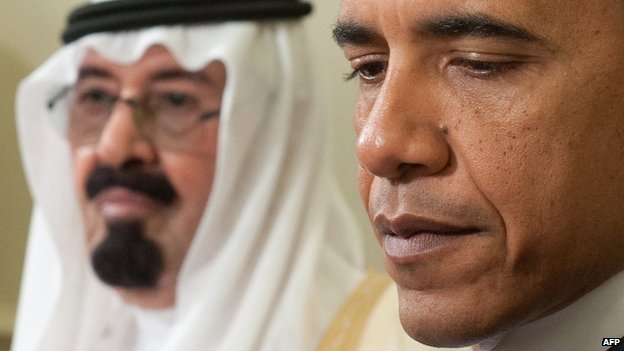 Can Obama Saudi visit stem deteriorating ties? Can Obama Saudi visit stem deteriorating ties?
Relations between Washington and its long-standing ally Saudi Arabia have sharply declined in recent months over US policy in the Middle East - now even a visit to Riyadh by President Obama might do little to narrow the differences, reports the BBC's Kim Ghattas in Washington.
US officials briefing reporters ahead of the trip have said little of substance about what they expect, other than to say it is very important.
Ben Rhodes, the president's deputy national security adviser, did acknowledge that there were disagreements between the two countries.
One of them has already put a small damper on the trip.
On Tuesday, the White House said it was "very disappointed" that the Saudi authorities had refused to grant a visa to an American journalist based in Washington working for the Jerusalem Post.
Despite pleas by National Security Adviser Susan Rice and other officials, Riyadh did not budge.
Officials also gave no hints ahead of the trip about what Mr Obama might be able to say or do to assuage the concerns of America's long-time ally.
Egypt tension
The president last travelled to Riyadh in May 2009, just before his landmark Cairo speech where he laid out his vision for US re-engagement with Muslims and Arabs. He was still fresh in the job and popular, and King Abdullah himself had warmly welcomed his election.
But none of that was enough to make the visit a success. Mr Obama skipped the niceties and came with a laundry list for the ageing monarch, asking for help to push the Israeli-Palestinian peace process forward, but left empty-handed.
Much has changed since then in the region - and not for the better in the eyes of the Saudis. So, Mr Obama is in for a tough trip.
The Saudis have yet to forgive him for turning his back on Egypt's former President Hosni Mubarak in 2011.
They actively opposed US policy in post-revolutionary Egypt, and supported the ousting by the military of the elected Islamist President, Mohammed Morsi, last summer.
When the US suspended a large part of its aid for the Egyptian military following a deadly crackdown on the Muslim Brotherhood in August, Riyadh promised that it would help make up for the shortfall.
The US has been slowly returning to business as usual with Cairo, but this week's court ruling in Minya province sentencing to death more than 500 Morsi supporters - described as "flagrant disregard of basic justice" by the state department - will add another layer of tension in Mr Obama's conversation with King Abdullah about Egypt.
The Saudi government has itself just declared the Muslim Brotherhood a terrorist organisation.
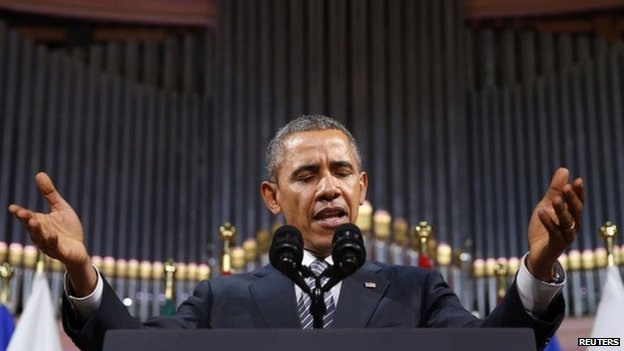 Obama spells out Russia strategy Obama spells out Russia strategy
In a keynote speech to 2,000 people in a Brussels concert hall, President Obama set out his strategy for dealing with Russia over Ukraine.
He characterised the crisis as a contrast in ideas and beliefs between the West and Russia. He said that the annexation of Crimea had violated the beliefs that international law matters, that borders cannot be redrawn.
Once again, he said, Europe was confronted by those who believe that bigger nations can bully smaller ones, that might is right.
The president said, however, that this was not another Cold War. The West would prevail not by military action but by the power of its values.
With time, he said, Russia would realise that "brute force" cannot win. He very deliberately cast this crisis as a clash of ideologies. But the president said that if the Russian leadership continued on the path it was on then its isolation would deepen, sanctions would be expanded and Russia's economy would be damaged.
It was unclear whether European officials would agree to expand sanctions without Russia taking further military steps, however.
'Collective defence'
This visit was firstly about demonstrating that the United States and Europe were united but the president did some direct talking.
"If we have got collective defence everybody has got to chip in," he said.
He did not disguise America's frustration that Europeans have been cutting their defence capabilities. At a news conference he said "freedom isn't free".
When he met with European officials he also told them: "You cannot just rely on other people's energy, even if it has some costs, some downside."
It was a clear reference that Europe would have to compromise in areas like exploiting shale gas if it was to reduce its dependency on Russian oil and gas.
Before he left the Belgian capital he also met with Nato officials. They agreed to boost Nato's presence in eastern Europe among states that feel vulnerable to Russian pressure. There will be more Nato exercises in these countries.
The US president seemed to be preparing his audiences for a long struggle with Russia.
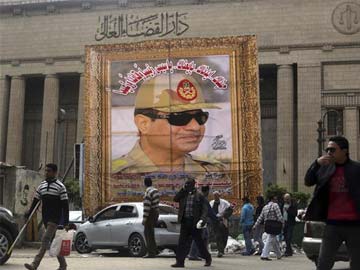 Egypt's Abdel Fattah Al-Sisi resigns as Defence Minister to run for President Egypt's Abdel Fattah Al-Sisi resigns as Defence Minister to run for President
Cairo: Egypt's Army chief Abdel Fattah Al-Sisi on Wednesday resigned as Defence Minister to run for president in an election he is expected to win easily.
Field Marshal Sisi, 59, called a meeting of the Supreme Council of the Armed Forces (SCAP) to submit his resignation.
In a televised statement, Sisi said that he has resigned from the army and intends to run for the country's presidency.
Sisi has been expected to run for the presidency ever since he overthrew President Mohammed Morsi of the Muslim Brotherhood, who appointed him, last July, thus cementing his position as the country's new political force.
SCAF in a statement earlier had stated that it welcomed "the people's demands for Al-Sisi to run for President".
The Egyptian Army's Chief of Staff Sedki Sobhi has been promoted by interim President Adly Mansour to the rank of colonel general, a title that has historically been held only by Egyptian defence ministers, according to state-run TV.
It was originally thought that Sisi would announce his candidature immediately after the constitutional referendum in January that put into effect military-backed regime's "road-map to democracy", with both presidential and parliamentary elections scheduled by the the summer.
Sisi faces no serious competition in the upcoming election, likely before June, and is expected to easily win the poll riding on a wave of popularity.
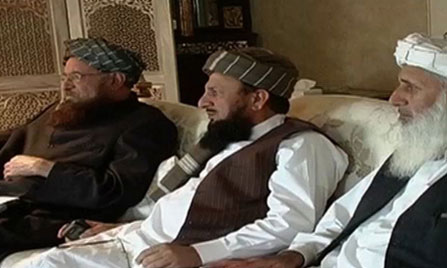 Maiden govt-Taliban direct talks Maiden govt-Taliban direct talks
The talks were mainly focused on an extension in the ceasefire and release of non-combatant detainees.The face-to-face meeting lasting seven hours was held in the Bilandkhel area in Spin Thall in the Orakzai tribal region near the boundary with North Waziristan and the Kurram tribal regions. Sources said a consensus could not be developed during the talks on the host of issues that were discussed.
The venue of the talks was kept secret and the media kept speculating the whole day that the talks were being held in North Waziristan. However, The News had correctly predicted a day ahead that the talks would be held in Spin Thall, Bilandkhel in Orakzai Agency.
Five TTP central Shura members took part in the talks, although the Jamiat Ulema-e-Islam (JUI-S) head Maulana Samiul Haq, who is head of the TTP-nominated negotiations committee, said eight Shura members were present. The elderly Maulana Samiul Haq also attended the meeting.
The four government negotiators led by Secretary Ports and Shipping Habibullah Khan Khattak and the three TTP negotiations committee members headed by Maulana Samiul Haq were first flown in two separate helicopters to Thall town in Hangu district and then driven in vehicles to Bilandkhel in Orakzai Agency. The three other government negotiators were Fawad Hasan Fawad, an Additional Secretary in the Prime Minister’s Office, Additional Chief Secretary Fata Arbab Muhammad Arif and Rustam Shah Mohmand, a retired bureaucrat who served as chief secretary of Khyber Pakhtunkhwa and ambassador to Afghanistan and is a nominee of the Pakistan Tehreek-e-Insaf (PTI) in the committee.
The TTP-nominated negotiators Professor Muhammad Ibrahim Khan, who is provincial head of the Jamaat-e-Islami, and Maulana Yousaf Shah, who is an aide to Maulana Samiul Haq and is coordinator of the committee, also attended the talks.
The TTP Shura was represented in the talks by Qari Shakil, who belongs to Mohmand Agency, Azam Tariq, who is from the Mehsud tribe in South Waziristan, Qari Bashir, Dr Hussain, who is a pharmacist and cleric, and a fifth person whose name could not be ascertained. Maulana Yousaf Shah and Prof Ibrahim had earlier said that Maulana Zakir too would be representing the TTP Shura, but it wasn’t clear if he attended the meeting on Wednesday.
According to sources, the meeting took place at the house of Mohammad Jamil, a retired subedar of the Levies. The Bilandkhel area is inhabited by the Bangash tribe.After welcoming the government negotiators, the TTP Shura members asked them whether they had been fully empowered and had the authority to make decisions.
“At this stage, the members of the government committee phoned Interior Minister Chaudhry Nisar Ali Khan and informed him about the question posed by the Taliban. After speaking to the minister, the committee members came back and told the TTP Shura members that they had the power to make decisions,” said an insider of the meeting.
Pleading anonymity, he said formal talks then started between the two sides and the first session continued till noon. He said the talks were suspended for lunch and prayers and then continued till the evening. “Both sides carefully listened to each other for seven hours,” the source said.
Senior members of the Taliban alleged that the government had failed in showing sincerity in talks.
“After announcing a ceasefire on March 1, we made three demands from the government and the government agreed with us. We demanded a separate peace zone in the tribal areas where we could live and easily move. Second, we asked for the immediate release of our non-combatant prisoners, including women, children and elderly people. They are not militants but were taken into custody for being relatives of the militants. The third demand was for an end to the extra-judicial killing of TTP prisoners in jails,” a senior member of the Taliban told The News on condition of anonymity.
He said they were happy that there has been a considerable decline in the extra-judicial killing of their jailed members, but the government didn’t fulfil its commitment regarding the designation of a peace zone and release of non-combatant prisoners.
“We admit that the extra-judicial killing of our people has stopped but they are being tortured since the start of the peace talks,” the Taliban commander alleged, adding that even then they decided to continue the peace process.
He said they had already delivered a list of 300 of their non-combatant prisoners to the Taliban negotiations committee, which handed it over to the government. He added that most of the civilian prisoners belong to Swat and other places in Malakand Division.
“Some of our people actually didn’t want to stop fighting against the government. We persuaded them and asked them to give us names of their prisoners. It made them happy and they stopped fighting. But now when they realise that the government was not going to free their people, they will not care about the ceasefire,” the TTP commander noted.
Another TTP commander in North Waziristan also said there was no breakthrough in the first round of talks with the government committee because the government did not take steps that could make the negotiations fruitful.
“We sincerely started this peace process despite the opposition of some of our people, but now only the government can make it productive,” he said.Wishing not to be named, he said they have decided to extend the ceasefire till the talks continued
Meanwhile, the members of the Taliban negotiations committee led by Maulana Samiul Haq returned to Peshawar on Wednesday evening after the end of the direct talks and spoke to the media.
Talking to reporters, Maulana Samiul Haq termed the first direct meeting between the two sides as a great success and said they would continue their efforts till the logical conclusion of the talks.
“The ice has melted. Both sides sat together. They attentively listened to each other and gave positive signal for the success of the talks,” he said. He added that the two sides would meet again after two days.
Prof Ibrahim said after succeeding in making the ceasefire on March 1 they had now been successful in bringing the two sides to the negotiation table. “This is no doubt a great success and the nation would soon hear good news,” he remarked.
He said that the war and lawlessness that continued for more than 10 years have made the life of the people miserable. He expressed optimism that peace would be restored soon and the efforts that both the sides have been making would bear fruit. He urged the people to pray for the success of the talks and restoration of peace in the country.
Online adds: At the conclusion of the first direct talks between the Taliban and the official committee, it has been decided that the ceasefire would be extended and prisoners be released besides ensuring continued negotiations between the warring groups.
In a statement, the Taliban spokesman Shahidullah Shahid announced that a request was also submitted by the Taliban to restrict the army troops’ movement in order to facilitate the Taliban’s routine activities. The government has so far not responded to this request.
After the conclusion of the dialogue, the Taliban committee proceeded to an unknown destination, while the official committee would be submitting its report to Chaudhry Nisar Ali Khan after which further rounds of dialogue would be planned.Sources said the issue of the newly surfaced Taliban faction named Ahrarul Hind also cropped up during the meeting. The Taliban assured they would investigate the issue.
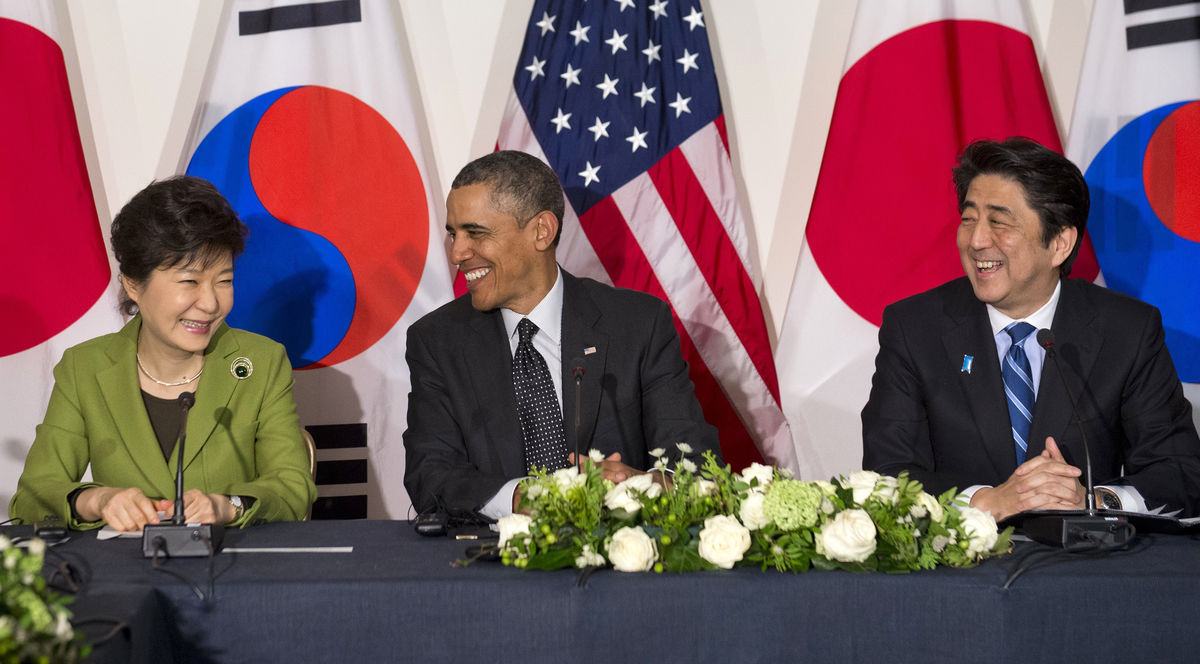 North Korea Fires Missile as Obama Meets With Abe-Park North Korea Fires Missile as Obama Meets With Abe-Park
North Korea fired two ballistic missiles capable of reaching both Japan and South Korea as President Barack Obama hosted the first meeting between the leaders of the U.S.’s biggest Asian allies.
The Rodong missiles were fired early this morning and flew 650 kilometers (400 miles), South Korean Defense Ministry spokesman Kim Min Seok said at a briefing in Seoul. The launches coincided with Obama’s talks with President Park Geun Hye and Japanese Prime Minister Shinzo Abe at the conclusion of a Nuclear Security Summit at The Hague.
The North’s launches “are aimed at demonstrating missile capabilities, drawing global attention and raising the country’s profile at a time the international community is showing intolerance toward its possession of nuclear arms,” Kim said.
Souring ties between Japan and South Korea have hampered U.S. attempts to build a united front in Asia to contain a more assertive China and pressure North Korea to abandon its nuclear weapons program. Park had rejected offers for direct talks, saying Abe’s administration has sought to deny atrocities committed during Japan’s 1910-1945 occupation of Korea, including the Imperial Army’s use of sex slaves.
Park eased her stance after Abe told parliament March 14 he wouldn’t revise Japan’s 1993 apology to the so-called comfort women.
For Obama, bringing the allies closer together is key to the success of his rebalance to Asia. Japan and South Korea had bilateral trade of about $100 billion last year and the U.S. maintains more than 65,000 troops in the two countries.
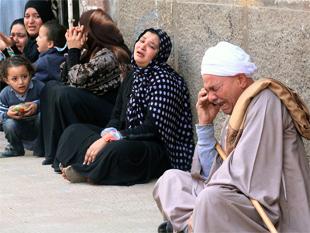 Egypt puts Muslim Brotherhood leader on trial Egypt puts Muslim Brotherhood leader on trial
MINYA, Egypt: The leader of Egypt’s outlawed Muslim Brotherhood and 682 others went on trial on Tuesday on charges including murder, their lawyer said, a day after more than 500 supporters of deposed Islamist president Mohammed Mursi were sentenced to death.
Brotherhood Supreme Guide Mohamed Badie, 70, and the others were being tried in the same court in Minya Province that condemned 529 members of the Islamist group to death, in what rights groups said was the biggest mass death sentence handed out in Egypt’s modern history.
Protests erupted after Tuesday’s trial began, with police firing teargas to deter hundreds of demonstrators. The UN human rights office said the mass death sentences contravened international law. The European Union and the United States also criticised the ruling, as did rights groups.” Yesterday was ... a death sentence for the credibility and independence of Egypt’s criminal justice system,” said Nicholas Piachaud, a campaigner at Amnesty International.
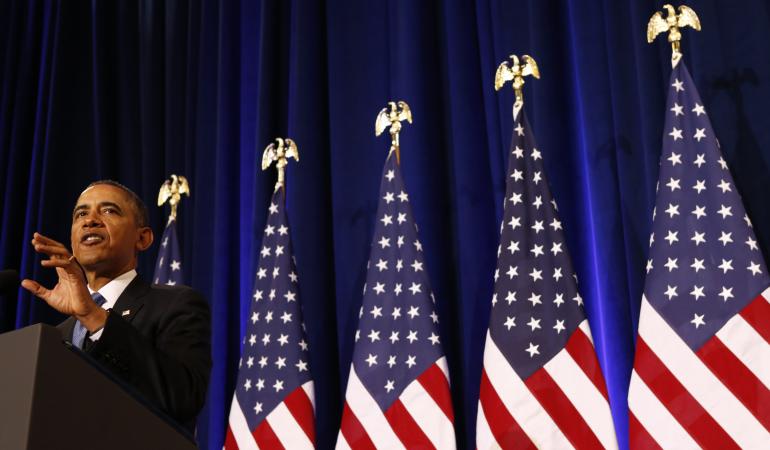 Edward Snowden welcomes Obama’s plan for NSA reforms Edward Snowden welcomes Obama’s plan for NSA reforms
WASHINGTON: Fugitive former intelligence contractor Edward Snowden on Tuesday said that he sees a "turning point" in the surveillance reform plans unveiled by the White House and Congress.
Snowden, the former National Security Agency contractor who leaked documents which provided details of vast US surveillance programs, gave a guarded welcome to a proposal from President Barack Obama to end bulk collection of telephone data.
"I believed that if the NSA's unconstitutional mass surveillance of Americans was known, it would not survive the scrutiny of the courts, the Congress, and the people," Snowden said in a statement released through the American Civil Liberties Union, which is coordinating his legal representation.
"The very first open and adversarial court to ever judge these programs has now declared them 'Orwellian' and 'likely unconstitutional'," the statement said.
Snowden also made reference to the "USA Freedom Act", a proposal introduced earlier this year, saying it offered "historic, albeit incomplete reforms".
He added that, "President Obama has now confirmed that these mass surveillance programs, kept secret from the public and defended out of reflex rather than reason, are in fact unnecessary and should be ended."
Snowden said, "This is a turning point, and it marks the beginning of a new effort to reclaim our rights from the NSA and restore the public's seat at the table of government."
The White House plan would keep the data outside of government while allowing access for national security reasons, officials said.
Key US lawmakers welcomed the proposal, and one group put forward new reform legislation along the same lines, with bipartisan support.
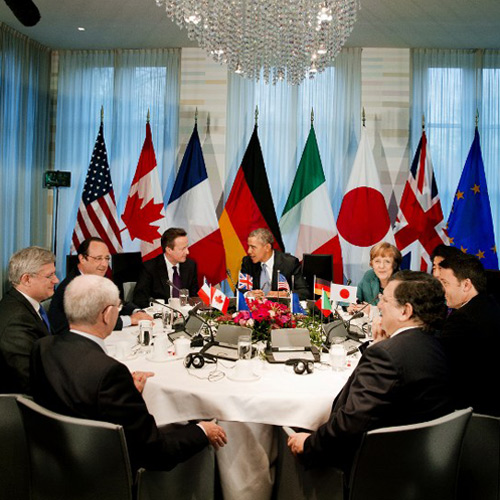 West cancels Russia's G8 summit over Ukraine crisis West cancels Russia's G8 summit over Ukraine crisis
European Council president Herman Van Rompuy, Canadian Prime Minister Stephen Harper, French President Francois Hollande, British Prime Minister David Cameron, US President Barack Obama, German Chancellor Angela Merkel, Japanese Prime Minister Shinzo Abe, Italian Prime Minister Matteo Renzi and European Commission president Jose Manuel Barroso attend a G7 summit at the official residence of the Dutch prime minister in The Hague, the Netherlands, on March 24, 2014 on the sidelines of the Nuclear Security Summit (NSS). Leaders from the Group of Seven most industrialised nations went into crisis talks hosted by US President Barack Obama to decide how to respond to Russia's absorption of Crimea. AFP
United States President Barack Obama and top economic powers on Monday cancelled an upcoming G8 summit in Russia, seeking to deepen Moscow's isolation over its intervention in the Ukraine crisis.
After emergency talks called by Obama, it was announced that the G8 summit in Sochi in June would be replaced by a G7 meeting in Brussels, without Russian involvement. The G7 also threatened tougher sanctions against Russia for its annexation of Crimea, which has plunged relations between the West and Moscow to their lowest point since the Cold War.
The meeting in The Hague came as Ukraine ordered its outnumbered troops to withdraw from Crimea as yet another of its bases was stormed.
Earlier, the White House had said it was "very concerned" by the Russian troop build-up on the border.
"We remain ready to intensify actions including coordinated sectoral sanctions that will have an increasingly significant impact on the Russian economy, if Russia continues to escalate this situation," the G7 leaders said in a statement.
The G7 "came together because of shared beliefs and shared responsibilities. Russia's actions in recent weeks are not consistent with them. Under these circumstances, we will not participate in the planned Sochi summit".
But Russian Foreign Minister Sergei Lavrov defiantly dismissed such a move as "no great tragedy" after separate talks with US Secretary of State John Kerry and Ukraine's interim Foreign Minister Andriy Deshchytsya – the highest-level contacts between the two neighbours since the crisis erupted.
"If our Western partners think that this format (the G8) has outlived itself, then so be it," Lavrov told reporters. "We are not trying to hold on to this format, and we see no great tragedy if it does not meet," he said, insisting Crimea has "a right to self-determination".
Russia's takeover of the region was not "malicious intent", said Lavrov, but was to "protect the Russians who have been living there for hundreds of years".
Moscow was added to the G7 club of the US, Japan, Germany, Italy, France, Canada and Britain – seen as the world's top diplomatic and economic table – in 1999 as a reward for choosing the path of democracy after the collapse of Communism.
French Foreign Minister Laurent Fabius said the snubbing of Russia was "perhaps the most significant action because it shows that all these different countries have not accepted the annexation of Crimea as a fait accompli".
Fabius stressed that the G7 had agreed to work out how to reduce their energy dependency on Russia.
"Because when we talk about sanctions, possible reactions, energy questions must be asked," Fabius said. "We must be in a situation where we don't depend as much as we do today on Russia," he said.
Ukrainian ship stormed
A senior US administration official said there was consensus that any future sanctions on Russia should target its energy, finance and banking, and arms sectors.
The official said such a move would cause economic pain for some Russian trade partners, but that "the cost is far greater for the Russians, who stand much more to lose from isolation from the global economy". "Putting the sectoral sanctions on the table sends a message to Russia to refrain from any escalation, for instance going into eastern or southern Ukraine," the official said.
At the same time, the US Senate voted a $1 billion aid package for Ukraine, clearing the passage for the Obama-backed bill, which could be adopted maybe as soon as this week.
In Crimea, Russian forces stormed a Ukrainian navy ship, with an AFP correspondent reporting plumes of smoke as a Ukrainian defence spokesman said the crew had fired smoke grenades in self-defence.
Ukraine's interim foreign minister stressed that Kiev sought to resolve the crisis through diplomacy. "The position of the Ukrainian government is to use all peaceful means, all diplomatic and economic means to resolve this conflict peacefully," he told reporters.
"However, we don't know what are the Russian plans. What the plans of President (Vladimir) Putin (are). That's why we ask for meetings with the Russians," he said before his talks with Lavrov.
Russian troop formations
The diplomatic efforts came as Ukrainian authorities pulled out all servicemen and their families to the mainland.
The announcement from acting president Oleksandr Turchynov came less than a month after Putin won authorisation to use force in response to the February 22 ouster of pro-Kremlin president Viktor Yanukovych's regime by more nationalist leaders who are seeking a closer alliance with Europe.
Ukraine's increasingly demoralised forces had been steadily losing ground on the Black Sea peninsula and saw their main airbase outside the regional capital Simferopol stormed on Saturday.
A top NATO commander had warned that the Western military alliance was carefully watching massive Russian troop formations that could theoretically make a push across the vast ex-Soviet country at any point.
Moscow has denied any such plans despite Putin's open ambition to resurrect vestiges of the Soviet empire and stamp his authority over eastern European nations that sought protection from the West following the 1989 fall of the Berlin Wall.
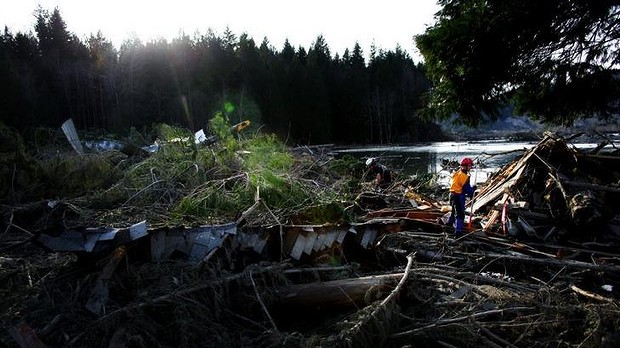 Death toll rises in Washington state mudslide search Death toll rises in Washington state mudslide search
The death toll from the mudslide that destroyed a rural hamlet north of Seattle climbed to 14 by nightfall as rescuers continued to pick through the 2.5 square kilometre swath of destruction.
‘‘The situation is very grim,’’ said local fire chief Travis Hots. ‘‘We’re still holding out hope that we’re going to be able to find people that may still be alive. But keep in mind we haven’t found anybody alive on this pile since Saturday in the initial stages of our operation.’’
Authorities are now racing to account for 176 people who have been reported missing in the area, though many of those may be found safe outside the area hit.‘‘This number is going to decline dramatically . Some [reports of the missing] are as detailed as ‘John with brown hair and blue eyes who lived in a particular neighbourhood’. Others are just ‘Frank, I met him once’,’’ said John Pennington, the director of the Snohomish County Department of Emergency Management.
The slide was triggered after drenching rain at around 11am on Saturday morning. Rescuers said the timing probably increased the number of casualties as people were at home rather than work.
Rescuers have been combing through the detritus on the ground with dogs, from the air and from hovercraft. Some have been withdrawn for fear of further landslips.The same land has twice before been hit by mudslides, most recently in 2006.
“This is the very same mass of rock and dirt,” Tim Walsh, geologic hazards chief for the state Department of Natural Resources, told The Seattle Times. “Landslides often occur in the same place over and over
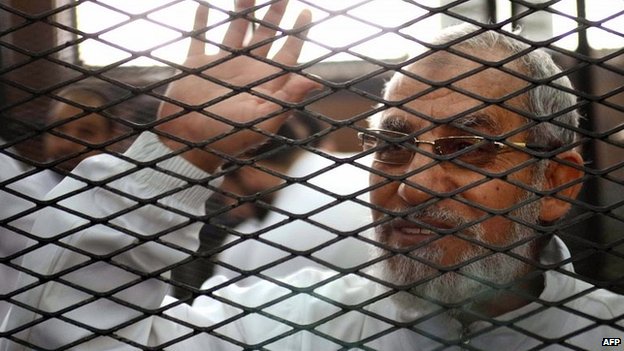 Egypt's Mohammed Badie due to appear in mass trial Egypt's Mohammed Badie due to appear in mass trial
he supreme guide of Egypt's Muslim Brotherhood, Mohammed Badie, is due to appear in court with more than 680 others charged with incitement to kill.Tuesday's mass trial comes a day after an Egyptian court sentenced 528 supporters of ousted Islamist President Mohammed Morsi to death.
They were convicted on charges including murdering a policeman and attacks on people and property.Egyptian authorities have cracked down on the Muslim Brotherhood.Hundreds have been killed and thousands arrested.
Mohammed Badie was seized along with other Muslim Brotherhood figures after the Egyptian army ousted Mr Morsi last July.The army stepped in after months of street protests against Mr Morsi - Egypt's first democratically elected leader.
Mr Badie and others face charges of inciting violence and murder over the deaths of eight anti-Brotherhood protesters outside the movement's headquarters in Cairo last year.Following Mr Morsi's removal from office the Brotherhood set up protest camps in Cairo, at which Mr Badie was a prominent figure.
Protest in Cairo
Supporters of those convicted on Monday protested outside Cairo UniversityPolice eventually dispersed the camps, killing hundreds of protesters, and Mr Badie went into hiding. He was detained in August.
Mr Badie's 38-year-old son Ammar was among those killed in the protests.Meanwhile, the Muslim Brotherhood has denounced Monday's death sentences.The verdicts must now go to Egypt's supreme religious authority, the Grand Mufti, for approval or rejection.
Analysts say that although death sentences are often handed down in Egypt, few have been carried out in recent years.All of those convicted on Monday are expected to appeal.
Tuesday's trial will take place at the same court in Minya, south of the capital, Cairo.The Brotherhood has been declared a terrorist organisation and authorities have punished any public show of support for it.
 N.S.A. Breached Chinese Servers Seen as Security Threat N.S.A. Breached Chinese Servers Seen as Security Threat
WASHINGTON — American officials have long considered Huawei, the Chinese telecommunications giant, a security threat, blocking it from business deals in the United States for fear that the company would create “back doors” in its equipment that could allow the Chinese military or Beijing-backed hackers to steal corporate and government secrets.
But even as the United States made a public case about the dangers of buying from Huawei, classified documents show that the National Security Agency was creating its own back doors — directly into Huawei’s networks.
The agency pried its way into the servers in Huawei’s sealed headquarters in Shenzhen, China’s industrial heart, according to N.S.A. documents provided by the former contractor Edward J. Snowden. It obtained information about the workings of the giant routers and complex digital switches that Huawei boasts connect a third of the world’s population, and monitored communications of the company’s top executives.
One of the goals of the operation, code-named “Shotgiant,” was to find any links between Huawei and the People’s Liberation Army, one 2010 document made clear. But the plans went further: to exploit Huawei’s technology so that when the company sold equipment to other countries — including both allies and nations that avoid buying American products — the N.S.A. could roam through their computer and telephone networks to conduct surveillance and, if ordered by the president, offensive cyberoperations.
“Many of our targets communicate over Huawei-produced products,” the N.S.A. document said. “We want to make sure that we know how to exploit these products,” it added, to “gain access to networks of interest” around the world.
The documents were disclosed by The New York Times and Der Spiegel, and are also part of a book by Der Spiegel, “The N.S.A. Complex.” The documents, as well as interviews with intelligence officials, offer new insights into the United States’ escalating digital cold war with Beijing. While President Obama and China’s president, Xi Jinping, have begun talks about limiting the cyber conflict, it appears to be intensifying.
The N.S.A., for example, is tracking more than 20 Chinese hacking groups — more than half of them Chinese Army and Navy units — as they break into the networks of the United States government, companies including Google, and drone and nuclear-weapon part makers, according to a half-dozen current and former American officials.
If anything, they said, the pace has increased since the revelation last year that some of the most aggressive Chinese hacking originated at a People’s Liberation Army facility, Unit 61398, in Shanghai.
The Obama administration distinguishes between the hacking and corporate theft that the Chinese conduct against American companies to buttress their own state-run businesses, and the intelligence operations that the United States conducts against Chinese and other targets.
American officials have repeatedly said that the N.S.A. breaks into foreign networks only for legitimate national security purposes.
A White House spokeswoman, Caitlin M. Hayden, said: “We do not give intelligence we collect to U.S. companies to enhance their international competitiveness or increase their bottom line. Many countries cannot say the same.”
But that does not mean the American government does not conduct its own form of corporate espionage with a different set of goals. Those concerning Huawei were described in the 2010 document.
Continue reading the main story
“If we can determine the company’s plans and intentions,” an analyst wrote, “we hope that this will lead us back to the plans and intentions of the PRC,” referring to the People’s Republic of China. The N.S.A. saw an additional opportunity: As Huawei invested in new technology and laid undersea cables to connect its $40 billion-a-year networking empire, the agency was interested in tunneling into key Chinese customers, including “high priority targets — Iran, Afghanistan, Pakistan, Kenya, Cuba.”
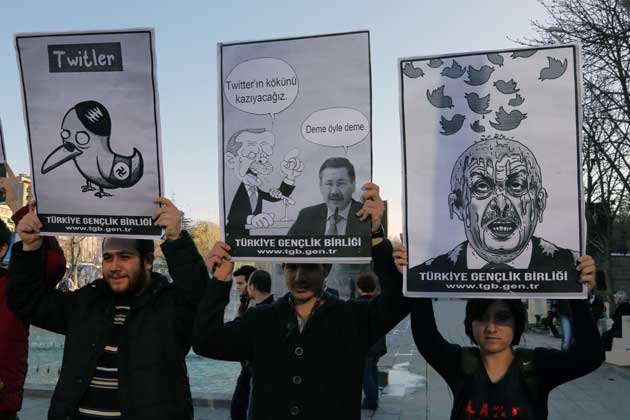 Turkey: Twitter allows 'character assassination' Turkey: Twitter allows 'character assassination'
Turkey's government on Saturday accused Twitter of allowing "systematic character assassinations" a day after social media users easily evaded a government attempt to block access to the network.
The attempted crackdown came after links to wiretapped recordings suggesting corruption were posted on Twitter, causing Prime Minister Recep Tayyip Erdogan's government major embarrassment before local elections on March 30.
The government's effort to shut down the service backfired on Friday, with many finding ways to continue to tweet and mock the government for what they said was a futile attempt at censorship. Even President Abdullah Gul worked around the ban,
tweeting that shutting down social media networks cannot "be approved." Turkey's move to block Twitter sparked a wave of international criticism.
Turkey's state-run news agency, Anadolu, said Twitter had begun on Saturday to close down accounts which the Turkish government has been complaining about, but the report couldn't immediately be verified.
Government officials said Friday they were engaged in talks with Twitter and would restore access as soon as an agreement with the company is reached.
Twitter said it hoped the dispute would be resolved soon. The government accuses Twitter of refusing to remove offensive content despite Turkish court orders.
On Saturday, Hurriyet newspaper and Twitter users said the clampdown was expanded to Google's Domain Name System, which had provided many of Twitter's Turkish users an alternative means of gaining entry.
The communications minister, Lutfi Elvan, would not confirm, saying he had not been informed about such a move. The Google system was accessible again Saturday afternoon.
Swedish Foreign Minister Carl Bildt used Twitter on Saturday to tell Turkey its efforts to block access to the social media network were "stupid." He said the blockade "isn't working and also backfiring heavily."
A statement from the Turkish government's Public Diplomacy office said the network was engaged in "systematic character assassinations" for hosting accounts where the leaked the wiretapped recordings have been posted. It said the audio tapes were "illegally acquired" or "fake and fabricated."
Elvan, the communications minister, said: "Whether it's Twitter, Yahoo or Google, all social media companies have to obey the laws of the Turkish Republic and they will."
Turkey had made 643 content removal requests to Twitter since Jan. 1, he said without elaborating.
The government blocked access to Twitter after Erdogan threatened to "rip out the roots" of the website over the links to recordings that appear to incriminate him and other top officials in corruption. In one recording a man believed to be Erdogan is heard instructing his son to get rid of vast amounts of cash from a home amid a police graft probe.
Erdogan says that recording is fabricated and insists he is a victim of a plot orchestrated by followers of a U.S.-based Muslim cleric who want to discredit the government before the elections.
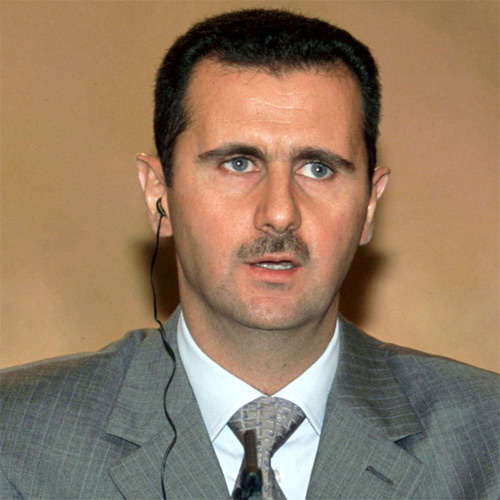 Syrian President Bashar al-Assad's cousin killed in clash with rebels Syrian President Bashar al-Assad's cousin killed in clash with rebels
A cousin of Syrian President Bashar al-Assad was killed on Sunday in battles with Islamist rebels near the border with Turkey, activists and state media said.
The Syrian Observatory for Human Rights said Hilal al-Assad, local head of the National Defence Force militia, and seven of his fighters were killed in clashes with the Nusra Front and other Islamist brigades.
State television confirmed Assad's death, describing him as the head of the National Defence Force in the coastal province of Latakia, where the Assad family originates.
The National Defence Force is a militia set up to support the army in its three-year battle with rebels seeking to overthrow Bashar al-Assad.
The Observatory also reported that rebels fired two rockets into the port city of Latakia, which is the main hub for operations to ship out Syria's chemical weapons for destruction under a deal reached with the United States and Russia.
It said there were no immediate reports of casualties.
 Minimising nuclear terrorism to top agenda at Hague summit Minimising nuclear terrorism to top agenda at Hague summit
Two-day gathering of 58 nations likely to propose security measures for military and civilian materials
Agreement to minimise the use of highly enriched uranium and an improved strategy to protect vulnerable civilian plutonium stocks are expected to be two of the main elements in the final communique from the 58-nation Nuclear Security Summit, which opens in The Hague today.
Some headway on these issues is already believed to have been made despite warnings that the two-day summit could be hamstrung by US budget cuts of $220 million (€159 million) in non-proliferation programmes next year and tension between the US and Russia over the annexation of Crimea.
An early draft of the official communique to be agreed by the participating countries commits them to “continue to minimise the use of HEU [highly enriched uranium] through the conversion of reactor fuel from HEU to low-enriched uranium, where technically and economically feasible”.
According to Prof Matthew Bunn of Harvard University, the text being proposed through Dutch diplomats also includes moves to ensure the security of military nuclear materials and of civilian plutonium – though the former appeared to be meeting resistance.
“I haven’t seen the final language, so I don’t know how successful they were,” said Prof Bunn, a former adviser to Bill Clinton.
“My understanding is that they got something – but not as much as they originally wanted.”
‘Pretty good results’
In a webcast last week, US president Barack Obama’s arms control co-ordinator, Dr Liz Sherwood-Randall, said she expected “some pretty good results on plutonium” in The Hague.
That led to speculation that there has already been a behind-the-scenes diplomatic breakthrough, which means that Japan will send some 730lb of “highly bomb-ready” plutonium, allegedly capable of producing between 40 and 50 nuclear bombs, back to the US.
The US has also been putting pressure on Japan to improve security at a new nuclear reprocessing plant at Rokkasho, due to begin production in October, warning that it could be vulnerable to extremists;.
Since 1993 there have been 16 confirmed cases of theft of HEU and plutonium documented by the International Atomic Energy Agency’ illicit trafficking database, most of them in the former Soviet Union.
In 2009, Mr Obama spoke about the danger of terrorists acquiring nuclear material, and said nuclear security would be at the top of his agenda – to prevent a group such as al-Qaeda making a so-called “dirty bomb” of conventional explosives wrapped in radioactive material.
However, in his budget for the coming year, unveiled this month, the president requested $114 million less than expected for the international material protection and co-operation programme, which aims to secure and eliminate “vulnerable” nuclear weapons and material.
He also requested $108 million less than anticipated for the global threat reduction initiative, bringing total cuts to existing nuclear security programmes to $222 million.
“What I take away from this budget is that there was a lack of leadership in trying to maintain the prioritisation of the funding,” said Kenneth Luongo, president of the Partnership for Global Security. “The signal is that we are in retreat. I think that is a huge mistake.”
The controversial decision by Mr Obama to place the mixed oxide fuel (MOX) fabrication facility in South Carolina, which was to make nuclear fuel from plutonium, on “cold standby”, accounts for a large portion of the reduction in the non-proliferation budget.
In diplomatic terms, the problem is that the facility was to play an important part in an agreement with Russia, under which each side was to dispose of 34 tonnes of plutonium.
“The cold standby at MOX will require the administration to renege on the issue at a time when the US-Russian relationship is under strain over Russian military action in Ukraine,” said US energy secretary Ernest Moniz.
“At the right time, we will have to re-engage in those discussions,” he added. “Now may not be the right time.”
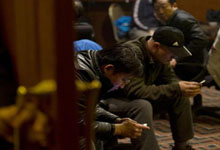 Malaysia says not sure which way jet was headed
Malaysia says not sure which way jet was headed
More than four days after a Malaysian jetliner went missing on route to Beijing, authorities acknowledged on Wednesday they didn’t know in which direction the plane and its 239 passengers was heading when it disappeared, vastly complicating efforts to find it.
Amid intensifying confusion and occasionally contradictory statements, the country’s civil aviation authorities and the military both said the plane may have turned back from its original route toward Vietnam, possibly as far as the Strait of Malacca on the eastern side of the country.
Authorities have not ruled out any possible cause, including mechanical failure, pilot error, sabotage or terrorism in the disappearance of the plane. The 777 is a modern aircraft with an excellent safety record, as does Malaysia Airlines.
Authorities began their search for the missing aircraft at the position it was last reported to be at over the sea between Malaysia and Vietnam. But they have also said search operations were ongoing in the Malacca strait. Scores of planes and aircraft have been scouring both locations.
The country’s air force chief, Gen. Rodzali Daud, released a statement denying remarks attributed to him in a local media report saying that military radar had managed to track the aircraft turning back from its original course, crossing the country and making it to the Malacca strait to the west of Malaysia. The Associated Press contacted a high-level military official, who confirmed the remarks.
Gen Rodzali referred to a statement he said he made March 9 in which he said the air force has “not ruled out the possibility of an air turn back” and said search and rescue efforts had been expanded to the waters around Penang Island, in the northern section of the strait.
It is possible that the radar readings are not definitive or subject to interpretation, especially if a plane is malfunctioning.
The country’s civilian aviation chief Azharuddin Abdul Rahman said he could neither confirm nor deny military’s remarks. That suggests disagreement or confusion at the highest level over where the plane is most likely to have ended up.
“There is a possibility of an air turn back. We are still investigating and looking at the radar readings,” he said Wednesday
The strait is a busy shipping lane that separates Malaysian from Indonesia’s Sumatra Island.
Adding to the confusion, Indonesia air force Col. Umar Fathur said the country had received official information from Malaysian authorities that the plane was above the South China Sea, about 10 nautical miles from Kota Bharu, Malaysia, when it turned back toward the strait and then disappeared. That would place its last confirmed position closer to Malaysia than has previously been publicly disclosed.
Fathur said Malaysia authorities have determined four blocks to be searched in the strait, which Indonesia was assisting in.
Vietnamese military authorities said they were searching for the plane on land sea.
Lt. Gen. Vo Van Tuan, deputy chief of staff of Vietnamese People’s Army, said there were 22 aircraft and 31 ships from Vietnam and other countries involved in the hunt in its area of responsibility.
Flight MH370 took off from Kuala Lumpur at 12-41 a.m. on Saturday, bound for Beijing. Authorities initially said its last contact with ground controllers was less than an hour into the flight at a height of 35,000 feet, when the plane was somewhere between the east coast of Malaysia and southern Vietnam.
Malaysian police chief Khalid Abu Bakar, who has been ordered to look at possible criminal aspects in the disappearance of Flight MH370, said hijacking, sabotage and issues related to the pilots’ psychological health were being considered.
An Australian TV station reported that the first officer on the missing plane, Fariq Abdul Hamid, had invited two women into the cockpit during a flight two years ago. One of the women, Jonti Roos, described the encounter on Australia’s “A Current Affair.”
Roos said she and a friend were allowed to stay in the cockpit during the entire one-hour flight on Dec. 14, 2011, from Phuket, Thailand, to Kuala Lumpur. She said the arrangement did not seem unusual to the plane’s crew.
“Throughout the entire flight, they were talking to us and they were actually smoking throughout the flight,” said Roos, who didn’t immediately reply to a message sent to her via Facebook. The second pilot on the 2011 flight was not identified
Malaysia Airlines said they took the allegations seriously.
Searching the sea from space
Five days after Malaysia Airlines flight MH370 disappeared off radar, and with the search area widening, attention is focussing on how satellites can help scan large areas of the sea.
China was the first to say this week that it had reconfigured 10 satellites to search for the missing plane.
Vietnam has used a satellite to survey the seas around Tho Chu Island, one of the possible crash areas.
The sensors on the Chinese satellites include high-resolution optical telescopes, infrared cameras, and microwave detectors, according to Hong Kong’s South China Morning Post.
One of the highest-resolution commercial satellites, the GeoEye-1, used by Google for its maps service, has a resolution of around half a metre.
However, ocean waves can make detection from space difficult.
“If the object is non-metallic, such as plastic, it would be very difficult to spot with radar,” Professor Xie Tao at Nanjing University of Information Science and Technology told the newspaper.
Military satellites with more sophisticated equipment have also been involved in the search, the report said.
Analysing the satellite images is another challenge.
US satellite company DigitalGlobe has uploaded satellite images of over 3,200 square kilometres of the South China Sea and Gulf of Thailand to its crowdsourcing website Tomnod.
It asks users to scan the images and tag anything that could be wreckage, a life raft, or oil.
Some have questioned however whether the satellite search effort has come too late.
Dr Chi Tianhe, a satellite imaging researcher who took part in the Chinese search, told the South China Morning Post that a lack of staff monitoring data around the clock, and poor coordination with international agencies had reduced the chances of success.
In the days since the plane went missing, any debris is likely to have floated far from the crash site, experts say, also meaning that the most likely period for finding something from MH370 may have passed.
 Newly crowned Miss World Kseniya Sukhinova from Russia, center, stands with first princess Parvathy Omanakuttai from India, left, and second princess Gabrielle Walcott from Trinidad and Tobago, right, during the Miss World contest in Johannesburg, South Africa. Newly crowned Miss World Kseniya Sukhinova from Russia, center, stands with first princess Parvathy Omanakuttai from India, left, and second princess Gabrielle Walcott from Trinidad and Tobago, right, during the Miss World contest in Johannesburg, South Africa.
|



